The 100 Greatest Movies Of The 21st Century
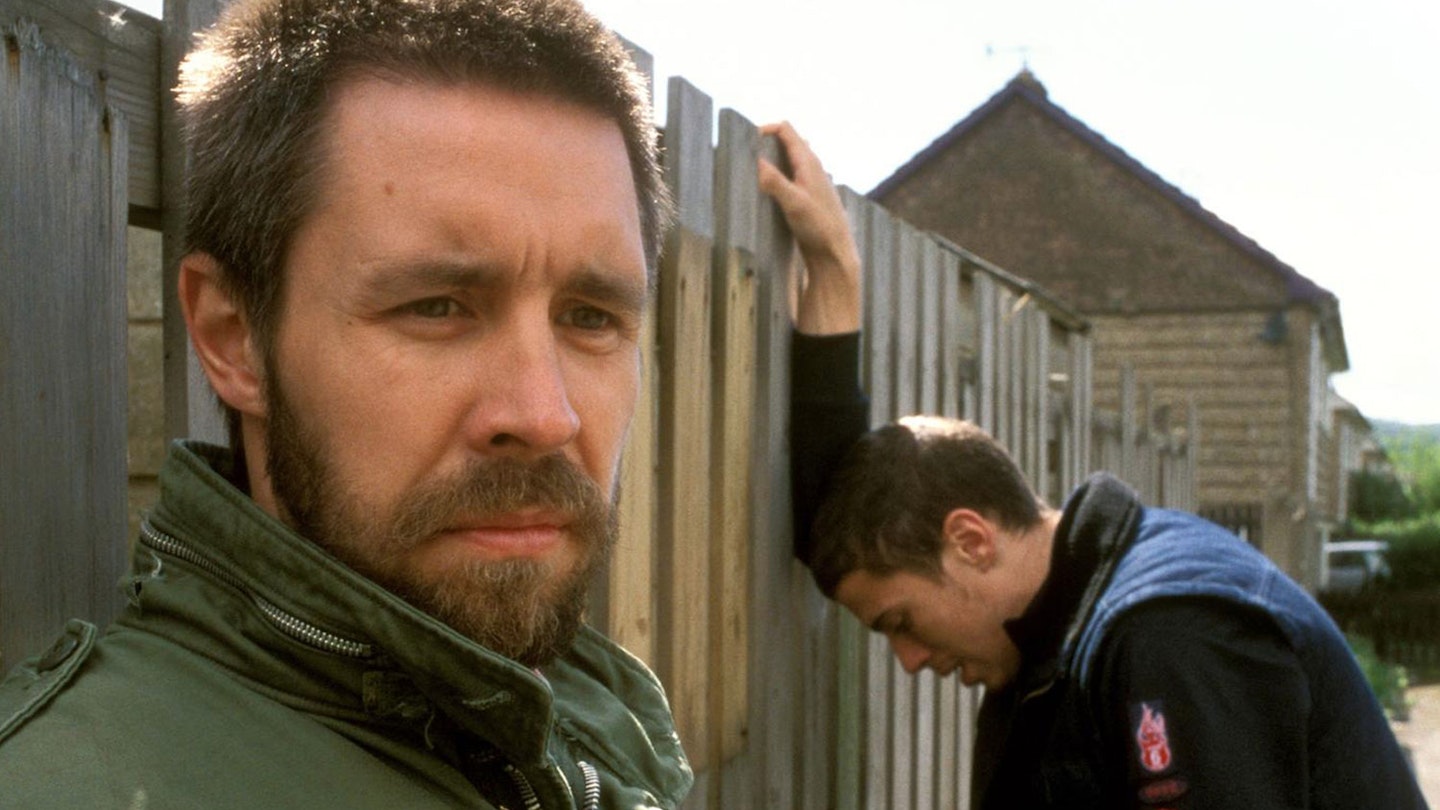 1 of 100
1 of 100100) Dead Man's Shoes
2004Before This Is England came Shane Meadows' brutal revenge drama, boasting a terrifyingly convincing turn from Paddy Considine as Richard, a paratrooper who returns to his Derbyshire hometown and faces down the drug-dealers who have been tormenting his younger brother (Toby Kebbell's brilliant screen debut). Inspired by the real-life, smalltown atrocities that evade justice on a daily basis, Dead Man's Shoes, co-written by Meadows and Considine, was fuelled by genuine anger, and it shows – this is a film that takes no prisoners, with Considine on truly frightening form. Richard wields immense power, intimidating ordinarily scarier people with mere gestures, and, via a bravura set-piece from Meadows, leads us through cinema's greatest LSD sequence, as hilarious as it is sadistic. If you can handle the guaranteed nightmares, this is essential. Raw, lo-fi filmmaking at its best, with an outstanding soundtrack to boot.Read the Empire review.Buy now on Amazon.
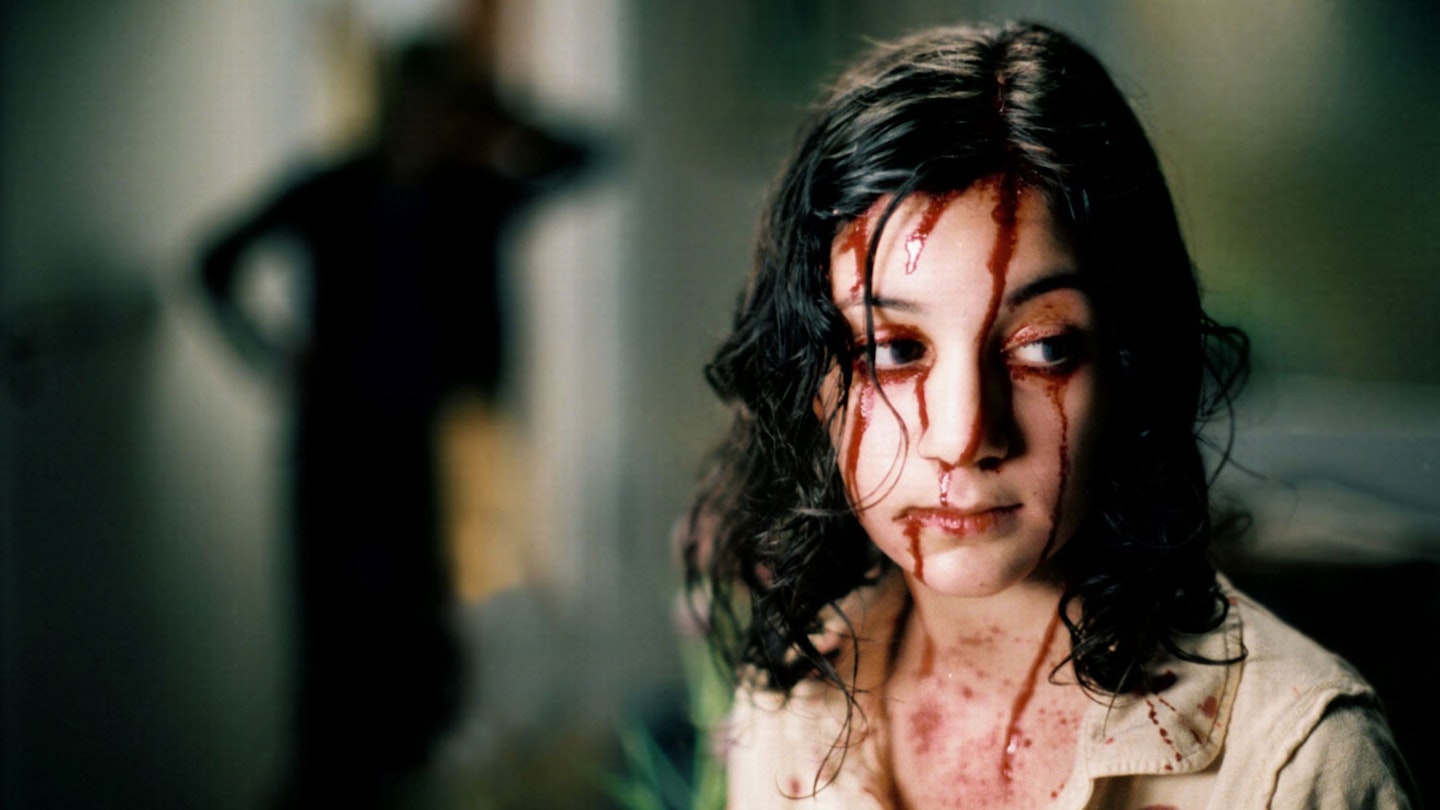 2 of 100
2 of 10099) Let The Right One In
2008Vampires were everywhere in the late-'00s, the folkloric bloodsuckers sinking fangs into popular culture at large. In the same year that gave us Twilight and True Blood, Swedish filmmaker Tomas Alfredson delivered an altogether different take on the vampire legend – something quieter and more curious. Let The Right One In is a hard film to classify, a chilly drama infused with sweet romantic elements and coming-of-age tropes that doesn't shy away from moments of blood-soaked horror. Kåre Hedebrant is the bullied bowl-haired boyat its centre, an outsider who finds himself drawn to his new neighbour (Lina Leandersson). When the bodies start piling up, it's clear she's no ordinary 12-year-old – but their friendship transcends her vampiric nature, resulting in an eerily sweet ending that lingers long in the memory. A total tonal one-off.Read the Empire review.Buy now on Amazon.
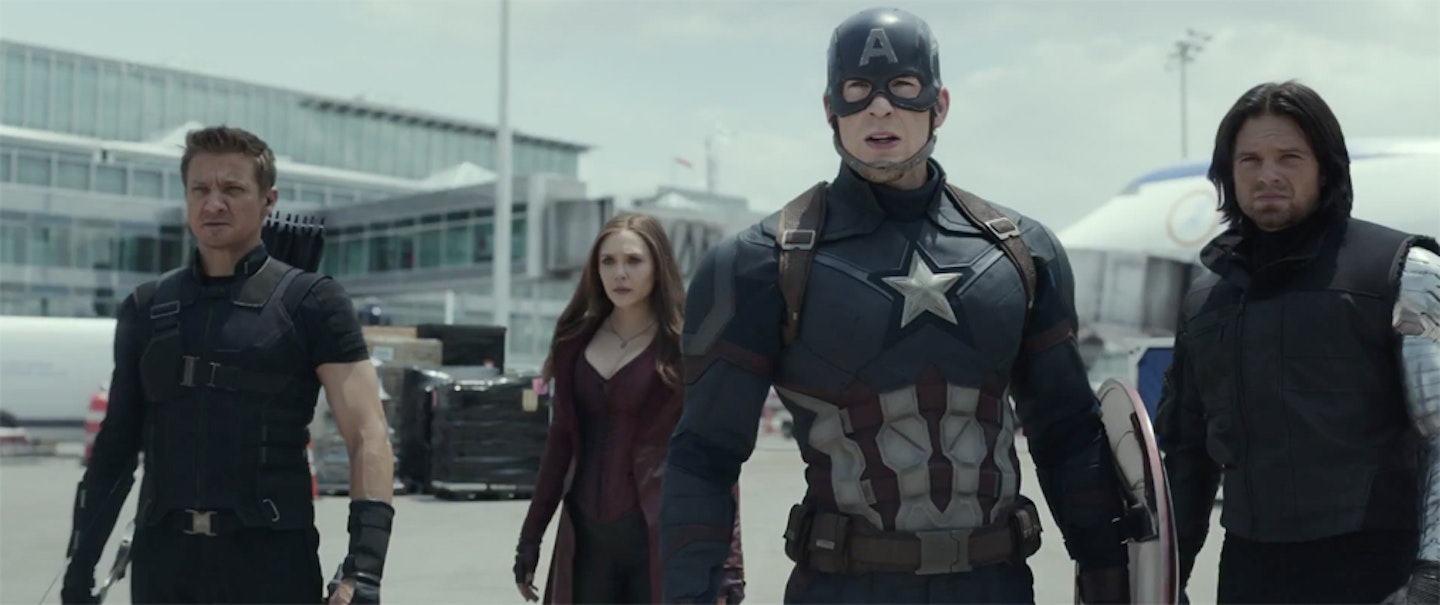 3 of 100
3 of 10098) Captain America: Civil War
2016Cap's final solo adventure isn't really a solo outing – or a traditional adventure movie. Instead, at a time where Marvel Studios had garnered a reputation for bright, colourful, unashamedly comic-booky romps, Civil War gave fans a more mature, emotional MCU film, one grappling with diplomatic affairs, parental murder, and the personal cost of undying loyalty. The clash between Steve Rogers and Tony Stark over the Sokovia Accords (should the Avengers be held accountable for collateral damage and innocent lives lost during their world-saving exploits?) proved to be more than just ideological – a rift deeply rooted in long-buried tragedy, far from tied-up by the closing credits. If it's a bolder, darker flavour of MCU movie, it's still a rollocking spectacle – lit up by a thunderous hero-vs-hero airport smackdown, and the joyous arrival of Tom Holland's Spider-Man.Read the Empire review.Buy now on Amazon.
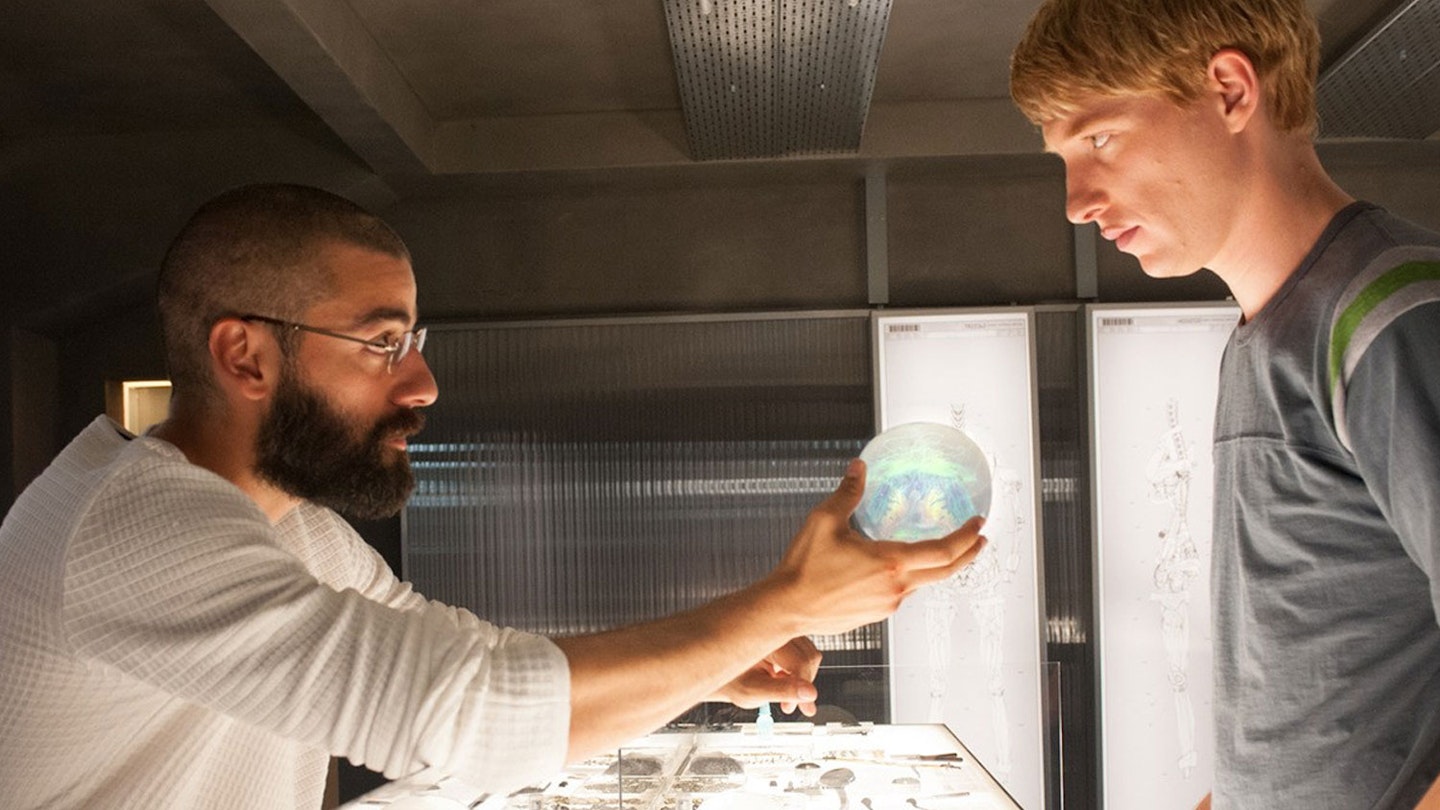 4 of 100
4 of 10097) Ex Machina
2014For a film that explores the notion of artificial intelligence, Alex Garland's cerebral sci-fi has real brains of its own. Like all the best classic science-fiction movies it's driven by ideas – reflecting back society's increased anxieties around rapid advances in technology in the very same year that brought us Amazon's Alexa. What makes human consciousness different to AI consciousness? How will we know when our technology is smarter than we are? And in creating an AI, are we engineering our own downfall? Garland swirls all of these themes into taut dialogue-driven confrontations, lent an additional chilly edge by the film's icy aesthetic. Boasting arresting performances from its central trio – bringing together Domhnall Gleeson and Oscar Isaac a year before they blasted off to a galaxy far, far away, plus a magnetic Alicia Vikander – and a climax that doesn't pull its punches, Ex Machina is deus-level stuff.Read the Empire review.Buy now on Amazon.
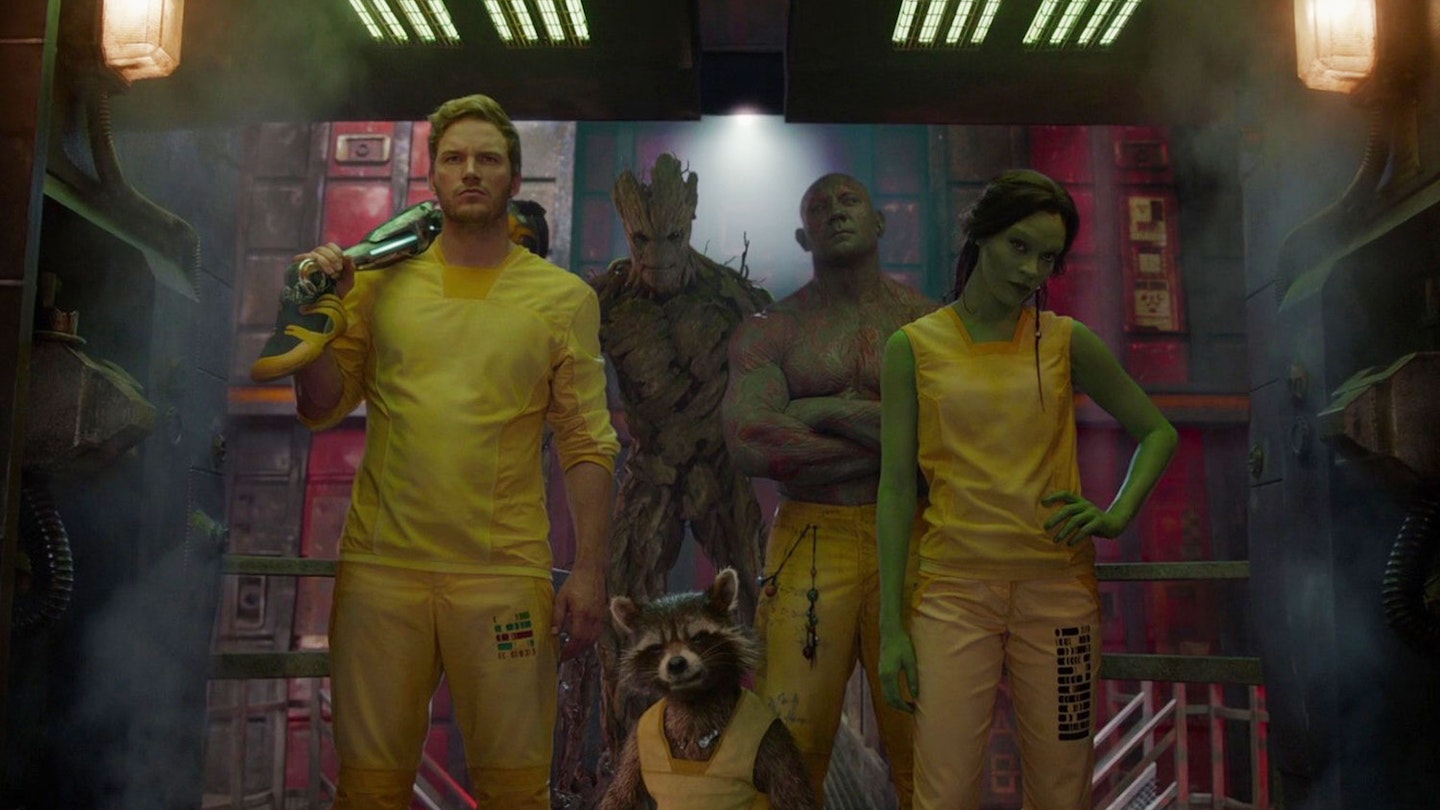 5 of 100
5 of 10096) Guardians Of The Galaxy
2014The rise of Marvel Studios was all about big swings – from making a household name of Iron Man to assembling the Avengers. But no swing was bigger than Guardians Of The Galaxy, the film in which the MCU truly turned technicolour. James Gunn's fizzing space opera about a rag-tag group of roguish anti-heroes (or, "bunch of a-holes") is bursting with '70s pop, psychedelic visuals, and moments of surprisingly perceptive emotion – it's easy to forget amid the planet hopping and witty space-bickering that it all begins with a lonely, Earthbound boy grieving the death of his mother. Counting a monosyllabic tree and a wise-cracking raccoon among its characters, and largely lacking for star names (though it propelled Chris Pratt to leading man status as preening group leader Peter Quill, aka Star Lord), Guardians proved Marvel Studios could make a blockbuster smash out of nigh-on anything.Read the Empire review.Buy now on Amazon.
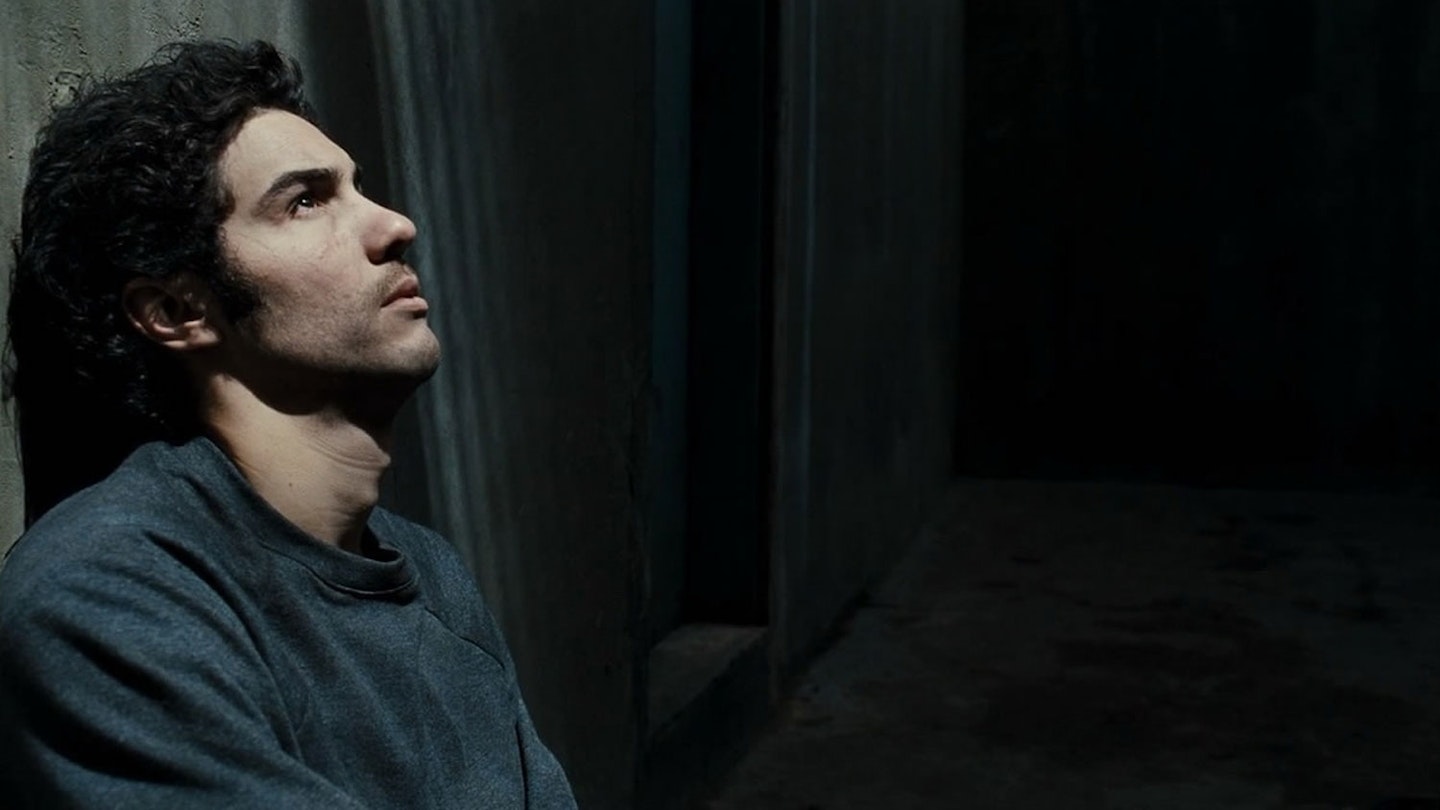 6 of 100
6 of 10095) A Prophet
2009Just as Breaking Bad gave 21st Century audiences a small-screen protagonist who descends ever-deeper into villainy while ascending to greater heights in the criminal underworld, Jacques Audiard's slow-burning French crime movie follows a similarly Heisenbergian trajectory. Tahar Rahim's Malik El-Djebena is the relatively unassuming rookie prisoner who gradually morphs into a crime kingpin before your very eyes – a masterful character evolution so imperceptible, you hardly realising it's happening in the moment. If it feels indebted to a long history of crime epics, A Prophet has a distinct identity of its own – a properly contemporary prison movie with an atmospheric social-realist edge, and a plot that remains compelling across its 155-minute runtime. Plus, Malik's moustache gets slightly bigger as the film progresses. How's that for a transformation?Read the Empire review.Buy now on Amazon.
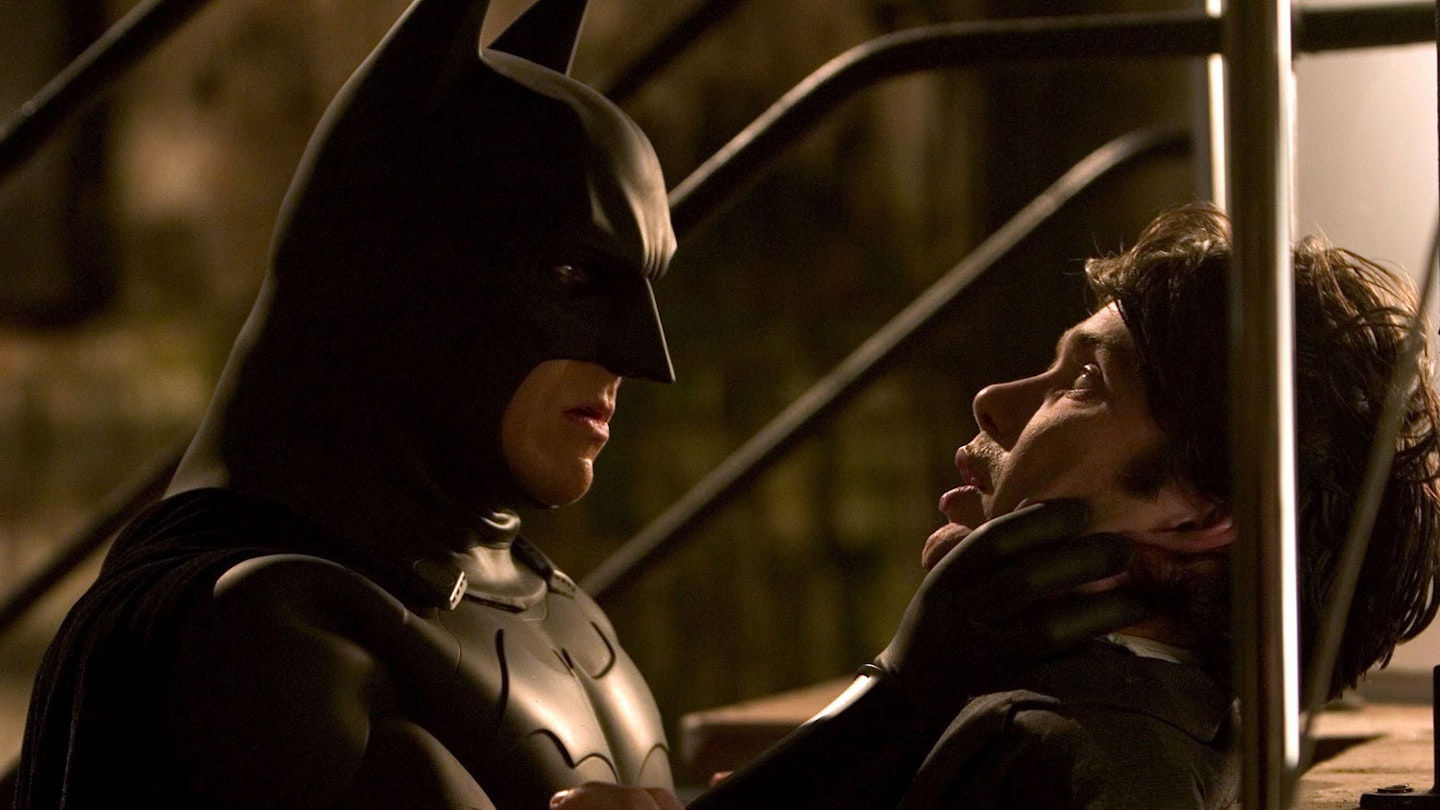 7 of 100
7 of 10094) Batman Begins
2005Where The Dark Knight gave us a Joker movie for the ages, Christopher Nolan's first Bat-film really got under the skin of Bruce Wayne. Taking inspiration from Frank Miller's Batman: Year One comics, Nolan delivered a big-budget character study – what, exactly, makes an orphaned rich-kid dress as a giant bat and swoop down on unsuspecting criminals? The answer, according to Hollywood's most psychologically-driven auteur, is fear and the need to conquer it. That, and being subjected to psychotropic flowers in the Himalayan wilderness. From Cillian Murphy's horror-masked Scarecrow, to flashbacks of a young Bruce trapped at the bottom of a well, to operatic shots of swirling bats, Nolan commits to a layered exploration of what makes Christian Bale's bereaved billionaire – and the festering underbelly of Gotham – tick. Batman Begins is a film that digs deep thematically – and still gives us epic ninja fights.Read the Empire review.Buy now on Amazon.
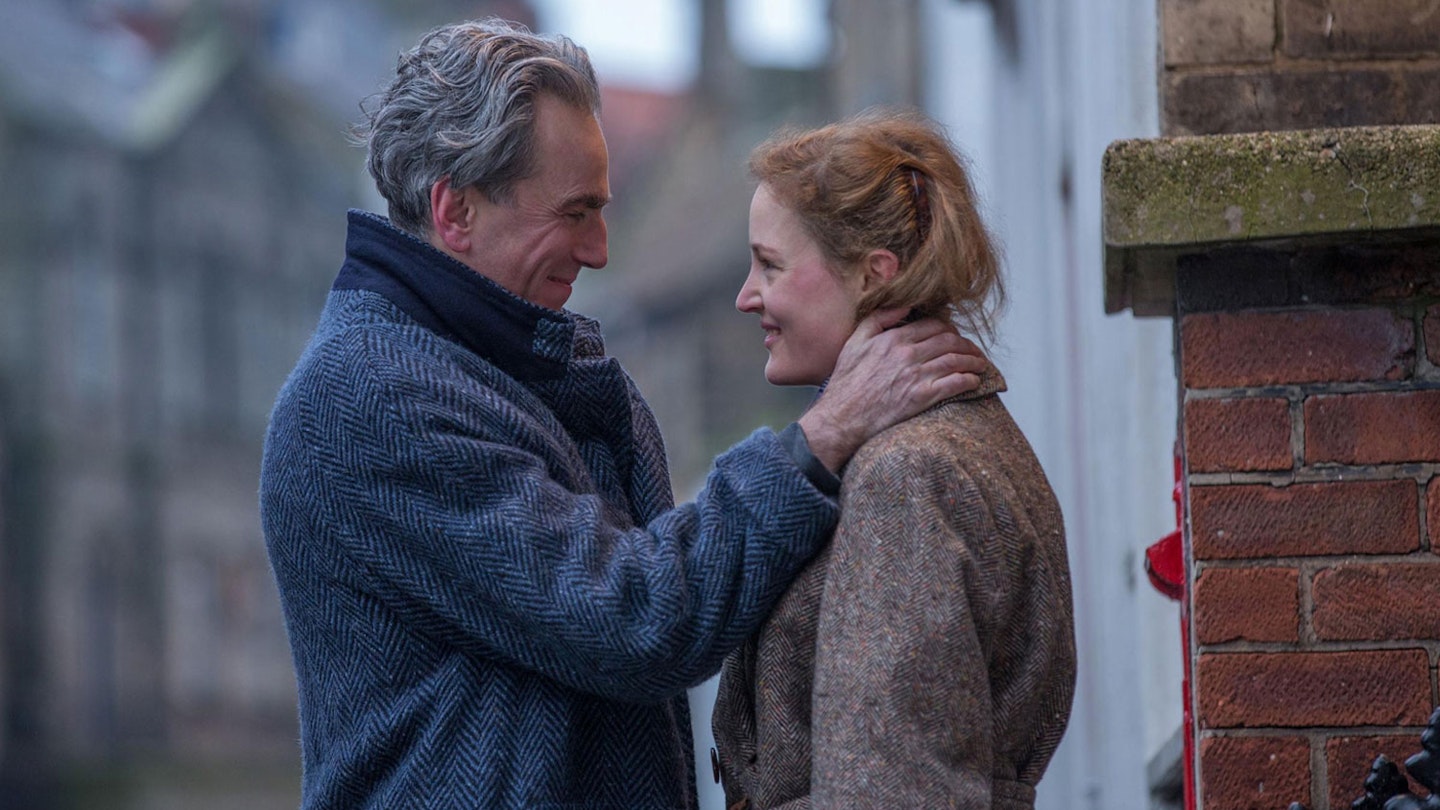 8 of 100
8 of 10093) Phantom Thread
2017If this really is Daniel Day-Lewis' swansong, what a film to go out on. His final Paul Thomas Anderson collaboration is an intoxicating film about what it means to be intoxicated by someone – as arch British couturier Reynolds Woodcock finds himself completely confounded by his new muse, Vicky Krieps' Alma. Their relationship begins as something achingly beautiful, Anderson's grainy analogue photography (he served as his own cinematographer) soaking in windswept vistas of the British countryside. But in its final act Phantom Thread becomes darker and more dangerous – demonstrating a fairytale fascination with toxic mushrooms, revelling in queasily-shifting power dynamics, all soundtracked by Jonny Greenwood's beguiling piano score. Visually lush, and surprisingly witty thanks to barbed dialogue exchanges between the exasperatingly fussy Woodcock and his overbearing sister Cyril (Lesley Manville).Read the Empire review.Buy now on Amazon.
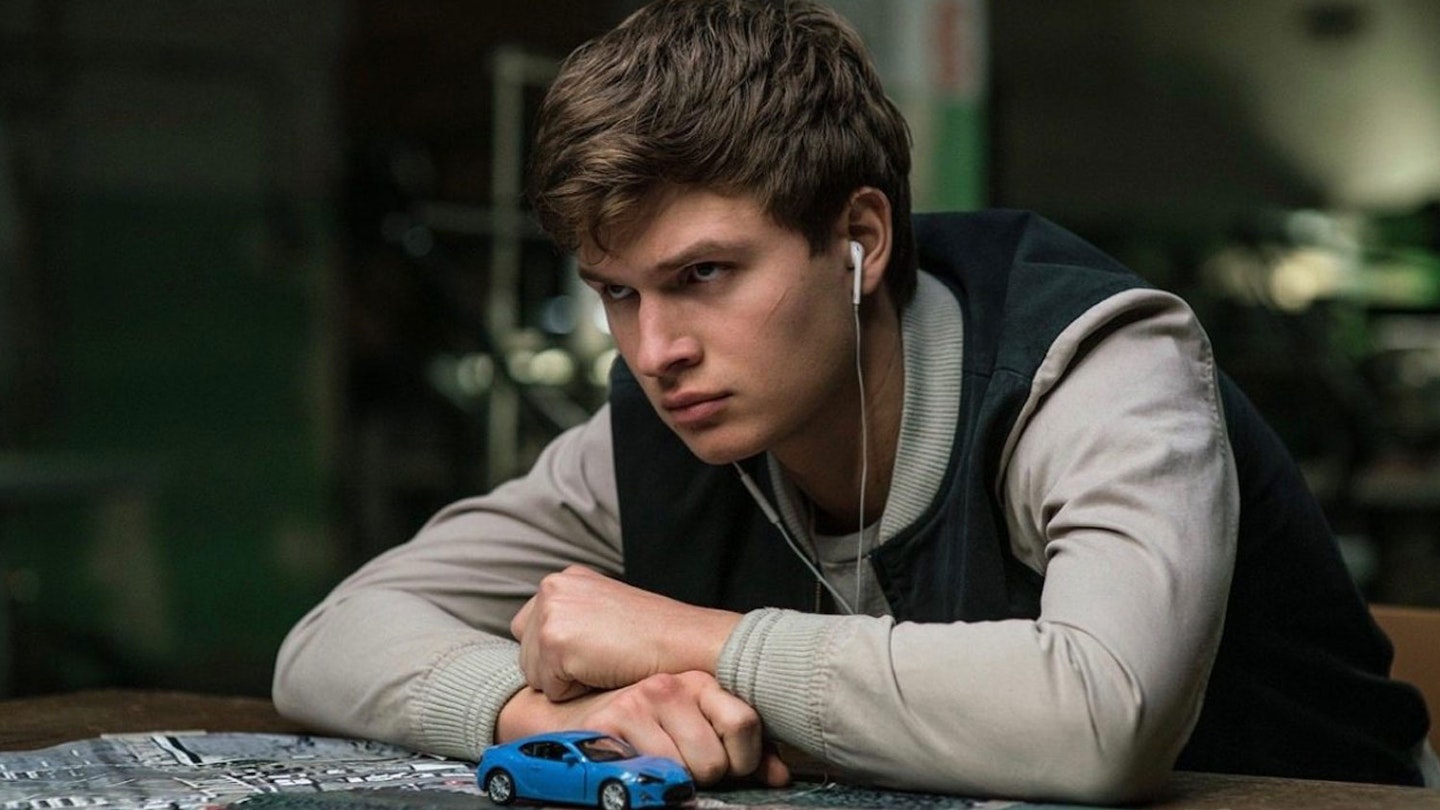 9 of 100
9 of 10092) Baby Driver
2017Edgar Wright never fails to deliver a killer soundtrack – and his heist-thriller Baby Driver is in total thrall to its stack of stellar tunes (courtesy of Jon Spencer Blues Explosion, The Damned, Run The Jewels and more). Throughout the film, Ansel Elgort's stoic getaway driver meticulously curates his own theme music on a series of iPods, with Wright shooting and editing to the beat – an added technical thrill to the adrenaline-fuelled vehicular action. As with all of Wright's films, Baby Driver is steeped in a love of genre – a car chase movie indebted to The Driver, a heist movie which lays out careful plans and lets them all go wrong, and a quasi-musical delivered through the eyes of its tune-obsessed hero. In many ways it's a love letter to the iPod itself – a gadget that defined the early 21st Century, marking a shift towards curated playlists over albums, itself near-defunct by the time Baby Driver roared onto the big screen in the streaming era.Read the Empire review.Buy now on Amazon.
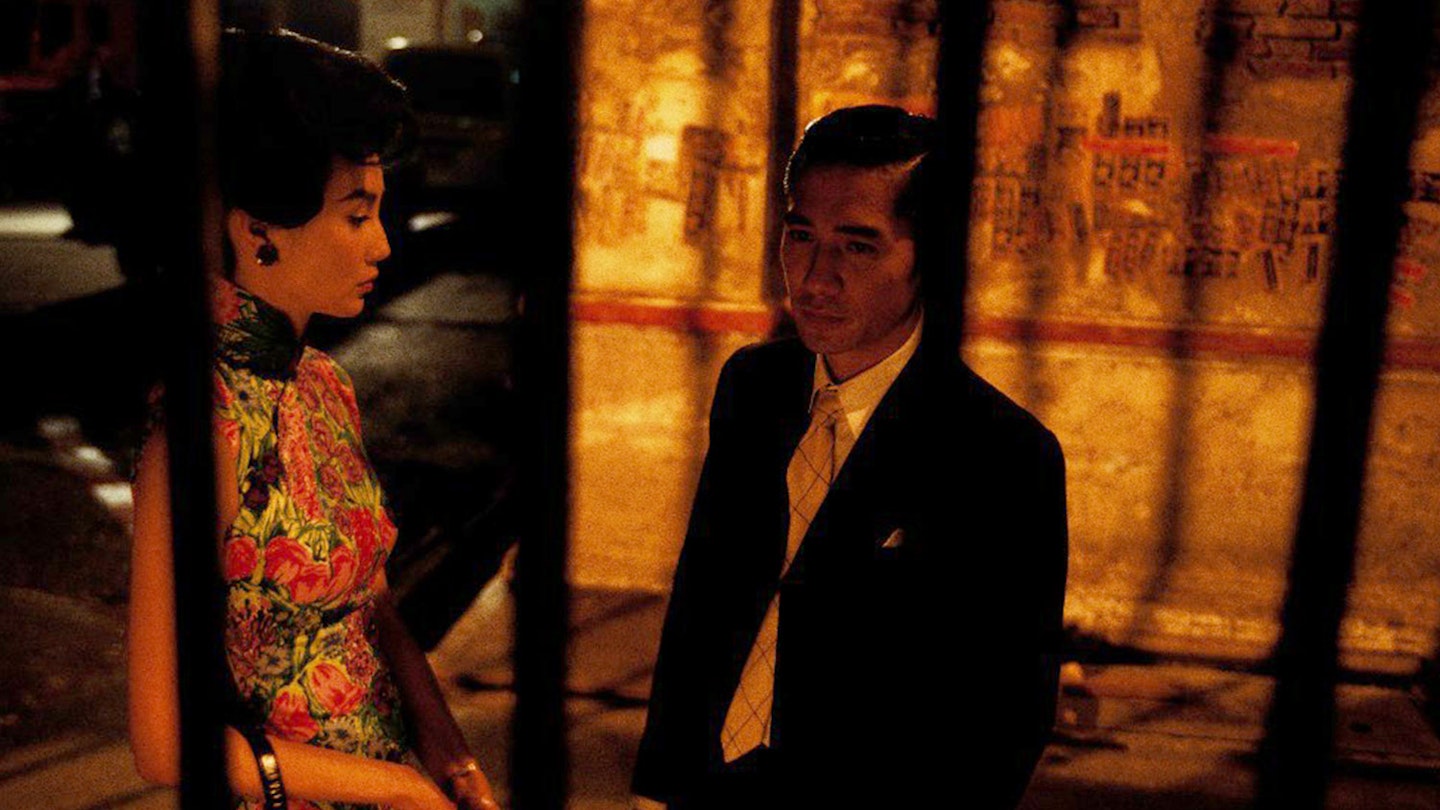 10 of 100
10 of 10091) In The Mood For Love
2000Wong Kar-Wai's Hong Kong-set romance is one of the most outright beautiful films ever made – boasting exquisite cinematography from Christopher Doyle and Mark Lee Ping Bin. Tony Leung and Maggie Cheung are the next-door neighbours who discover their partners are having affairs, and strike up their own connection, slowly developing feelings for each other. Filmed with painstaking precision over the course of 15 months – Wong set out with only a sketched-out script, creating some sequences on the fly, while Doyle had to depart the project when the schedule over-ran – it's an impeccably put-together mood-piece where even the tiniest moments matter. Achingly sad and mesmerisingly gorgeous, akin to Brief Encounter but with far fewer cups of tea, it's lost none of its power and remains the director's most transcendent creation.Read the Empire review.Buy now on Amazon.
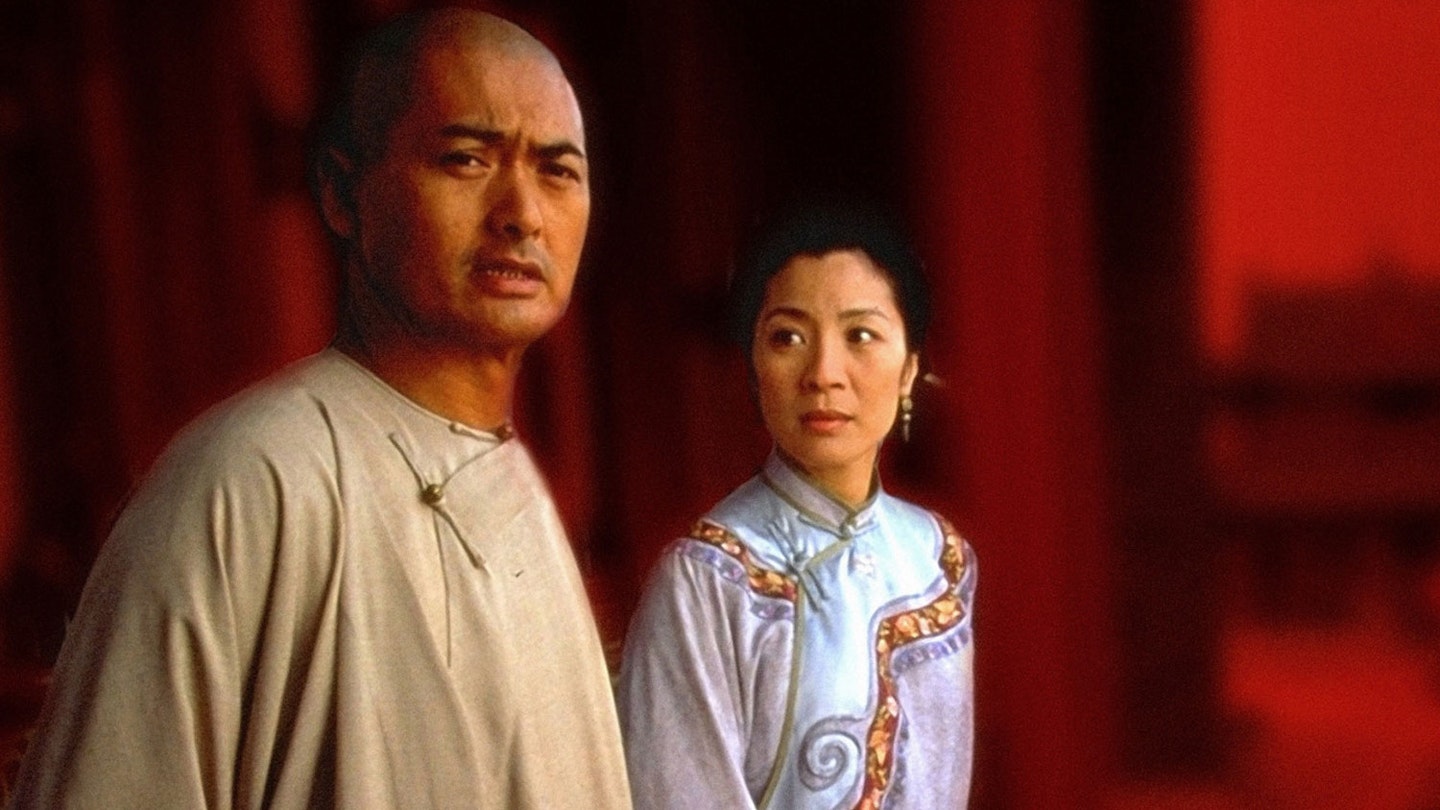 11 of 100
11 of 10090) Crouching Tiger, Hidden Dragon
2000The Matrix might have brought Chinese wire-fighting to mainstream American sci-fi, but it was Crouching Tiger, Hidden Dragon a year later, that made classic wuxia accessible to contemporary Western audiences. Before 2000, it was largely the preserve of lower video store shelves on clumsily-dubbed fuzzy VHS tapes. With Crouching Tiger, all that changed. A prestigious international co-production, it had a respected director in Ang Lee, gorgeous widescreen photography by Peter Pau, and was based on a classic Chinese novel for that extra literary credibility. The film's success paved the way for the equally spectacular and internationally successful likes of Zhang Yimou's Hero and House Of Flying Daggers. Chow Yun-Fat and Michelle Yeoh had both been paying their dues in mainstream Western action movies, but ironically it was returning to their Hong Kong heritage that gave both their biggest international hit.Read the Empire review.Buy now on Amazon.
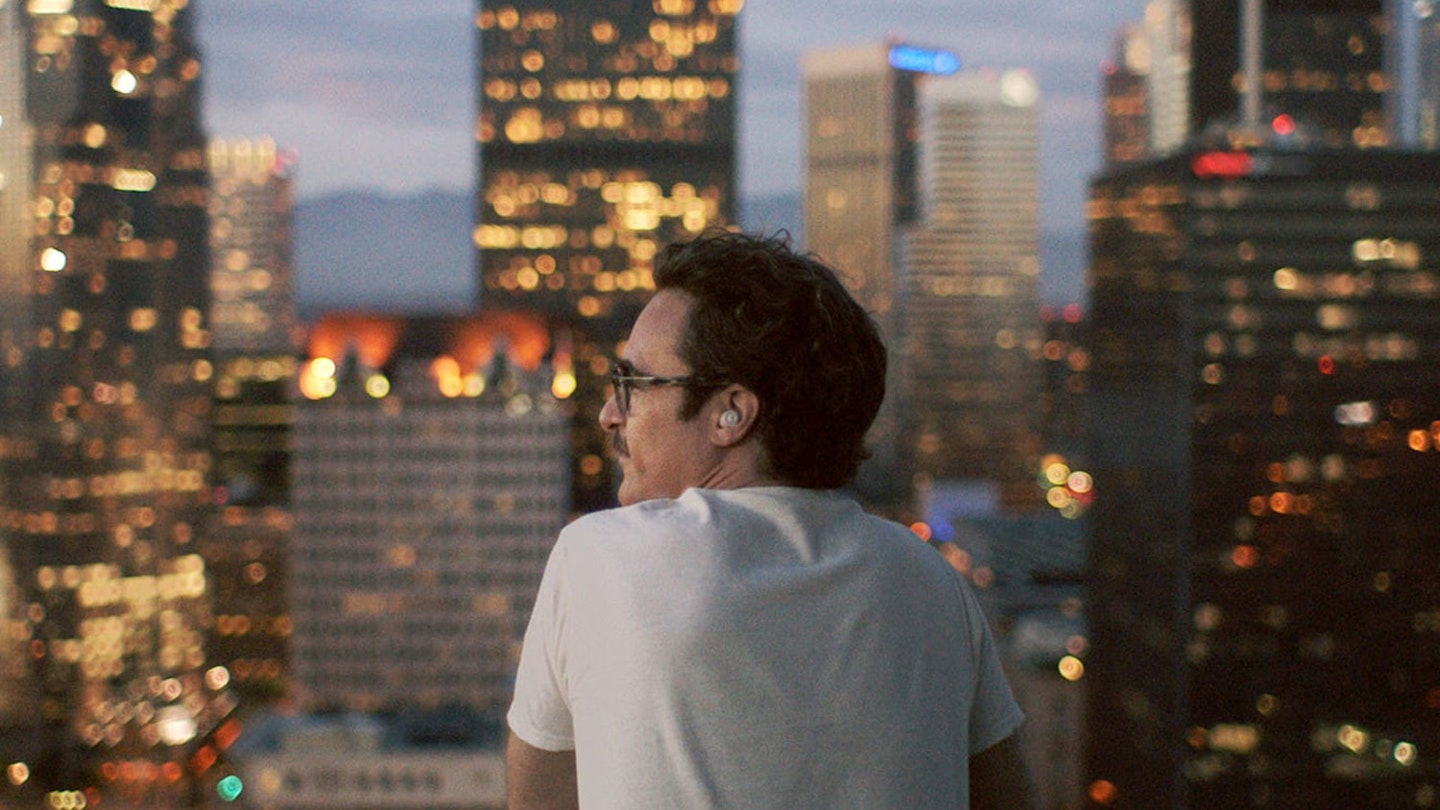 12 of 100
12 of 10089) Her
2013Pre-dating Alexa by more than a year, Her is a film that looks increasingly prescient as the new decade begins. Anchored in an affecting, deceptively complex performance from Joaquin Phoenix, it pivots on his interactions with invisible co-star Scarlett Johansson as the voice of digital assistant Samantha (one of a trilogy of post-human roles for Johansson, alongside Ghost In The Shell and Lucy). Perhaps Her's greatest strength is that you believe their relationship without question – with impressive sleight of hand, director Spike Jonze quickly and quietly establishes how that connection has become normalised within the near-future society of the film. As Theodore and Samantha grow together and then inexorably apart, it's a hard heart that wouldn't be moved by the plight of both characters.Read the Empire review.Buy now on Amazon.
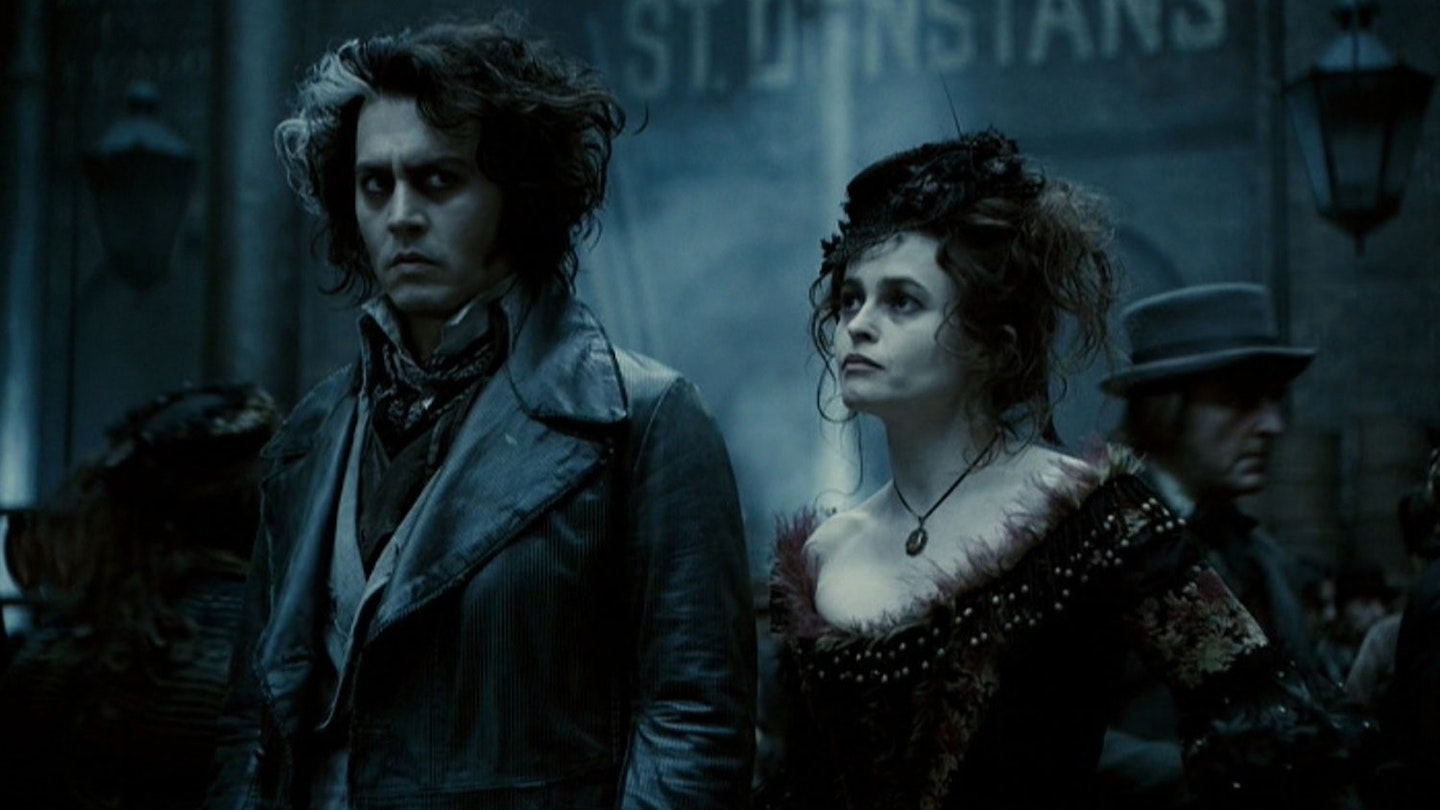 13 of 100
13 of 10088) Sweeney Todd: The Demon Barber Of Fleet Street
2007Long before the late-2010s cinematic musical revival, Tim Burton brought Stephen Sondheim's throat-slashing show to the big screen – allowing the spook-auteur to indulge both his goriest and most theatrical impulses. Recruiting his twin muses of Johnny Depp and Helena Bonham Carter as the Demon Barber and co-conspirator Mrs. Lovett, respectively, it's a uniquely Burtonian brew, an adaptation that refuses to compromise on the singing or the seriously graphic murders. Like Mrs. Lovett's pies, it's an acquired taste – but full of surprising pleasures, from the late, great Alan Rickman singing tender ditty 'Pretty Women', to Sacha Baron Cohen hamming it up as rival barber Signor Pirelli, all set against a stylised vision of Victoriana. At a time where Burton was focusing on more family-friendly fare like Charlie And The Chocolate Factory, Corpse Bride and Alice In Wonderland (all still imbued with his gothic flair), Sweeney Todd stands as a beautifully brutal addition to his catalogue – a fitting home for Sondheim's stirring songs.Read the Empire review.Buy now on Amazon.
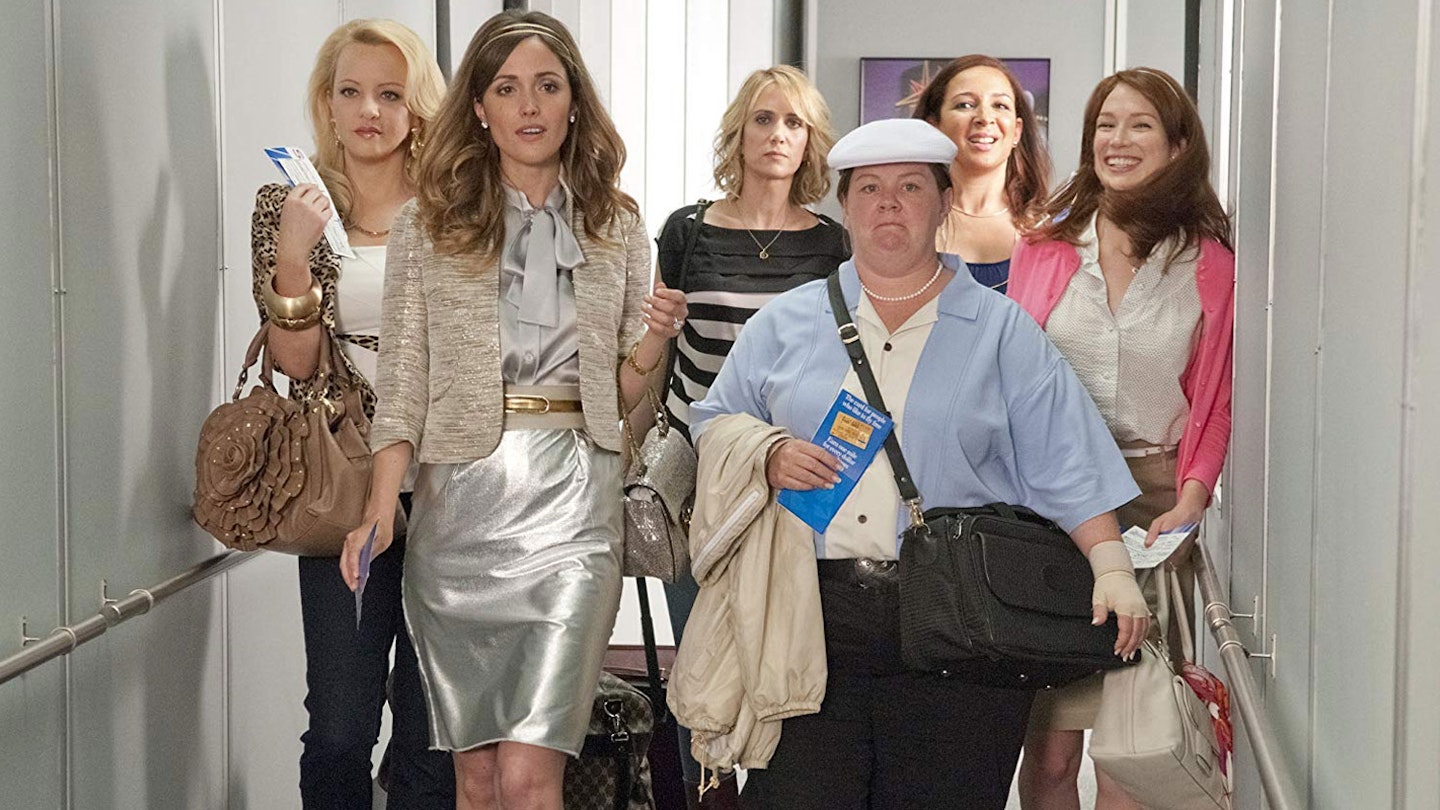 14 of 100
14 of 10087) Bridesmaids
2011It's easy to get caught up in the significance of Bridesmaids – how it proved, unequivocally, that Hollywood films led by female ensembles could be box office smashes, paving the way for the later success of Girls Trip, Pitch Perfect, Bad Moms and more. But the real marvel of Paul Feig's raucous comedy is the film itself – stuffed with riotous performances that made household names of Kristen Wiig, Maya Rudolph and Melissa McCarthy, delivering a nuanced depiction of female friendship studded with gross-out exploits typically reserved for bro-focused frat-fare. Whether it's the sight of bride Lillian shitting herself in the street in a wedding dress or Wiig's maid of honour Annie drugged up and Nazi-saluting on a plane, Feig's film broke the mould of what a female-centric comedy could be – and offered up deeply flawed characters you can't help but love.Read the Empire review.Buy now on Amazon.
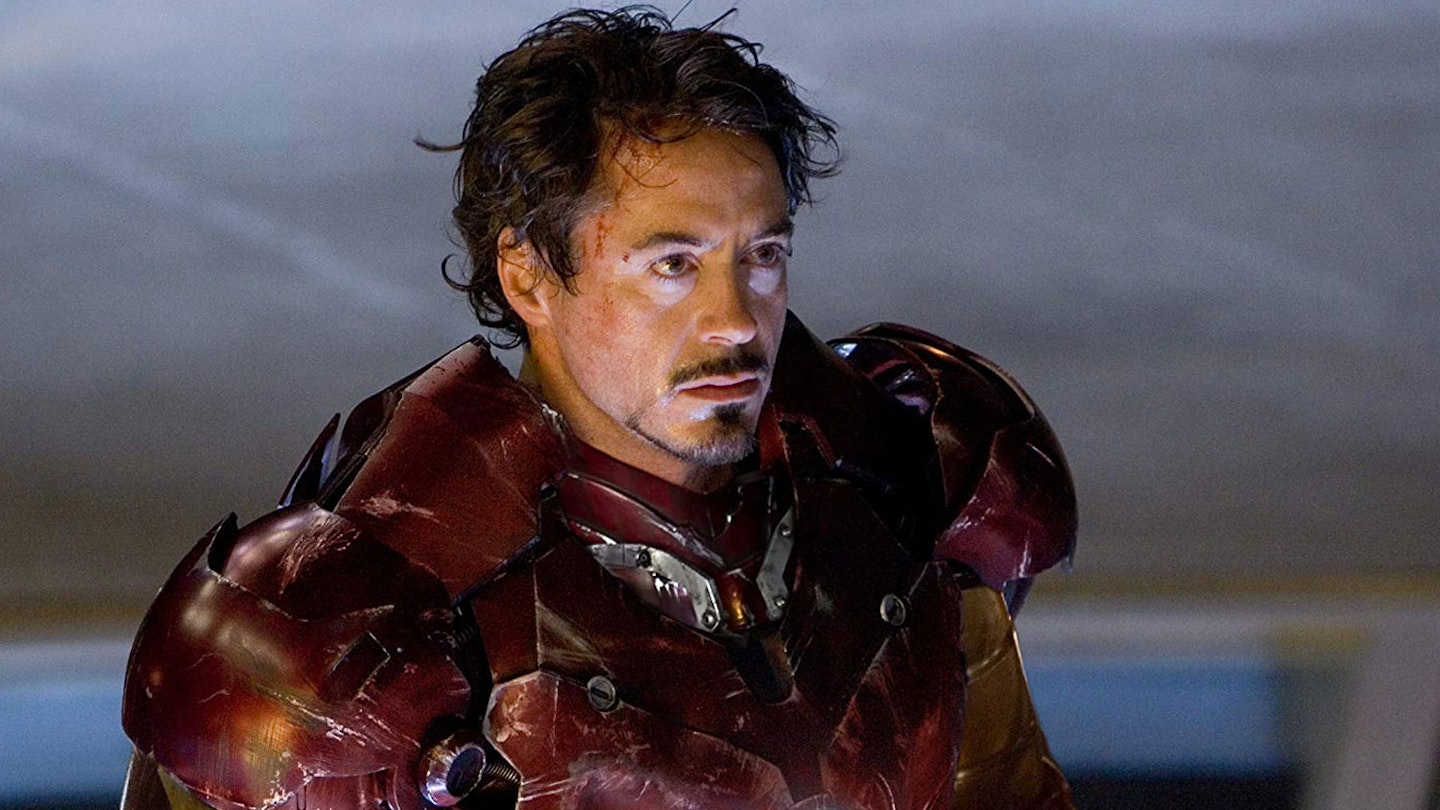 15 of 100
15 of 10086) Iron Man
2008These days, Iron Man is remarkable as the starting point of the MCU – the most significant new film series of the 21st Century, a box office behemoth that racked up 23 movies in a span of 12 years. On its own terms, it presented a whole new type of superhero origin story – one devoid of literal superpowers, instead focusing on an American industrialist arms dealer turned self-made hero, captured by Middle Eastern terrorists at a time when the Iraq War was still ongoing. While it went on to spawn a mega-franchise, Iron Man is a perfectly satisfying one-off, presenting a full-circle redemptive arc for Tony Stark – a hero not as darkly brooding as Bruce Wayne, nor as clean-cut as Superman or Peter Parker. It was redemptive, too, for Robert Downey Jr. – the former Hollywood wild-child proving himself a bonafide 21st Century movie star, imbuing Stark with his own mile-a-minute speech patterns and himself emerging heroically from a history of self-destructive behaviour. A fascinating counterpoint to 2008's other monolithic comic book movie (you know the one).Read the Empire review.Buy now on Amazon.
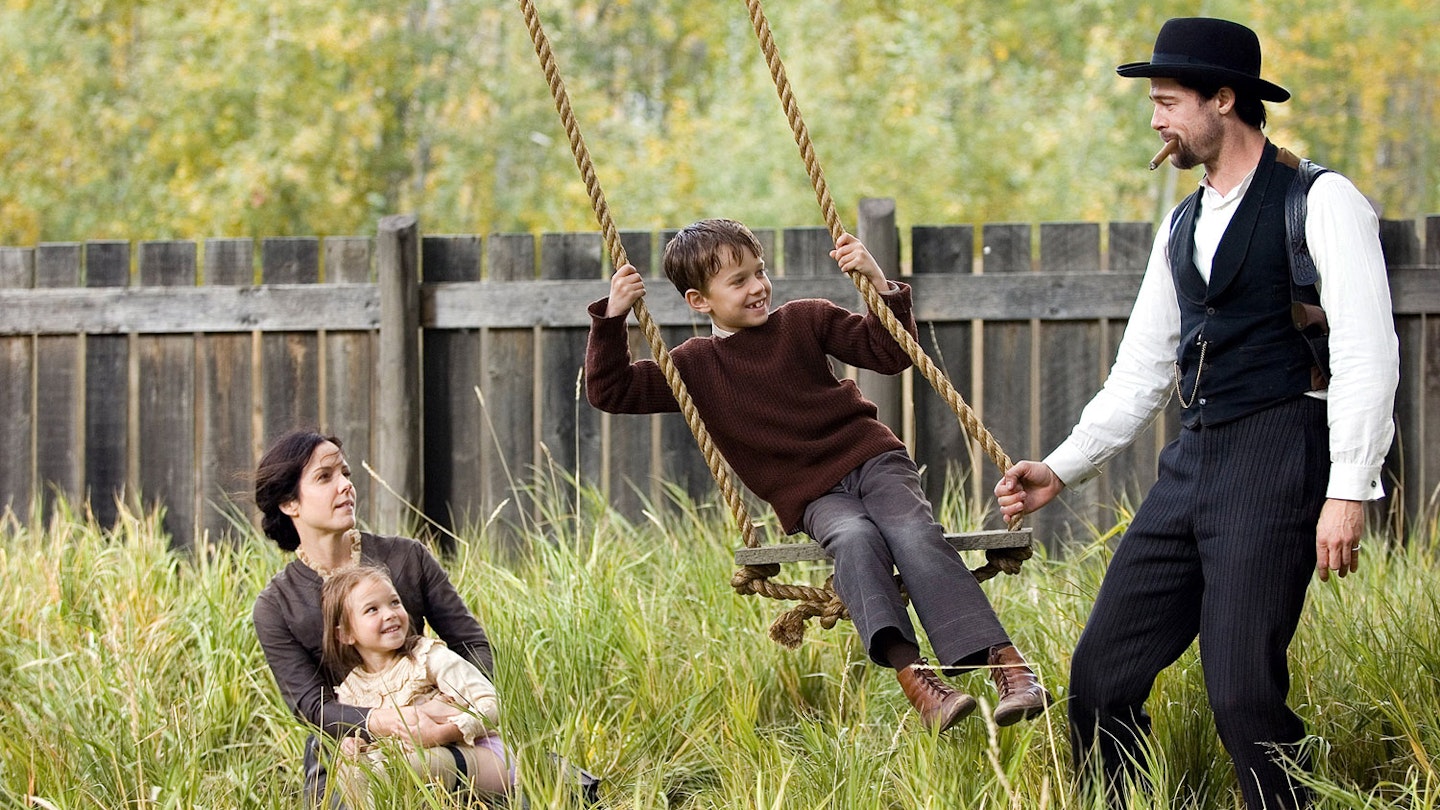 16 of 100
16 of 10085) The Assassination Of Jesse James By The Coward Robert Ford
2007For a while, it looked like the Western was dead. If the genre post-Unforgiven was largely tumbleweed, that all changed with the beginning on the '00s indie-Western revival. The ballad of Jesse James had been sung on film before – notably in Walter Hill's rip-roaring The Long Riders in 1980 – but rarely had it been given such dramatic heft as in Andrew Dominik's adaptation of Ron Hansen's elegiac novel. Brad Pitt brings star power and serious dramatic chops to the title role, while Casey Affleck ensures that, while you may not like Ford, you at least understand him. Roger Deakins' typically gorgeous photography is the perfect correlative for the book's languid prose; Nick Cave and Warren Ellis provide a beautiful, organic score, and while The Assassination measures its length across a leisurely three hours of screen time, it never drags. When the film occasionally roars into action – as in a stunning, lamp-lit train robbery sequence, for example – it astonishes.Read the Empire review.Buy now on Amazon.
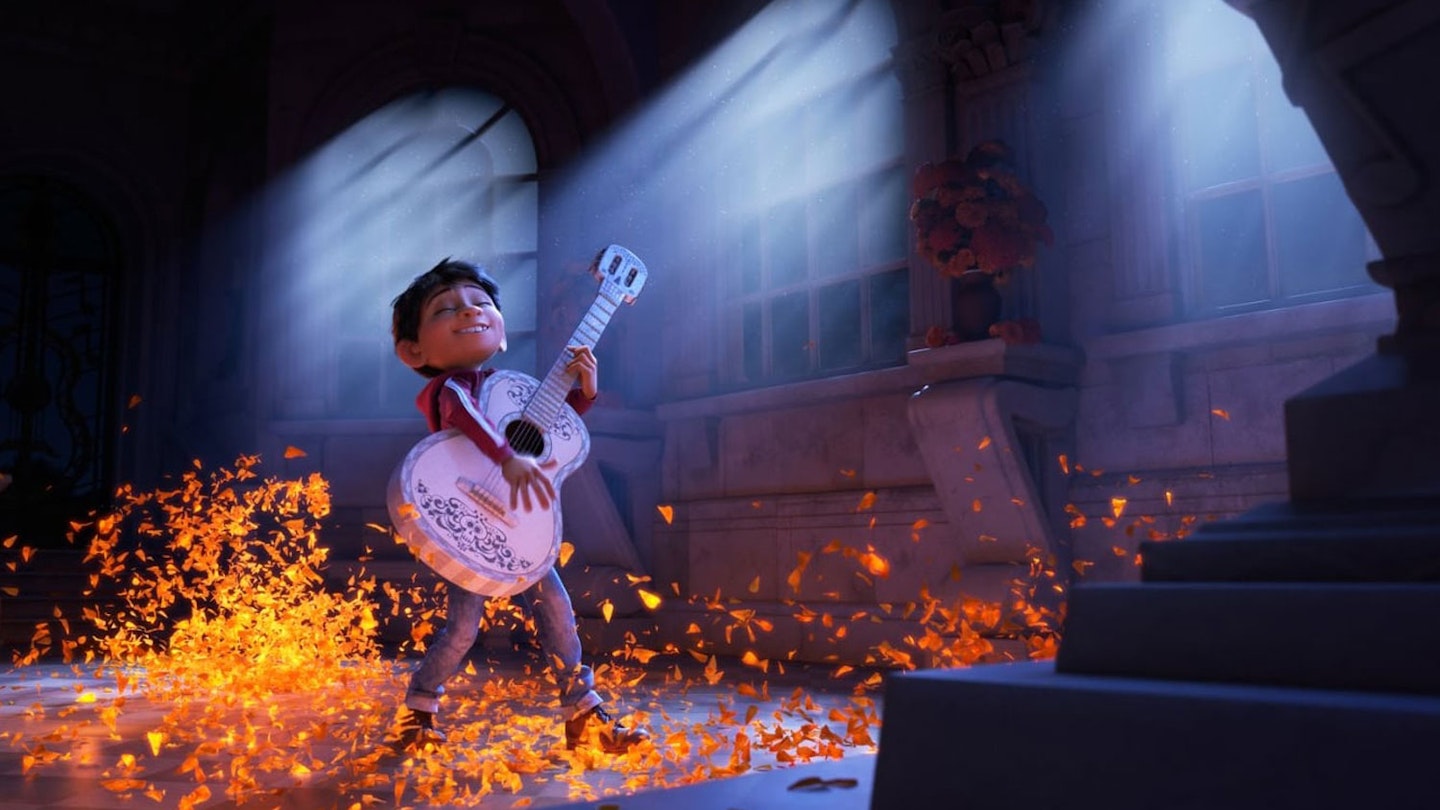 17 of 100
17 of 10084) Coco
2017In the year that the Trump presidency began, Pixar unveiled its deeply human – and humanising – depiction of a Mexican family. Every inch of Coco is steeped in the beauty of Mexican culture, from the richly detailed neighbourhood of Santa Cecilia to the eye-popping Land Of The Dead – the chosen playground for a typically-Pixar adventure, as melodically-gifted youngster Miguel searches for his musical idol Ernesto de la Cruz on Día de Muertos. To say that it's one of Pixar's most astonishing visual creations is no mean feat – just look at the glowing orange flower-bridge that connects the lands of the living and the dead, or the skeletal faces hidden everywhere in the vast underworld. It also, impressively, stakes a claim as one of the studio's most emotional works – as Miguel reunites with past generations and uncovers tragic secrets, Coco is an all-ages movie that deals sensitively and maturely with death and dementia. It's an ode to the power of music, memory, and family all in one – just try listening to 'Remember Me' without bursting into tears.Read the Empire review.Buy now on Amazon.
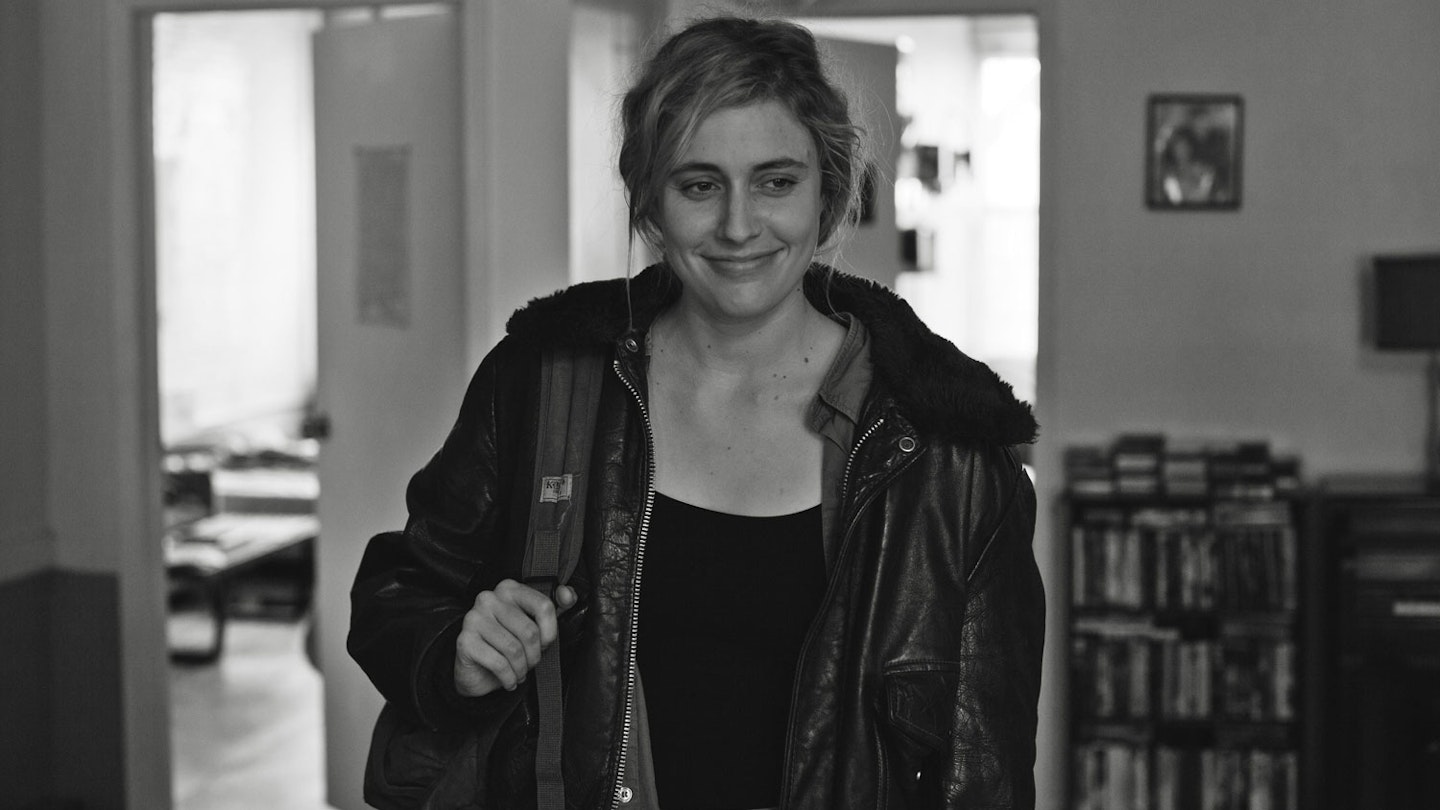 18 of 100
18 of 10083) Frances Ha
2012Greta Gerwig's second collaboration with Noah Baumbach was her breakthrough moment – as star and co-writer of Frances Ha, she cemented herself as an endearing new voice in American indie cinema. An utterly charming, sweetly awkward depiction of 20-something New York life in the 21st Century, Frances Ha packs so much into its sub-90-minute runtime – the joy and paralysis of freewheeling into adult life, the way long-standing friendships are challenged post-adolescence, the rootlessness of contemporary big-city life for generation rent. It wears its influences on its sleeve – black-and-white photography indebted Woody Allen's Manhattan, a joyous 'Modern Love' sequence homaging Leos Carax's Mauvais Sang –but feels entirely of the moment too. That's partly thanks to Gerwig herself, whose engaging, gently witty performance feels so distinct, bolstered by the big-screen arrival of Adam Driver. Funny-Ha, and peculiar-Ha.Read the Empire review.Buy now on Amazon.
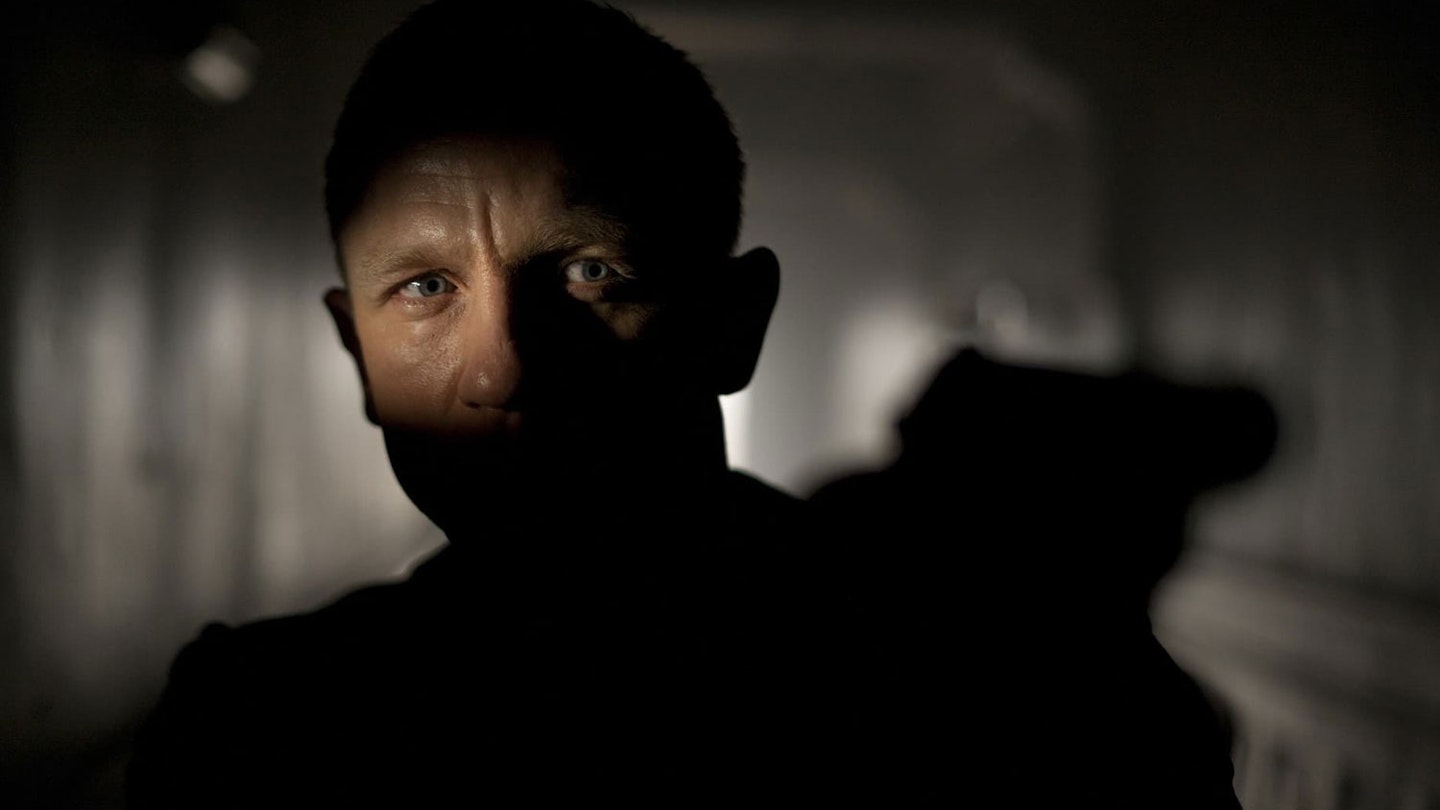 19 of 100
19 of 10082) Skyfall
2012After the raw reinvention of Casino Royale and the Writers' Strike-afflicted Quantum Of Solace came the billion-dollar Bond. A soft-reboot in the middle of Daniel Craig's tuxedo tenure, Skyfall was both an evolution of the gritty post-Bourne 007, and a 50th anniversary celebration of the franchise's legacy. Under Sam Mendes' stewardship it feels more authored than Bonds of yore – a symptom of the post-Dark Knight blockbuster landscape where action franchise filmmaking became weightier, attracting celebrated dramatic directors. The result is a James Bond film that balances adrenaline-pumping action (the opening car chase-turned-shootout-turned-rooftop-bike-chase-turned-train-brawl is a belter) with thematic explorations of what Bond means in the 21st Century. Plus, it introduced new incarnations of Moneypenny and Q that already feel central to the Craig era, gave an emotional farewell for Judi Dench's M, and delivered a menacing villain in Javier Bardem's Raoul Silva.Read the Empire review.Buy now on Amazon.
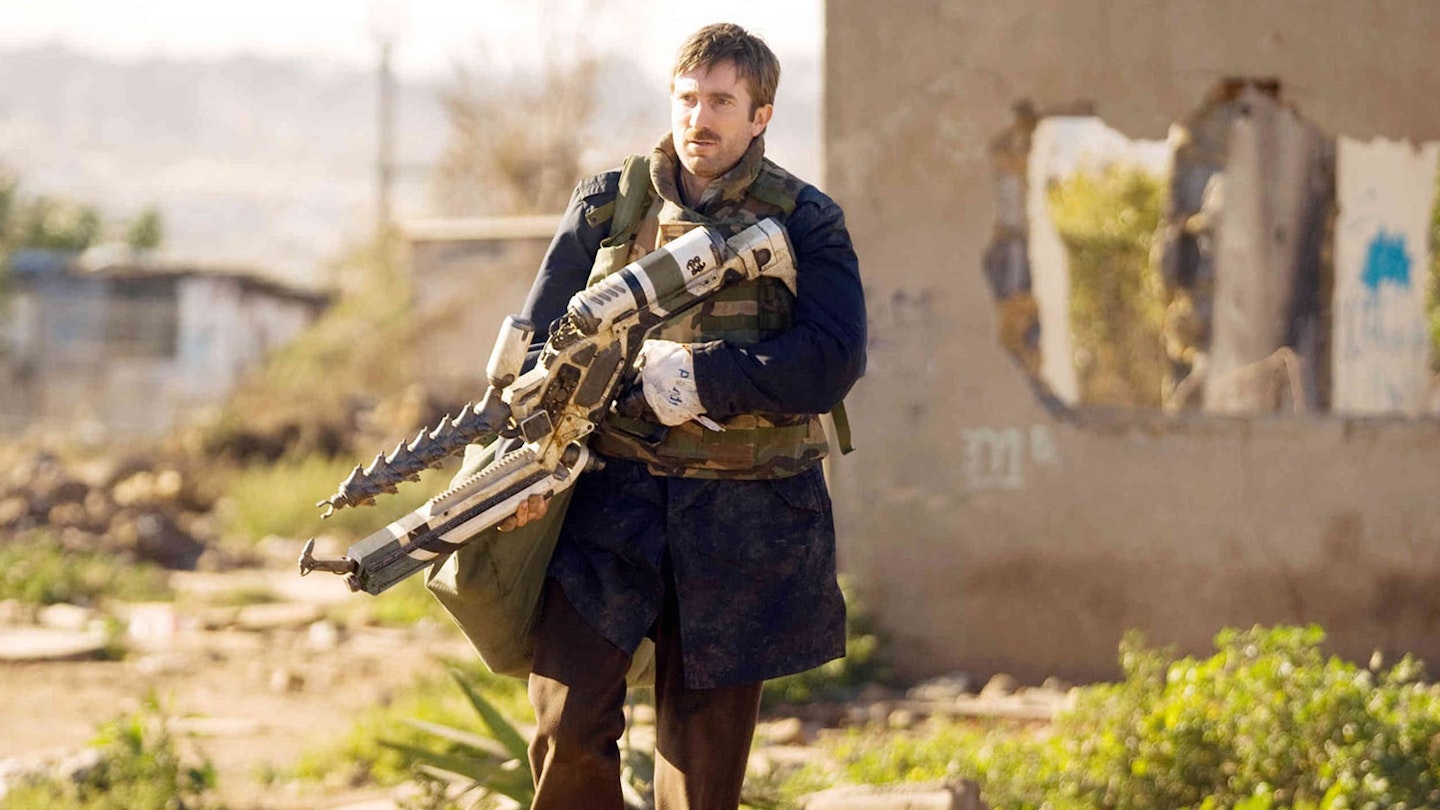 20 of 100
20 of 10081) District 9
2009With his feature debut, South African filmmaker Neill Blomkamp translated apartheid segregation into a science-fiction action movie – where alien 'prawns' are restricted to refugee camps after their ship lands in the skies over Johannesburg. Picking up 20-plus years on from the extra-terrestrial arrival, Blomkamp avoids invasion tropes to focus on the after-effects of first contact – lent a visual grit in a combination of faux-documentary clips, CCTV footage, and handheld cinematography. Its parallel universe feels lived-in, with futuristic technology that's worn and rusty – a tangible, visceral texture that extends to moments of stomach-churning body horror as Sharlto Copley's bureaucratic desk-jockey has a transformative experience following a camp raid. For all its social commentary, District 9 doesn't skimp on action – mech battles, gravity guns, exploding pigs and all. Arriving before the superhero boom really took hold, it stands as a rare original 21st Century summer blockbuster – and, even rarer, a mainstream international action movie that also bagged a Best Picture nomination at the Oscars. That'll do, prawns. That'll do.Read the Empire review.Buy now on Amazon.
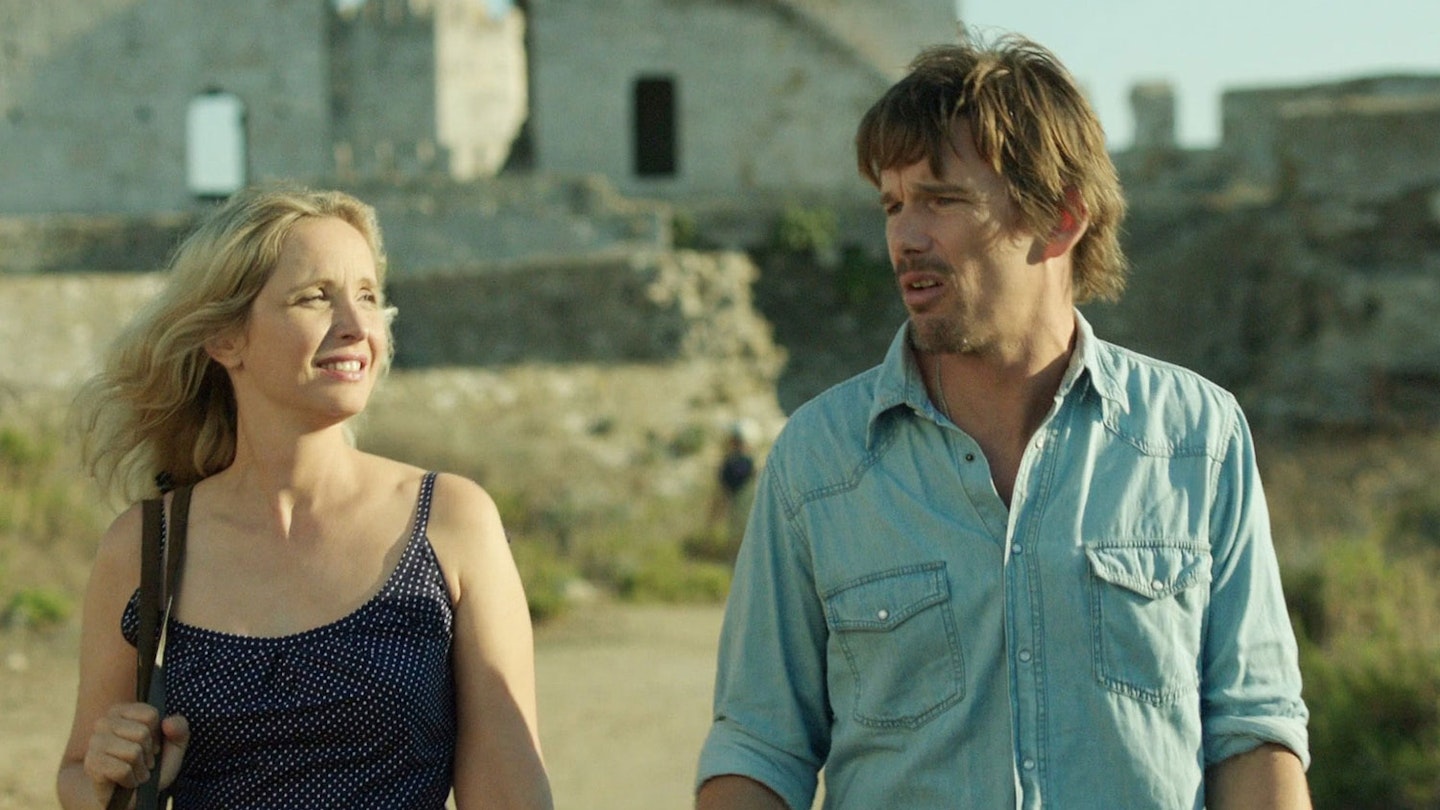 21 of 100
21 of 10080) Before Midnight
2013Richard Linklater's third date with Jesse (Ethan Hawke) and Celine (Julie Delpy) is a slightly sharper-edged affair than the Gen-X brief encounter of Before Sunrise and its nine-years-later follow-up Before Sunset. Now in their 40s and raising daughters, the couple have settled into a borderline-fractious routine: the business not of falling in love, but of staying there. There's irritability beneath the badinage this time, even if there's warmth in the gorgeous Mediterranean setting: another example of the trilogy picking at relationship knots in sun-kissed surroundings. But Jesse and Celine remain one of the most likeable couples in modern cinema, and the commitment of the co-leads and co-writer/director Linklater to keep revisiting this partnership and focus on its flaws as much as its fluffiness, remains fascinating and impressive. Each sequel seemed like a risk – but both earned our affection.Read the Empire review.Buy now on Amazon.
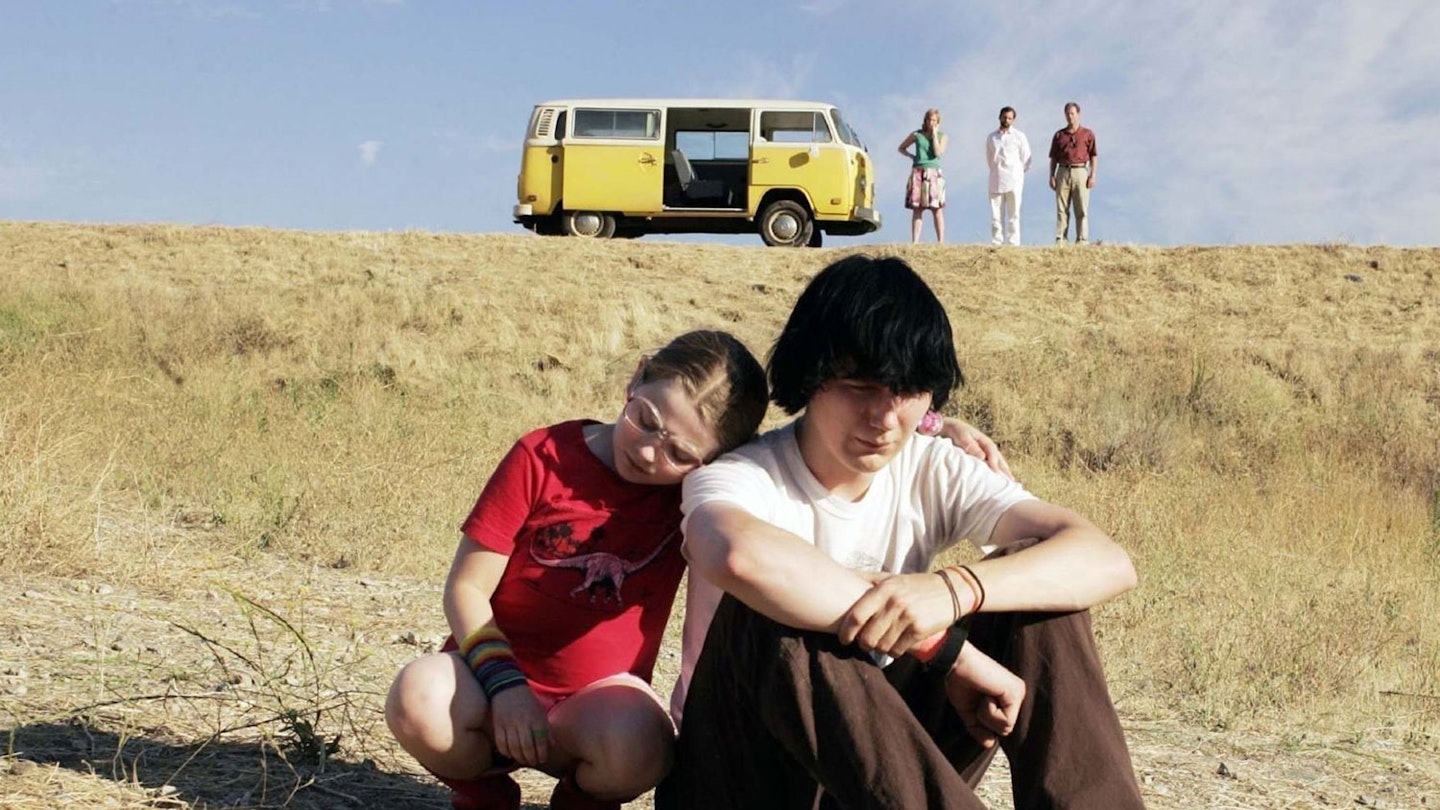 22 of 100
22 of 10079) Little Miss Sunshine
2006A quintessential Sundance hit, Little Miss Sunshine stands tall among the '00s American indie crossover scene – an off-beat character comedy-drama that became an unashamed crowd-pleaser among mainstream audiences. If the characters who cram themselves into the film's iconic bright yellow VW camper van to reach a kids' beauty pageant in California are complex – Steve Carell's suicidal Proustian scholar, Paul Dano's speech-averse wannabe-pilot, Alan Arkin's foul-mouthed grandad – its plot is anything but. Little Miss Sunshine is a straight-up road movie, forcing a dysfunctional, unconventional family into close confinement to hash out their issues. The bumps in the road on the 800-mile trip are unconventional – corpse smuggling, colour blindness test-induced freak-outs – but it all wraps up with a cathartic, hilarious pageant finale that soothes the explosive emotional eruptions along the way, sealed with a big-hearted performance from youngster Abigail Breslin.Read the Empire review.Buy now on Amazon.
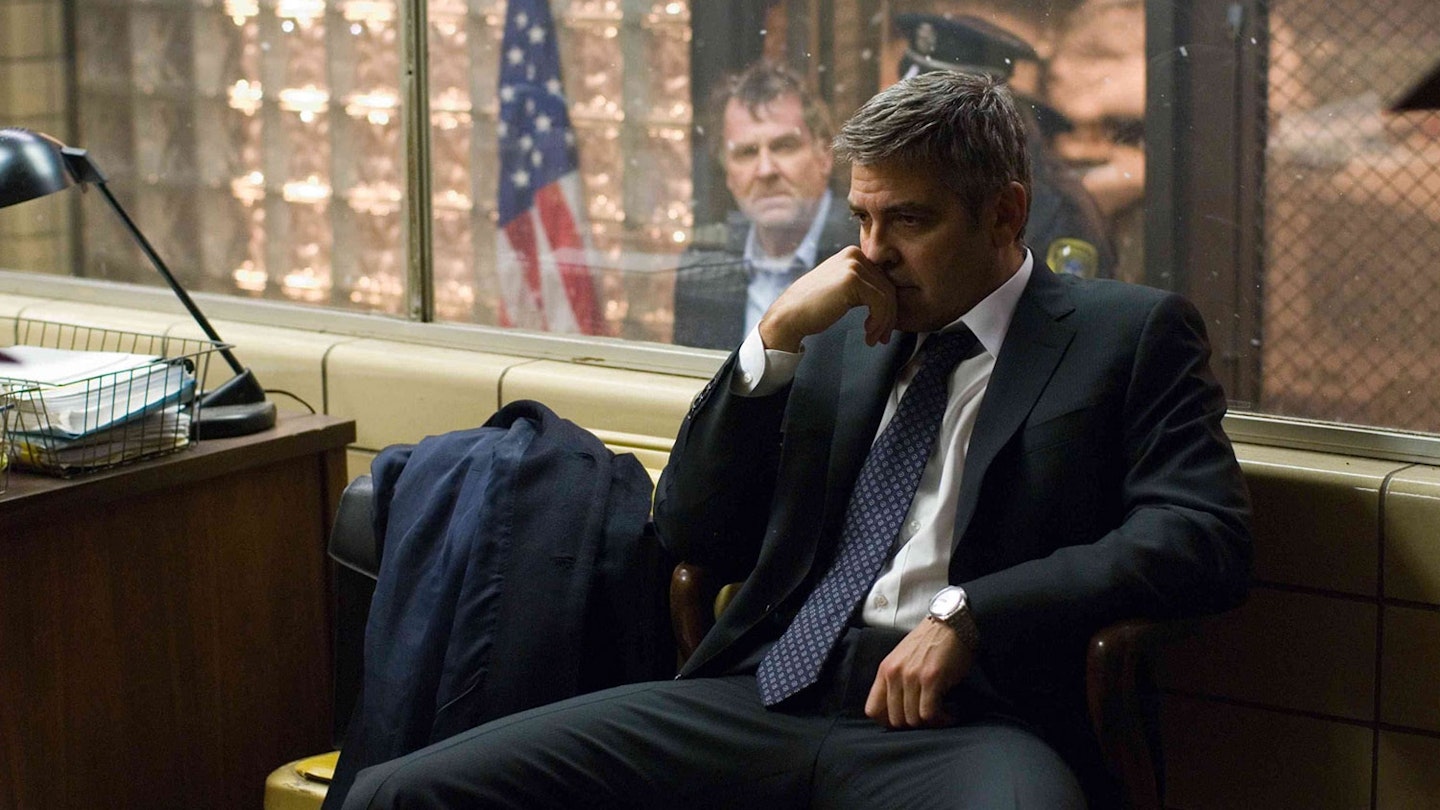 23 of 100
23 of 10078) Michael Clayton
2007This thorny drama of legal and corporate espionage effortlessly balances thriller beats with deep character studies, anchored in three arguably career-best performances from George Clooney, Tilda Swinton and Tom Wilkinson. Bourne screenwriter Tony Gilroy's directorial debut proved he could be as effective working with actors as sitting alone at a word processor (Denzel Washington, wary of a first-timer behind the camera, turned the film down but later acknowledged his mistake). Clooney is the suave but exhausted "fixer" at its centre, struggling to hold together as things fall apart around him. Wilkinson and Swinton get to cut loose a bit more as characters both unravelling in their different ways – the latter deservedly taking home an Oscar for her layered portrayal of a powerful woman both battling imposter syndrome, and becoming increasingly overwhelmed by the spiralling situation around her.Read the Empire review.Buy now on Amazon.
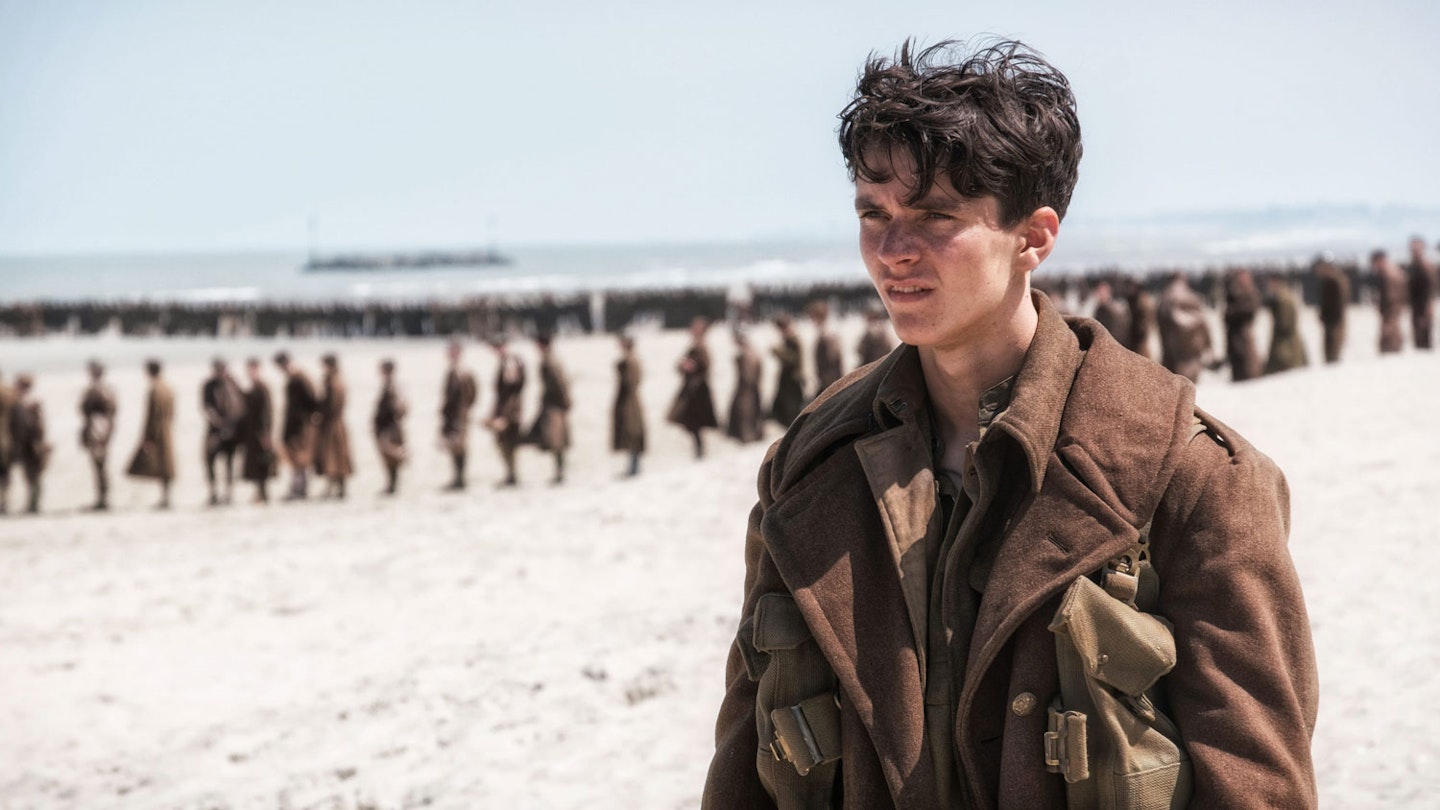 24 of 100
24 of 10077) Dunkirk
2017Even with his true-story war movie, Christopher Nolan couldn't help twiddling with time. Dunkirk is one of his simplest films – a 100-minute survival drama with a literal ticking clock in Hans Zimmer's tick-tocking score – lent an extra narrative frisson from a multi-stranded telling. Presenting several perspectives of the rescue mission that saw a rag-tag fleet of British civilian boats save thousands of stranded soldiers at Dunkirk, Nolan places us on the ground with a group of young privates, in the air with the RAF, and at sea with Mark Rylance in a sweater – each thread unfolding in different time frames that eventually lock together like a finely-tuned watch. Among a cast of Nolan favourites – Tom Hardy, Kenneth Branagh, Cillian Murphy – the stranded soldiers were largely-unknowns (plus Harry Styles in his screen debut), only adding to the unpredictability. A bone-rattling exercise in tension that engages your brain as well as your adrenaline gland.Read the Empire review.Buy now on Amazon.
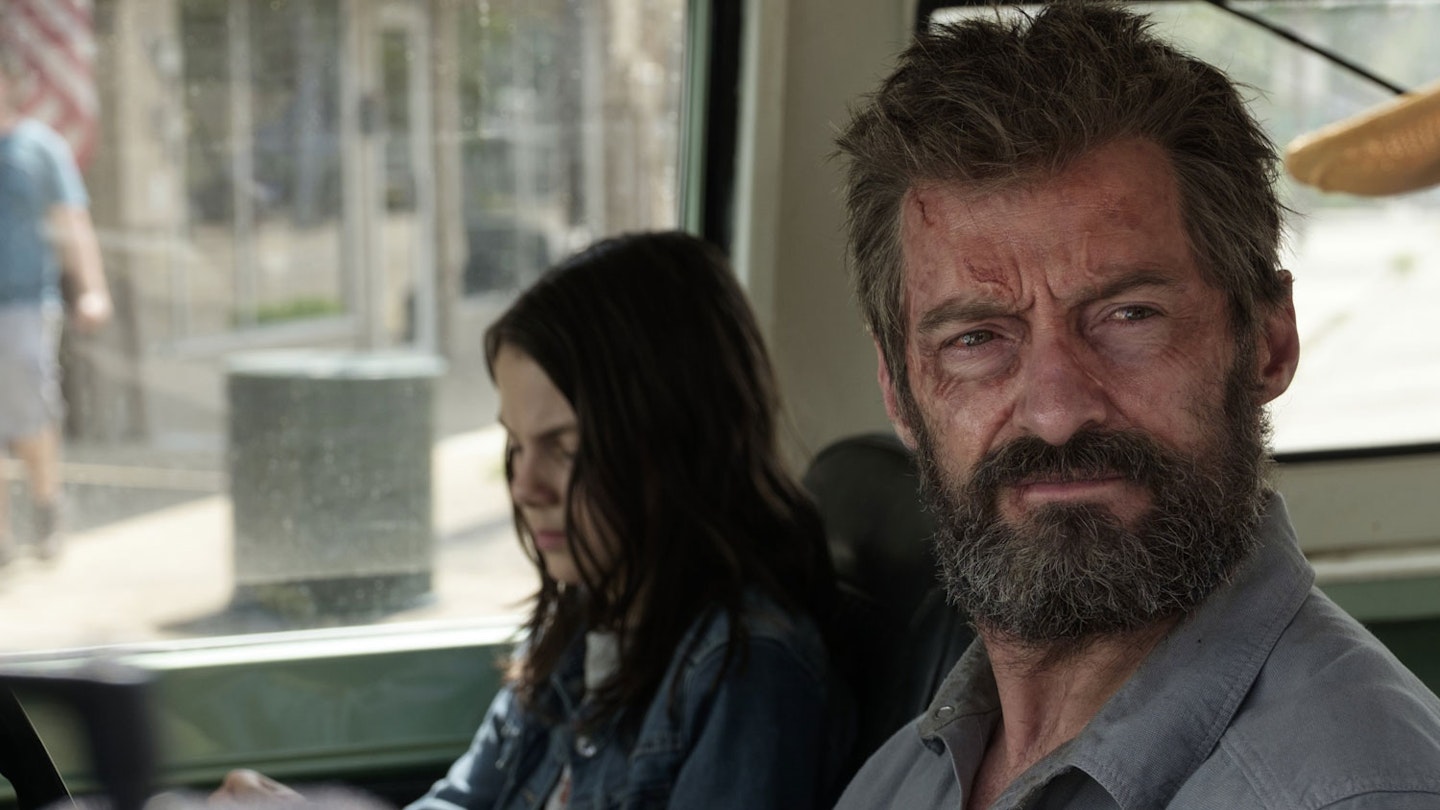 25 of 100
25 of 10076) Logan
2017Two years before Avengers: Endgame, James Mangold delivered an emotional farewell to the other comic book mainstay of 21st Century cinema – Hugh Jackman's sometimes-X-Man, Wolverine. Titling the Adamantium-plated mutant's final film after his human name is a statement of intent – Logan is a wounded, elegiac swansong inspired more by the era of classic Westerns than the superhero stories that similarly overwhelmed Hollywood in recent decades. Taking cues from the 'Old Man Logan' comic book run, Mangold's film skips ahead to a bleak, dusty future – with a grey-haired Logan, healing powers dwindling, living in self-imposed solitude and caring for a dementia-afflicted Charles Xavier. Forced to face his own violent past and made an unwitting guardian of twin-clawed youngster X-23 (an incredibly impressive Dafne Keen), Logan is thematically prescient with a plot that hinges on a plot to cross the Mexican border, bolstered by wince-worthy R-rated scraps made possible in a post-Deadpool box office landscape.Read the Empire review.Buy now on Amazon.
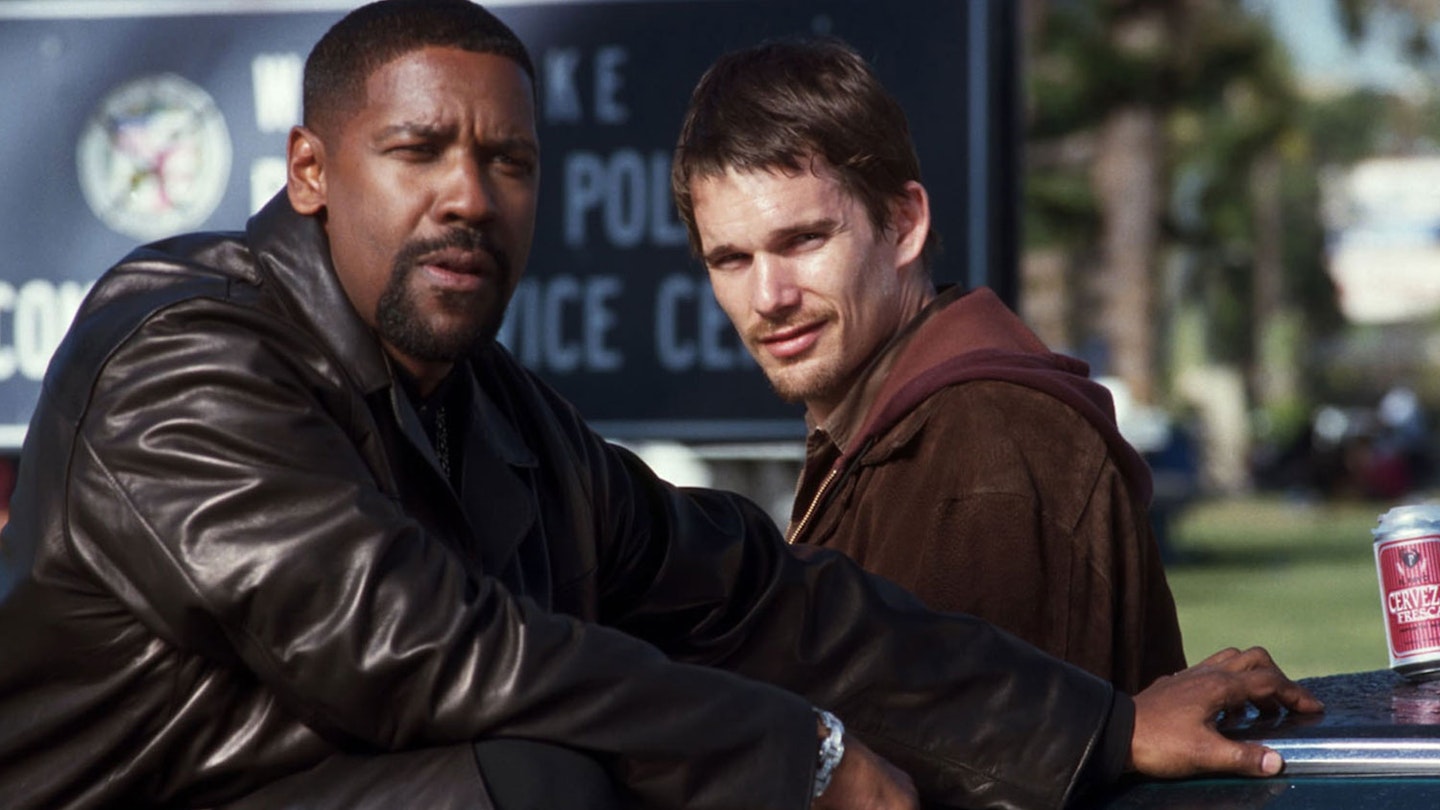 26 of 100
26 of 10075) Training Day
2001"Rookies. Yeah, you wanna get shit done, you gotta get it done yourself," snarls Denzel Washington's Alonzo as he blasts a hole through Scott Glenn's abdomen. It's a rude awakening for idealistic new guy Jake (Ethan Hawke), just as the film was for all of us. Training Day blindsided everybody – a cop thriller with meaty genre chops and brutal bits of trauma, it quickly became the yardstick for rookie stories. It was a gamechanger for Hawke – he has since said that he felt he was washed up before Training Day gave him a second act as a heavyweight dramatic player, getting a Best Supporting Oscar nomination for his work, while Washington, all roaring, righteous fury, deservedly won for Best Actor. Almost too tense for human hearts, Training Day is everyone at their best, giving us, by far, David Ayer's best script and Antoine Fuqua's best film – the subsequent work of both would be compared to this. It's a lot to live up to.Read the Empire review.Buy now on Amazon.
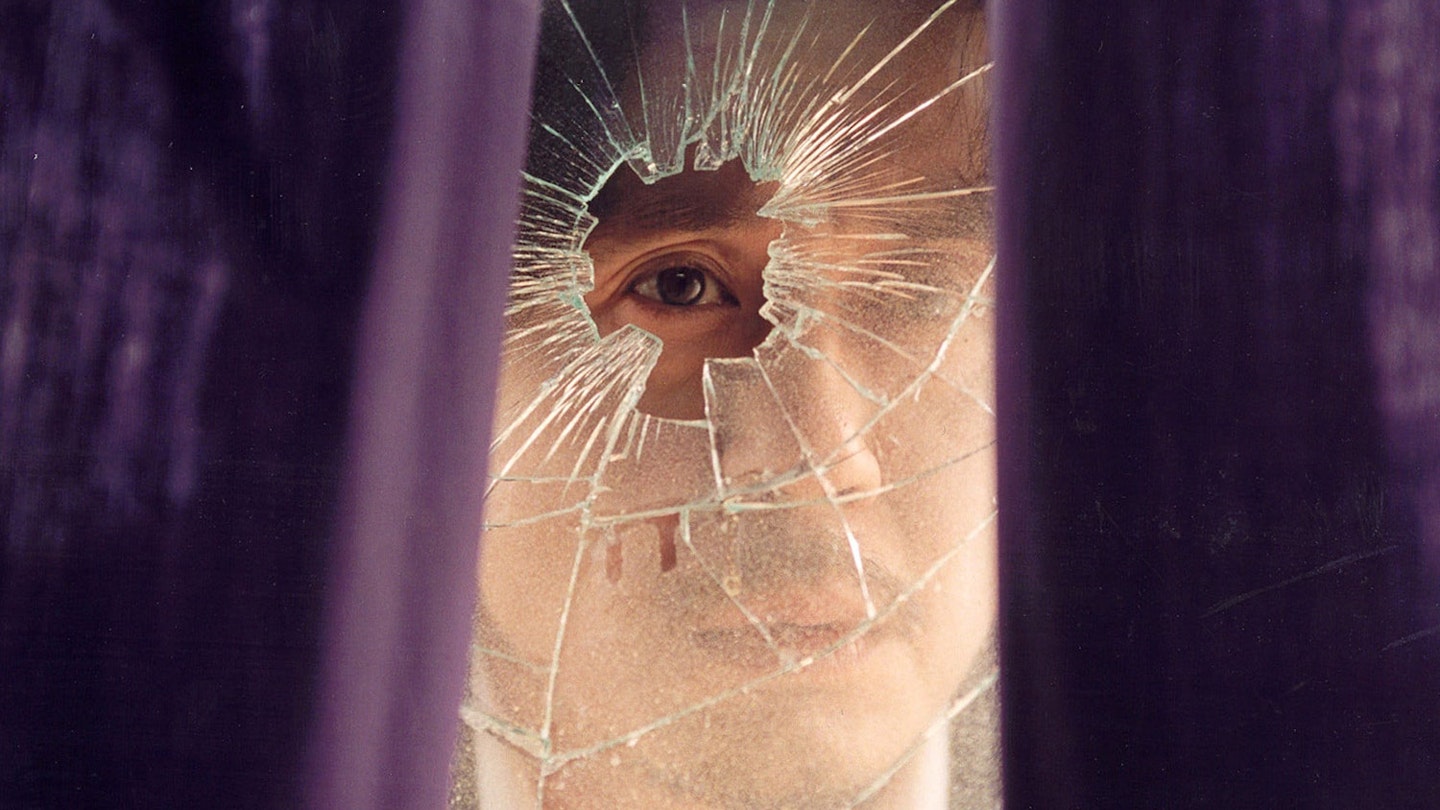 27 of 100
27 of 10074) Oldboy
2003Extreme Asian cinema got another crossover hit with Park Chan-wook's extraordinary revenge saga, the central piece of his Vengeance Trilogy. Blessed with a hooky mystery premise – Korean businessman Oh Dae-su (Choi Min-sik) is imprisoned and held captive in a grimy hotel room for 15 years, never told why or by who, before being unleashed back into the world to seek his captors – it's a distinctive, distinctly non-Hollywood tale punctuated with eye-searing ultra-violence. Stacked with hypnotic visuals – nightmarish wallpaper to rival the Overlook Hotel, Dae-su's release from a giant box in a lush green field, a live octopus chowed down with tentacles still writhing – and boasting a stellar brawl in which our ruthless protagonist bashes an entire corridor of goons with a hammer, it's a stylish and striking thriller with a crushing climax not easily forgotten.Read the Empire review.Buy now on Amazon.
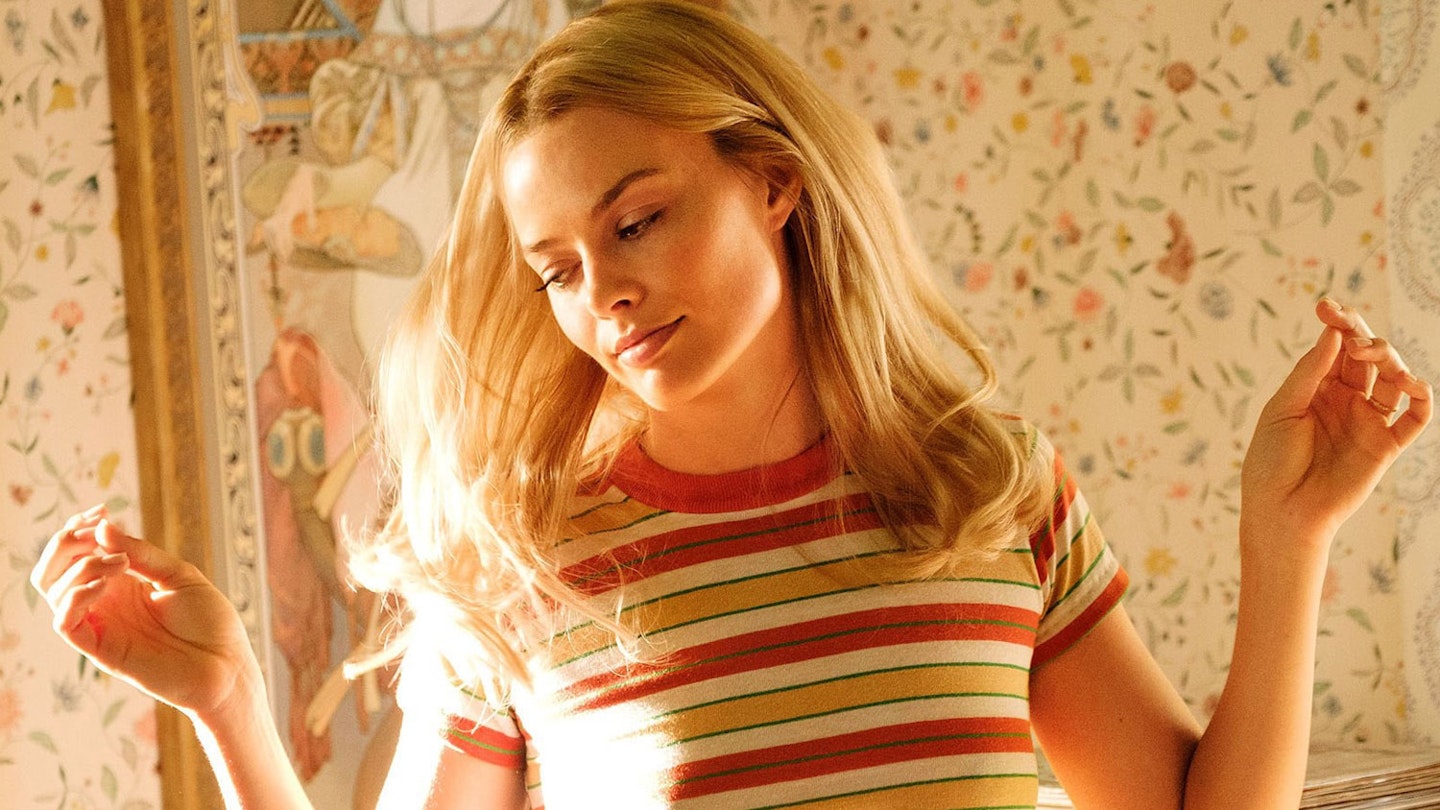 28 of 100
28 of 10073) Once Upon A Time In Hollywood
2019With his self-declared ninth film (does Kill Bill really only count as one movie?), Hollywood's hyperactive auteur mellowed out. Following up the excoriating The Hateful Eight, Quentin Tarantino went back to the sun-kissed Sixties of his youth for a sensitive (by QT standards) and oddly sweet hangout movie set in the dying days of Golden Age Hollywood. There's darkness on the fringes – from Leonardo DiCaprio's Western TV star Rick Dalton struggling to make the leap to the big screen, to Cliff Booth's (Brad Pitt) eerie visit to the Spahn Ranch, and the distressing fate seemingly awaiting Margot Robbie's Sharon Tate as the Manson Murders loom. But as the title suggests, this is a Tarantino fairytale – a flip of the bird to historical horrors that ultimately dishes out the OTT violence the filmmaker is known for in service of a happily ever after. Not without controversy – particularly the depiction of Bruce Lee in a contextually-questionable flashback – but it's a more soulful flavour of QT.Read the Empire review.Buy now on Amazon.
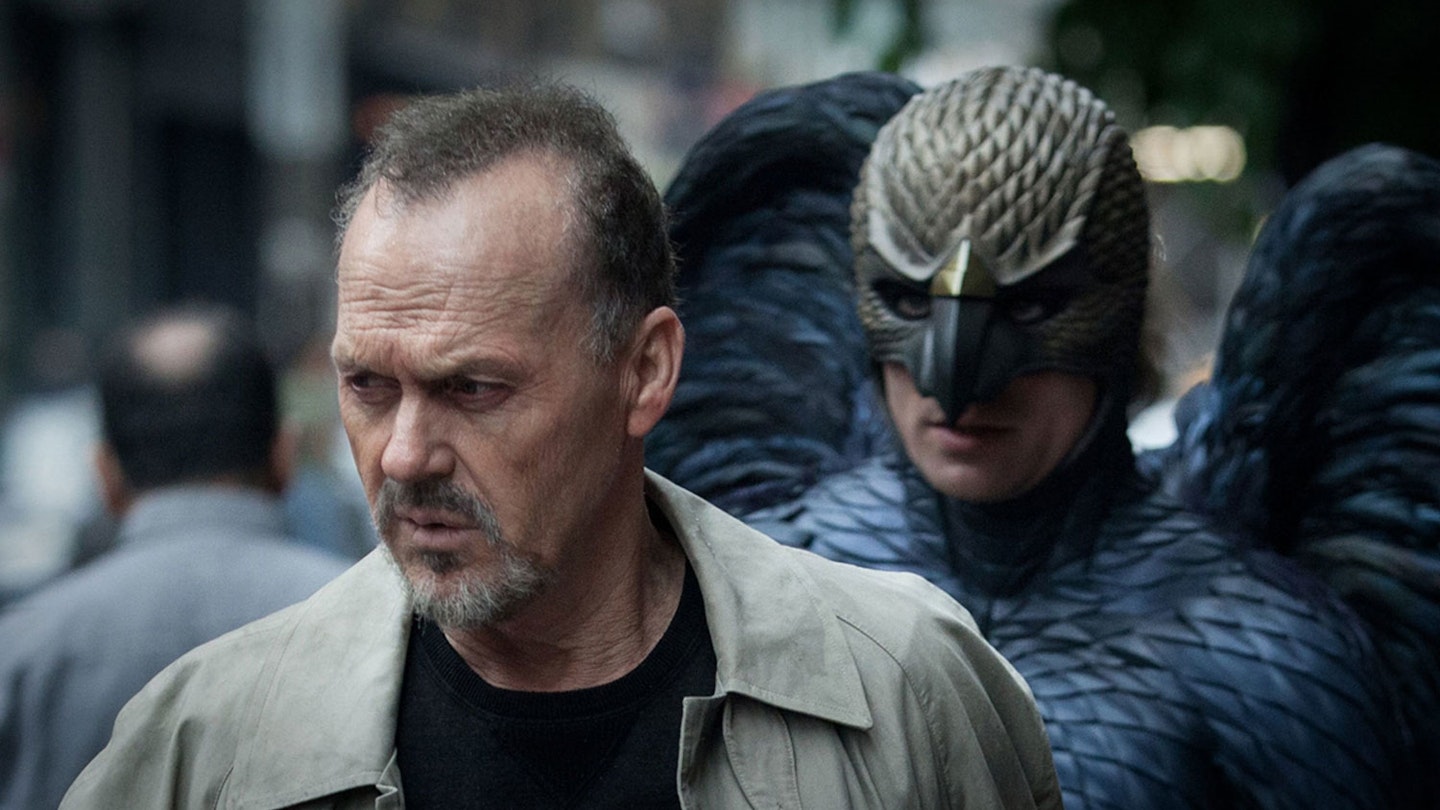 29 of 100
29 of 10072) Birdman (Or The Unexpected Virtue Of Ignorance)
2013Two years after Avengers Assemble pushed the comic book movie to ever-greater box office prominence, Alejandro G. Iñárritu delivered a winking riposte to superhero cinema with his satirical comedy-drama. In a cheeky piece of meta-casting, Michael Keaton plays Riggan Thompson, an actor intent on leaving his spandex days behind him as he takes on a demanding theatrical play, nevertheless haunted by the spectral presence of the winged hero role he'll never escape. Presented as one unbroken take by cinematographer Emmanuel Lubezki, and propelled along by an itching, rat-a-tat-tatting jazz score, it's a masterful feat of filmmaking – taking in dizzying daydreams, head-spinning moments of panic as Riggan struggles to nail his new role, and Edward Norton scrapping in a pair tighty-whities with constant fluidity. Most thrillingly, Keaton puts in a wild performance that complements the untethered visuals. In an extra meta layer, he went on to play bird-themed comic book villain Vulture in Spider-Man: Homecoming just three years later.Read the Empire review.Buy now on Amazon.
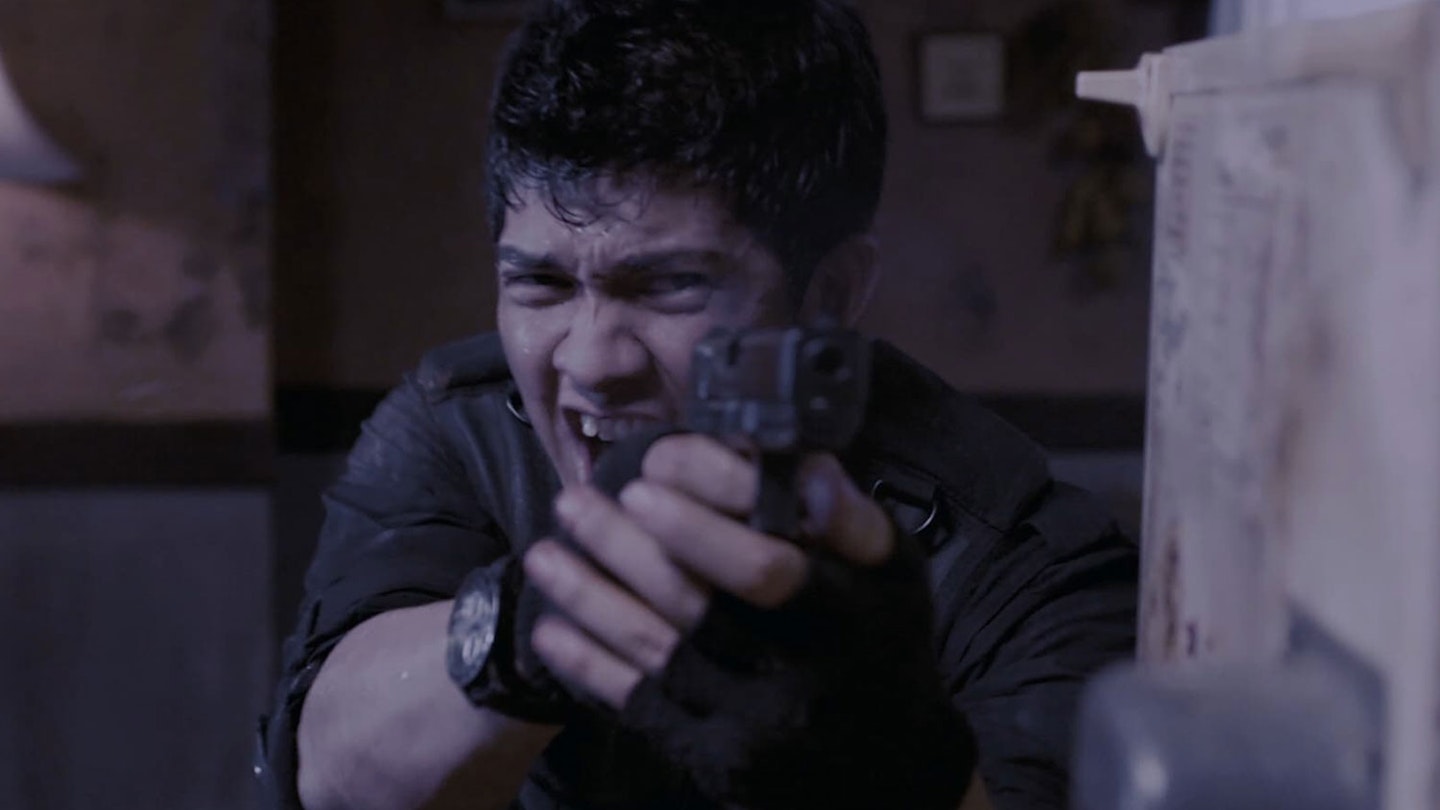 30 of 100
30 of 10071) The Raid
2011An extraordinary jolt of action adrenaline, The Raid crashed into cinemas seemingly out of nowhere. Its peculiar heritage – an Indonesian martial-arts extravaganza by a Welsh director, Gareth Evans – only added to its mystique. The plot, in which breakout star Iko Uwais fights his way up a tower block packed with punchy criminals and back down again, is as basic as they come – but it's all in service of some of the century's most purely, joyfully bruising beat-'em-up setpieces, which play out in extended handheld takes. The intricacy and energy of the choreography remains breathtaking, its influence still reverberating through the action genre a decade later, seen in everything from the John Wick movies to Netflix's Daredevil. It's rare that a film can be genuinely called flawless, but The Raid is a perfectly-crafted fight machine.Read the Empire review.Buy now on Amazon.
70) Avatar
2009In the run-up to James Cameron's multiple long-awaited Avatar sequels, the internet at large seems to have turned its back on his initial blue-cats-in-space epic. If the world of Pandora feels familiar now, its initial impact was seismic – the alien planet, rich with dayglo flora and loopy fauna, proved so immersive and visually stimulating (particularly in revolutionary rarely-bettered 3D), that audiences went back again and again. There were even reports of viewers being depressed after the comedown of 'visiting' such a beautiful world. The extraordinary environment plays host to a familiar but effective Dances With Wolves-inspired tale, as human ex-soldier Jake Sully (Sam Worthington) joins the native alien tribe on the planet that Earth colonies are stripping for resources. Subtle? No. But its sheer bravado and B-movie dialogue coheres into a wide-screen original adventure movie with mech battles, bird-dragons, and magic trees that for a decade reigned as the biggest box office hit of all time. Never underestimate James Cameron.Read the Empire review.Buy now on Amazon.
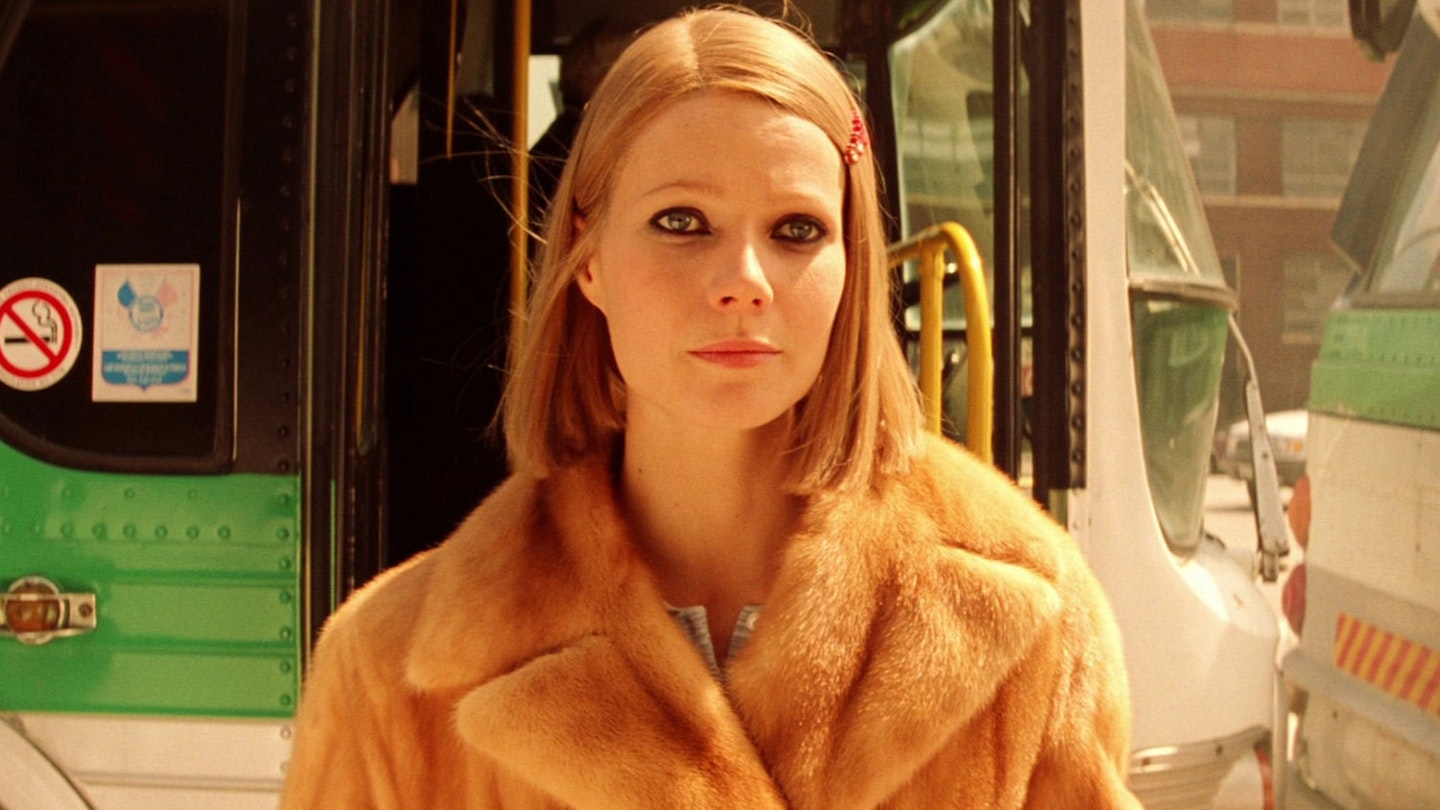 32 of 100
32 of 10069) The Royal Tenenbaums
2001It's all here: the dolls house layout shot; the fastidious framing and colour palette; the playful narrative structure (purporting to be based on a novel that doesn't actually exist); the dry and archly humorous dialogue; the absurdist situations; the clash of seriousness and whimsy; an extraordinary wish list of a cast that in this case includes Gene Hackman, Ben Stiller, Anjelica Huston, Owen and Luke Wilson, Danny Glover and Anderson's lucky charm Bill Murray; and an eclectic jukebox soundtrack of so many impeccable needle-drops that it needed two albums to collect them all. Wes Anderson, unmistakably, makes Wes Anderson films, and his third set the benchmark for the rest of his career. Bottle Rocket showed promise. Rushmore marked him as a writer-director to keep an eye on. But it was The Royal Tenenbaums that consolidated Anderson's status as the idiosyncratic indie auteur to rule them all.Read the Empire review.Buy now on Amazon.
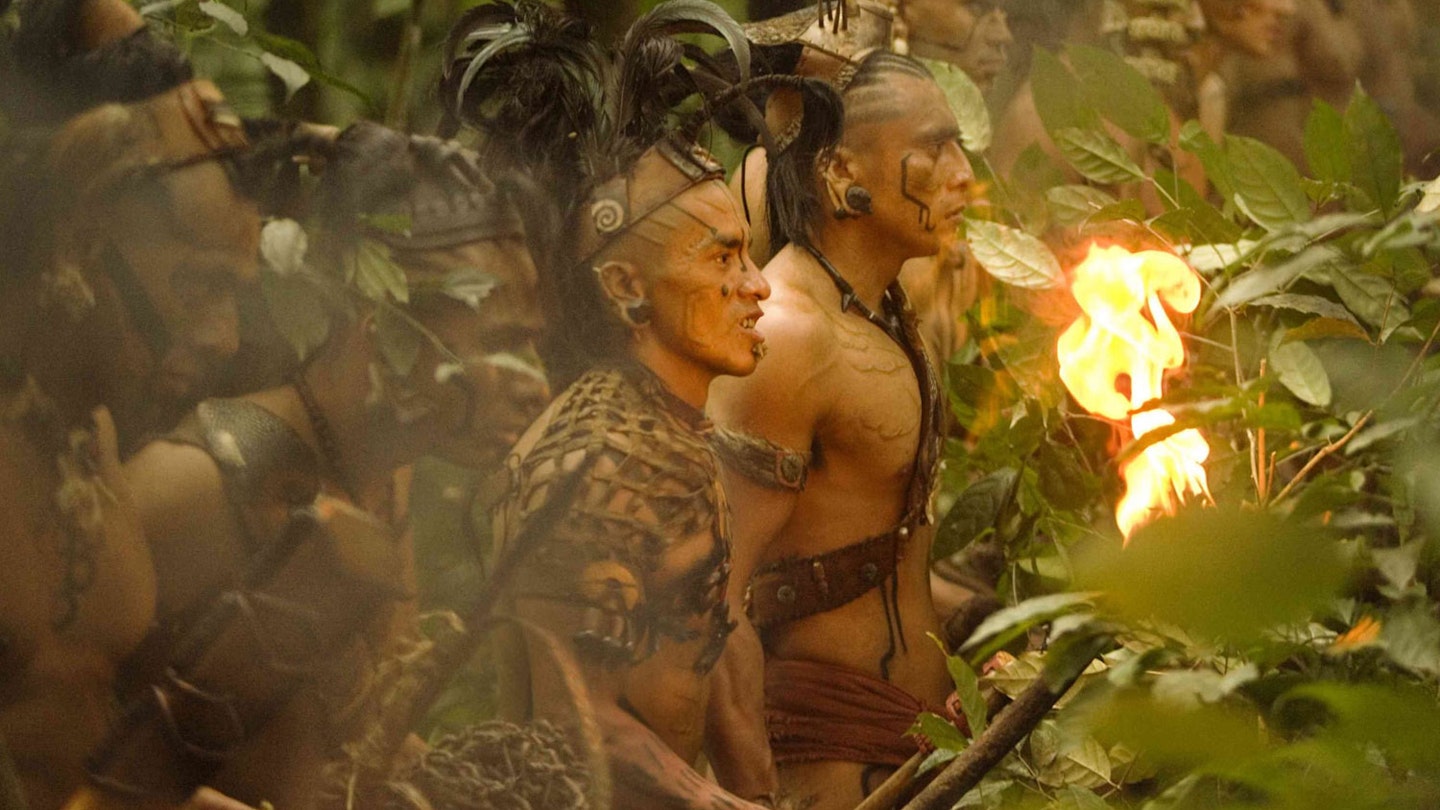 33 of 100
33 of 10068) Apocalypto
2006Whatever you think of Mel Gibson these days, it's hard not to admire the sheer gonzo bloody-mindedness of Apocalypto: a $40 million 16th Century jungle action adventure with no recognisable stars, in subtitled Yucatec Mayan. Essentially a single foot chase, piling ever more travails onto Rudy Youngblood's hapless Jaguar Paw, it nevertheless raises typically Gibsonian philosophical questions about the role of violence in "civilisation". Given the sheer visceral impact of what takes place on screen, we're left in no doubt about the director and co-writer's position in the debate. And yet, somehow, Apocalypto remains thrilling rather than punishing, and ultimately hopeful in spite of its surface nihilism. Eccentric bordering on full-on crazy, contradictory, occasionally infuriating, always compelling: a vision both expansive and deeply personal. We will not see its like again – unless Gibson ever gets his Old Norse Viking epic going.Read the Empire review.Buy now on Amazon.
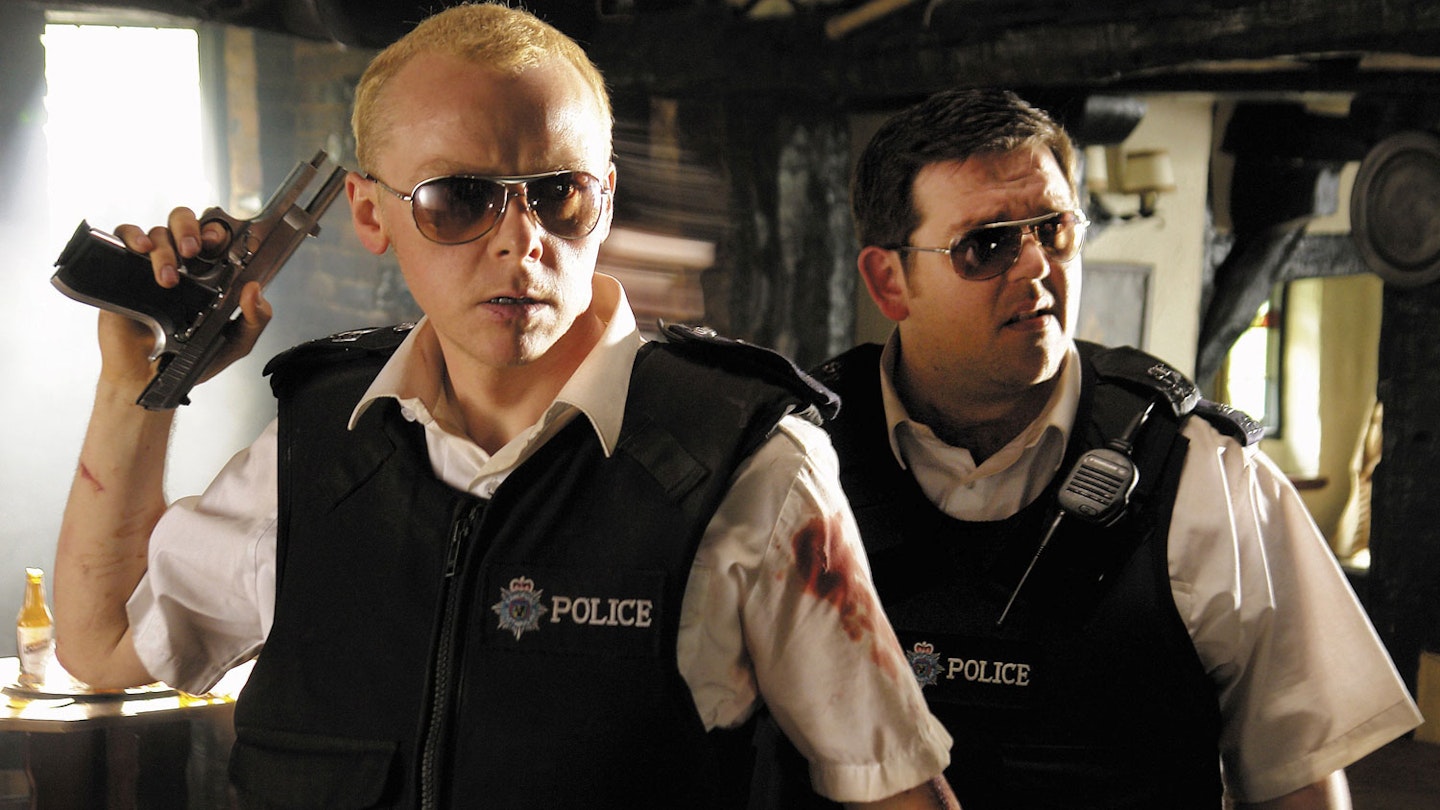 34 of 100
34 of 10067) Hot Fuzz
2007After skewering 30-something London life in Shaun Of The Dead, Edgar Wright and Simon Pegg turned their eye to rural small-towns – a loving parody of, and homage to, little Britain (complete with actual mini model village) and big American action cinema. Propelled by a stellar comic turn from Nick Frost as buddy-cop obsessed police constable Danny Butterman, a delectable Timothy Dalton as wolf-grinned supermarket manager Simon Skinner, and a raft of comedy greats (Olivia Colman! Adam Buxton! Alice Lowe! Bill Bailey!), it's probably the outright-funniest film in the Cornetto Trilogy – and that's before Wright giddily gets his Michael Bay on when Simon Pegg tools up as hero cop Nick Angel in the final act. Hot Fuzz is a rapid-fire gag-cannon with impeccable editing that further cemented the filmmaker's voice, with a long-standing legacy as the film that's impossible to scroll past on endless ITV2 repeats. It's prescient, too – try watching it in 2020 without picturing the elderly Neighbourhood Watch as a bunch of bloodthirsty Brexiteers.Read the Empire review.Buy now on Amazon.
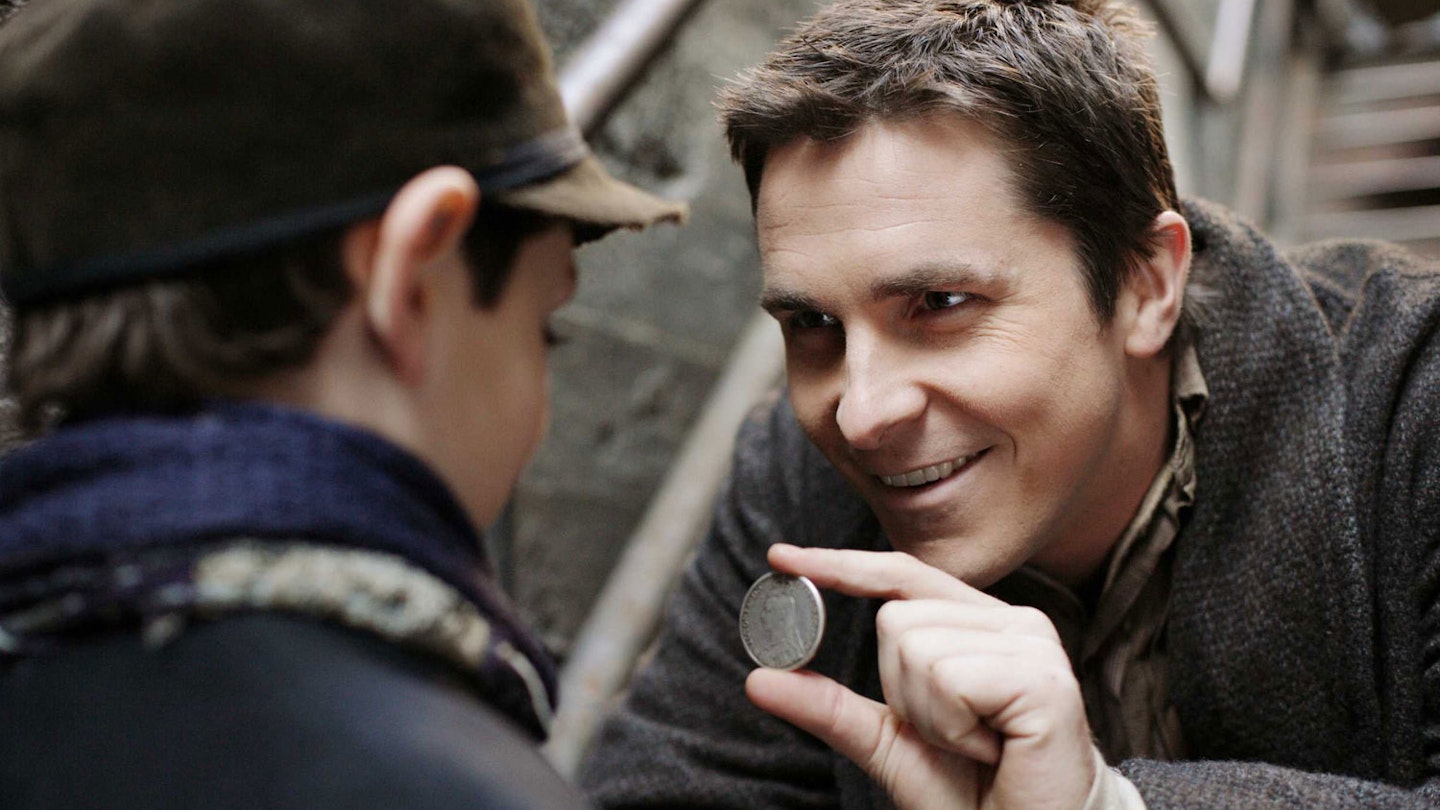 35 of 100
35 of 10066) The Prestige
2006Before The Dark Knight brought him back to Gotham, Christopher Nolan followed up Batman Begins with a beguiling drama-thriller about warring illusionists in Victorian London. The Prestige is a film that's impressively illusory itself, it's non-chronological narrative unfolding in the same way as Hugh Jackman and Christian Bale's tricks – a Pledge (the set-up), followed by a Turn (a transformation), and the Prestige (an extra twist). For a filmmaker who often deals in conceptual bombast, The Prestige finds Nolan in sleight-of-hand mode, pulling the strings to set up an eerie final reveal – but the reason it works is because of how well-drawn the characters are. Bale's Borden is a working class, rough-round-the-edges counterpoint to Hugh Jackman's flashier, colder Angier – the latter driven to increasingly extreme measures and ultimately compromising his humanity to repeat his rival's most impressive act. For a lower-key Nolan film it looms large – and boasts the delight of David Bowie playing Nikola Tesla.Read the Empire review.Buy now on Amazon.
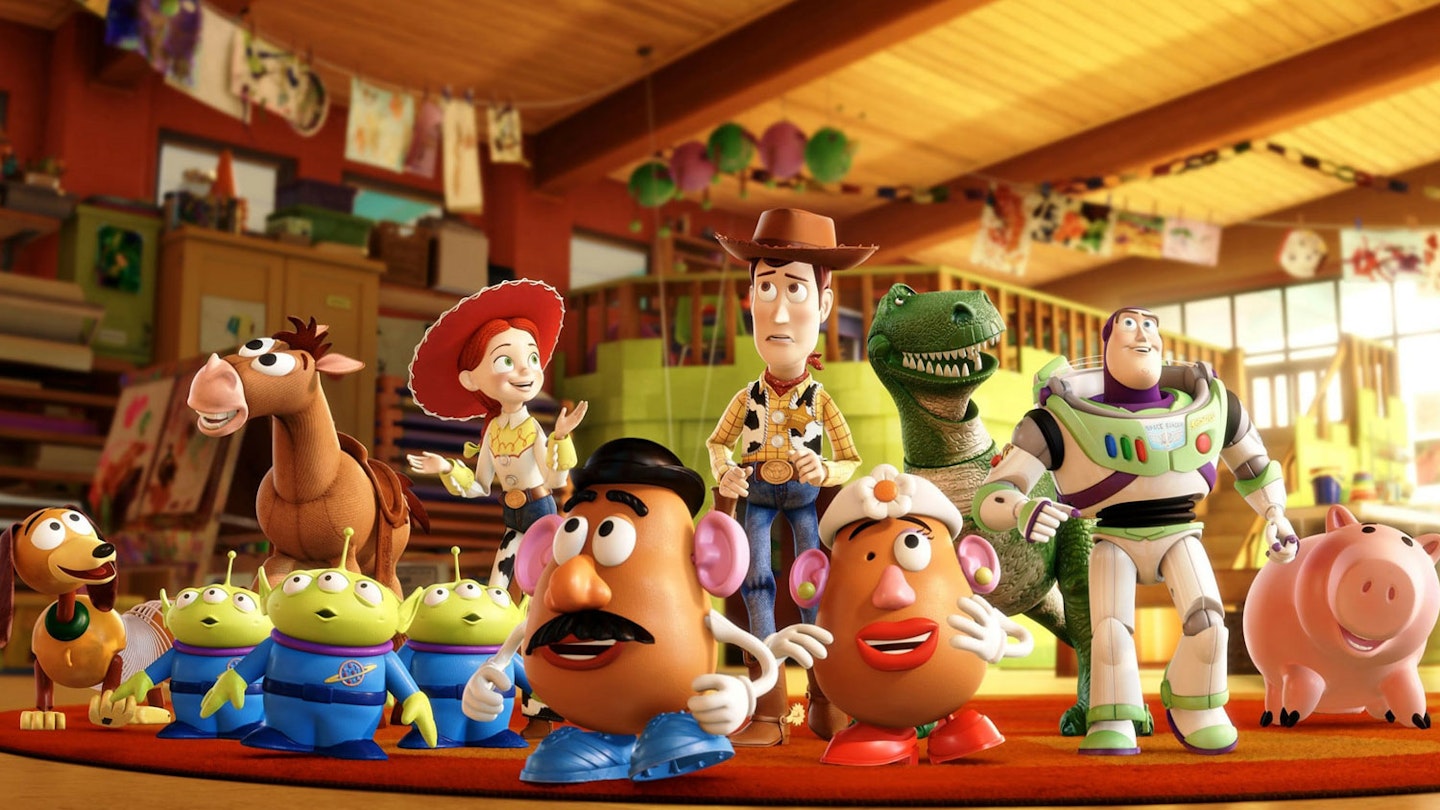 36 of 100
36 of 10065) Toy Story 3
2010The perfect trilogy closer, until it wasn't. Toy Story 3 is peak-power Pixar, provoking tears and laughs in equal measure. At the time concluding the series that made the animation studio's name, the farewell to Woody and Buzz delighted kids and reduced adults (especially those who had literally grown up with the titular toys) to blubbering messes with its perceptive ruminations on the end of childhood. Whether it's that incinerator scene that threatened to engulf our heroes in flames, or college-bound Andy's ultimate handing-over of his beloved playthings to toddler Bonnie, it's undeniably emotional – but there's joy too in its Great Escape-inspired nursery-break plot, bringing in top new characters like Timothy Dalton's melodramatic hedgehog Mr. Pricklepants and gruff unicorn Buttercup. Plus, in insidious strawberry-scented bear Lotso, it had another secretly-shady beloved male authority figure, unmasked as a menace despite his cuddly persona – years before former Pixar boss John Lasseter was himself disgraced in the #MeToo movement.Read the Empire review.Buy now on Amazon.
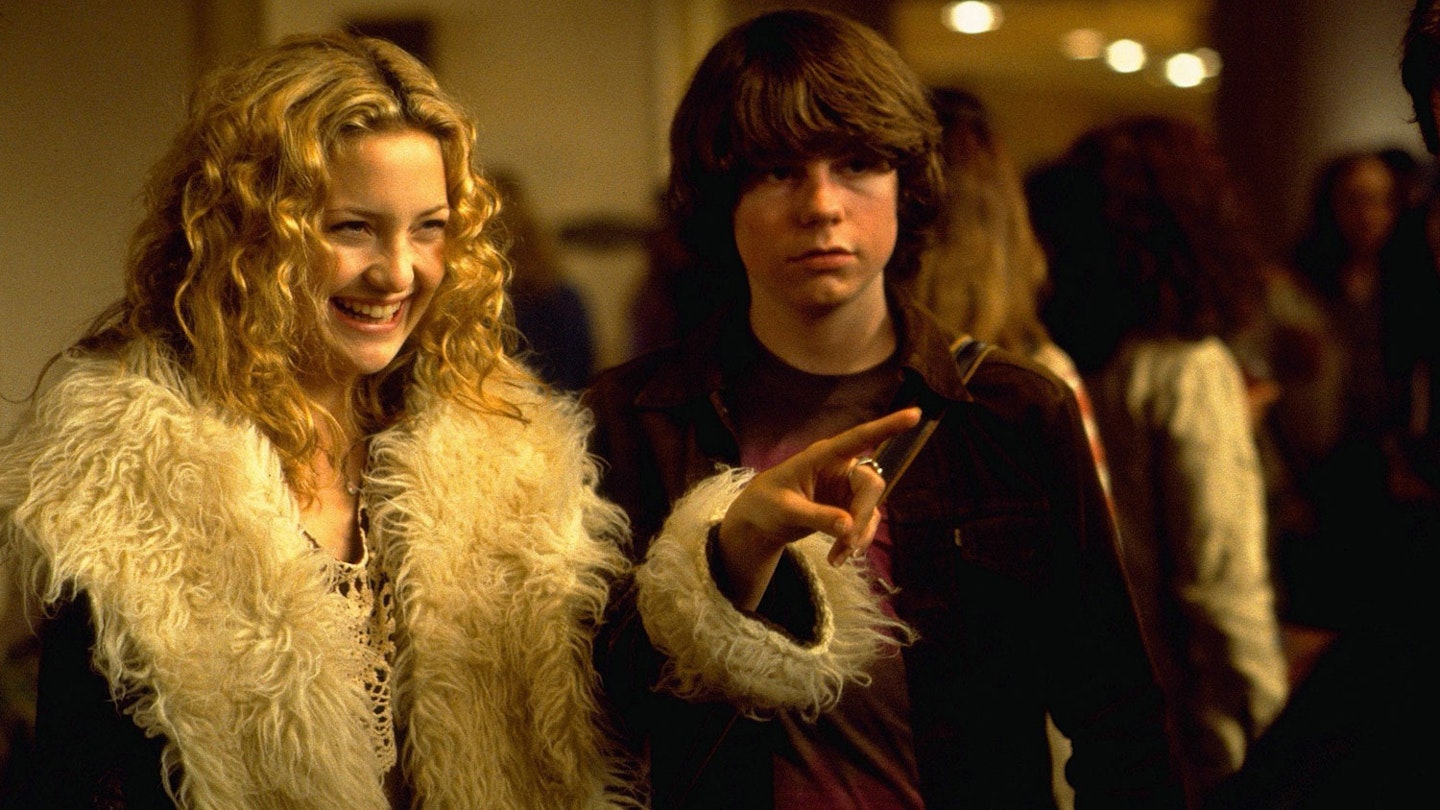 37 of 100
37 of 10064) Almost Famous
2000Remember the days when music journalists could spend weeks on end touring with rock bands for the sake of a single interview piece? Cameron Crowe does, fictionalising his own teenage experience writing for Rolling Stone into a glowing nostalgia-piece celebrating the '70s rock scene and the culture that accompanied it – drugs, "band aids", longform journalism and all. There's a sincerity to Almost Famous – whether it's the scene in which young William inherits a stack of vinyl records from his older sister ("Look under your bed – it'll set you free," she tells him) or the Stillwater tour bus singalong to Elton John's 'Tiny Dancer', Crowe's deep love of music and the power it holds in adolescence is inescapable. Brimming with emotion, quotable dialogue ("The only true currency in this bankrupt world is what you share with someone else when you're uncool"), and engaging performances from Kate Hudson, Billy Crudup and Philip Seymour Hoffman, it's a film of sheer, unadulterated affection.Read the Empire review.Buy now on Amazon.
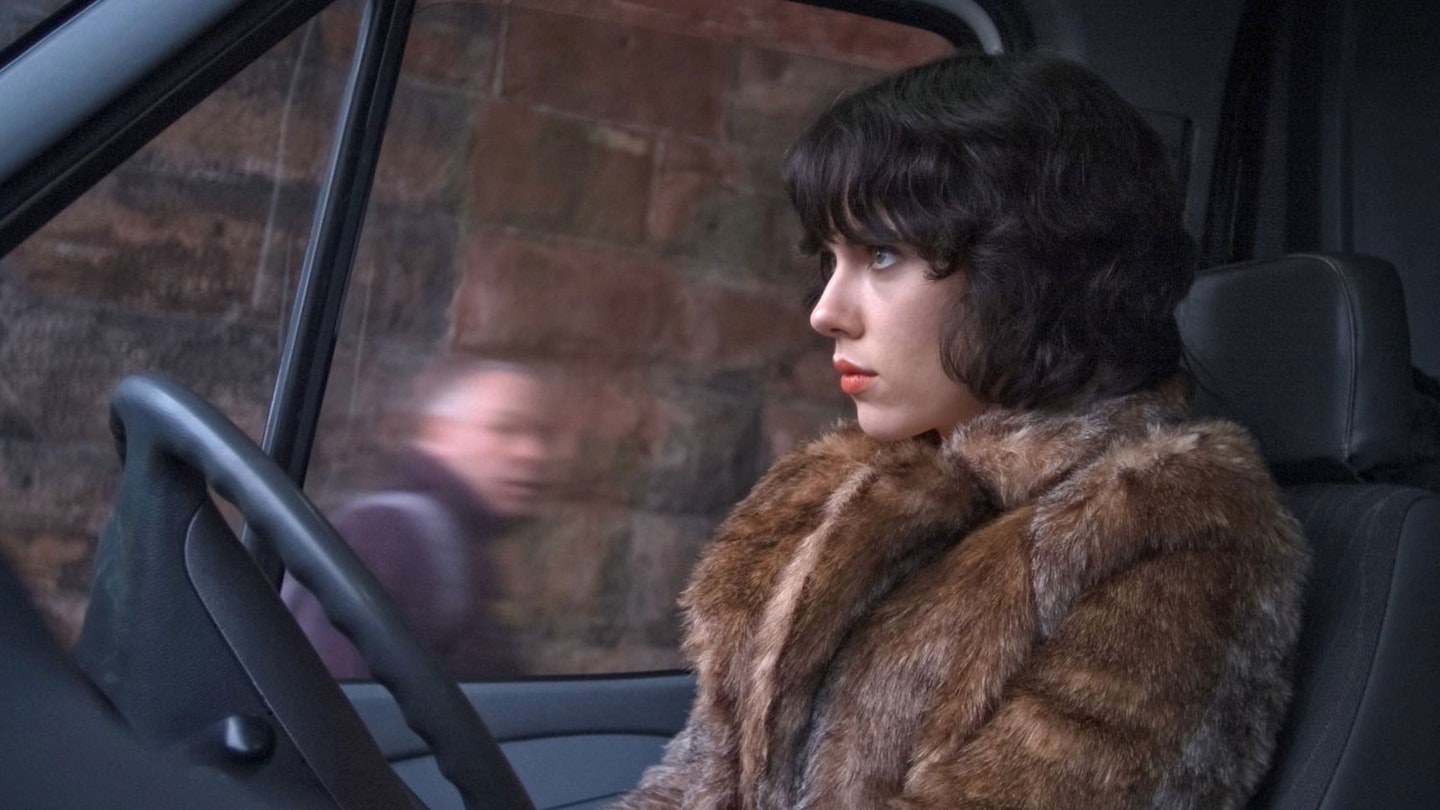 38 of 100
38 of 10063) Under The Skin
2013Jonathan Glazer's emotionally blank, almost wordless sci-fi is a loose and oblique adaptation of Michel Faber's novel – to the extent that almost nothing explicitly survives the translation beyond the central premise of Scarlett Johansson's Woman Who Fell To Earth. Playing the alien with a perfect air of otherworldly curiosity, Johansson anchors the abstract narrative with a performance that's as brave as it is understated, floating through a cast of Scots amateurs who – if you believe the behind-the-scenes narrative – often didn't know they were being filmed and somehow didn't recognise her. Intriguing, brutal without actually being that violent, occasionally upsetting and, at one particular beach-set point, actively harrowing, it's not an easy watch. But it is a rewarding one: a disorienting sensory experience; purely cinematic despite its literary starting point.Read the Empire review.Buy now on Amazon.
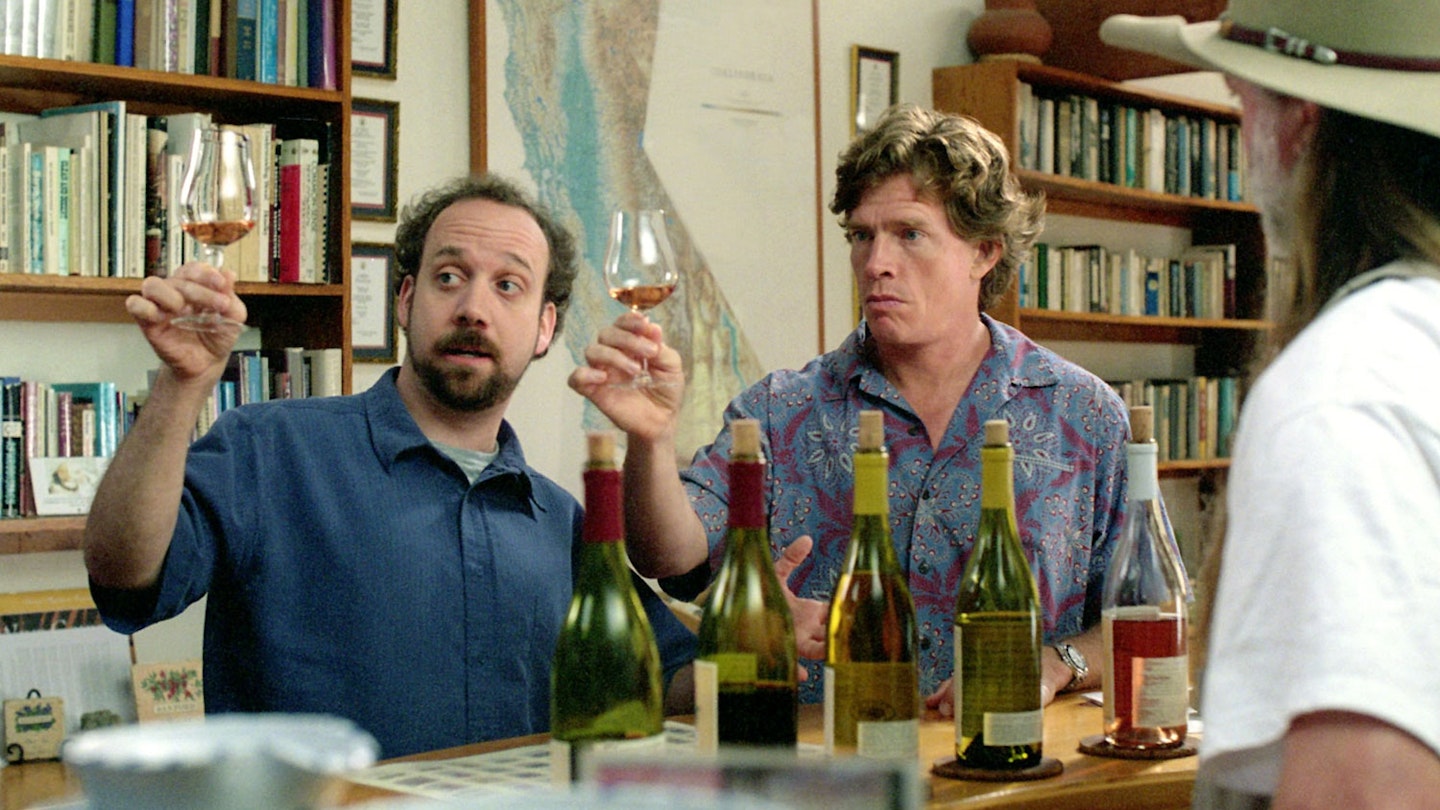 39 of 100
39 of 10062) Sideways
2004As you'd expect from a director whose career started with Election and led to Nebraska, Sideways is acutely observed and delicately played, funny and poignant. A similar sadsack exploration to his previous film at the time, the Jack Nicholson-starring About Schmidt, Alexander Payne's wine-centric road movie revolves around Miles, (a never-better Paul Giamatti) the schlubby, depressive, recently divorced failed novelist and groaningly pretentious wine bore at the heart of the film. On paper he's an asshole, and there aren't many actors who could make you root for him – if Sideways tells us anything, it's that we shouldn't take Giamatti for granted. But Miles is helped to redemption by the ensemble around him, comprising Thomas Haden Church, Sandra Oh, and particularly Virginia Madsen, with whom he shares the film's most beautifully written scene: in mansplaining a high maintenance wine, Miles unwittingly describes himself.Read the Empire review.Buy now on Amazon.
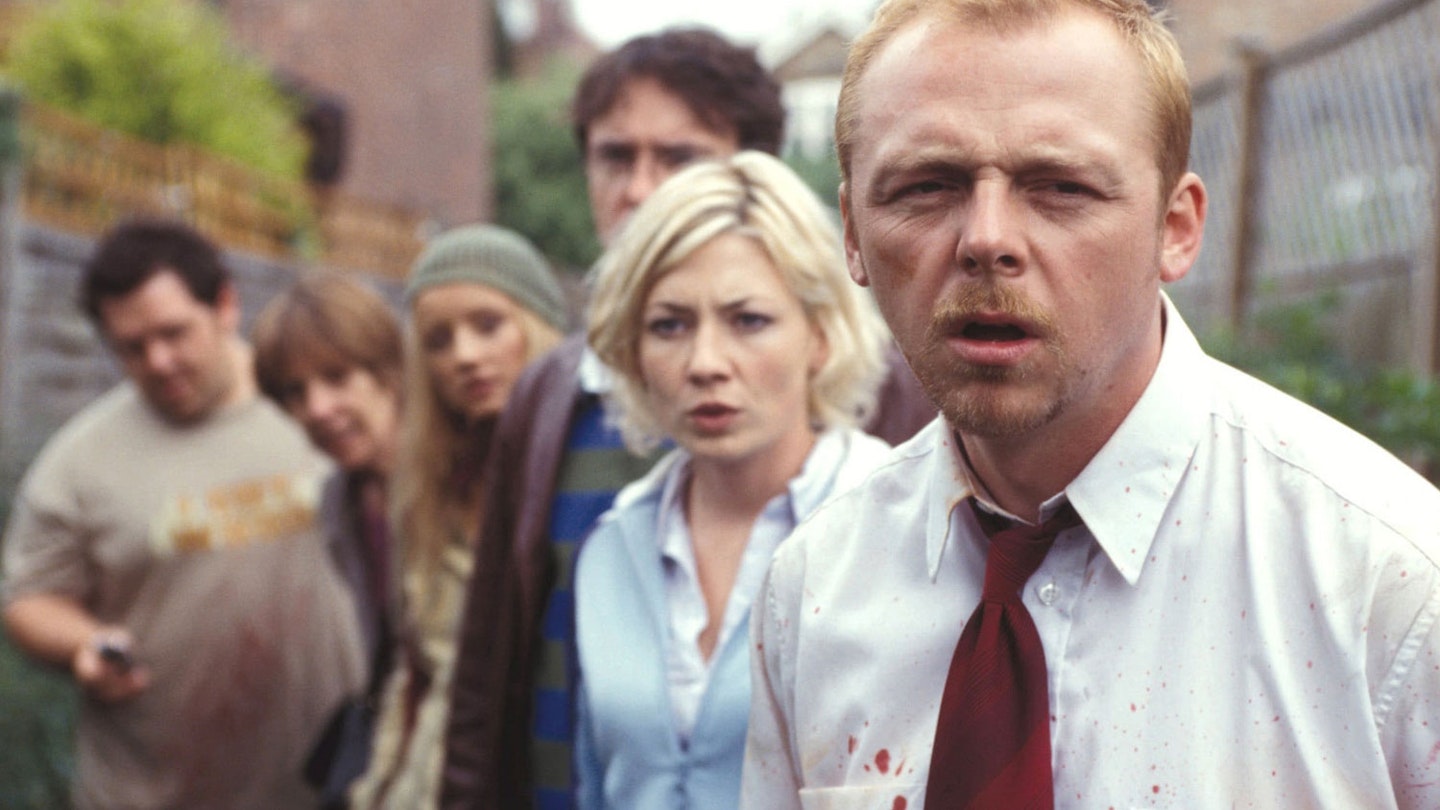 40 of 100
40 of 10061) Shaun Of The Dead
2004Edgar Wright's feature debut was just the beginning, but displayed everything that makes him great: an obsession with genre, a distinctly British sense of humour, and an ambitious shooting and editing style that set him apart from the kitchen-sink approach that long defined UK film. From the unbroken shot that follows an oblivious Shaun to his local shop and back amid the unfolding apocalypse, to the 'Don't Stop Me Now'-soundtracked zombie-beatdown that predated Baby Driver's shoot-to-the-beat approach, there's a go-for-broke sense of purpose to the filmmaking that's impossible to ignore. Beyond the rom-zom-com genre-mashing, there's plenty going on – Shaun is about Gen X growing up and mellowing out, and the life changes that come with being in your 30s: the need to relinquish adolescent friendships, commit to relationships, and prepare for the passing of your parents. But most importantly, it's breathlessly funny, rightly making household names of Simon Pegg and Nick Frost.Read the Empire review.Buy now on Amazon.
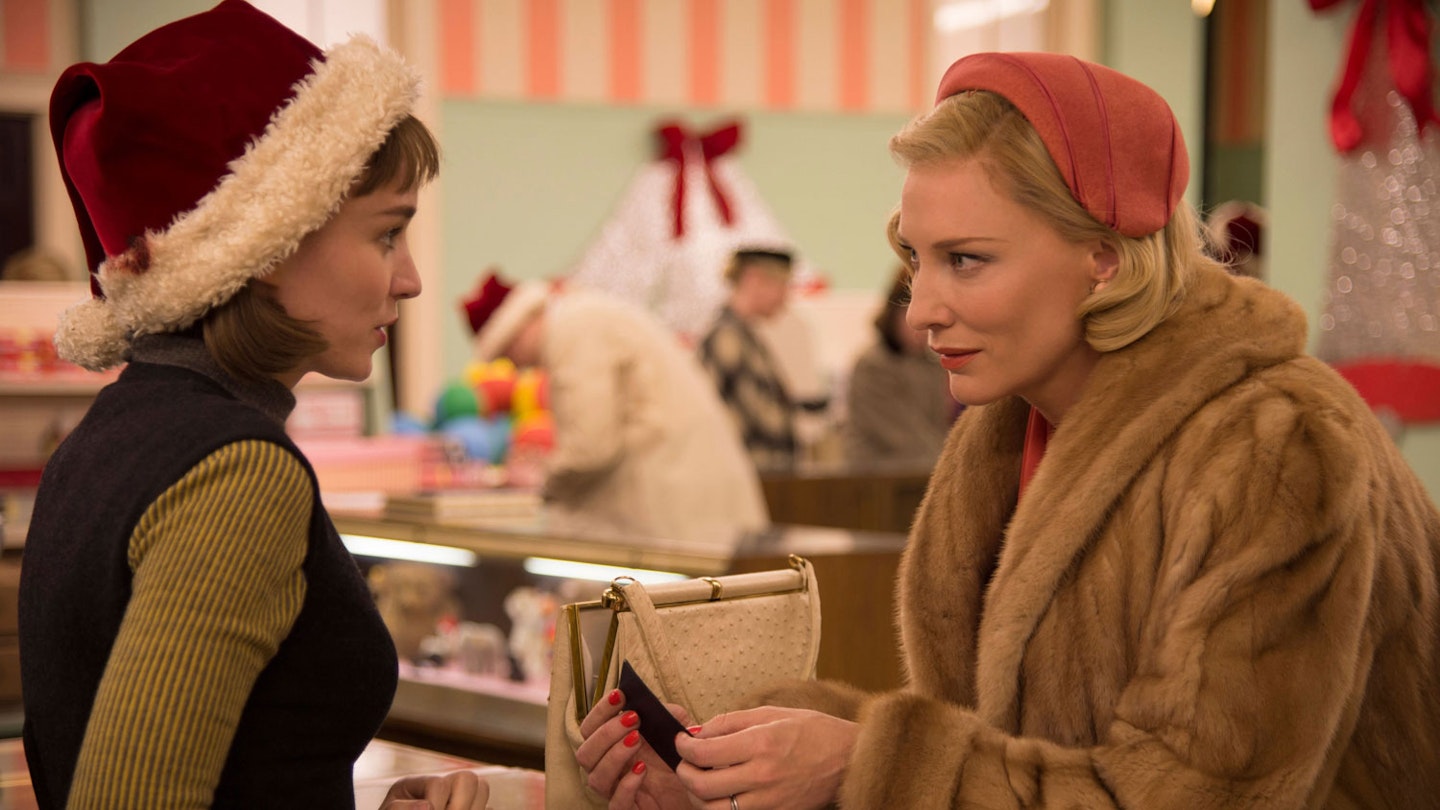 41 of 100
41 of 10060) Carol
2015Phyllis Nagy's screenplay for Carol, based on Patricia Highsmith's pseudo-autobiographical 1952 novel The Price Of Salt, was in development hell for 20 years. But in the hands of Todd Haynes, and with Cate Blanchett and Rooney Mara as co-leads, it was more than worth the wait. Far more romantic than Highsmith's murderous Ripley novels, it's no less subversive for its depiction of a lesbian relationship under siege by various representatives of wider "society". And it's therefore a natural fit for Haynes, whose whole canon has been about exploring non-conformity. Meticulously designed and photographed, its noirish melodrama is a perfect showcase for Blanchett at her most theatrical, the performative Carol all cigarettes and hair-tossing, recalling Blanchett's knockout turn as Katharine Hepburn in Scorsese's The Aviator. It's a note-perfect match of actress and role.Read the Empire review.Buy now on Amazon.
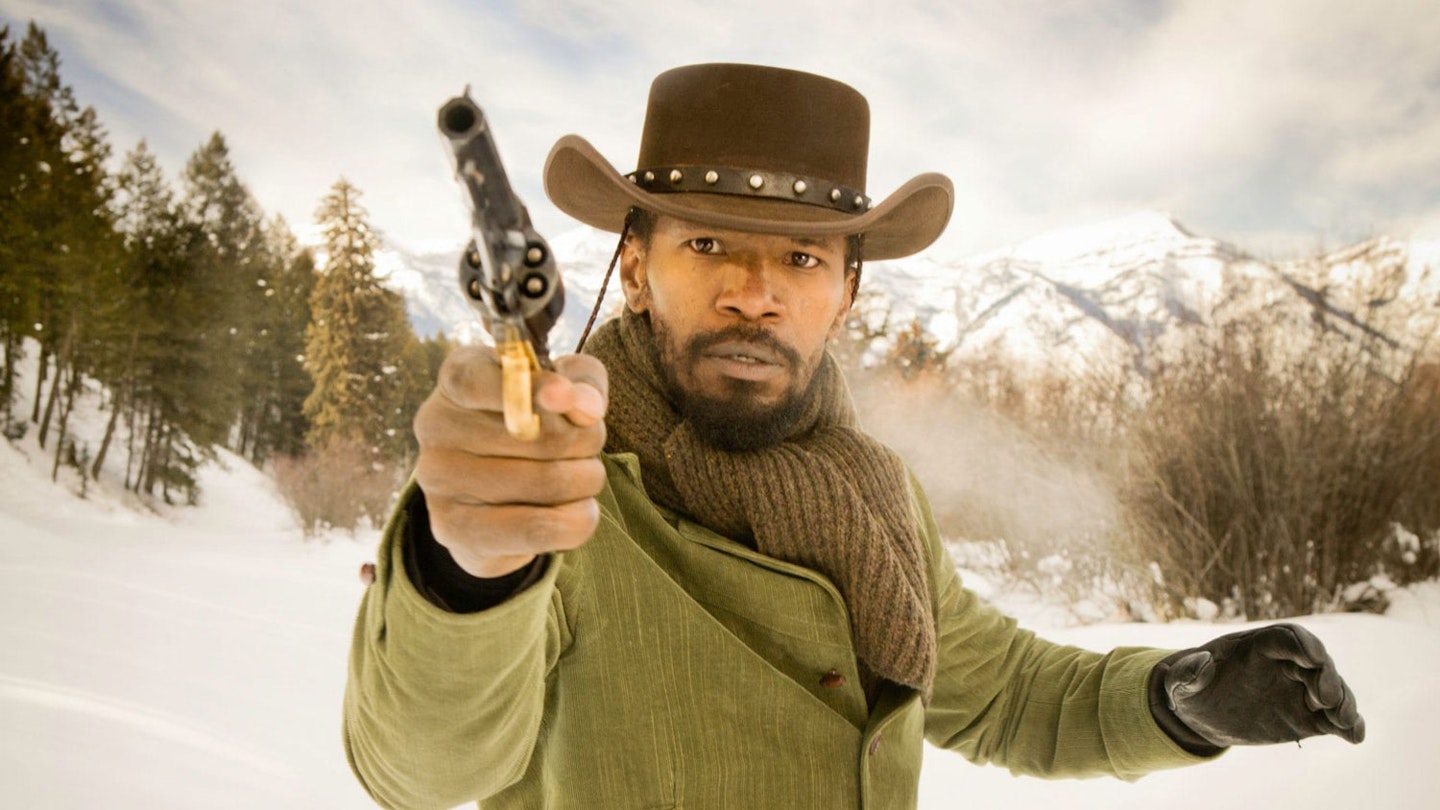 42 of 100
42 of 10059) Django Unchained
2012Having rewritten World War II in Inglourious Basterds, Quentin Tarantino delved further back for his next piece of revisionist history – creating a blaxploitation-inspired hero to fight back against American slavery. With liberal use of the n-word and disturbingly graphic whippings and 'mandingo' fights, Django arguably revels in its unflinching depiction of the Antebellum South to an uncomfortable degree. But it also doesn't sanitise the cruelty – and when Django starts hunting bounties, taking down slave owners and racists with a broad grin, the vengeful violence becomes more appropriately gleeful. Jamie Foxx excels in the titular role (Will Smith famously turned it down, a missed opportunity to rank alongside his rejection of The Matrix), but it's Samuel L Jackson that registers best – his institutionalised slave Stephen, fiercely loyal to Leonardo DiCaprio's unrelentingly nasty plantation owner Calvin Candie, emerges as one of Tarantino's most complex creations. Perhaps more enjoyable than a film about slavery should be, but the Candyland climax is glorious.Read the Empire review.Buy now on Amazon.
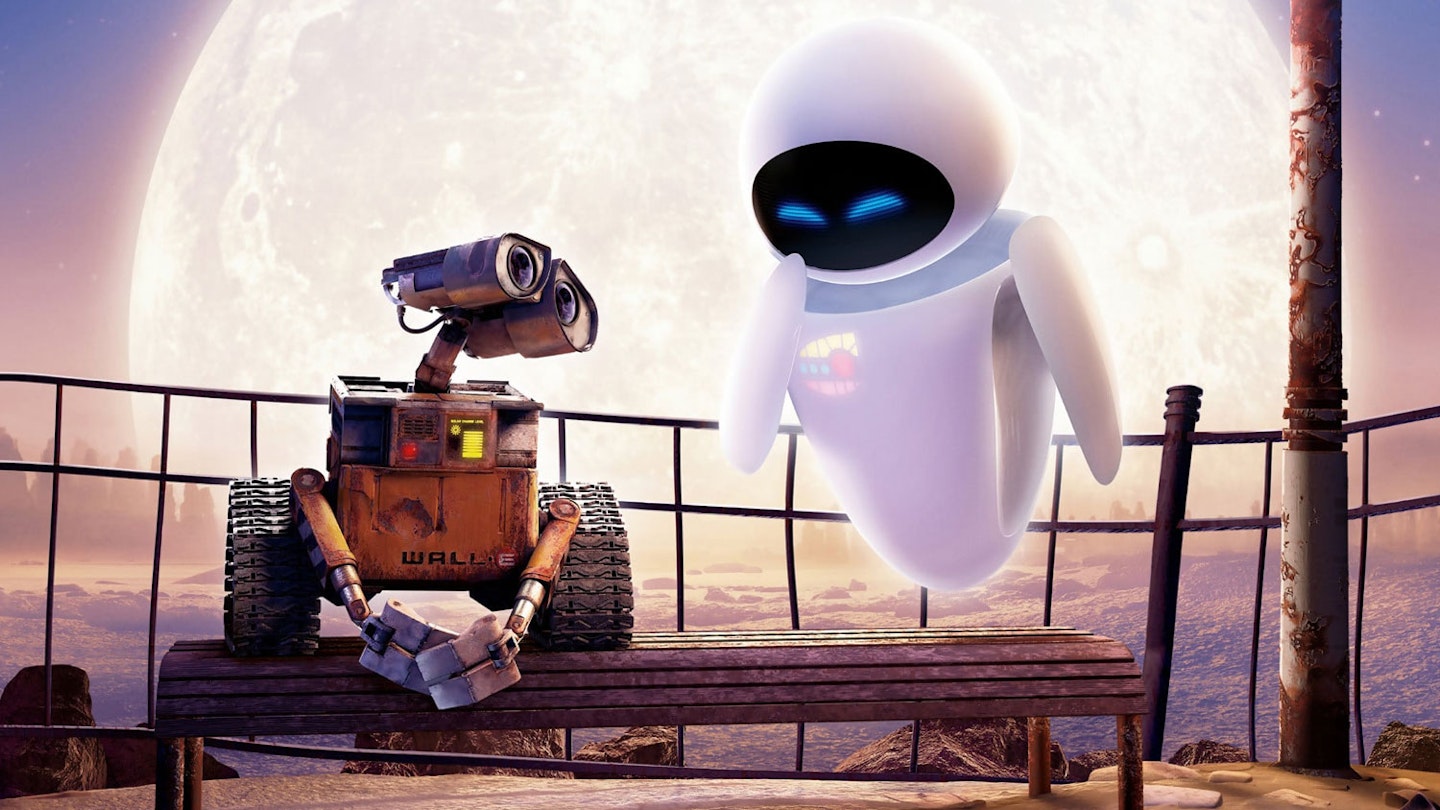 43 of 100
43 of 10058) Wall-E
2008The opening act of Wall-E might be Pixar's greatest feat – a stunning piece of near-wordless post-apocalyptic science-fiction, setting playful Chaplin-esque slapstick against a spectacularly bleak future Earth. As the titular trash-compacting android trundles through the mountains of waste left behind by a long-gone human race, he delights in the oddities he discovers (a Rubik's cube! A bra! A fire extinguisher!), while we despair at the logical endpoint to our wasteful consumerism. A ridiculously charming romance with Apple-esque advanced robot Eve balances the bleakness – the pair's interstellar dance is astonishing in its beauty). If its adventure-quest second half feels a little safe following that brave opening, the mission to save a single viable piece of plant life taps directly into fears around global warming a full decade before it became the leading issue of the 21st Century.Read the Empire review.Buy now on Amazon.
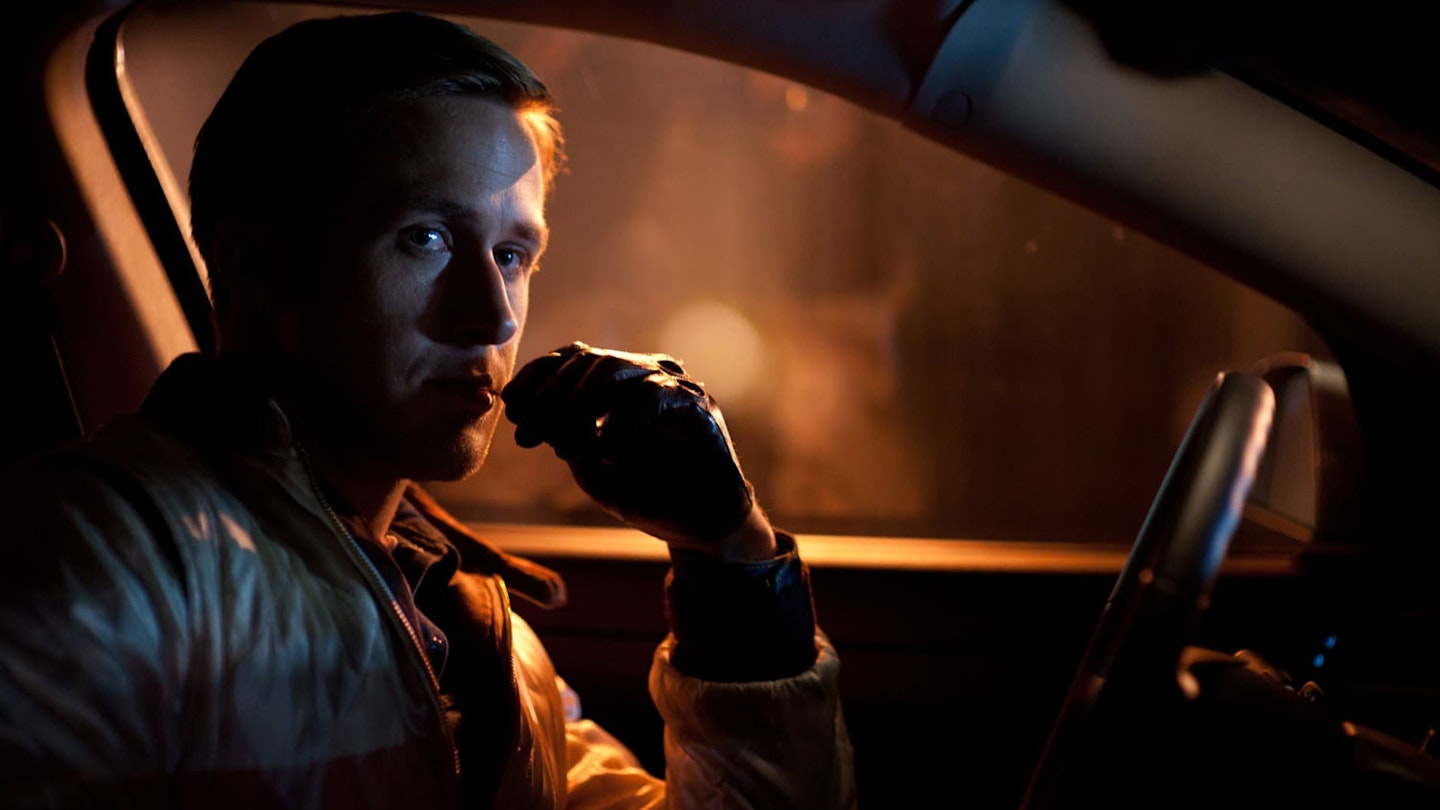 44 of 100
44 of 10057) Drive
2011The same year that brought Fast Five also delivered its tonal opposite – an arthouse car movie that's an exercise in pure style. Easily Nicolas Winding Refn's most accessible work, there's a clarity of vision that coheres through everything about Drive: the music, the stylised costumes (who hasn't dreamed about pulling off that silver scorpion-patch bomber jacket?), and the intentionally-muted performances. Ryan Gosling's stoic gearhead is an intentional void at its centre, his emotions awakening when Carey Mulligan's struggling mum Irene brings much-needed humanity to his world (and the film itself). The perfectly-picked soundtrack– from Kavinsky's 'Nightfall' to College's 'A Real Hero' – feel integral to its success and enduring appeal, so much so that an experiment from the BBC to re-score the film to alternative songs couldn't help but feel redundant. Ice cold and neon-lit, Drive plays it utterly cool – and even years later, it remains utterly cool.Read the Empire review.Buy now on Amazon.
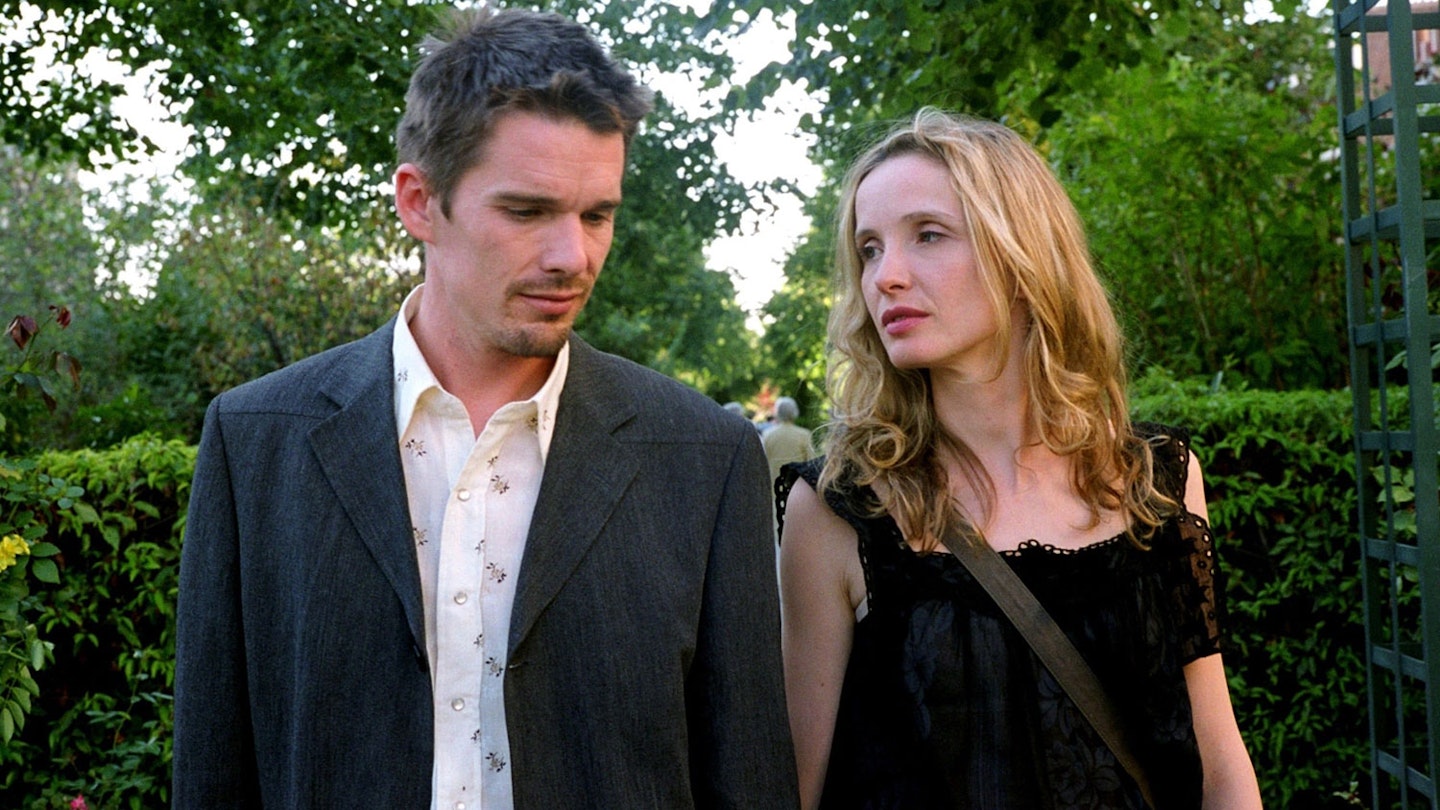 45 of 100
45 of 10056) Before Sunset
2004Nine years after that night in Vienna, Celine and Jesse reconnect in Paris; Julie Delpy and Ethan Hawke slipping effortlessly back into their respective romantic personae in an unforced, entirely organic sequel. This time it's more complicated: the pair come with a decade more baggage, and Celine isn't entirely impressed by the post-slacker autobiographical novel Jesse has written based on their original encounter. As before, the narrative takes place almost in real time: in this case in the couple of hours before Jesse has to catch a plane. And as before, a generation of viewers is willing them not to go their separate ways at the end. As indelibly seductive images go, Delpy dancing in her apartment to Nina Simone is up there with Anita Ekberg in the Trevi Fountain. The subsequent Before Midnight, another nine years on, confirms that Jesse thought so too.Read the Empire review.Buy now on Amazon.
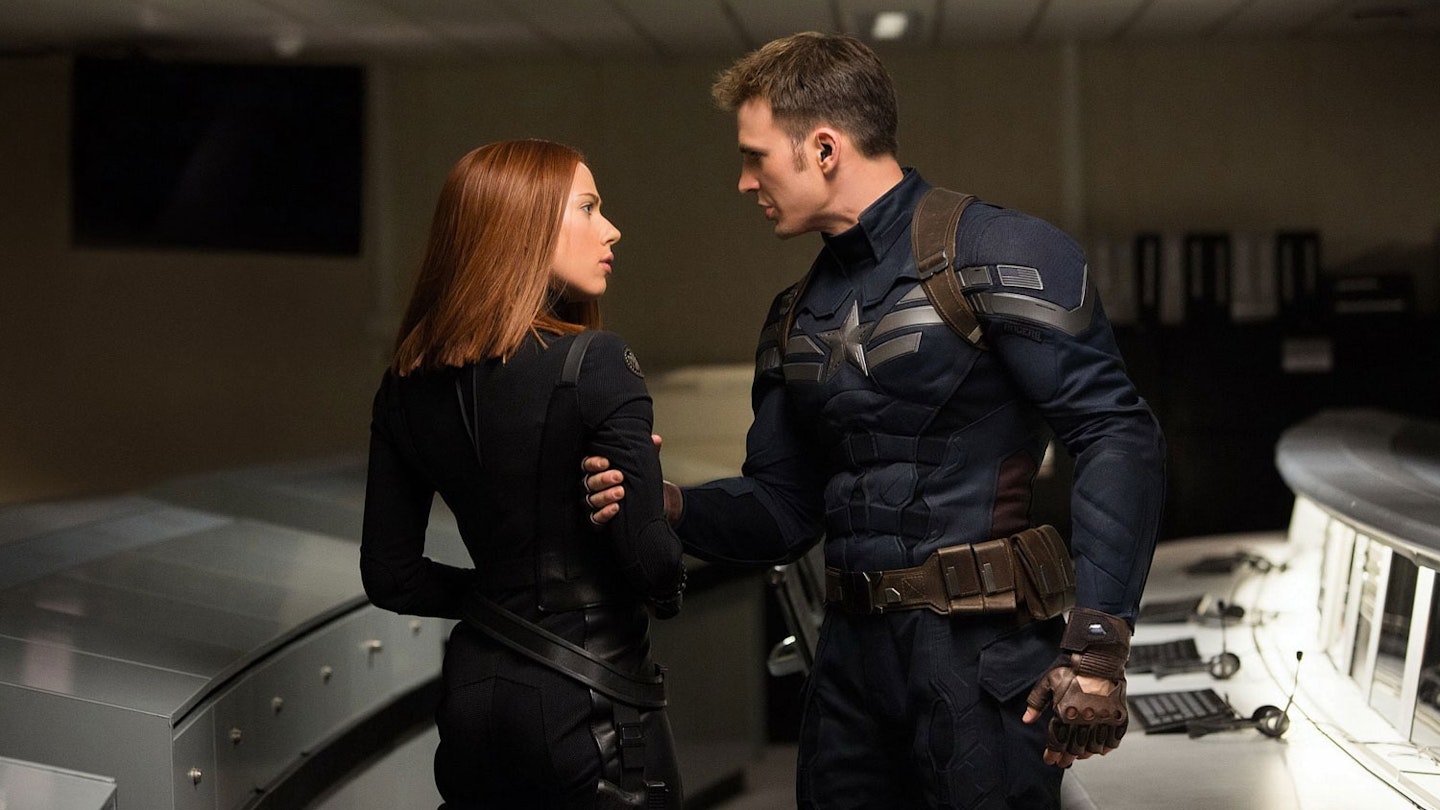 46 of 100
46 of 10055) Captain America: The Winter Soldier
2014Through his first two MCU outings – Captain America: The First Avenger and Avengers Assemble – Steve Rogers was faced with clear-cut enemies. But there are no overt Nazis or marauding aliens in The Winter Soldier, a film which forces Cap to face the complexity of 21st Century America. Revealing the 'good' of SHIELD and evil of HYDRA to be intertwined, the film is effectively a blockbuster political thriller that challenges its central hero to stay pure and true when surrounded by corruption and concealed villainy. As a superhero film, it's thrillingly grounded – incoming directors Anthony and Joe Russo (then best known for helming sitcom episodes) delivering hard-hitting hand-to-hand combat fight scenes that pushed the limits of 12A. From the close-quarters lift scrap to the Nick Fury car chase, it delivers in a completely different way to the more fantastical end of the MCU spectrum. Plus, its warnings around dormant forces of fascism came years before the rise of the alt-right in the late 2010s.Read the Empire review.Buy now on Amazon.
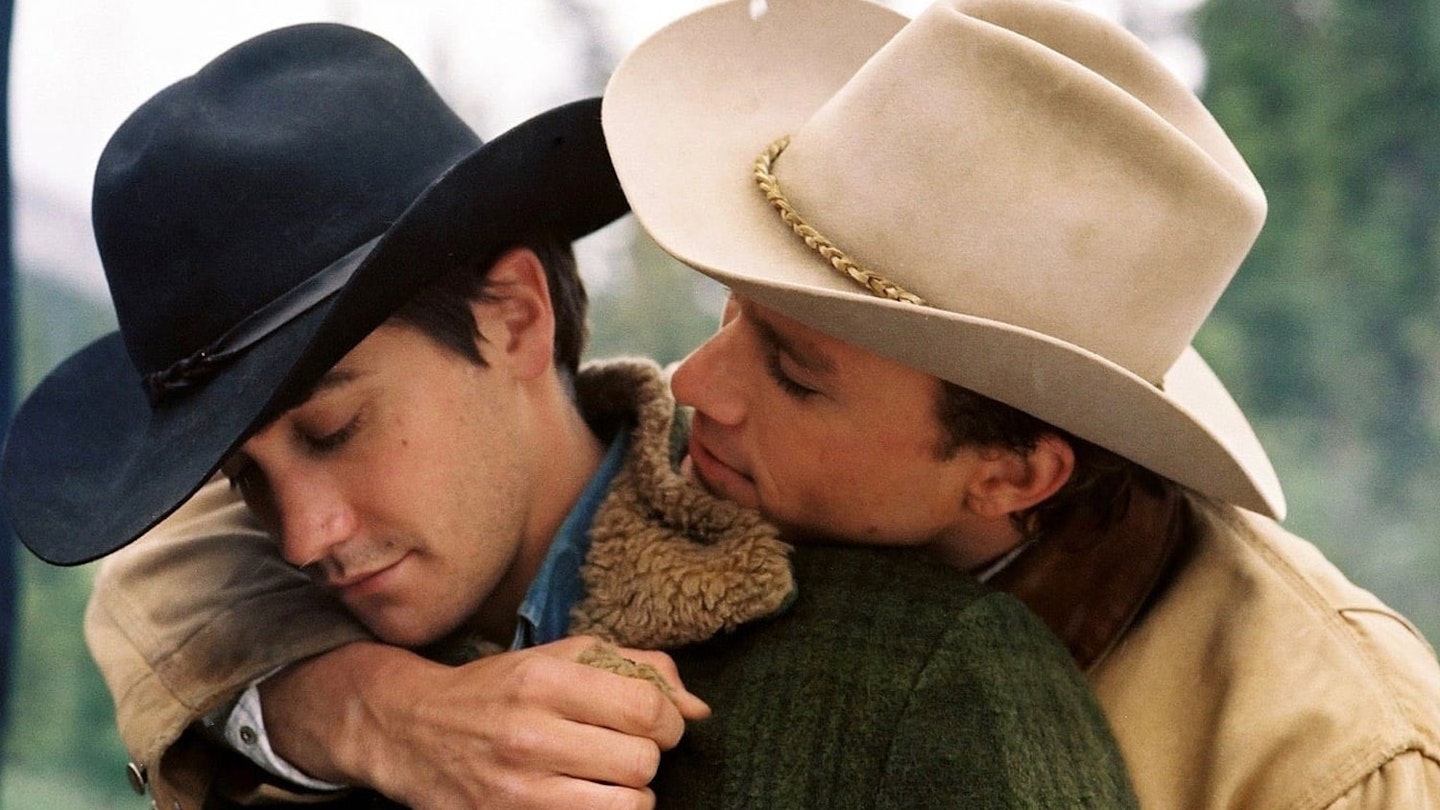 47 of 100
47 of 10054) Brokeback Mountain
2005A film about gay cowboys had the potential for parody, but Brokeback Mountain sidestepped that to earn massive festival buzz and an ultimate awards frenzy – testament to its deep sincerity, the empathy of its writing (by Larry McMurtry and Diana Ossana, from Annie Proulx's short story) and direction (by Ang Lee, rehabilitating himself after the ordeal of Hulk), and the committed, heartfelt central performances of Jake Gyllenhaal and Heath Ledger. Lee says he just pointed the camera and let his actors work. That's giving himself too little credit, but it's true that there are no stylistic tics, no dramatic posturing or grand gestures, nothing lurid or gratuitous. It's purely and simply a film about closely observed characters and breathtaking landscape, and it never feels less than truly, emotionally authentic.Read the Empire review.Buy now on Amazon.
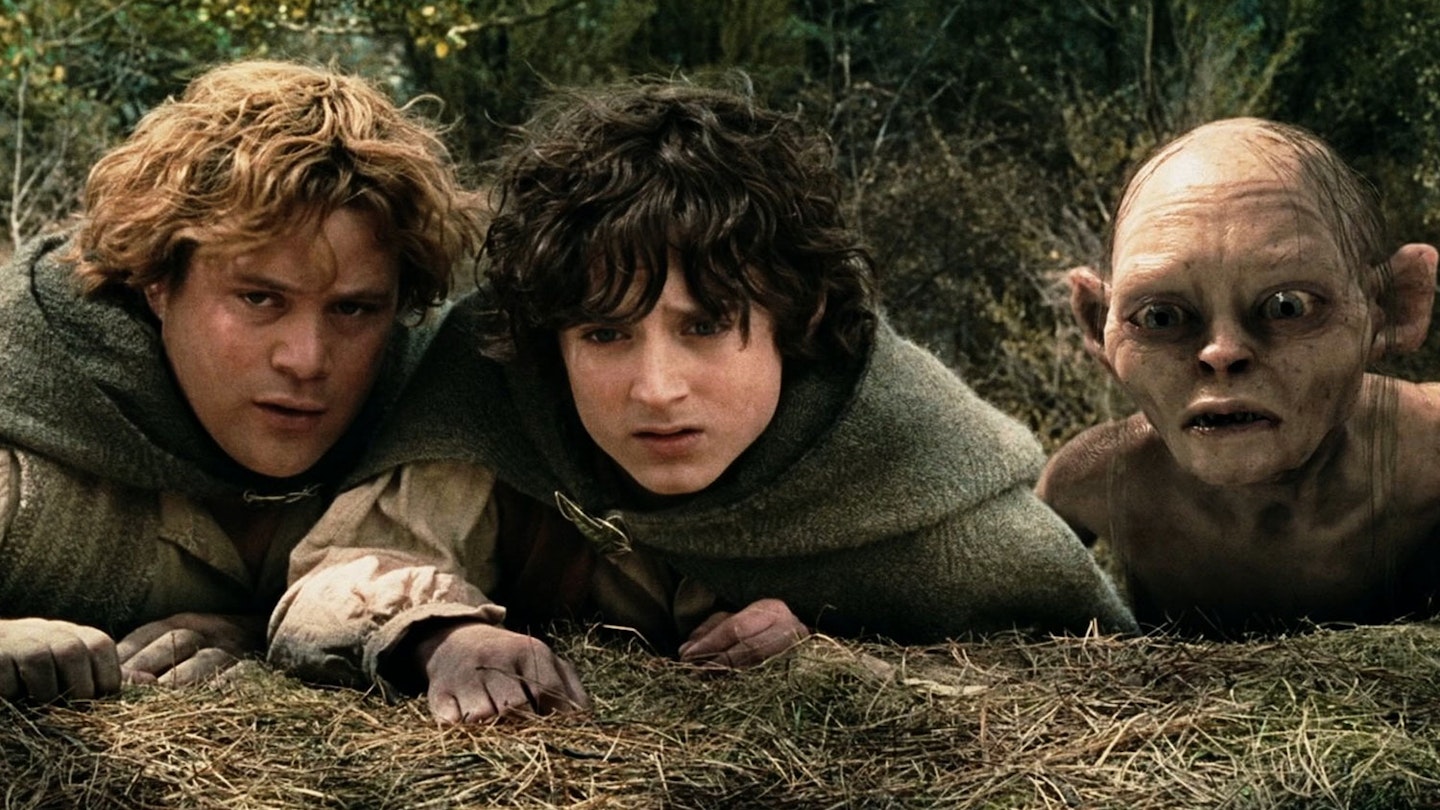 48 of 100
48 of 10053) The Lord Of The Rings: The Two Towers
2002Being the middle part isn't easy. And yet, without a definitive beginning or ending, The Two Towers excels in every way the central part of The Lord Of The Rings trilogy needed to – broadening Middle-earth, and challenging the fractured Fellowship in new ways as the sheer weight of their monumental task becomes apparent. If the Frodo and Sam story sometimes gets bogged down in the marshes, the thread that sends Aragorn, Legolas and Gimli to Rohan is utterly compelling. On a technical level, it saw the dawn of motion capture with Andy Serkis' iconic Gollum – a visual effect that still largely holds up today, especially when seen on original 35mm prints, carried through on the weight of Serkis' captivating performance. And then there's Helm's Deep – the astonishing climactic battle sequence that stands as the trilogy's best. It redefined what big-screen fantasy clashes could be, masterfully blending miniatures and epic sets for a tangibly rain-lashed siege. Try to imagine Game Of Thrones existing without it.Read the Empire review.Buy now on Amazon.
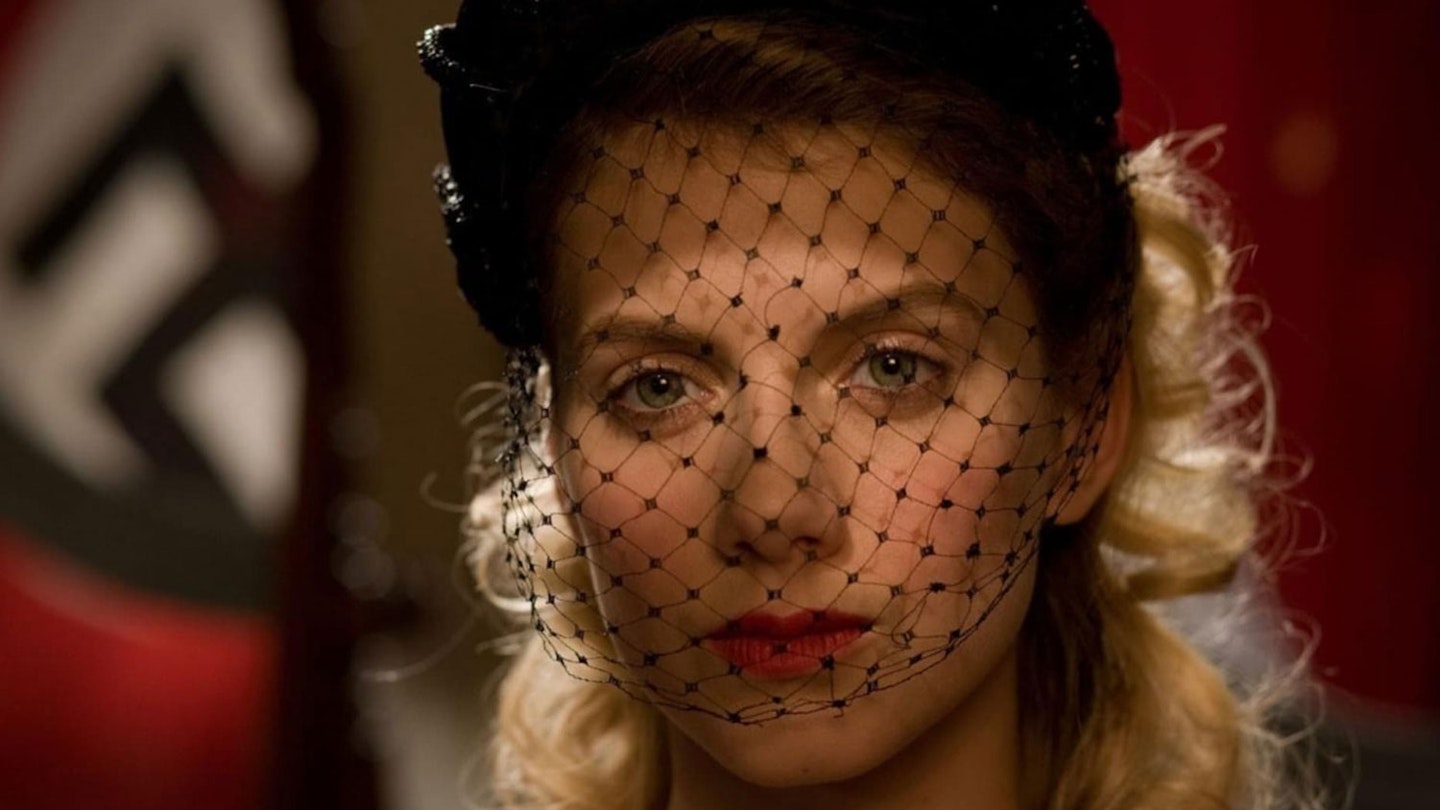 49 of 100
49 of 10052) Inglourious Basterds
2009After Grindhouse disappointed financially, Quentin Tarantino hit back with a World War II epic that ends on a ballsy brag: "I think this just might be my masterpiece." Whether or not that's the case, his Inglourious Basterds (pinching the name of largely-unrelated 1978 Italian war movie The Inglorious Bastards) increasingly grows in stature – a film of distinct extended chapters, many of which don't even feature its titular Nazi-hunting Jewish soldiers. Whether it's focusing on Christoph Waltz's mesmeric, ruthless Nazi colonel Hans Landa (a contender for the all-time-great QT character) or devoting half an hour to a wrenchingly tense barroom game behind enemy lines, Basterds is 150 minutes of pure entertainment – a middle-finger to the history books that allows French cinema nerds and Southern-twanging American heroes to win the war. It's Tarantino at his most playful, endlessly quotable ("That's a bingo!"), with brilliant writing even by his standards, and great performances to boot (Waltz, Brad Pitt and Mélanie Laurent, to name but a few). Hell, it could be his masterpiece after all.Read the Empire review.Buy now on Amazon.
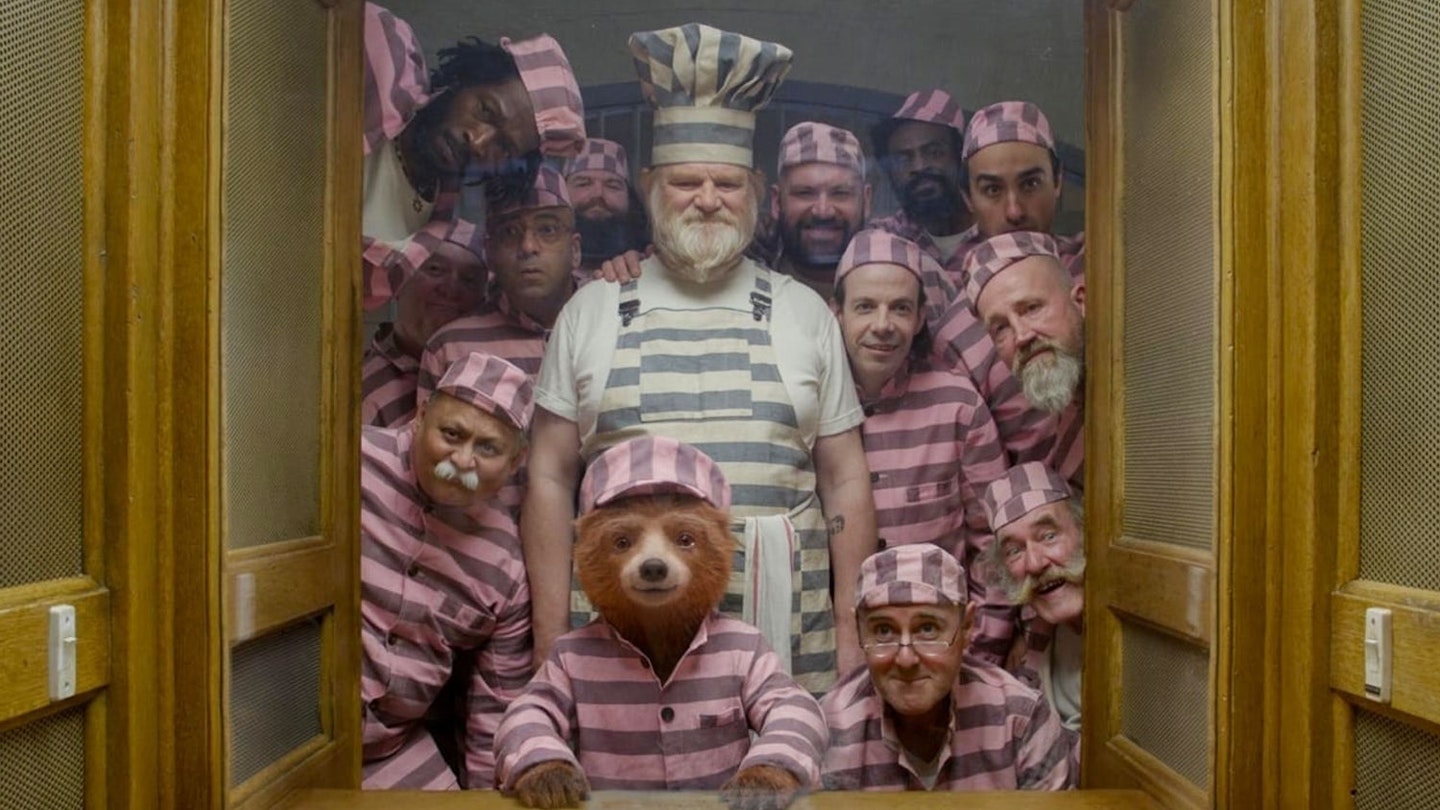 50 of 100
50 of 10051) Paddington 2
2017"If we're kind and polite, the world will be right." Paddington 2's central adage couldn't feel more necessary right now, perfectly encapsulating the optimism, pure-heartedness and beautiful simplicity that make Paul King's sequel such an unalloyed pleasure. Doubling down on everything that made the first film so delightful, Paddington 2 is a film whose cuddly exterior perhaps disguises its astonishing craft: the Wes Anderson-esque pastel-perfect palette, meticulous toybox aesthetic, and carefully calibrated slapstick. Boasting excellent turns from Sally Hawkins, Brendan Gleeson, and particularly Hugh Grant – at his very best playing villainous luvvie Phoenix Buchanan, earning himself a BAFTA nomination in the process – it's an embarrassment of riches on every front, made all the more endearing for its utter lack of cynicism. Like the first film, it gives a hard stare to regressive attitudes around race and immigration, and revels in simple acts of love and kindness. And marmalade sandwiches.Read the Empire review.Buy now on Amazon.
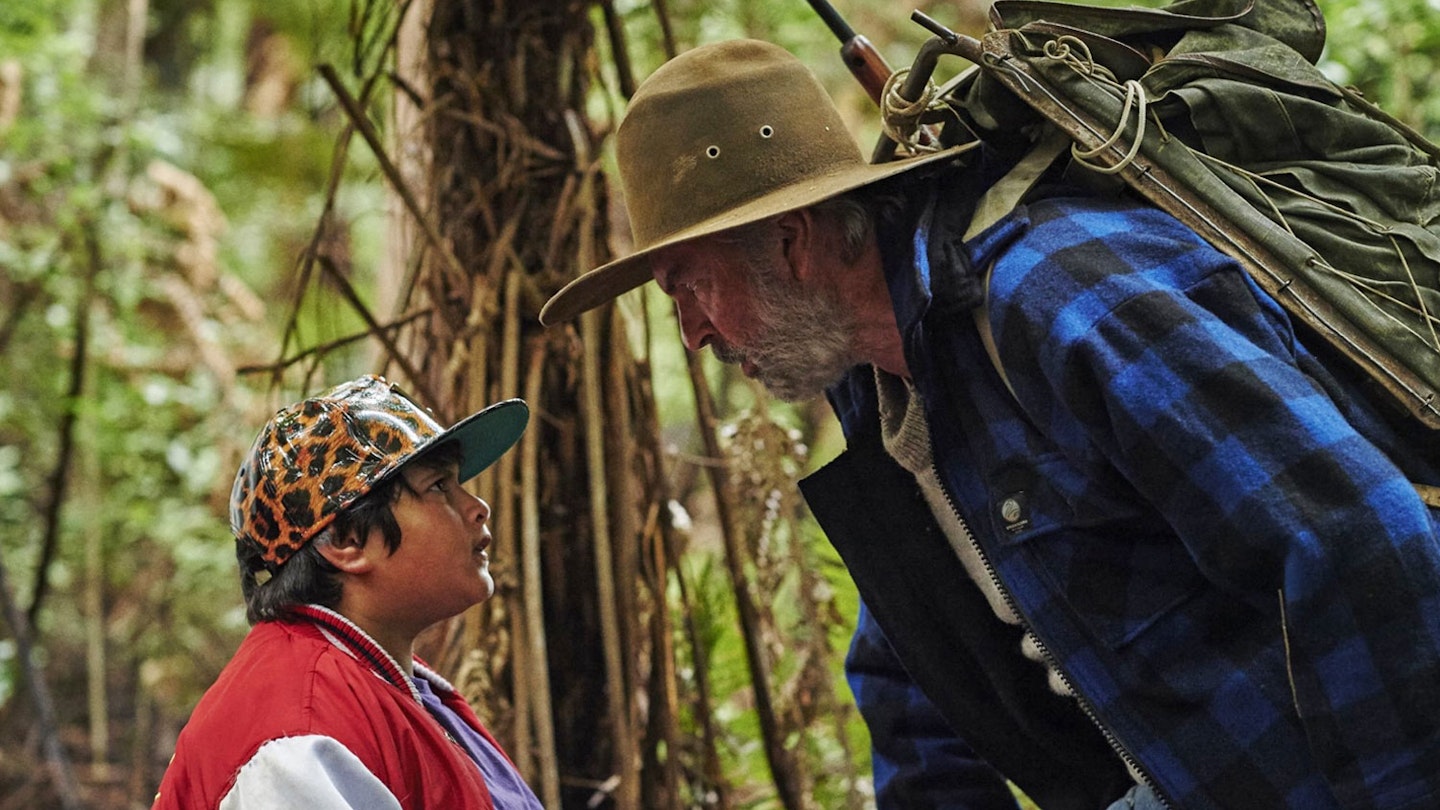 51 of 100
51 of 10050) Hunt For The Wilderpeople
2016Nobody but Taika Waititi could have made Hunt For The Wilderpeople. Even though it's based on Barry Crump's novel Wild Pork And Watercress, the Kiwi filmmaker's voice can be felt in every part of the film – its tonal balance of deadpan NZ humour and quiet tragedy, moments of visual fantasy, and pervasive sense of humanity. Newcomer Julian Dennison is endlessly endearing as 13-year-old "bad igg" Ricky Baker, who inadvertently goes on the run with his new guardian 'Uncle' Hec (a gloriously gruff Sam Neill), resulting in a bittersweet odd-couple adventure that avoids cloying whimsy and is rooted in real emotion. Along with What We Do In The Shadows, it was the film that cemented Waititi's international appeal – propelling him to the MCU and beyond to become a prominent and distinctive voice in the current cinematic landscape. Properly majestical.Read the Empire review.Buy now on Amazon.
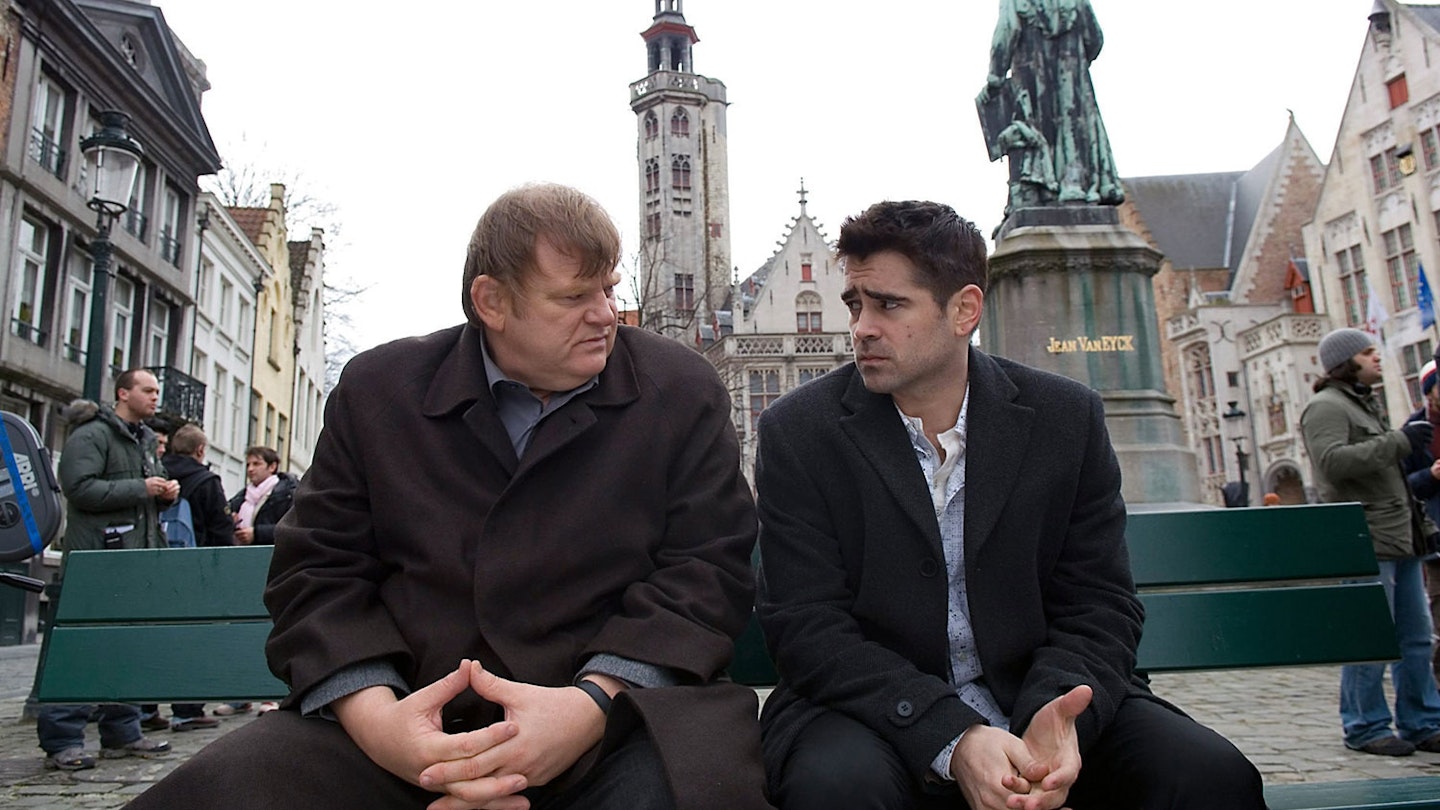 52 of 100
52 of 10049) In Bruges
2008To say that the humour in In Bruges' is coarse is to say the centre of the sun is 'a bit hot' – Martin McDonagh's screenplay for his existentialist gangster movie is impressively caustic, leaving you frequently agog at the words coming out of the mouths of hiding hitmen Ray (Colin Farrell) and Ken (Brendan Gleeson). Left to await further instructions from their boss in the quaint Belgian town of the title ("It's like a fucking fairytale or something") after a job gone wrong, the pair languor in a picturesque purgatory, sight-seeing, shit-talking and soul-searching in equal measure as the weight of their actions comes crashing down. The jokes might be near-the-knuckle, but it's near-impossible not to laugh. Farrell in particular puts in a gleeful performance that you later realise is anchored in total tragedy and self-loathing. It's a wild balancing act that McDonagh pulls off perfectly – and an oddly effective advert for Bruges.Read the Empire review.Buy now on Amazon.
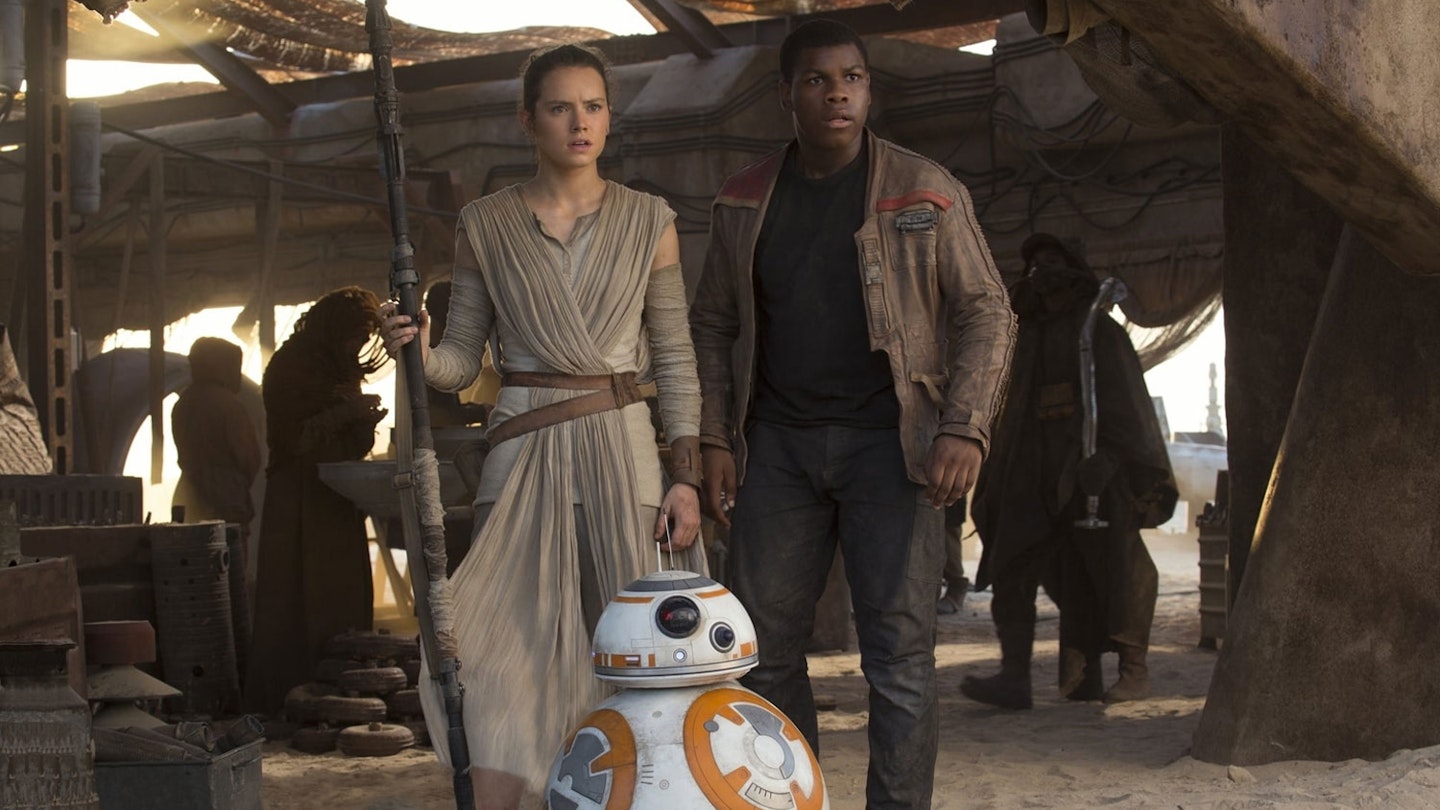 53 of 100
53 of 10048) Star Wars: The Force Awakens
2015To understand the brilliance of The Force Awakens is to remember where Star Wars was pre-2015 – the legacy of the prequels still lingering, the sense of adventure and vitality long gone. JJ Abrams' film revived the Skywalker saga with a literal quest to rediscover the long-lost heart of the original trilogy, while preaching the importance of continuing the legend for a new generation. On that front you have Daisy Ridley's Rey and John Boyega's Finn – a woman and a black man fronting a none-more-gigantic Hollywood blockbuster, still surprisingly rare – bolstered by Adam Driver's mesmerising villain Kylo Ren. If it often gets accused of playing it safe, it also has moments of narrative chutzpah that made jaws drop on initial release. The Force Awakens is a throwback in many ways – but it's also utterly contemporary, proving that Star Wars could, and should, be for absolutely everyone.Read the Empire review.Buy now on Amazon.
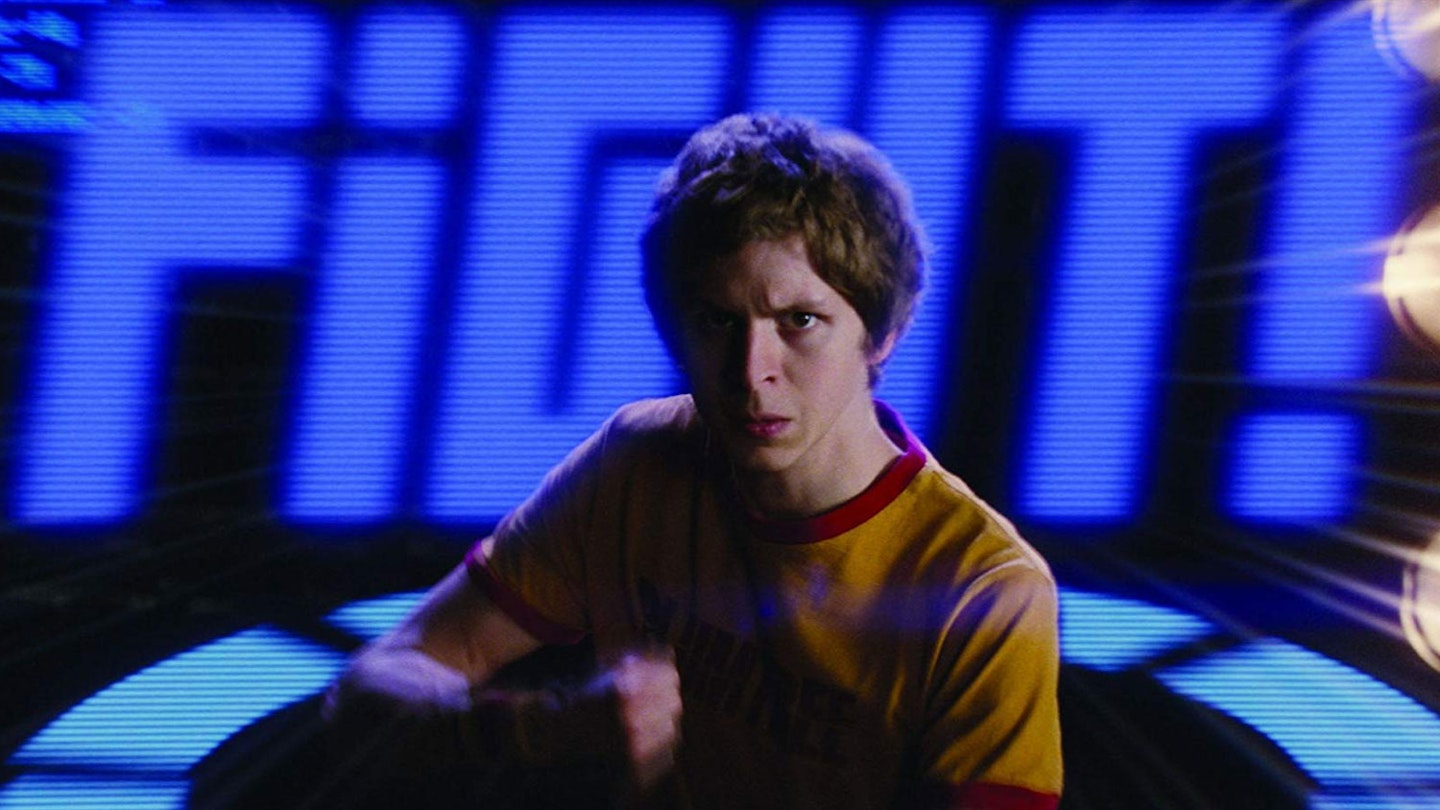 54 of 100
54 of 10047) Scott Pilgrim Vs The World
2010Where Shaun Of The Dead and Hot Fuzz revealed Edgar Wright as a British filmmaker of unique style, Scott Pilgrim kicked his pop-culture-infused visual sensibilities into overdrive. Adapting Bryan Lee O'Malley's beloved comic book series – about a 20-something Torontonian slacker facing his new girlfriend's ex-relationship baggage in literal fist-fights – Wright's third film channels stylistic tics from video games, comic books, anime, sitcoms, and music videos into a dazzling whole. It proves a curious companion piece to Spaced, whose culture-fiend characters' lives were filtered through the lens of their nerdy obsessions – here, Michael Cera's Scott careens through Seinfeld daydreams, Dance Dance Revolution fights, and bass guitar battles with superpowered rockstar vegans. It's two hours of non-stop stimulation with immaculate attention to detail, revolutionary in the way it translates abstract imagery into live-action – a technical marvel with astonishing fight scenes, a stupendous cast ahead of its time (Chris Evans! Brie Larson! Anna Kendrick! Aubrey Plaza!), original music from Beck and Metric among others, and a litany of iconic Toronto locations. KO!Read the Empire review.Buy now on Amazon.
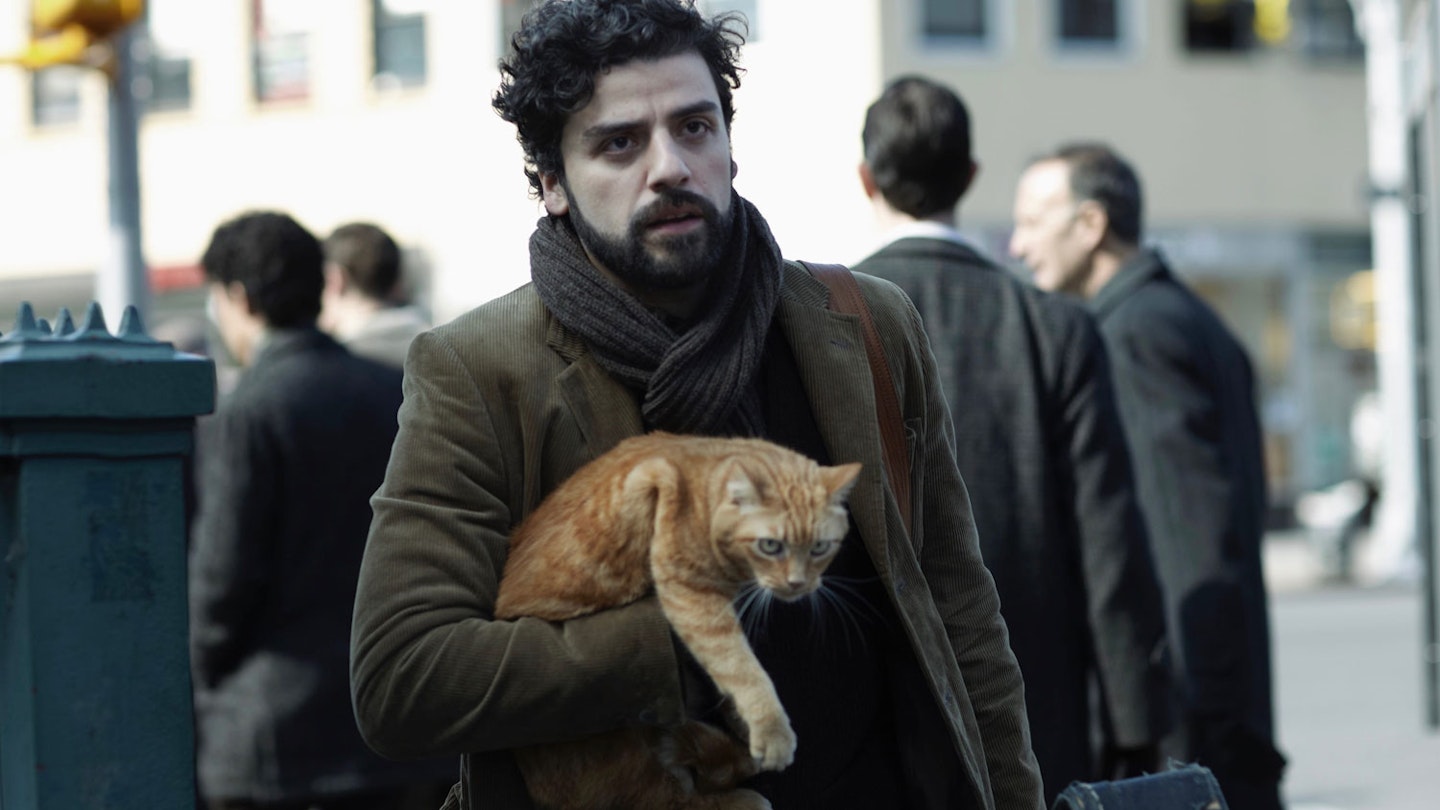 55 of 100
55 of 10046) Inside Llewyn Davis
2013The Coen Brothers turning their attention to the New York folk scene of the early '60s, with a soundtrack once again supervised by T-Bone Burnett, obviously led to the expectation that Inside Llewyn Davis might be something along the lines of another O Brother, Where Art Thou?. It turned out to be anything but: one of their more downbeat, contemplative films, focused on Oscar Isaac's struggling, often exasperating musician as he fails to achieve much. Attempts to sell that soundtrack along O Brother lines seemed to miss the point that a lot of the songs were deliberately goofy (Justin Timberlake's hilariously dire pop pick about the space race being the most obvious example). It's Barton Folk, if you like. And for those that get it, it's as good as that sounds – including another monstrous turn from John Goodman. One of the Coens' very best, a bone dry quote-fest. It will interest you.Read the Empire review.Buy now on Amazon.
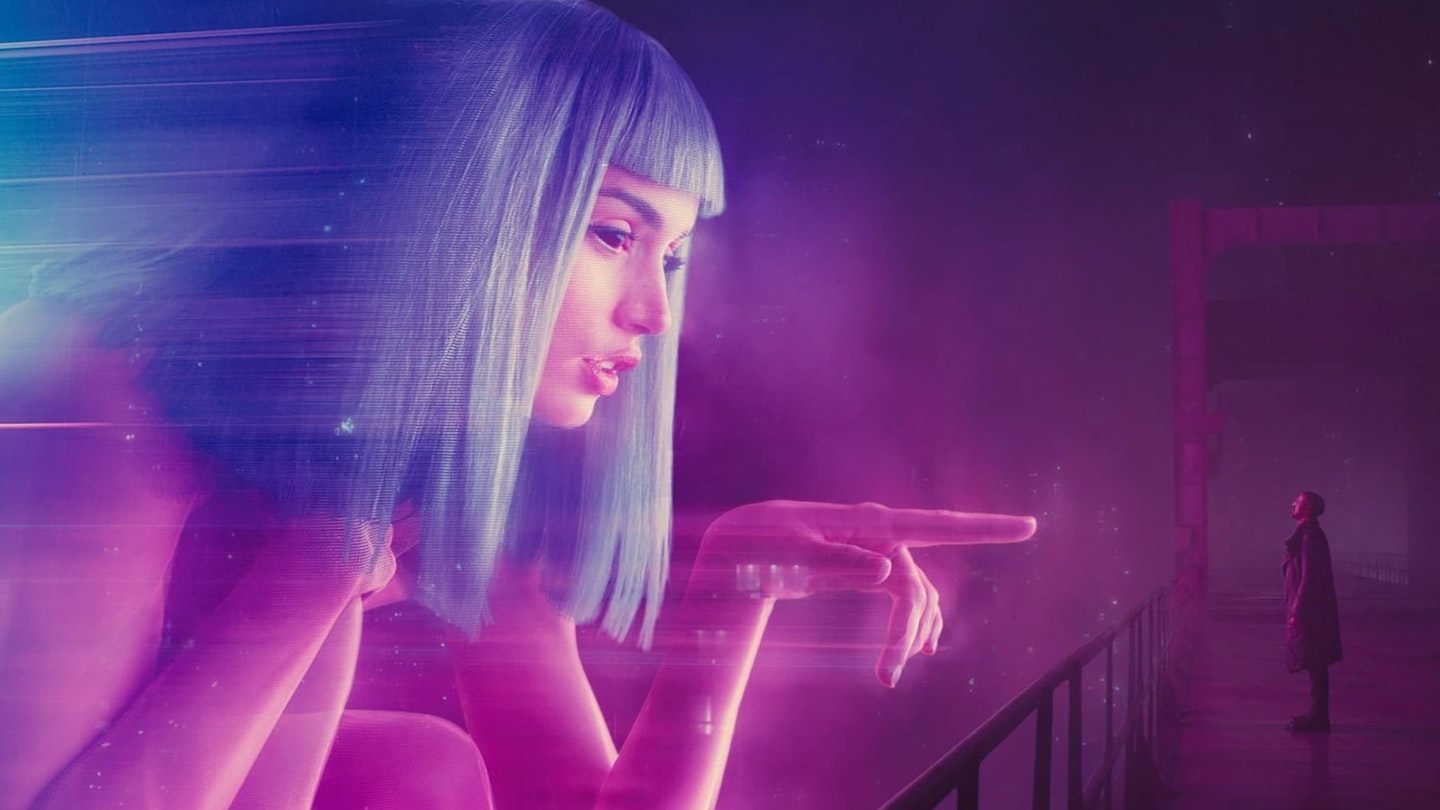 56 of 100
56 of 10045) Blade Runner 2049
2017Denis Villeneuve's late sequel to Ridley Scott's sci-fi masterpiece is less a movie than a miracle. How often does a long-awaited follow-up to a cult classic actually happen, let alone become its own master-work that feels like a justified continuation? Considering Scott's own Blade Runner wasn't beloved on release, 2049's muted box office feels less of a concern – its legacy is secure in the indelible images conjured by cinematographer Roger Deakins (finally winning a long-overdue Oscar for his work), its impressive subversions of 'chosen one' narratives, and its universe that feels of a piece with the original while carving new territory. Beyond Ryan Gosling's new Blade Runner 'K' and the return of Harrison Ford's Rick Deckard, it will go down as the film that brought future stars Mackenzie Davis and Ana de Armas to greater attention. It's a wonder that it exists, and that it turned out so brilliantly. Bring on Blade Runner 2079 sometime in the 2040s.Read the Empire review.Buy now on Amazon.
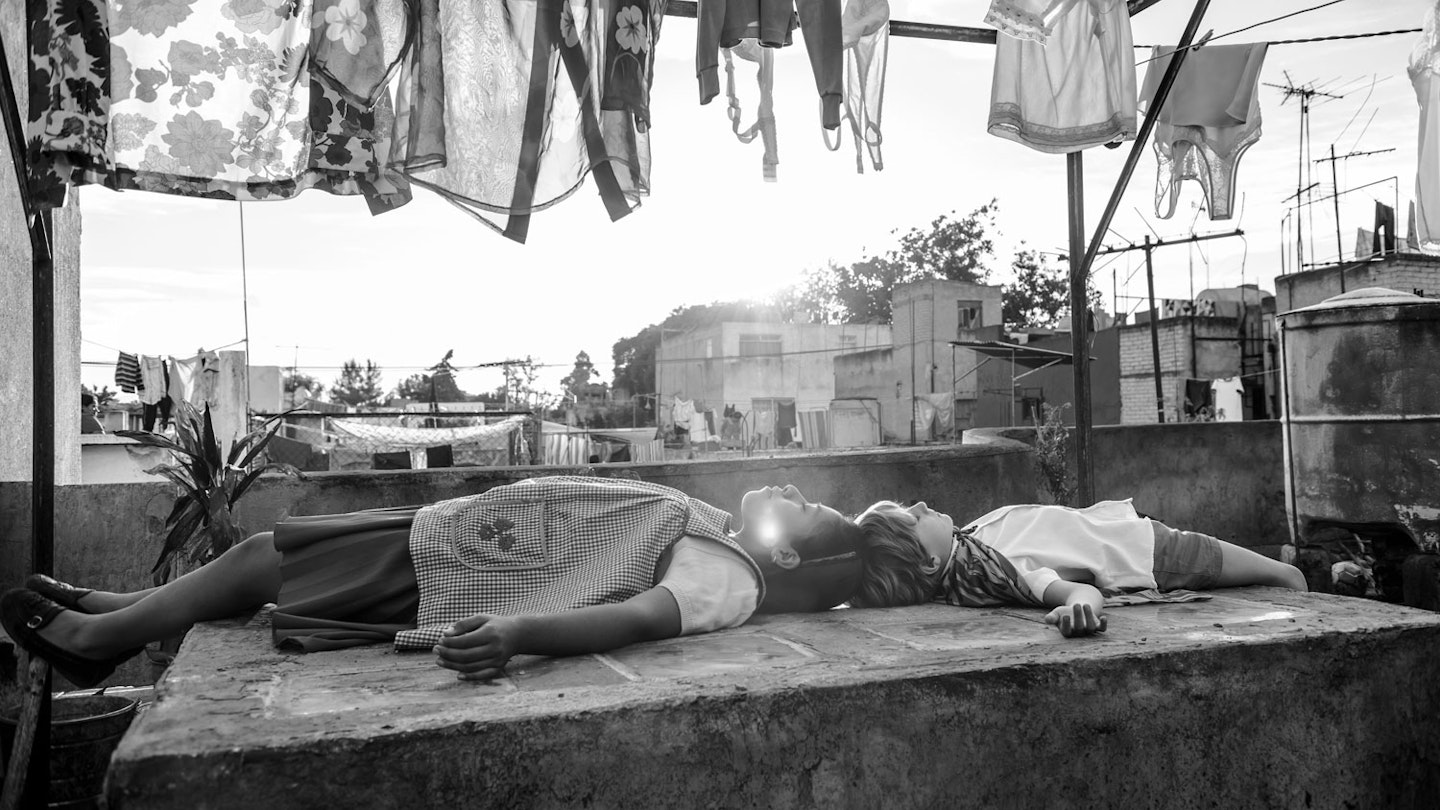 57 of 100
57 of 10044) Roma
2018Mexican director Alfonso Cuarón had plunged into the depths of space in Gravity and the Wizarding World in Harry Potter and the Prisoner of Azkaban, but for Roma, he explored something more ambitious still: his own memory. The filmmaker's eighth feature is both delicately internal and staggeringly expansive, telling a simple story in bold, brilliant brush strokes. Cuarón – always looking to tease the limits of technology – makes black-and-white film feel thrillingly modern, the digital high dynamic range photography removing all grain to leave crisp, gorgeously realised imagery. The meticulous, chaotic recreation of early 1970s Mexico City, meanwhile, feels rich and humane largely thanks to a pair of empathetic performances from Marina de Tavira and Yalitza Aparicio (the latter of whom had never acted before). As a love letter to a time and place and feeling, it is practically unbeatable.Read the Empire review.Buy now on Amazon.
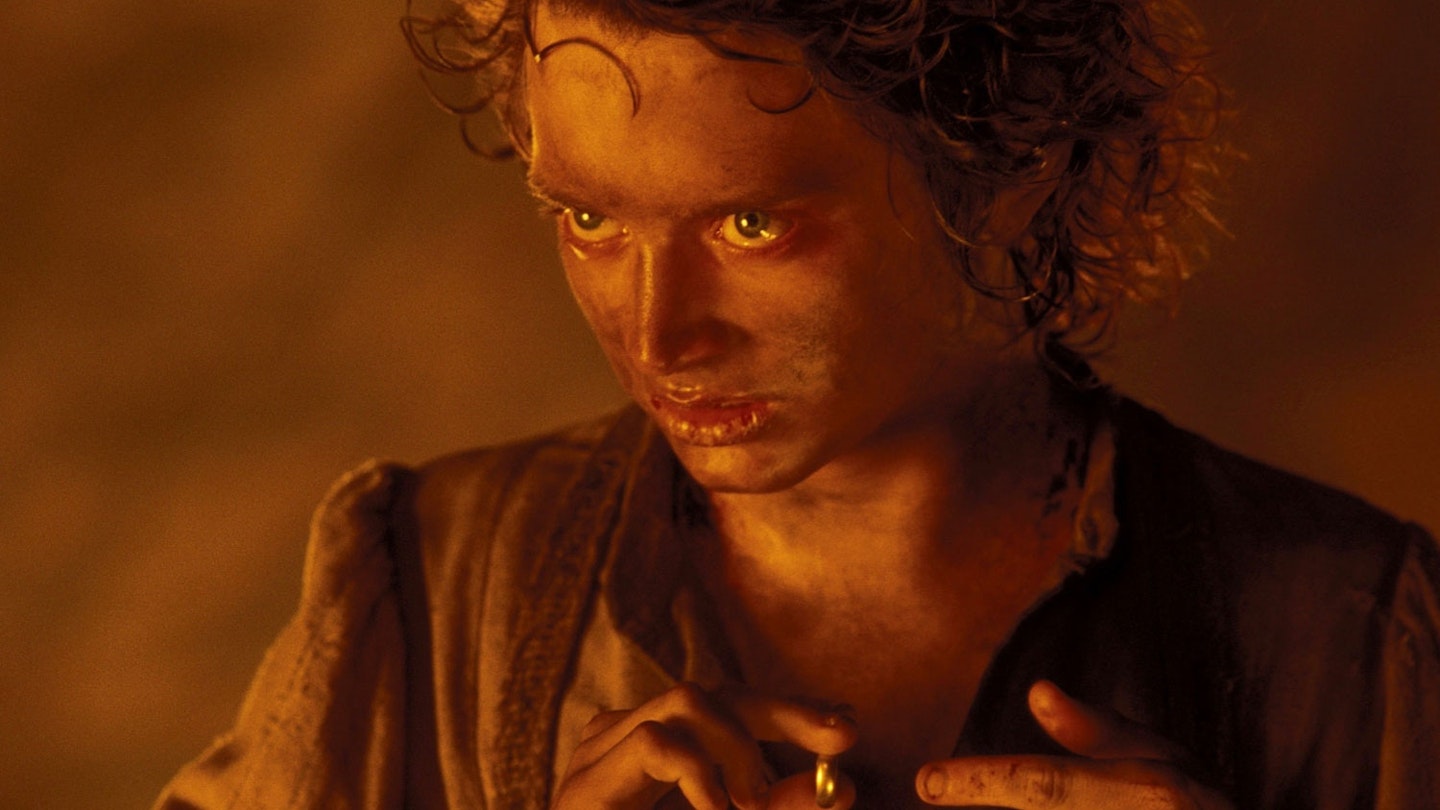 58 of 100
58 of 10043) The Lord Of The Rings: The Return Of The King
2003After two astonishing fantasy epics, Peter Jackson brought his Middle-earth adaptation to a thunderous end – or, several thunderous ends. If it's not as neat as Fellowship, it's an astonishing achievement steeped in pure, non-stop emotion – whether it's Frodo and Sam's final ascent up Mount Doom, Aragorn stepping up as King of Gondor, or Eowyn facing down the Witch-king ("I am no man!"), its most spinetingling moments occur at a human (or, Hobbit) level for a climax forged in fire and blood. With its ghost armies and nightmarish spider-den setpieces, Return Of The King is the Rings film that most allowed Jackson to dabble in the horror territory he was long known for – and as Frodo trudges further into Mordor and the One Ring weighs evermore heavily on him, it veers further into eerie psycho-drama. Most astonishingly, it goes all-out on unfiltered fantasy – and still won over the genre-averse Academy, earning 11 Oscar nominations and winning every single one of them, Best Picture included. It bows to no-one.Read the Empire review.Buy now on Amazon.
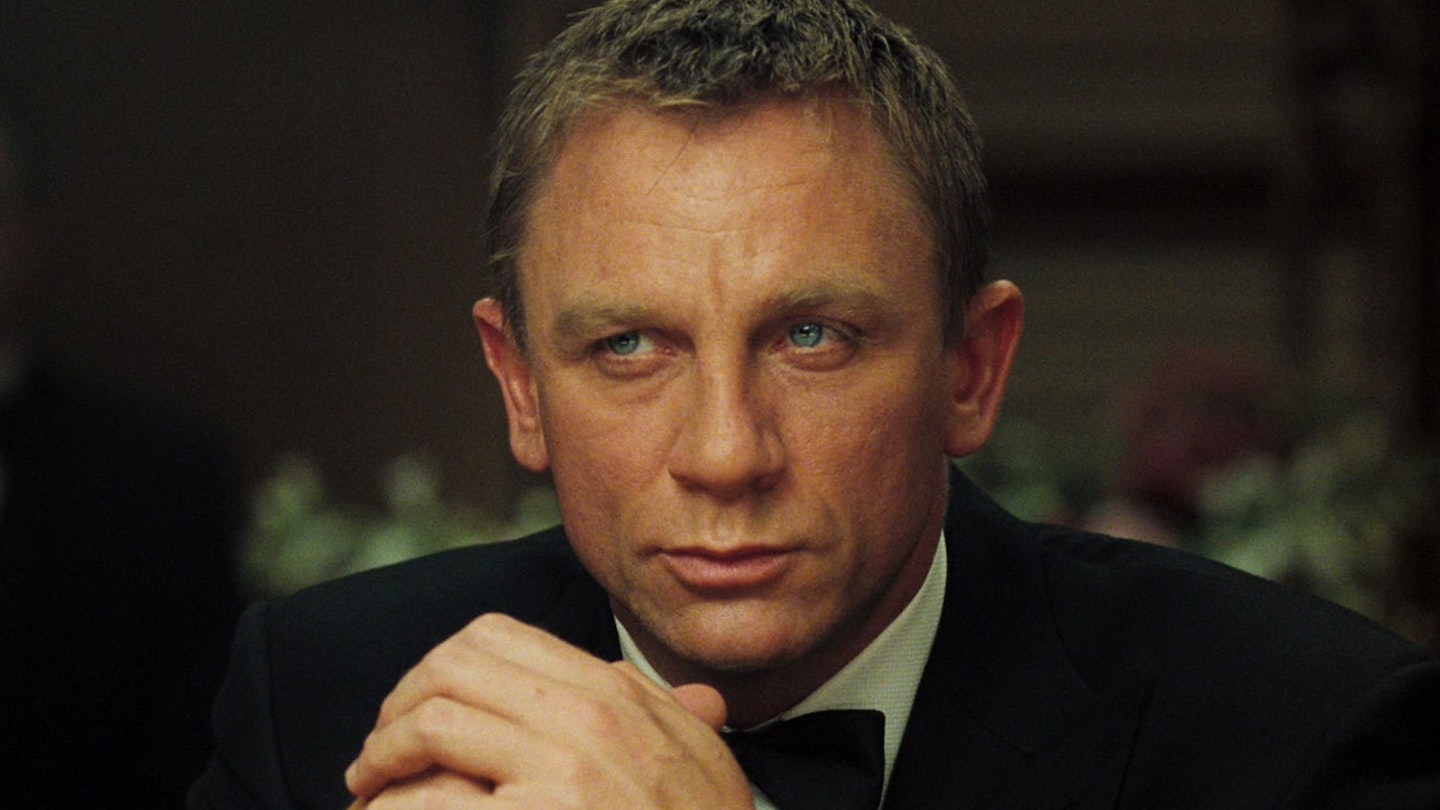 59 of 100
59 of 10042) Casino Royale
2006With its invisible car, dodgy CGI kite-surfing, and fencing Madonna, Die Another Day made it clear that the James Bond franchise needed to change. Post two Bourne movies, the series received its most notable reboot – not only swapping out Pierce Brosnan for the then-controversial Daniel Craig (remember the 'Blonde Bond' furore?), but jettisoning that quippy, campy tone for hard-hitting parkour, nut-thudding torture, and a scarcity of gadgets. Most notably, it went back to the roots of Bond on the page – adapting Ian Fleming's original 007 novel for a tightly-plotted, grounded narrative with emotional heft. Impressively, Casino Royale felt like prime James Bond while also being utterly new – from its black-and-white opening in which he earns his 00-status, to its far-more-than-just-a-Bond-girl role for Eva Green's Vesper Lynd – and still stands as the best outing in the Craig canon. Factor in Mads Mikkelsen as a blood-teared villain, and it's a royal flush.Read the Empire review.Buy now on Amazon.
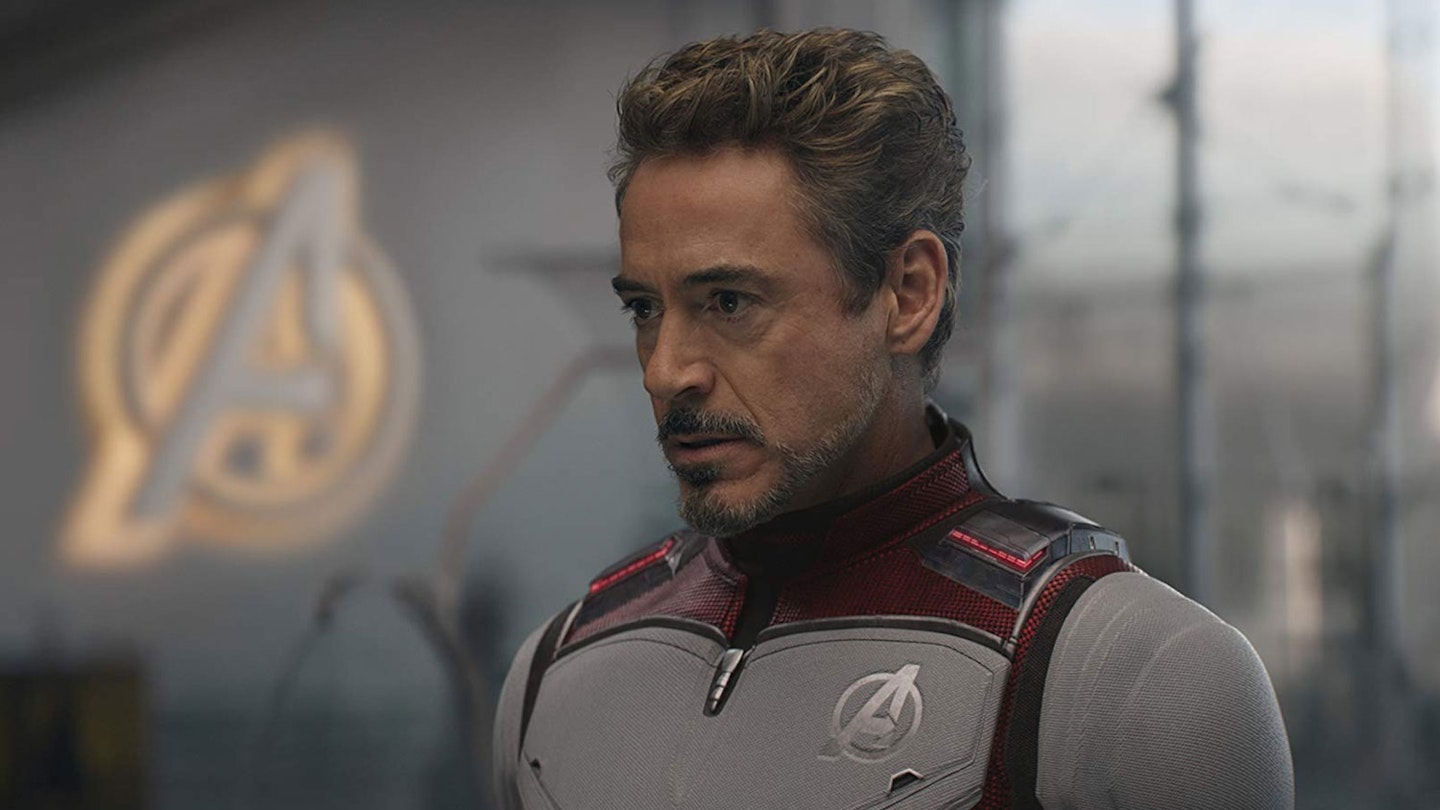 60 of 100
60 of 10041) Avengers: Endgame
2019Sticking the landing is incredibly important – just ask any Game Of Thrones fan. That Endgame tied up 11 years of blockbuster storytelling with such emotion and attention to detail, as well as spine-tingling action spectacle, remains utterly remarkable. Incorporating threads from the entire MCU while largely focusing on the original six Avengers including Tony Stark and Steve Rogers, it's a comic book finale with genuine stakes, a time-travel movie that becomes a victory-lap for a game-changing cinematic universe, and a stirring farewell to the heroes that were long its central pillars. From moment to moment, the Russo brothers and writers Christopher Markus and Stephen McFeely seem hell-bent on making every single second count – wringing drama, thrills, laughs and emotional gut-punches from moment to moment. And when Captain America proves worthy enough to summon Mjolnir on the battlefield and face Thanos? Pure cinema.Read the Empire review.Buy now on Amazon.
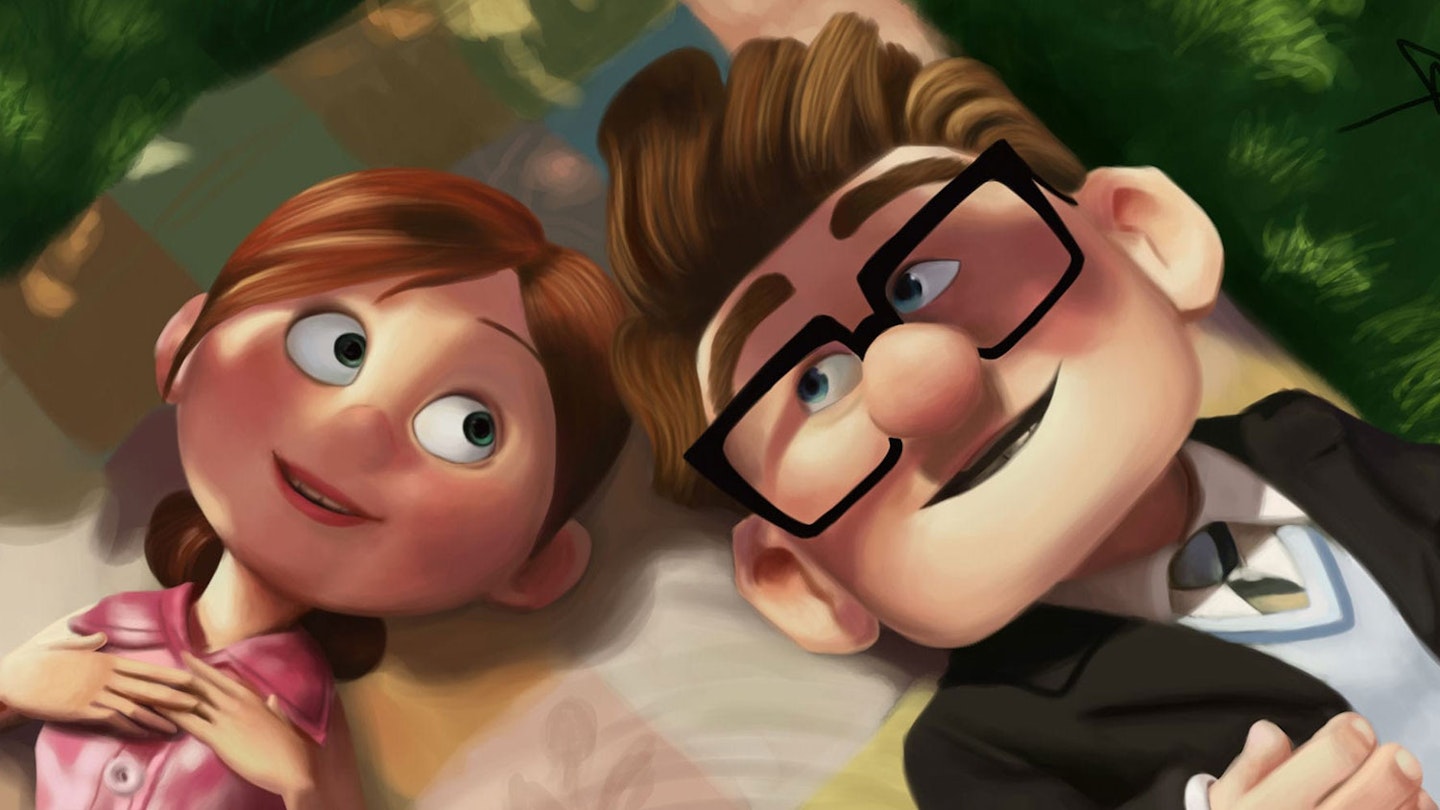 61 of 100
61 of 10040) Up
2009The opening 10 minutes of Pixar's Up are so utterly, heartbreakingly human that it's easy to forget the multicoloured madness to come – a far-out fantasy adventure that takes in talking canines, a big bug-eyed bird called Kevin, and bi-plane dogfights. On the opposite end of the scale, you have the montage that unfurls the shared lives of Carl and Ellie – a couple who meet as kids, grow up together, get married, face miscarriage, infertility, and terminal illness, never finding the time or money for the Paradise Falls expedition they long dreamed of. It's this mix of the serious and the surreal that makes Up such a marvel, proving yet again the power of Pixar in both imagination and emotion, incorporating grief, ageing, memory and the importance of letting go into a film where helium balloons carry a house over to South America. If the first sequence gets all the attention, the real kicker comes later – as Carl realises Ellie has filled out their 'adventure book' with photos of their life together. An ode to the everyday adventures that make up a lifetime.Read the Empire review.Buy now on Amazon.
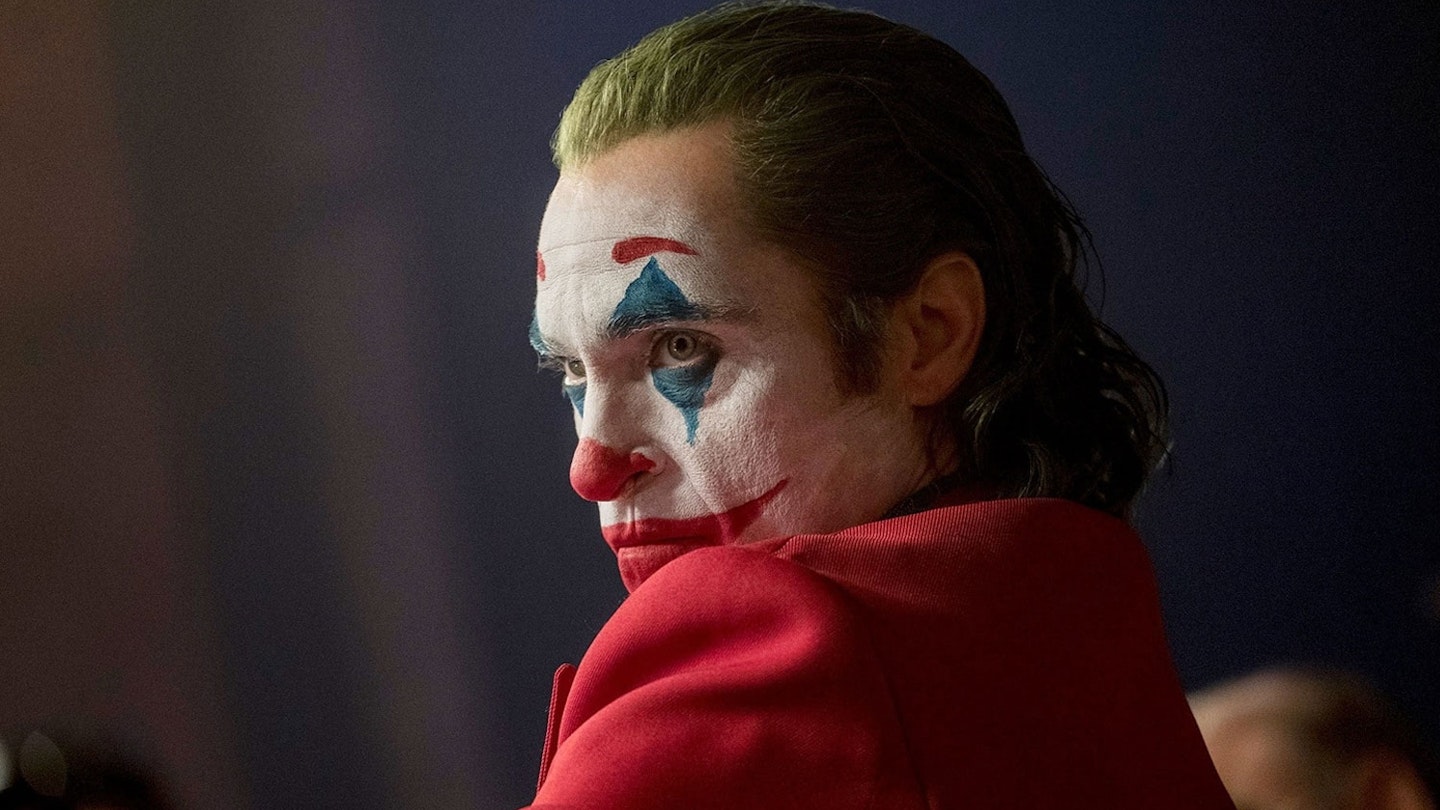 62 of 100
62 of 10039) Joker
2019Todd Phillips' origin story for Gotham's Clown Prince Of Crime is a paradox. A comic book movie that isn't really based on any particular comic. An art movie from the director of the Hangover trilogy that divided the art-movie crowd. A nihilistic spectacle that earned the most Oscar nominations of the year. Appropriately, it's as hard to pin down as the Joker himself. Delighting and dismaying audiences in droves, Joker borrows liberally from established Troubled White Man narratives to deliver a supervillain movie that owes more to Martin Scorsese's Taxi Driver and The King Of Comedy than it does even to Christopher Nolan's Dark Knight trilogy. Phoenix is revelatory as the pathetic, pitiable Arthur Fleck, whose growing disaffection and delusions of grandeur spiral into real-life villainy – an exercise in psychological horror that's justifiably uneasy to watch. Post-Logan, it represented another mature evolution for the comic book movie – and proved that DC adaptations could thrive outside the Marvel-style universe structure.Read the Empire review.Buy now on Amazon.
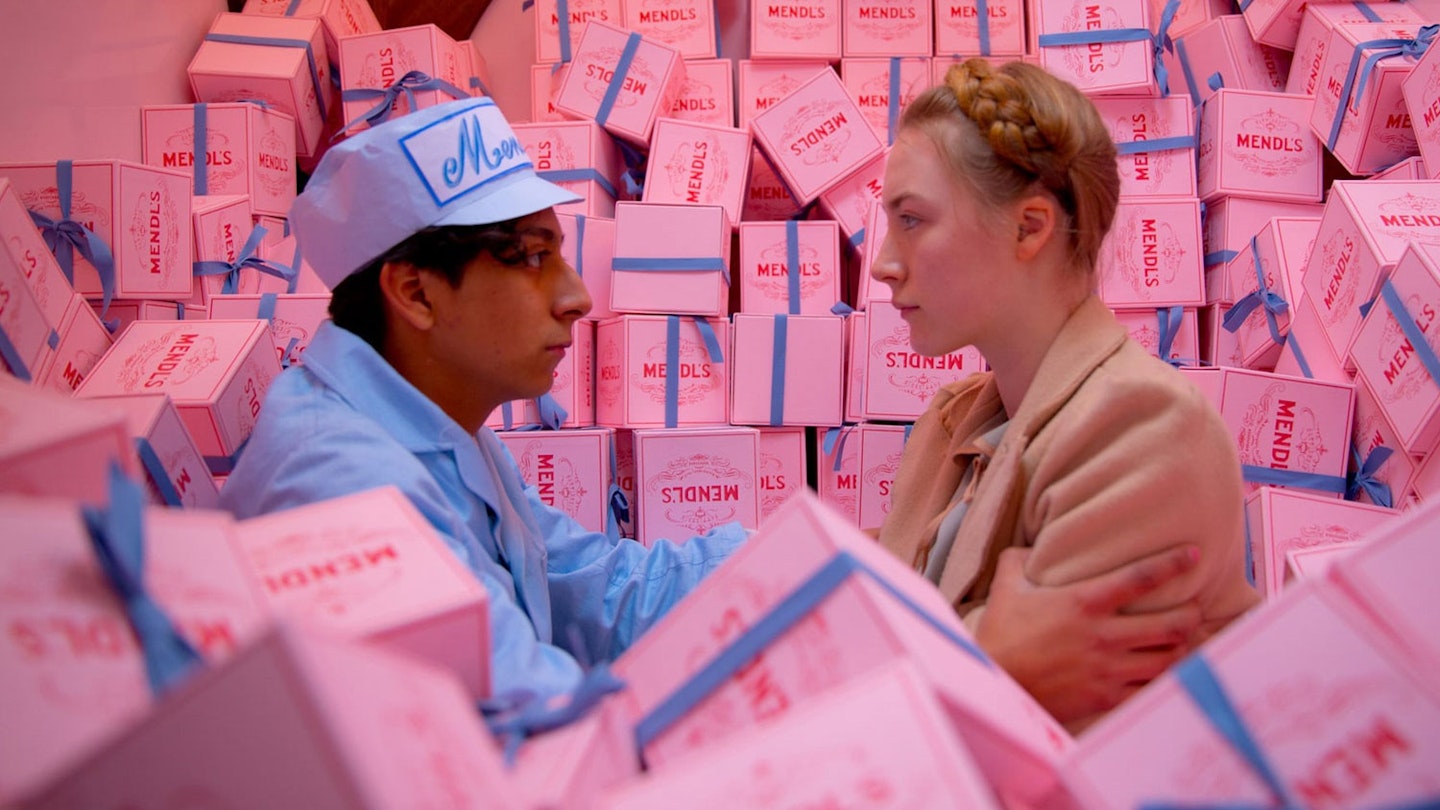 63 of 100
63 of 10038) The Grand Budapest Hotel
2014Wes Anderson's films have always been beautiful – but The Grand Budapest Hotel, as well as being perhaps his most gorgeous movie, is about the appreciation of beauty in a world becoming increasingly ugly. Ralph Fiennes' foppish womaniser Gustave H lives surrounded by affected splendour, but as the rising forces of fascism increasingly impinge on the lush surroundings of the Grand Budapest, his appreciation of luxury feels increasingly politicised. The film's meticulous construction is Anderson at the peak of his live-action craft, his growing troupe of regular actors becoming increasingly preposterous (Jeff Goldblum! Tilda Swinton! Saoirse Ronan!), his whimsical screenwriting more layered and nuanced. A story within a story within a story, told in layers of artifice with a different aspect ratio for each, it's grand and delicate in equal measure.Read the Empire review.Buy now on Amazon.
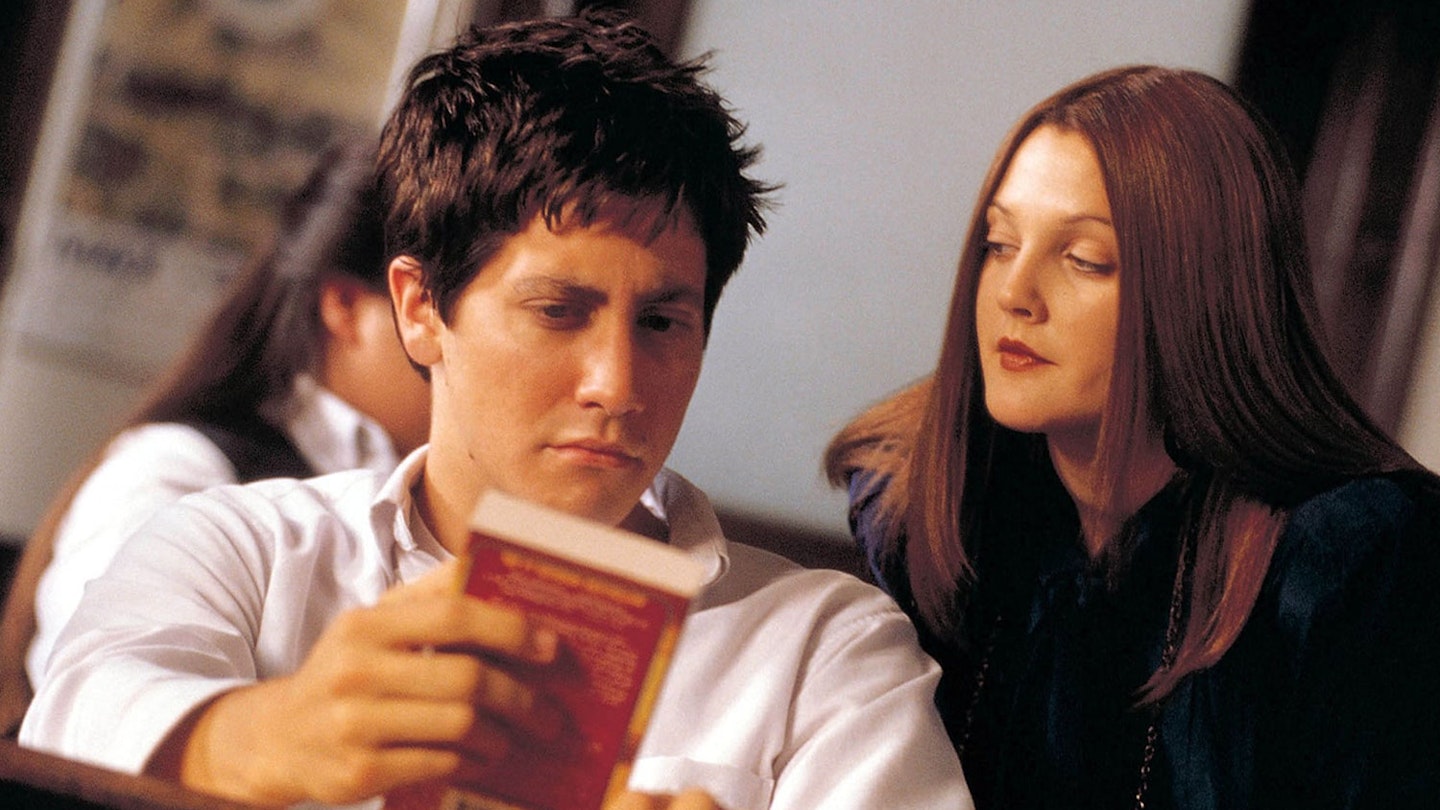 64 of 100
64 of 10037) Donnie Darko
2001Taking in time travel, tangent universes and sinister rabbits by way of a high school drama, Richard Kelly's brilliantly opaque Donnie Darko was a nailed-on cult classic from the moment of its release. As is usually the way of these things, it did practically nothing on its initial unveiling but picked up a phenomenal following later on DVD, winning Jake Gyllenhaal a career and making extraordinary against-type use of Patrick Swayze. Kelly assembled an unnecessary director's cut in 2004, but both versions are, at core, a peculiarly bleak inversion of It's A Wonderful Life, with Donnie experiencing how the world is worse off if he survives the jet engine that mysteriously crashes on his bedroom. The fact that the film's conclusion manages to seem transcendently optimistic rather than a massive downer is part of its twisted genius. We find it kinda funny, we find it kinda sad.Read the Empire review.Buy now on Amazon.
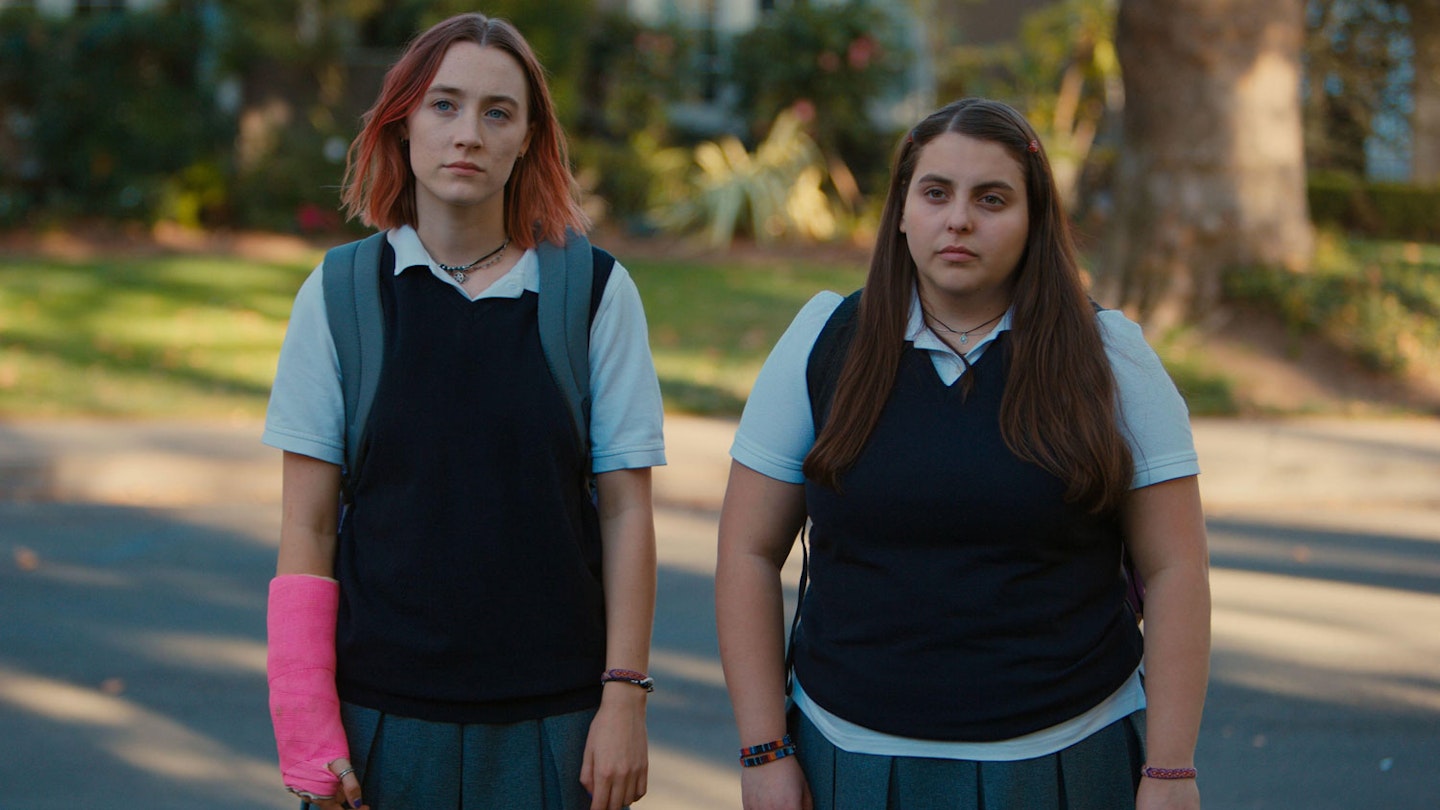 65 of 100
65 of 10036) Lady Bird
2017Already an indie icon thanks to her writer-actor collaborations with Noah Baumbach and roles in films by the Duplass Brothers, Whit Stillman, Mike Mills and more, Greta Gerwig's feature debut as sole writer-director exceeded all lofty expectations. Mining her own teenage emotions for material, Gerwig's coming-of-age tale of Christine "Lady Bird" McPherson is warm and deeply empathetic, spinning a complex and believably fractious mother-daughter relationship. Laurie Metcalf is excellent as Lady Bird's exasperated mum, selling the love that underpins their constant clashes and miscommunications, while Beanie Feldstein brings big laughs as best friend Julie. But this is Saoirse Ronan's movie – her Lady Bird is precocious, narcissistic, occasionally irritating, and totally loveable. Gerwig's love letter to her youth, her mother and her hometown has her surrogate character desperate to escape all of those things – adding a bittersweet, melancholy edge to a largely funny and heartfelt film. Lady Bird has everything that makes coming-of-age films so engaging, told by a vital new voice.Read the Empire review.Buy now on Amazon.
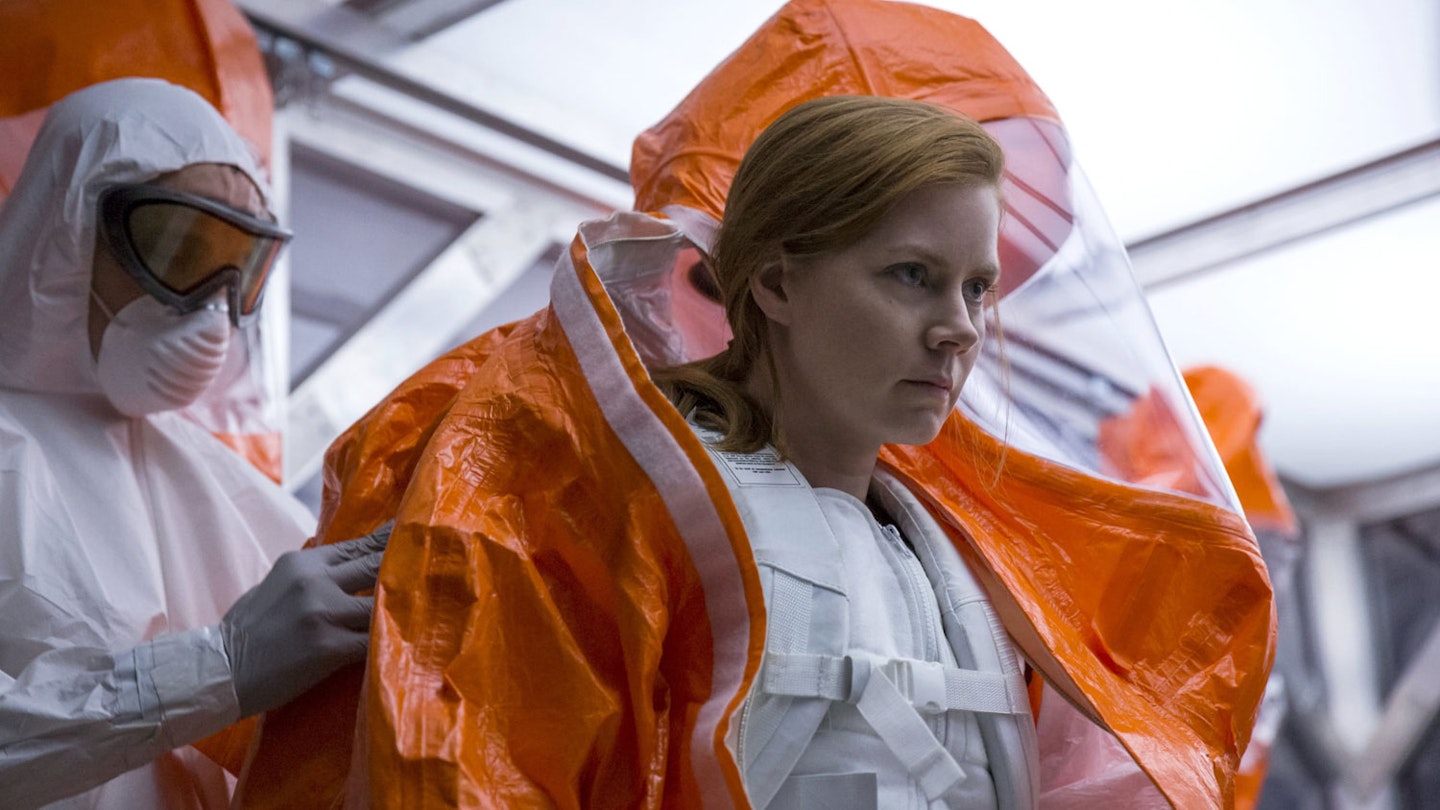 66 of 100
66 of 10035) Arrival
2016Science fiction movies are so often the cinema of ideas that they tend to come off as cold and cerebral. Arrival is hugely intelligent filmmaking, but it's the rare sci-fi of emotion, one whose alien encounter adds up to an intimate personal story. Released shortly before the Trump presidency began, it's a film about the beauty and necessity of communication, the need to strive for a greater understanding with 'others' – especially those who we don't instinctually connect with. Denis Villeneuve's film is exceptional in many ways – not only its cyclical storytelling, but that it's a rare space-invader film where the invasion is non-confrontational, one that conjures extra-terrestrial imagery that feels legitimately unfamiliar and uncanny. And then there's Amy Adams, utterly heartbreaking as the grieving mother whose role as a linguist might offer the emotional salvation and perspective that she needs to continue with her life. How the Academy missed her, we'll never understand.Read the Empire review.Buy now on Amazon.
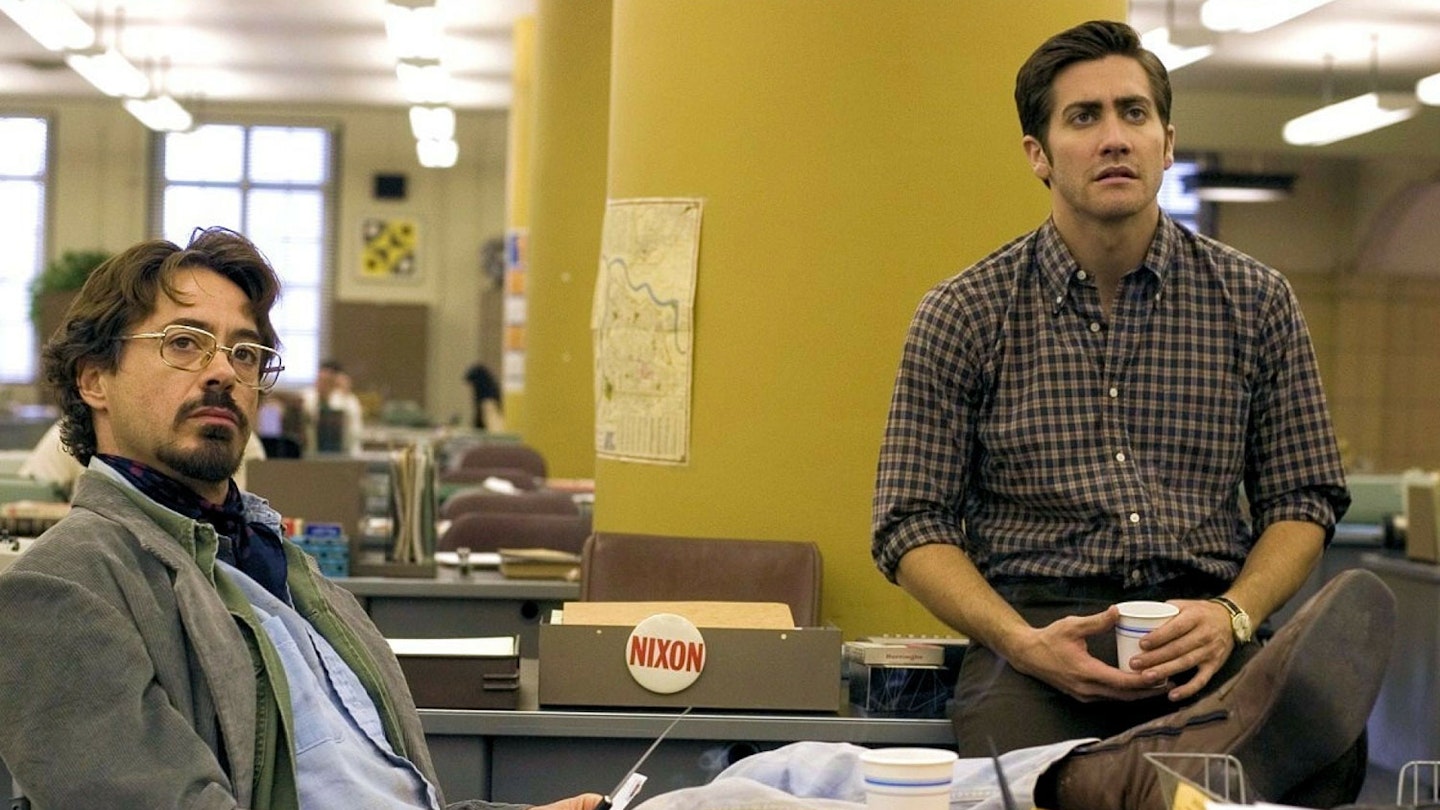 67 of 100
67 of 10034) Zodiac
2007Having delivered one of the all-time-great serial killer movies in Seven, David Fincher did it again with a real-life case – the Zodiac Killer, who struck across San Francisco for a decade-plus and was never caught. Fincher's approach can be summed up in the film's stellar tagline: 'There's more than one way to lose your life to a killer'. Jake Gyllenhaal, Robert Downey Jr. and Mark Ruffalo are the cartoonist, reporter, and detective, respectively, who are swept up in the attempt to decode the cryptic letters sent by the press-goading culprit, the former's increasing obsession and dedication to solving the case unravelling his life while answers lie just out of reach. Fincher's chilly filmmaking is a perfect match for the chilling case – and the killings, sometimes playing out in broad daylight, are nightmarishly portrayed. Zodiac preceded the true-crime boom by several years, a hugely satisfying watch despite its story's inherent, galling lack of closure.Read the Empire review.Buy now on Amazon.
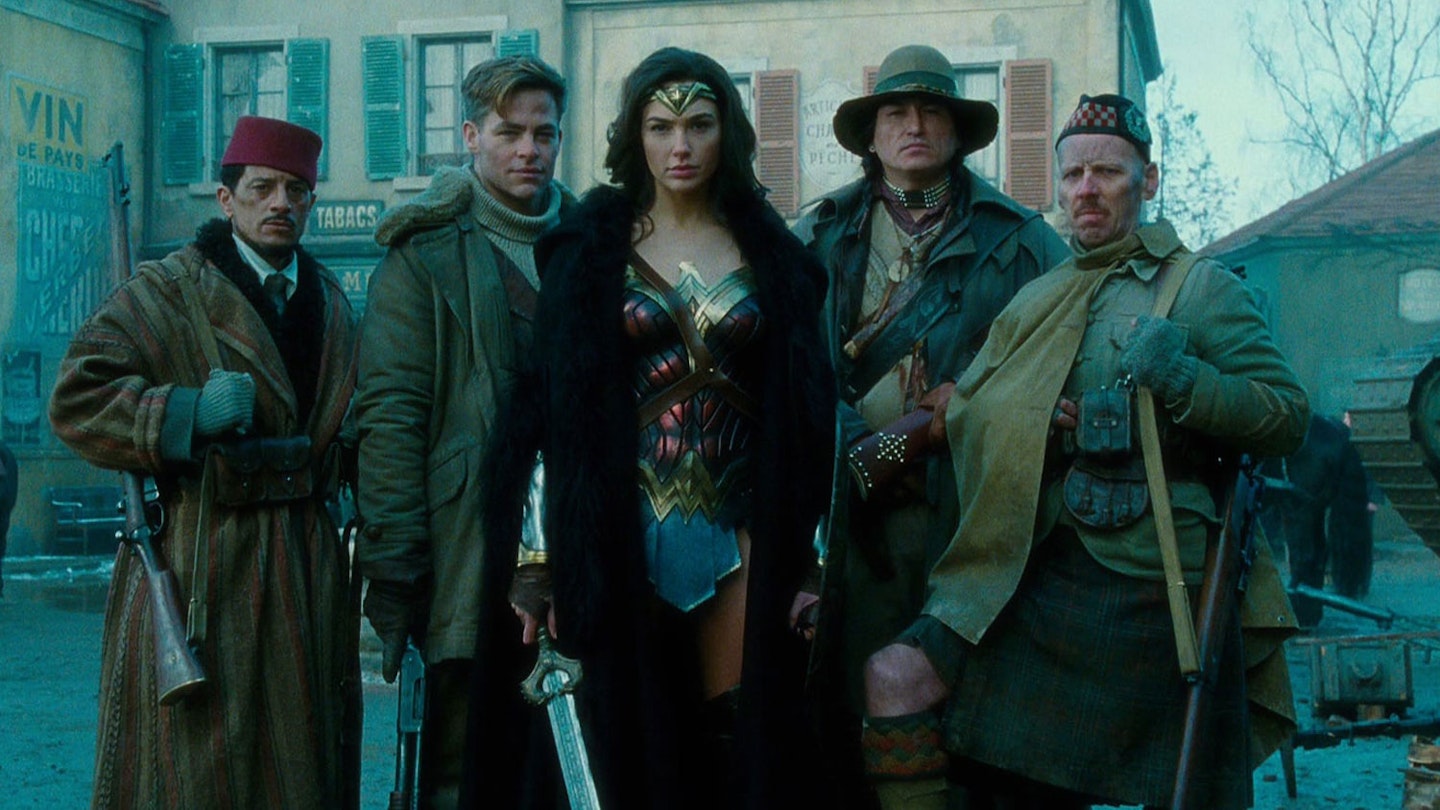 68 of 100
68 of 10033) Wonder Woman
2017It's, frankly, baffling that it took so long. While Marvel was already 15 films deep into its cinematic universe, the DCEU got ahead of it with Wonder Woman, the first female-fronted superhero movie of the modern era – an egregiously-overdue action-adventure that made no bones about its hero's overt femininity, nor her immense power. Everything about the film is earnest and unashamed – its vibrant mythical setting of Themyscira, the pure heart of Gal Gadot's Diana Prince (so much better served than she was in ), the slow-burning relationship with Chris Pine's ridiculously-monikered Steve Trevor. While it's a necessary step forward for the genre, Wonder Woman is also pleasingly old-fashioned, from its considered pacing to its serial-inspired action-adventure tone. Of course, the real wonder woman is director Patty Jenkins – the acclaimed filmmaker who proved the unlikely but ideal choice to tell this story. She crafted a film that's truly for everyone – but that catered directly to a female audience so vastly underserved on the blockbuster scale. Bring on WW84.Read the Empire review.Buy now on Amazon.
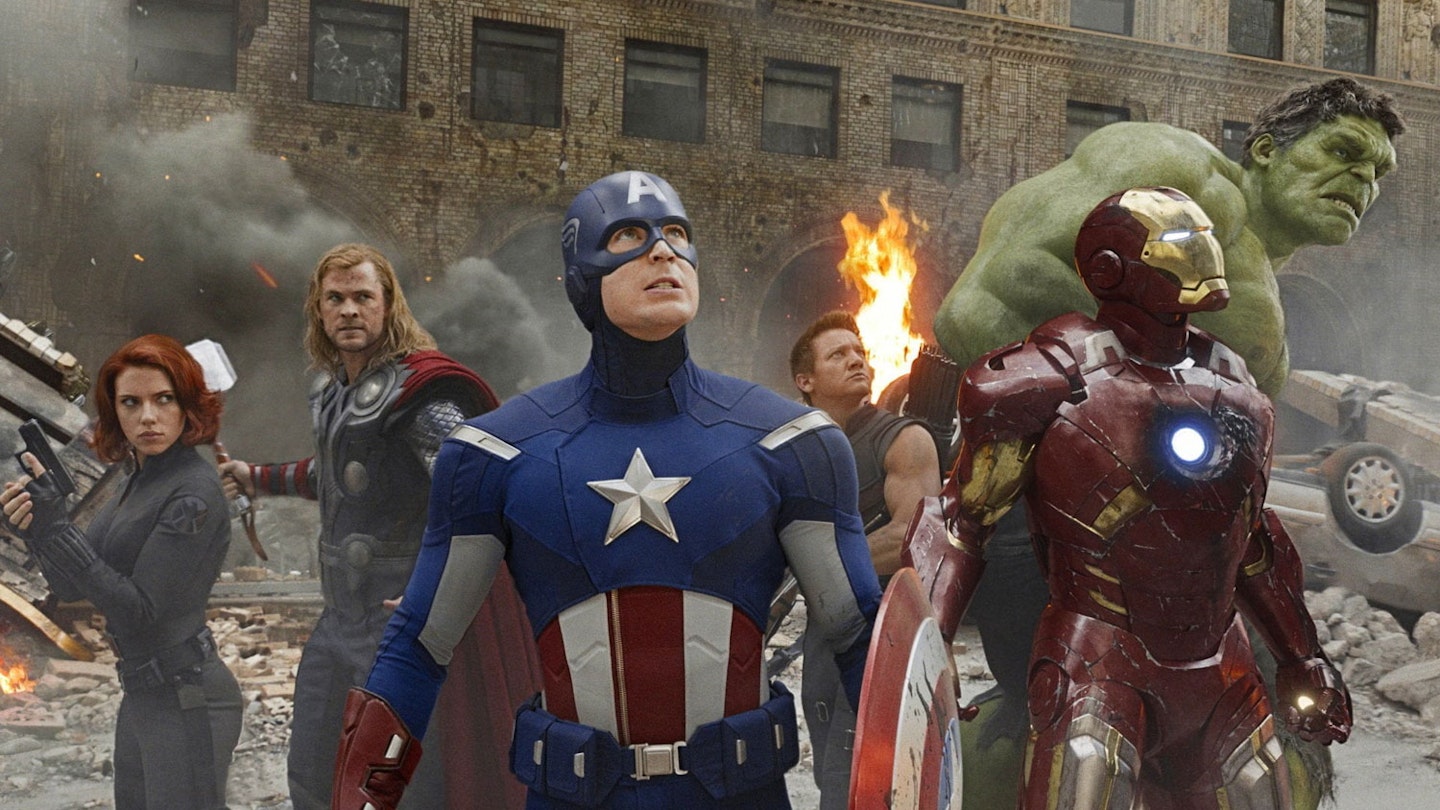 69 of 100
69 of 10032) Avengers Assemble
2012It all seemed like a pipe dream in the Iron Man days. And then, four years later there it was – an Avengers movie that united Tony Stark with Captain America, Thor, Hulk, Hawkeye, and Black Widow, batting Loki and punching Chitauri aliens, all orchestrated by writer-director Joss Whedon. What a world. It seems almost quaint post-Endgame, but it was almost unthinkable back then that one film could juggle so many central characters. Having wrangled ensembles on TV for decades, Whedon navigated the tangle with ease – delivering a pulpy, colourful blockbuster with a sense of levity that sat directly at odds with The Dark Knight Rises, released in the same summer. In tying the then-nascent Marvel Cinematic Universe into a lucrative, narratively-satisfying crossover event, it changed the blockbuster model for good (and evil) – and while the MCU only got bigger from that point onwards, it still resonates as an astonishing achievement and a rollocking good time. Hook those multi-hero tracking shots into our veins, Captain America-style!Read the Empire review.Buy now on Amazon.
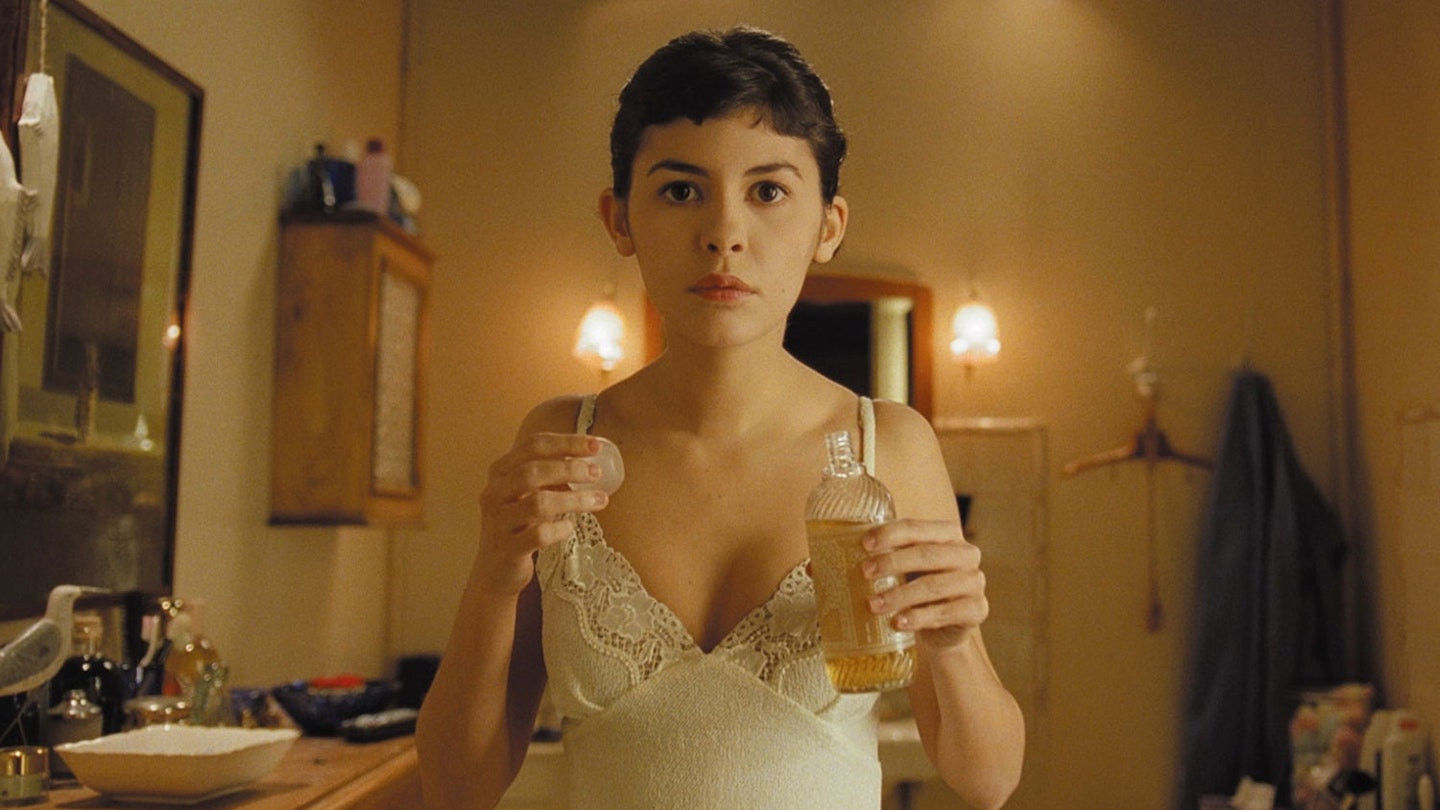 70 of 100
70 of 10031) Amelie
2001Jean-Pierre Jeunet's fourth feature – his second as a solo artist divorced from Marc Caro – saw him ditch the darkness of Delicatessen, The City of Lost Children and Alien: Resurrection, and step out into the glorious sunshine of Amelie's whimsical fantasy Paris. It's possible to read the film as being centred on a crazed stalker: Audrey Tatou's monomaniacal title character relentlessly pursuing the hapless Matthieu Kassovitz around a hallucinatory Montmartre (which attracted some justifiable criticism for its overwhelming whiteness). But its place on the list reflects that the film's spirit remains as intended: a sweet, nostalgic, sentimental, gloriously summery comedy romance playing out amidst Jeunet's extraordinary design aesthetic and regular rep company (including Dominique Pinon, Ticky Holgado and Rufus). Among its long list of incidental pleasures are Amélie's own lists of things she likes and dislikes, an idea expanded from Jeunet's equally wonderful 1989 short film Foutaises.Read the Empire review.Buy now on Amazon.
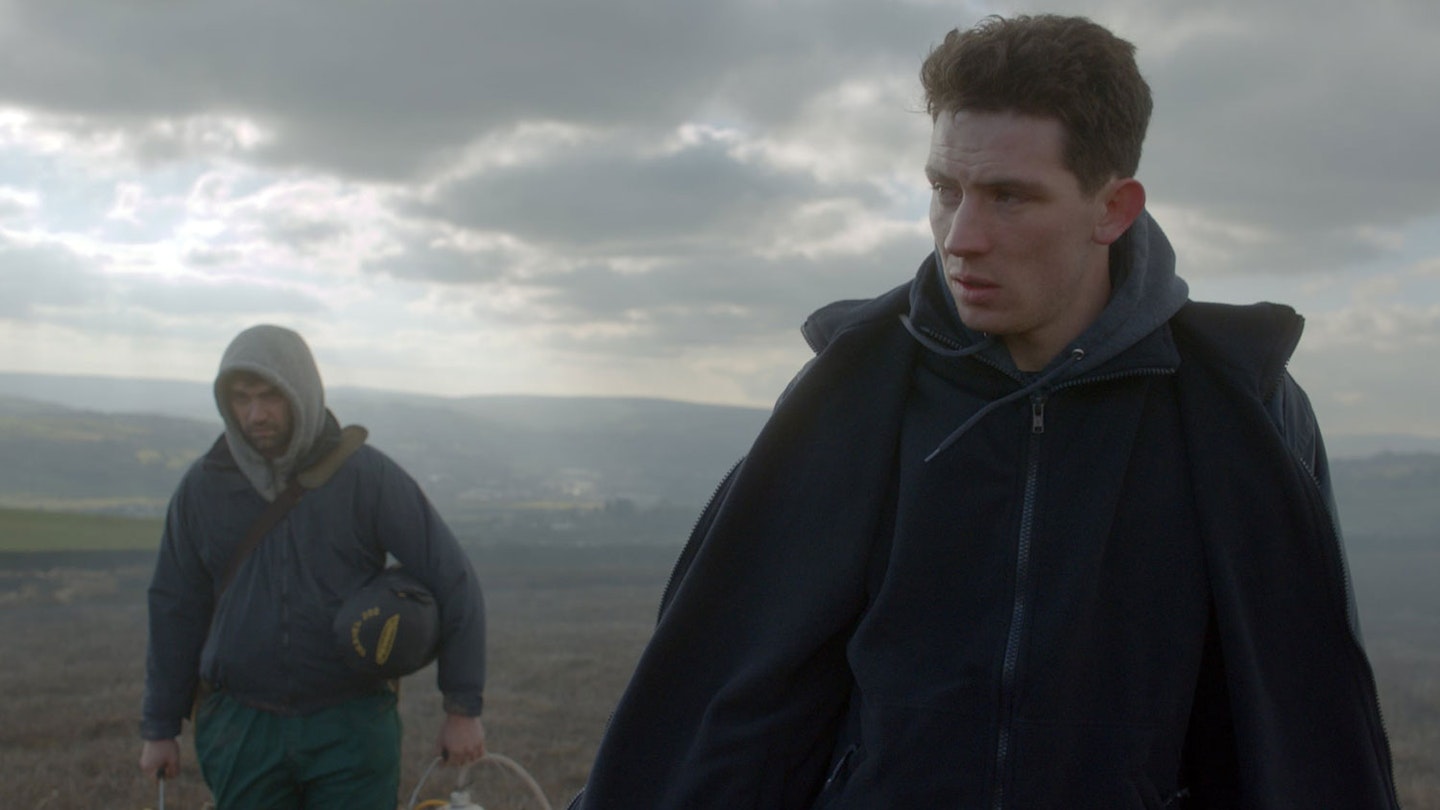 71 of 100
71 of 10030) God's Own Country
2017A film of contradictory extremes both of nature and emotion: anger and love, aggression and tenderness, casual sex and deep emotional bonds. Focused on a cross-cultural gay relationship, God's Own Country is Yorkshire-pragmatic without being dour, and maintains a sensual, Heaney-ish sense of the land and the backbreaking work it takes to maintain. Anyone squeamish about hardcore calving action might want to steel themselves. In many ways it's not unlike Andrea Arnold's Wuthering Heights – the antithesis of picture-postcard, export-friendly British cinema. In the vision of director Francis Lee and cinematographer Joshua James Richards, the Dales are as bleak and unforgiving as they are beautiful. It's an emotionally literate film about characters who find it easier not to communicate – a lot goes unspoken, but you feel it anyway thanks to the central performances of Josh O'Connor and Alec Secareanu: raw, committed and truthful, much like the film itself.Read the Empire review.Buy now on Amazon.
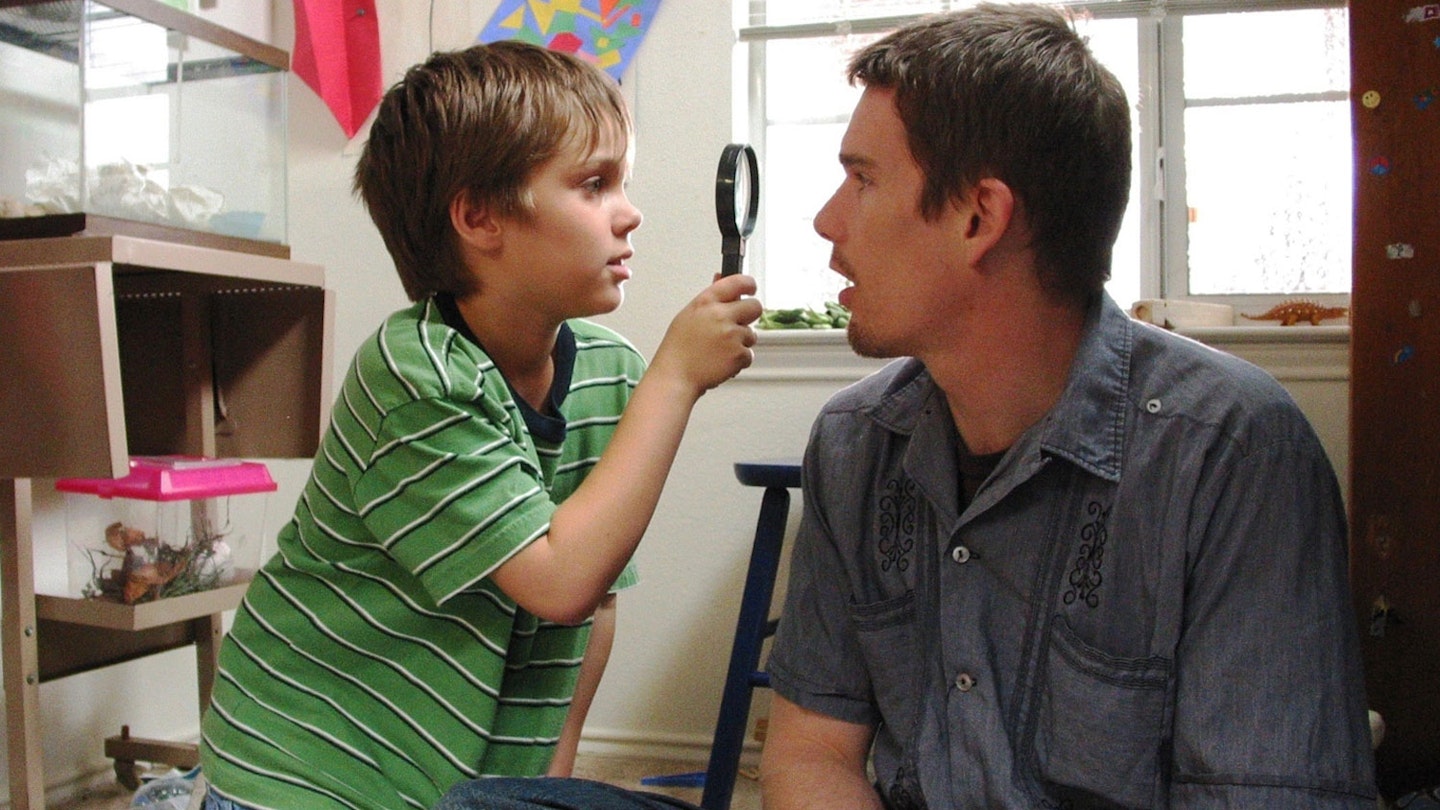 72 of 100
72 of 10029) Boyhood
2014By now, surely everyone knows Boyhood's remarkable conceit: every summer, for twelve years, director Richard Linklater would gather a small cast and crew together to film one chapter of what would become an epic teenage drama, a coming-of-age film that actually shows the age happen on screen; the six-year-old Mason (Ellar Coltrane) morphing into a surly teenager before our very eyes. Upon release, all the focus, understandably, was on that conceit. But despite (or perhaps because of) its central 'gimmick', Boyhood's real achievement is the profound wisdom it conveys on what it means to be a human. Linklater had dabbled in long, lackadaisical films about nothing and everything before, but here he somehow captures the unspeakable, the intangible essence of life, in all its sound and fury, messy people flailing against an impassive universe. "What's the point?" Mason asks his dad, Mason Sr. (Ethan Hawke) towards the end of the film. "I sure as shit don't know," Mason Sr. confesses. "We're all just winging it." That's Boyhood – and life – in a nutshell.Read the Empire review.Buy now on Amazon.
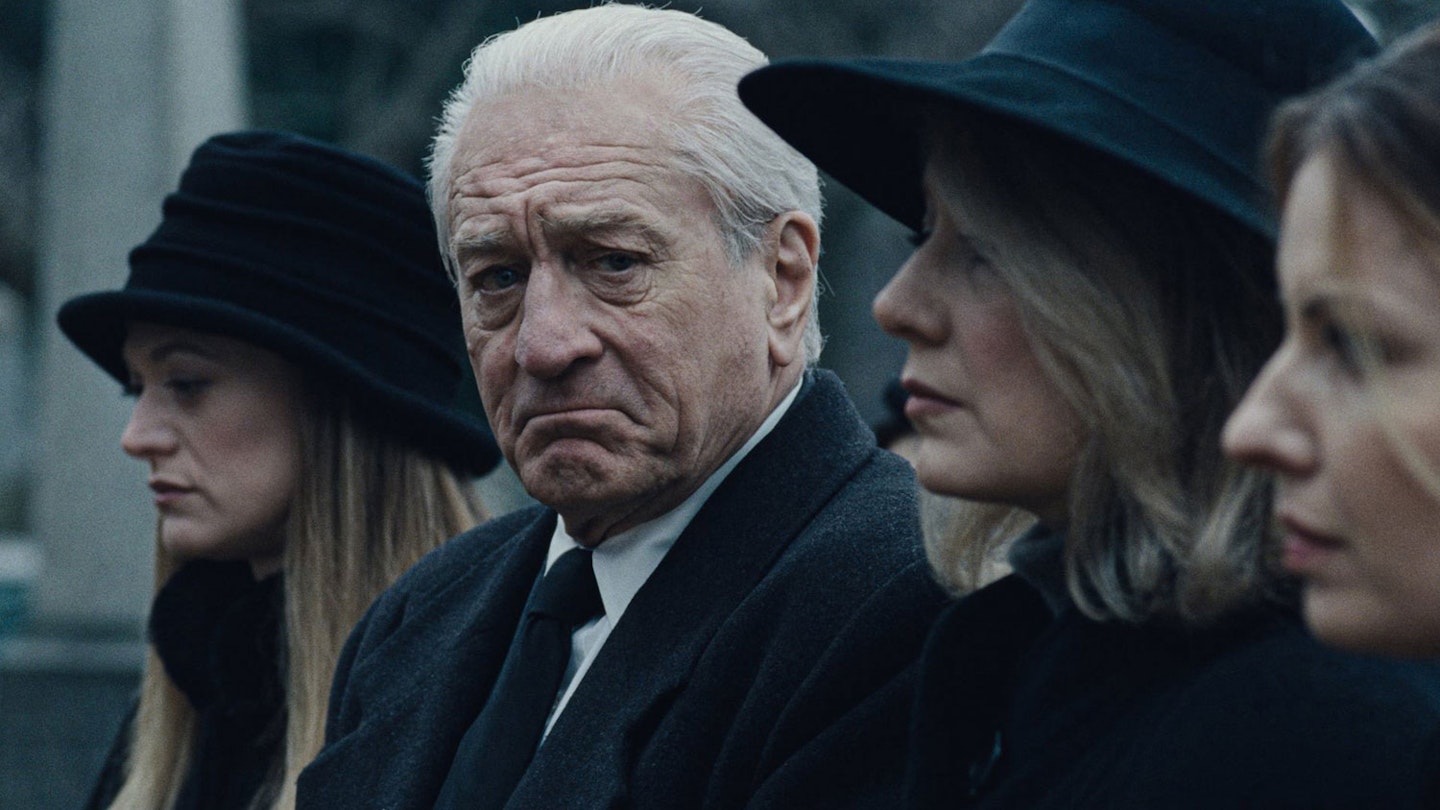 73 of 100
73 of 10028) The Irishman
2019Martin Scorsese has made many a gangster movie – but none quite like The Irishman. Blending the multiple-decade-spanning storytelling of Goodfellas with the quiet, ruminative tone of Silence, Scorsese reunited Robert De Niro, Joe Pesci, and Harvey Keitel, and even brought Al Pacino into the mix for the ultimate mobster movie cast. If the story – a biography of De Niro's hitman Frank 'The Irishman' Sheeran, positing the potential fate of disappeared union leader Jimmy Hoffa – takes in the criminal underground and American politics, beneath the surface it's a film about sin, about absences, the crushing weight and sheer isolation resulting from a life of crime. Much was made of the minimal dialogue afforded to Anna Paquin as Sheeran's daughter – but her presence is cutting, her silence deafening, denying her father the forgiveness he seeks as he's confronted with his mortality. A Netflix original film, it signalled the growing clout of streaming services in producing prestige movies – stumping up the significant production cost that traditional studios wouldn't.Read the Empire review.Stream now on Netflix.
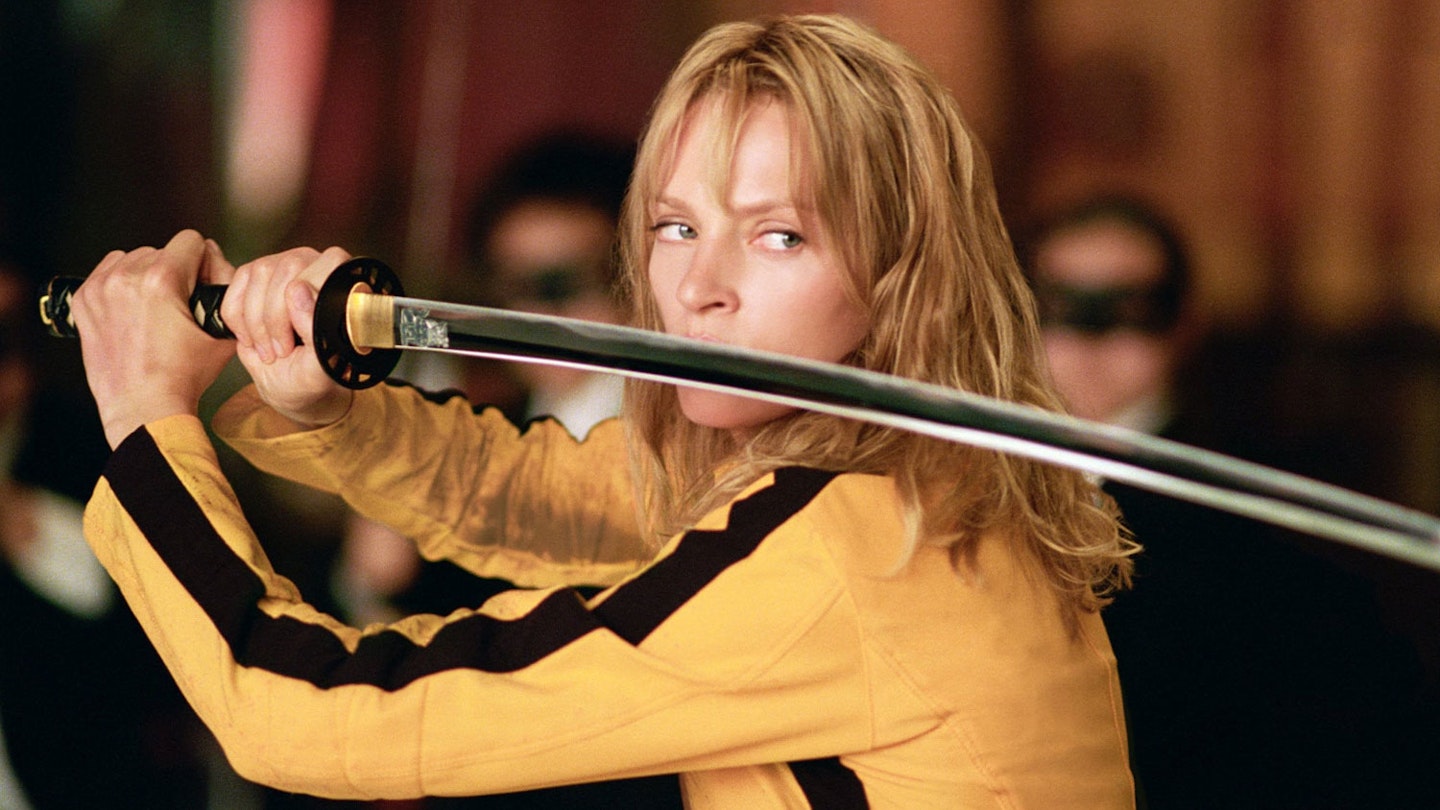 74 of 100
74 of 10027) Kill Bill Vol. 1
2003After dialling down the QTisms ever so slightly on Jackie Brown, Tarantino entered the 21st Century by cranking his sensibilities into overdrive for his rip-roaring rampage of revenge. Vol. 1 is the indie auteur in full-on popcorn mode, a vibrant and dazzling pop cultural odyssey that takes in kung-fu movies, Japanese anime, and grindhouse exploitation. Uma Thurman breathes ferocious humanity into Tarantino's meticulously-designed hyper-reality as The Bride, whose brutal beating on her wedding day sparks a bloody quest for vengeance – and she became an instantly-iconic action hero too, the Crazy 88 showdown in the House Of Blue Leaves remaining eye-searing cinema even as it abruptly switches to black-and-white. Fans of Tarantino dialogue may prefer the talkier, moodier Vol. 2, but this opening act is as fun as QT gets – the filmmaker clearly relishing the chance to play with form, chronology, and, more importantly, samurai swords.Read the Empire review.Buy now on Amazon.
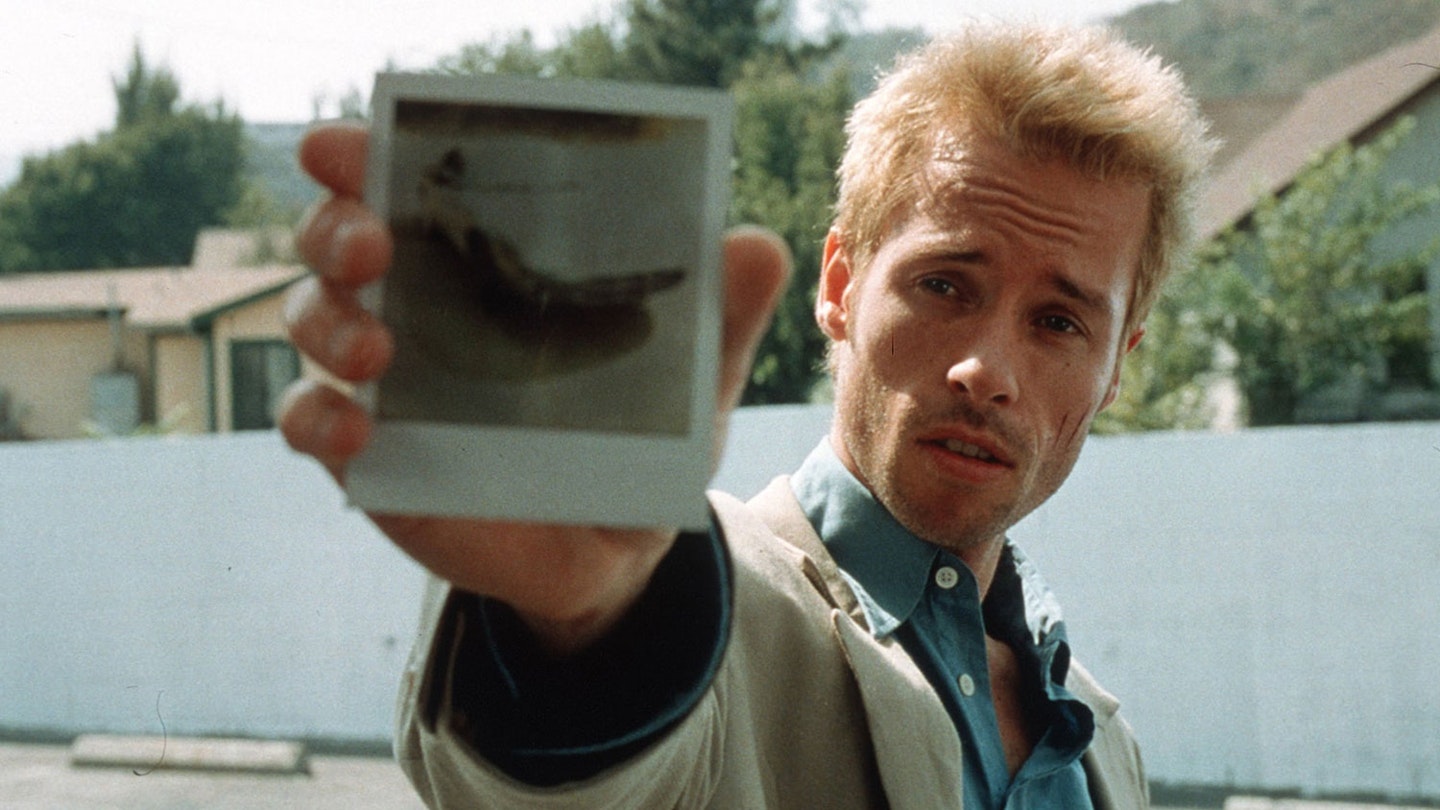 75 of 100
75 of 10026) Memento
2000Seriously smart stuff. Following might have been his official feature debut, but Memento is the film that truly announced Nolan as a cerebral cinematic force – the nucleus of everything that would become his signature in the years to come. To unpick it afterwards is maddening – you'll need a whiteboard, several balls of string, and a stack of your own Polaroids to truly map it out – but in the moment, it's incredibly involving, challenging without being incomprehensible. Structured as a detective story with short-term memory loss, Nolan unfolds the plot backwards so that the audience only ever knows as much as Guy Pearce's amnesiac widower, leaving himself clues in the form of tattoos and Polaroid photos so that he can solve his wife's murder. But before he had those big budgets Memento mesmerised with its screenplay alone, a film in which the beginning is the end and the truth is only what you've been told to believe. These days, Christopher Nolan conjures dazzling blockbuster visuals to complement his chronologically-complex puzzle-box storytelling. (Now read this backwards, one sentence at a time.)Read the Empire review.Buy now on Amazon.
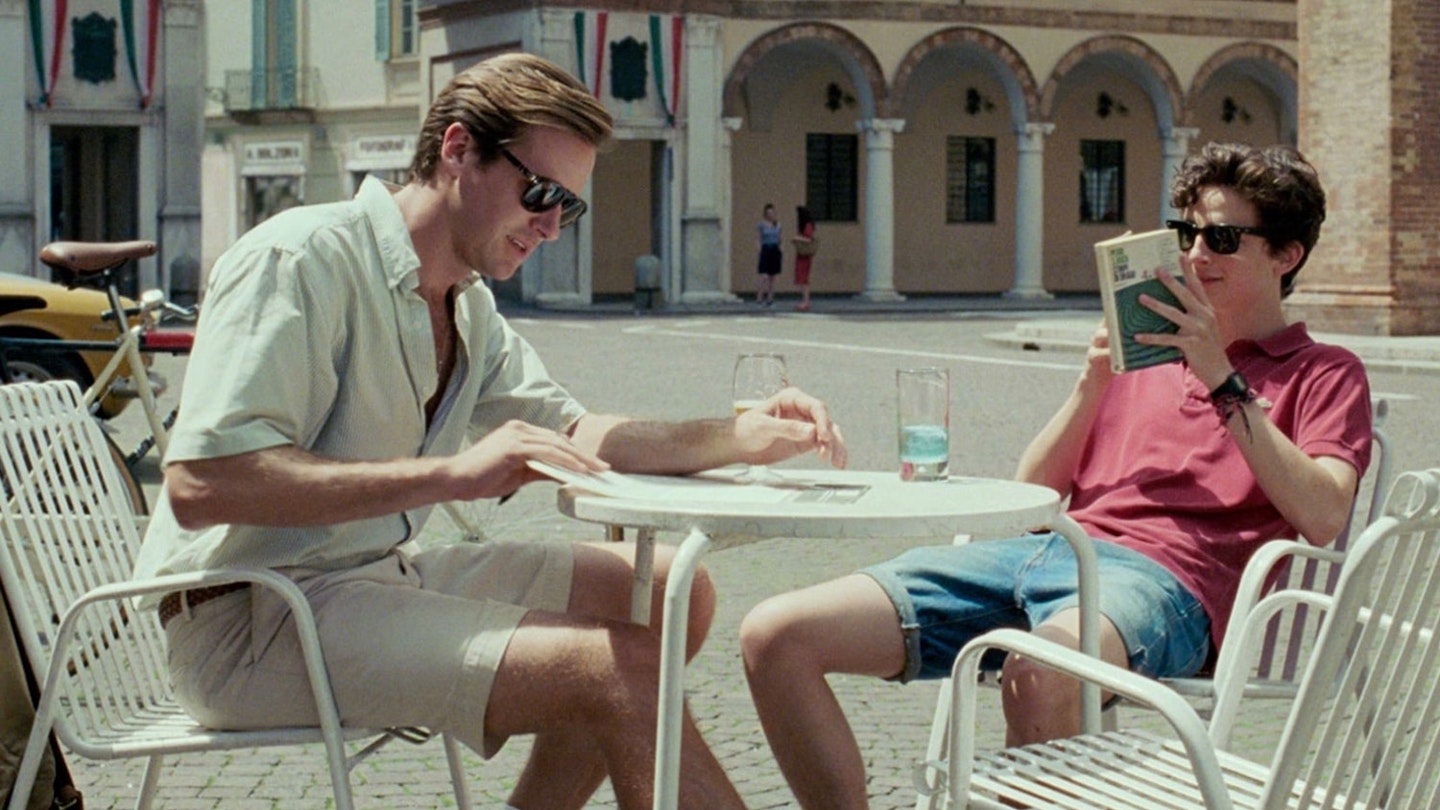 76 of 100
76 of 10025) Call Me By Your Name
2017The film Luca Guadagnino directed as a stop-gap before he got into the ballet-witch-horror Suspiria ended up being his most beloved work. Adapted by James Ivory from the novel by André Aciman (and toning down the book's more explicit elements), it's a languid tone poem about disconcerting attraction and emotional disorientation: a coming of age story from one direction and a homoerotic Lolita from the other. Filmed in natural light around Italy's Lombardy region, you can almost feel the sun and bask in the seductive atmosphere of an unhurried 1980s summer in which there's nothing to do but read, bicycle, walk among the fruit trees and fall in love with your dad's hunky American postgrad. Romantic, sensual and heartbreaking in equal measures.Read the Empire review.Buy now on Amazon.
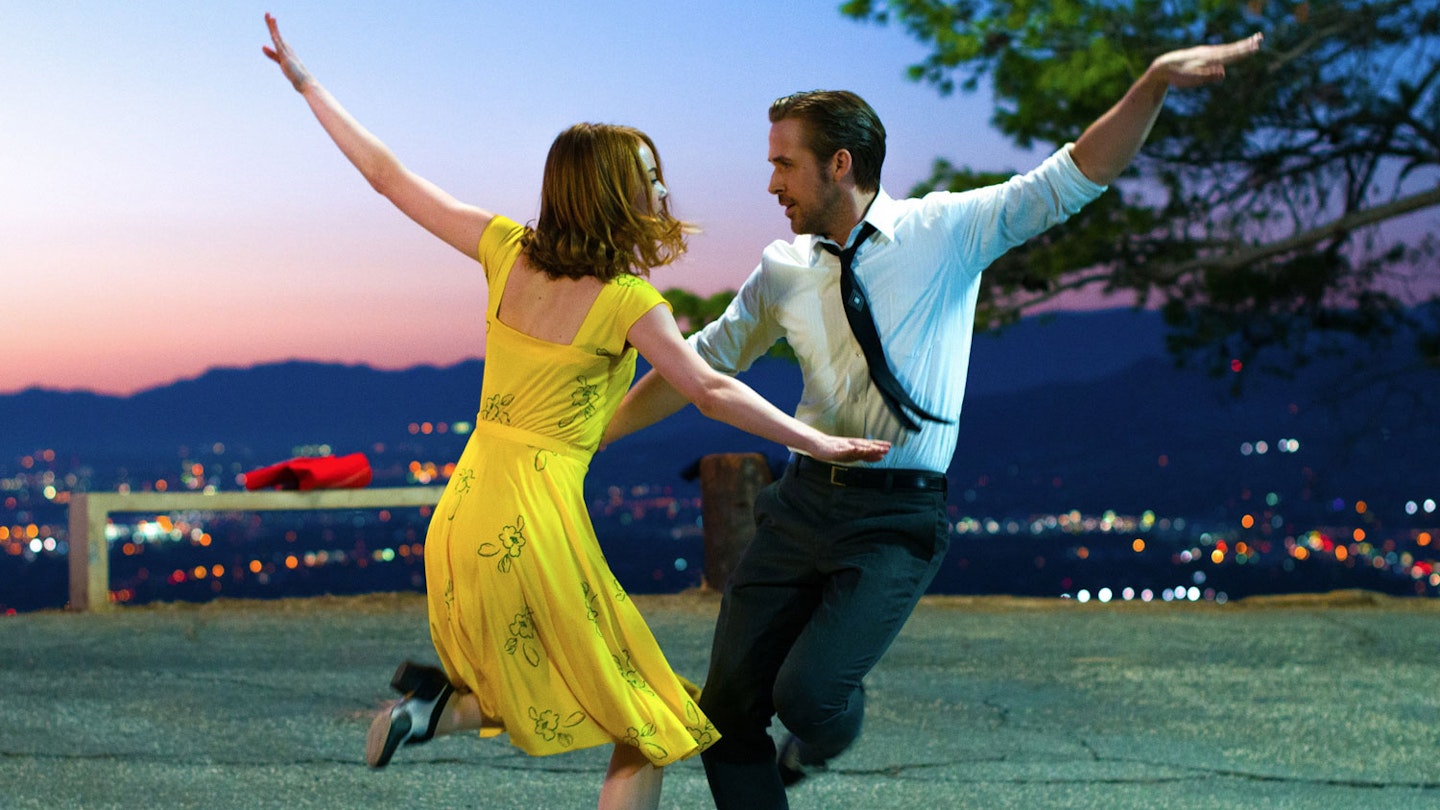 77 of 100
77 of 10024) La La Land
2016Whiplash director Damien Chazelle followed his claustrophobic cymbal-clashing thriller with an altogether different jazz film. La La Land is an all-singing all-dancing original movie musical that luxuriates in the sprawling expanse of Los Angeles – a Hollywood movie about Hollywood, inspired by the Golden Age of Hollywood. It's playful with its invocations of the past, delivering retro technicolour visuals, scenes set on the Warner Bros backlot, and a dream-sequence soundstage finale that pays homage to the likes of Singin' In The Rain to The Umbrellas Of Cherbourg. If it's intentionally throwback, it's contemporary too – a film in which iPhone ringtones interrupt tap-dance numbers, Emma Stone's wannabe-actress Mia drives a Prius, and Ryan Gosling's jazz pianist is stuck playing keytar in an '80s cover band. The pair radiate charm, two beautiful people who fall in love against the background of L.A. in constant golden-hour mode. They keep up impressively in the musical numbers, too – a string of heart-popping hits often shot in stellar single takes. Along with Hamilton, it made musicals cool again, beginning a box office boom in musical movies.Read the Empire review.Buy now on Amazon.
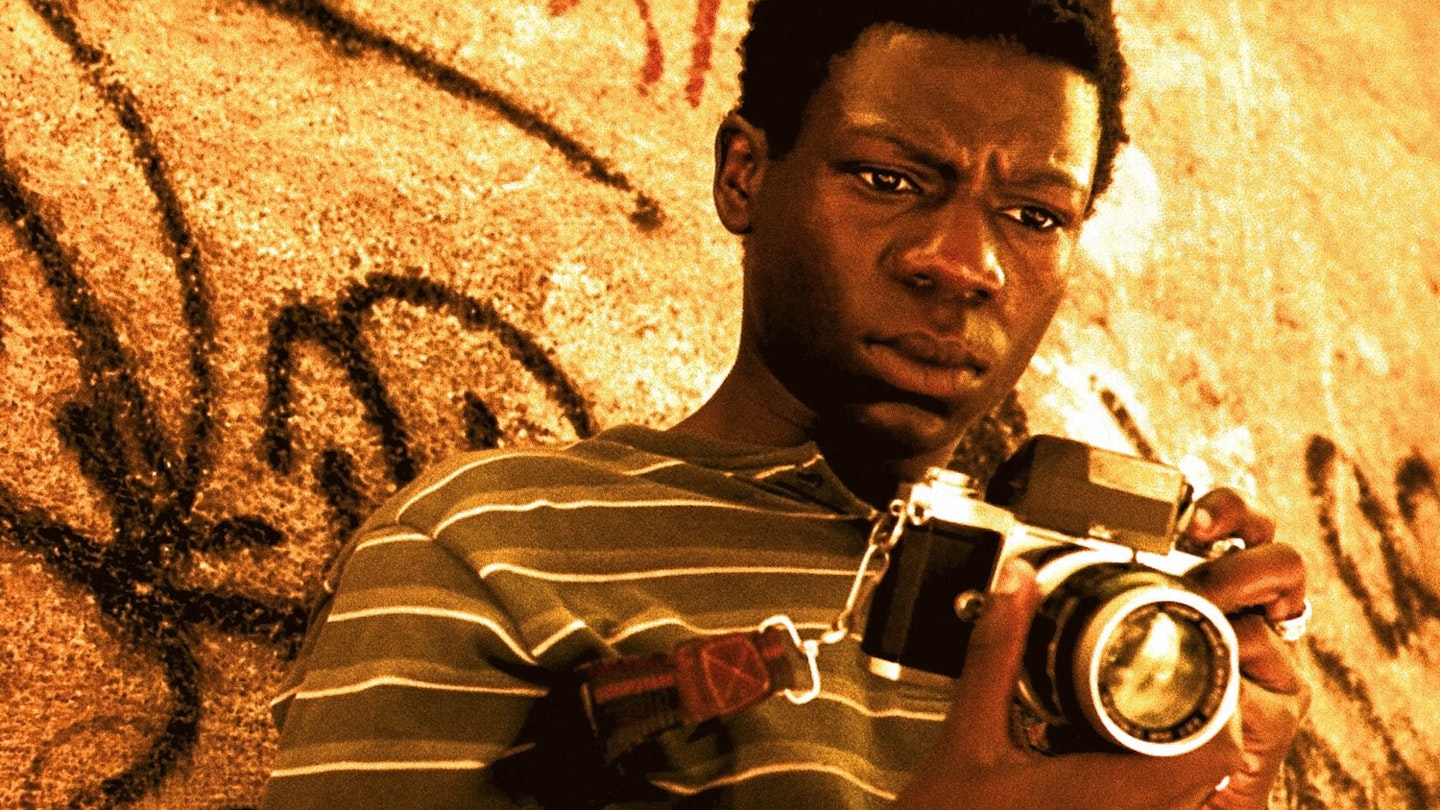 78 of 100
78 of 10023) City Of God
2002Fernando Mereilles' first film as solo director makes you wonder how anyone ever shared the camera with someone of such vision. It's an intense, thrilling, visceral child's eye view of brutal gang warfare in the Brazilian favelas; the City of the title. The narrative covers just over a decade on the streets that the cops – really just another gang – fear to tread: a ghetto deliberately socially planned to keep the poor sequestered away from Rio's beaches and city centres. The City is a place where crime is practically the only option for the sprawling cast, but Mereilles never asks for sympathy and is never trite. One extraordinary sequence follows the life of an apartment from family home to drug den. In another, an escaping chicken leads the camera into a warzone. It's a sensory assault; almost an ordeal. But there's humour too amid the headlong rush of noise, colour and violence.Read the Empire review.Buy now on Amazon.
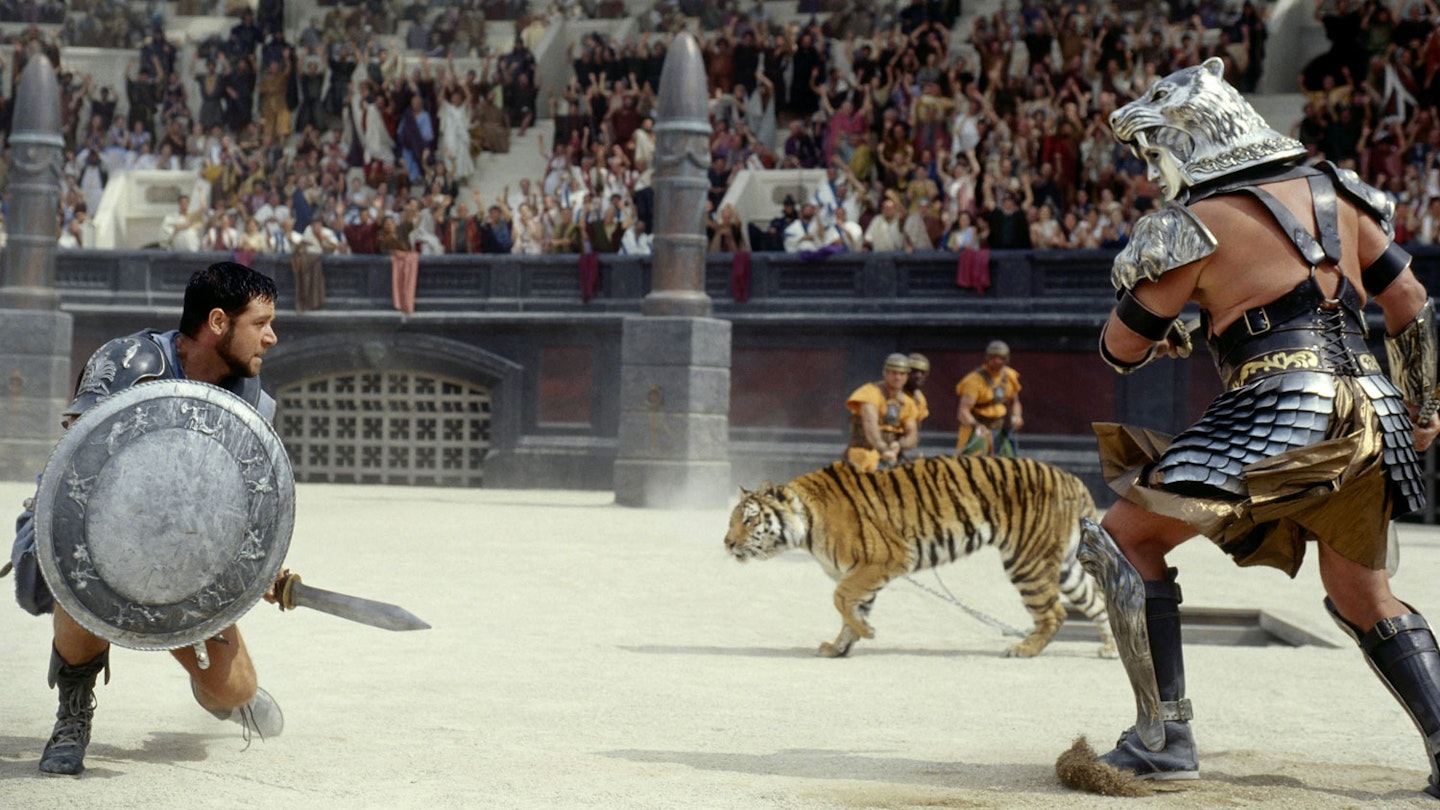 79 of 100
79 of 10022) Gladiator
2000Are you not entertained? How could anyone fail to be swept along by Ridley Scott's Gladiator – a straight-up swords-and-sandals historical epic that snagged five Oscars and features blood-spattered beheadings? Scott made the film at a fascinating time – in the dying days of studio movies shooting on huge-scale practical sets, and at the dawn of CGI embellishments. Combining the two, the result is a film that feels tangible and tactile, still wowing with its battle scenes, amphitheatre showdowns, and evocation of the Roman Empire at its height. Russell Crowe puts in a stoic performance as Maximus Decimus Meridius – father to a murdered son, husband to a murdered wife, and so on – the military general forced into gladiatorial combat, who rules the ring and plots revenge against Joaquin Phoenix's effete, patricidal Commodus. Remarkable for its emotion – huge props to Hans Zimmer's sumptuous score – as much as its bombastic production values, Gladiator stands head and shoulders above the imitators (Troy, Alexander) it inspired.Read the Empire review.Buy now on Amazon.
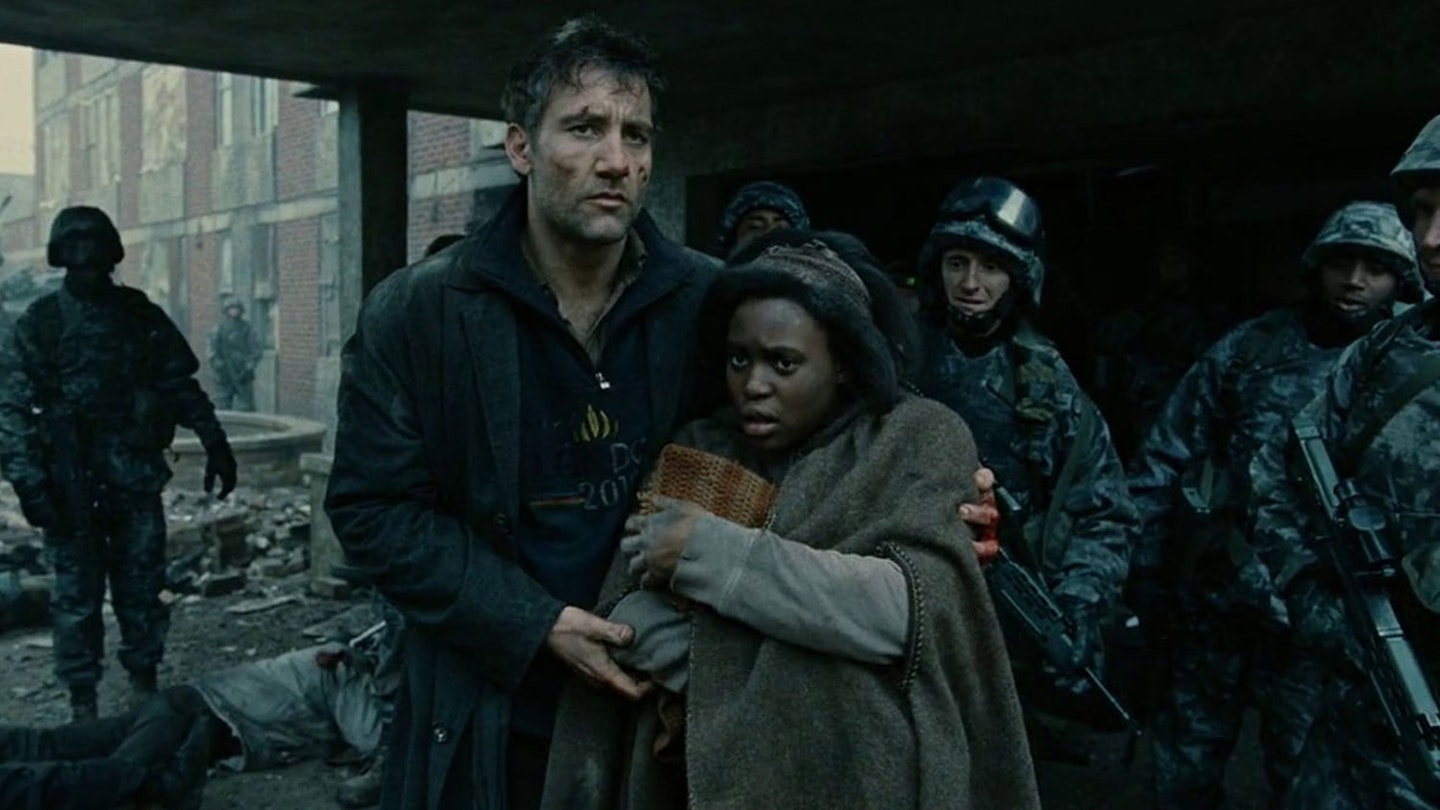 80 of 100
80 of 10021) Children Of Men
2006The bleak future London conjured by Alfonso Cuarón in his dystopian drama is so believable, it's still hard to rule out that it might someday come to pass. Its arresting opening scene in which a coffee shop is bombed out, narrowly missing Clive Owen's Theo, is a statement of intent for the realism, the extended takes, and the gritty world-building that Cuarón expands on for the remaining runtime. Made amid the swirl of the Iraq War when fears over terrorist attacks were at an all-time high (coming half a decade on from 9/11, and with the 7/7 bombings in London still incredibly fresh in the memory), it's a film of fear and chaos and morally-dubious military intervention. Depicting a world in which humanity has become infertile and faces imminent extinction, there's hope in the form of mysteriously pregnant young woman Kee (Clare-Hope Ashitey) – and if the final moment teases a lone, flickering flame of optimism, it never fully offers the catharsis you long for. Thrilling and uncompromising.Read the Empire review.Buy now on Amazon.
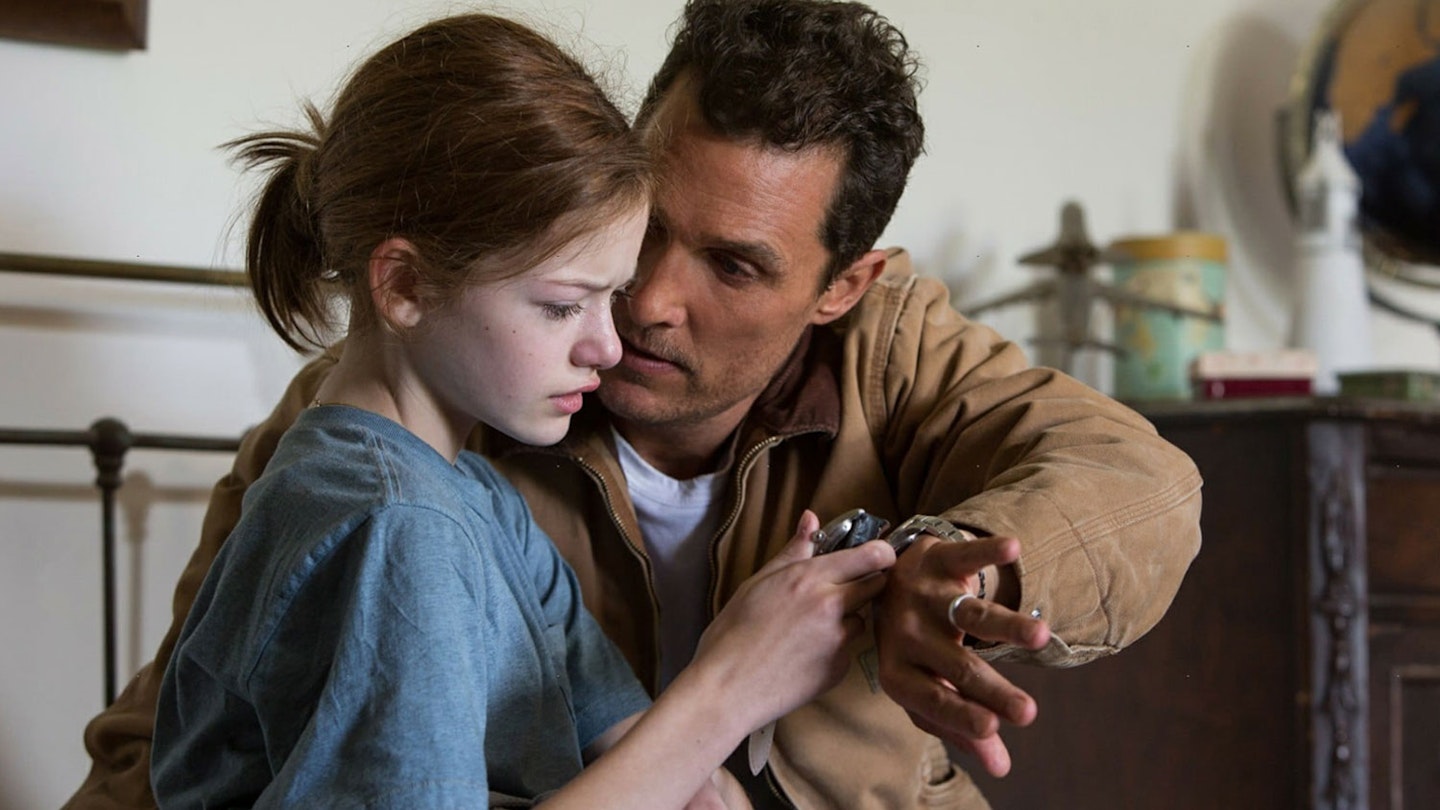 81 of 100
81 of 10020) Interstellar
2014Christopher Nolan movies don't tend to be emotional. But in blasting off to the edge of a black hole, the filmmaker delivered his most heartfelt work – a father-daughter story set against the infinite cosmos, about the way love transcends time and space. Considering how intergalactic and metaphysical it all gets, the opening act – depicting a Dust Bowl-inspired future Earth in which corn is the last viable crop – is thrillingly grounded, making it all the more impactful when NASA pilot-turned-farmer Coop (a peak-McConaissance Matthew McConaughey) takes to the stars in search of a viable new home for humanity. From its planet of cliff-high waves to its astonishing evocations of light-bending wormholes (complete with realistic physics), Interstellar is Nolan at his most expansive – but whether it's that trans-dimensional bookcase scene, or the heartbreaking moment Coop watches his kids grow up in a montage of video messages having emerged from a planetary expedition that turned mere hours into decades of Earth-years, it's beautifully human. A Nolan movie that taps your tear-ducts while testing your grey matter.Read the Empire review.Buy now on Amazon.
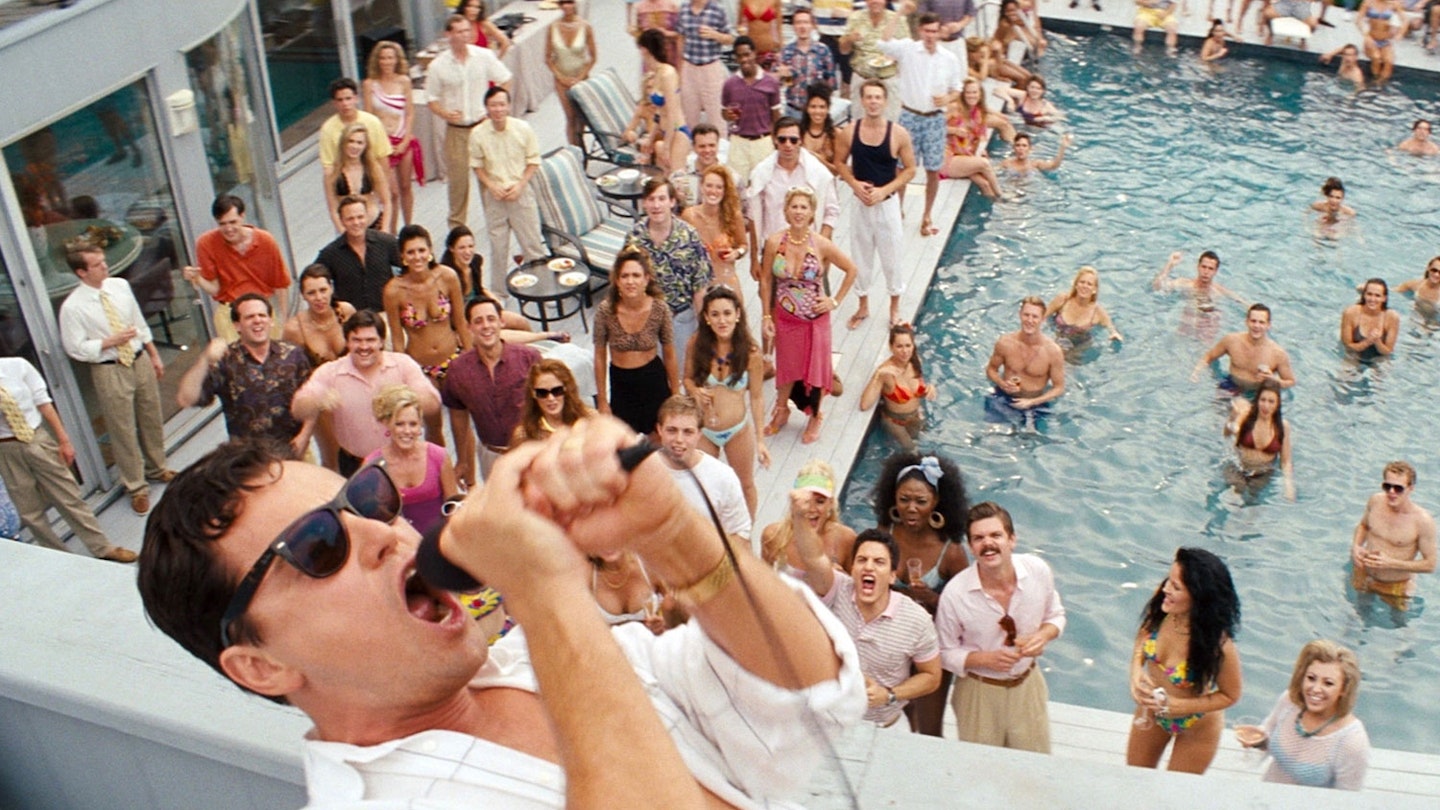 82 of 100
82 of 10019) The Wolf Of Wall Street
2013The oeuvre of Martin Scorsese largely hinges on crooks and explorations of religion. The Wolf Of Wall Street is both – a film about a crook who's an evangelical preacher of America's one true religion: capitalism. The story of Jordan Belfort is one of sickening wealth and rampant excess which Scorsese spins into a three-hour head-rush of greed, drugs, sex, naked marching bands, and stock market trickery, the filmmaker indulging all of the whiz-bang editing and stylistic tricks at their most in-your-face. Sweeping tracking shots, fourth-wall-breaking, rat-a-tat voiceover? They're all here, waiting to be hoofed up like a whacking great line of cinematic cocaine. If the film itself revels in all the decadence, it's a damning indictment of Belfort – a new kind of American gangster, a next-level white-collar criminal who doesn't even have the honour to call himself a thief – and the nation that offers him such easy redemption. But that's why The Wolf Of Wall Street works so well – it sells you a hollow nightmare so slick and glossy that you're almost tempted to buy it.Read the Empire review.Buy now on Amazon.
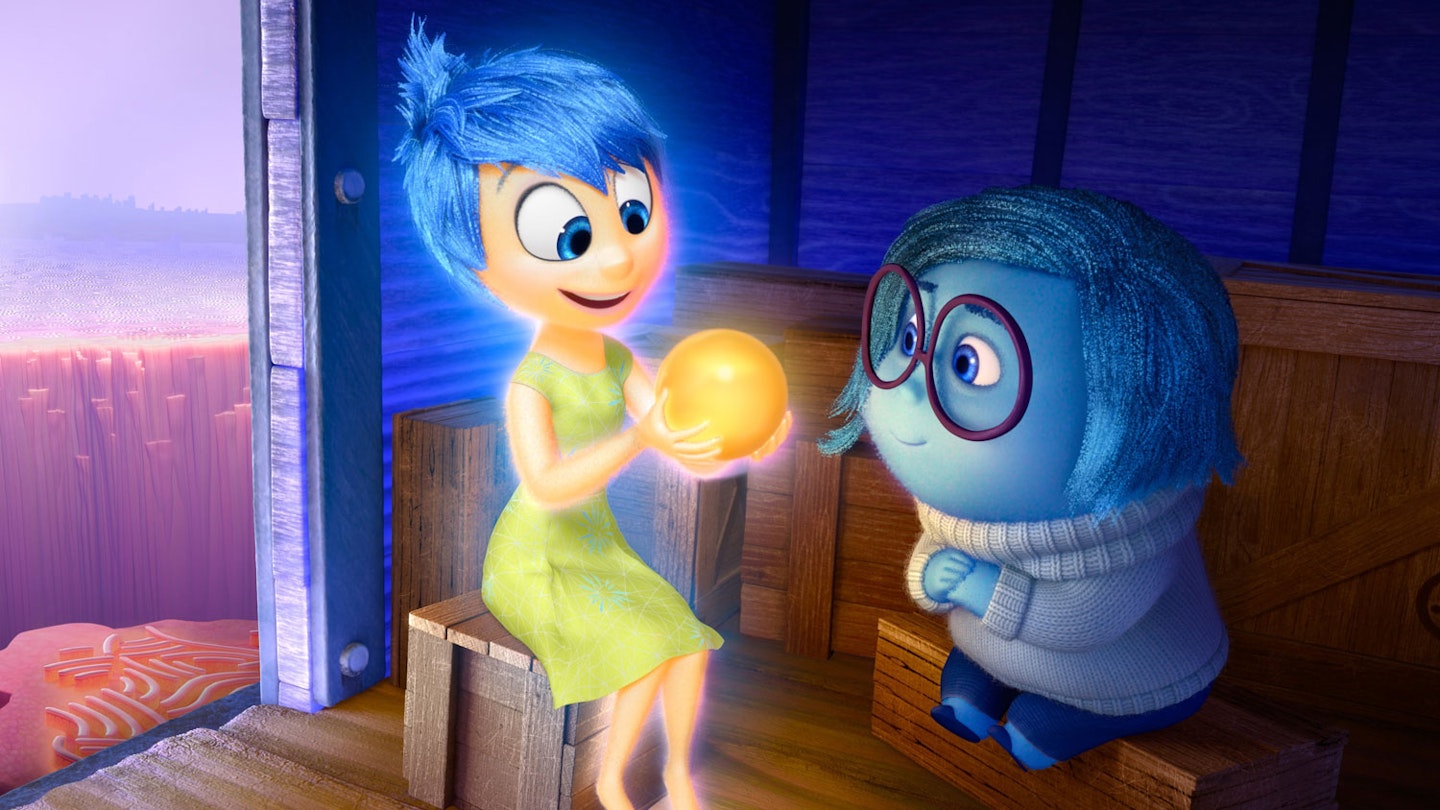 83 of 100
83 of 10018) Inside Out
2015There's emotionally-intelligent storytelling, and then there's Inside Out – an intelligent story about emotions, offering remarkably perceptive insights into the human condition in an all-ages adventure. In anthropomorphising the feelings of almost-teenager Riley – Joy, Sadness, Anger, Fear, and Disgust – during a time of turbulence, director Pete Docter combines the poignancy of Up with the imaginative world-building of Monsters, Inc. and hits upon something real about the way we process memory and emotion. It's impossible to not be affected by it – from the moment Riley is born and experiences pure joy upon seeing her parents for the very first time, to its closing argument that it's ok, necessary even, to feel and embrace sadness. Inside Out is as psychologically-astute as a Christopher Nolan movie, dazzlingly creative even by Pixar standards (Dream Productions! Abstraction! The train of thought!), and destined to give generations of audiences a greater understanding of their own innermost feelings. Just, whatever you do, don't mention Bing Bong.Read the Empire review.Buy now on Amazon.
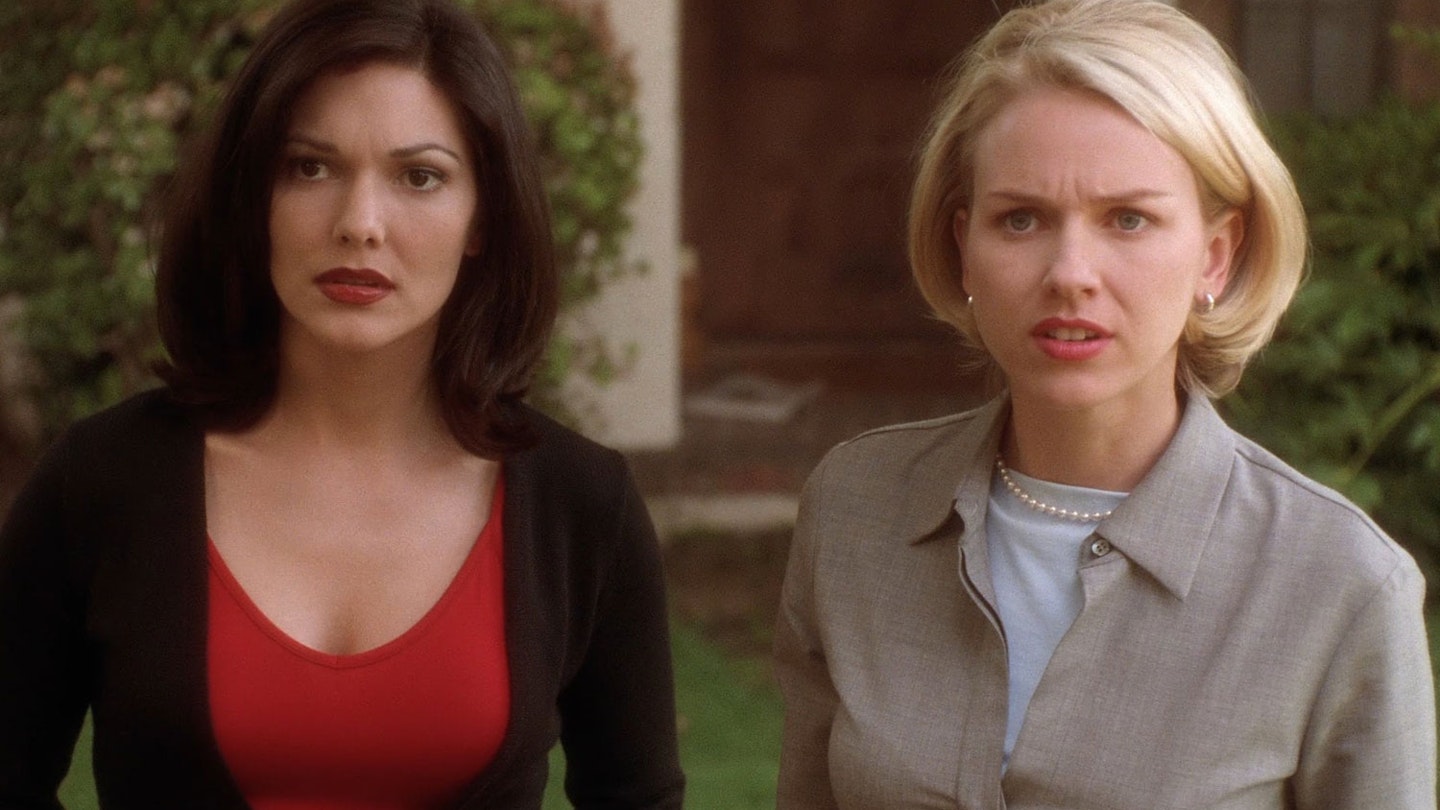 84 of 100
84 of 10017) Mulholland Drive
2001Expanded from the pilot for an abandoned TV series, there's a sense in Mulholland Drive of invention being spun from necessity – but what invention. David Lynch's oppressive Hollywood nightmare is an unending narrative loop in which Naomi Watts plays two characters, each of whom is dreaming the other. Christopher Nolan and Wes Craven made iconic films centred on dreams, but it's almost uniquely Lynch who seems to understand how dream logic actually works and is able to translate it to the screen. Peculiar events are presented as if they're the most normal things in the world – and while meaning is there, it feels like it's just out of reach. Strange characters drift in and out, behaving oddly and making gnomic pronouncements. Disparate, apparently unconnected scenes somehow coalesce into some sort of cohesive whole. You're not sure what you've even seen, as the film ends at its beginning.Read the Empire review.Buy now on Amazon.
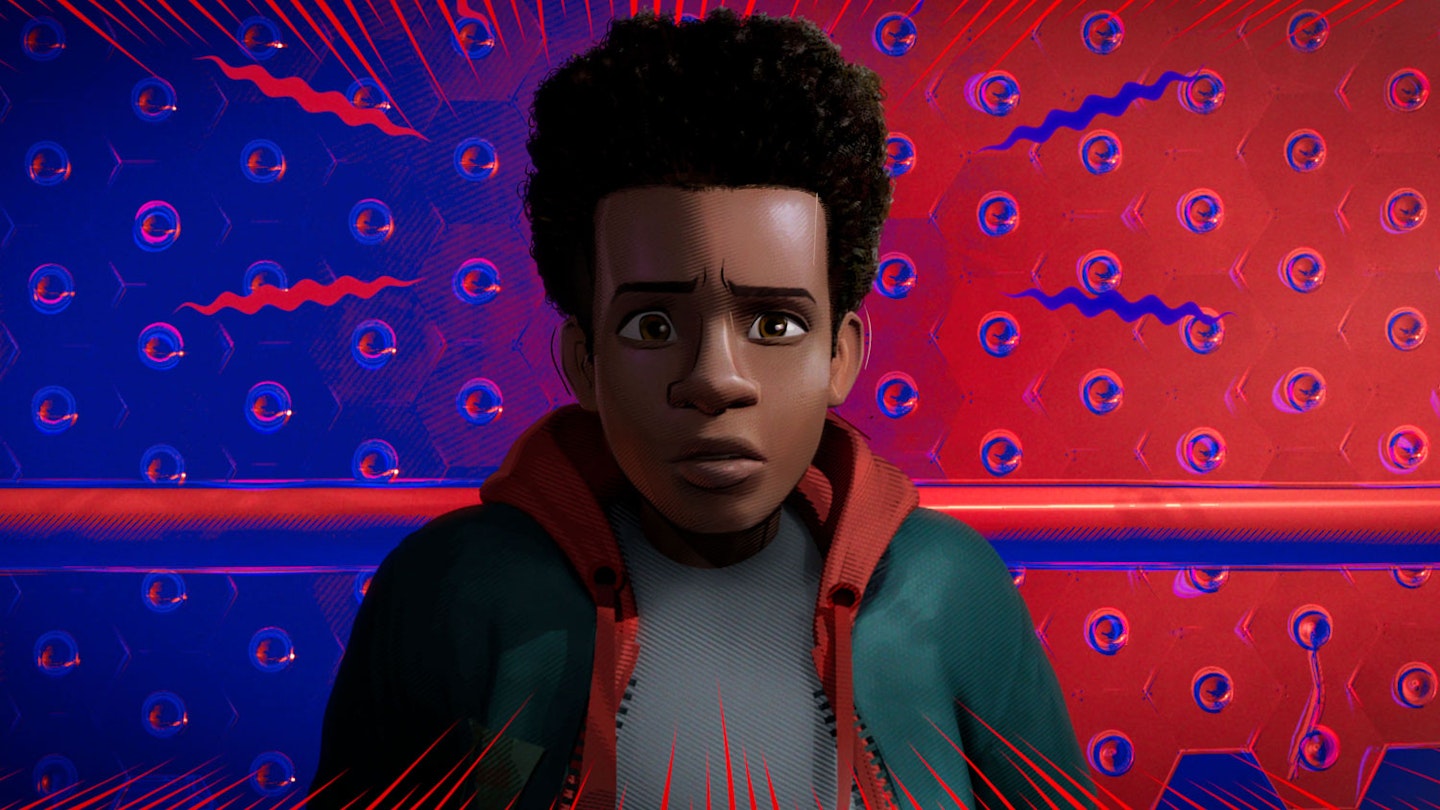 85 of 100
85 of 10016) Spider-Man: Into The Spider-Verse
2018In 1995, Toy Story reinvented the mainstream animated movie, and Hollywood got stuck there. It took over 20 years for another huge studio movie to shift the paradigm – enter Into The Spider-Verse, practically inventing a whole new animation style to tell its narrative of clashing universes and multiple Spider-people. Blending 2D and 3D frames with comic book paper-stock textures, crashing different frame-rates into the same shot, and giving backgrounds an out-of-focus red-and-blue-3D tinge, it's utterly distinct from anything else out there – and that's before you get an anime Peni Parker sharing the screen with the Looney Tune-inspired Spider-Ham and a Nic Cage-voiced 1930s black-and-white Spider-Man Noir. All of which would be impressive enough, but the story itself – finally giving Afro-Latino fan favourite Miles Morales a cinematic outing – commits powerfully to its 'anyone can wear the mask' premise. The obvious fingerprints of producers Phil Lord and Christopher Miller (the former a co-screenwriter) ensure the film is as riotously funny as it is inventive, packed with self-referential gags to complement the narrative curveballs. The ultimate tribute to Steve Ditko and Stan Lee.Read the Empire review.Buy now on Amazon.
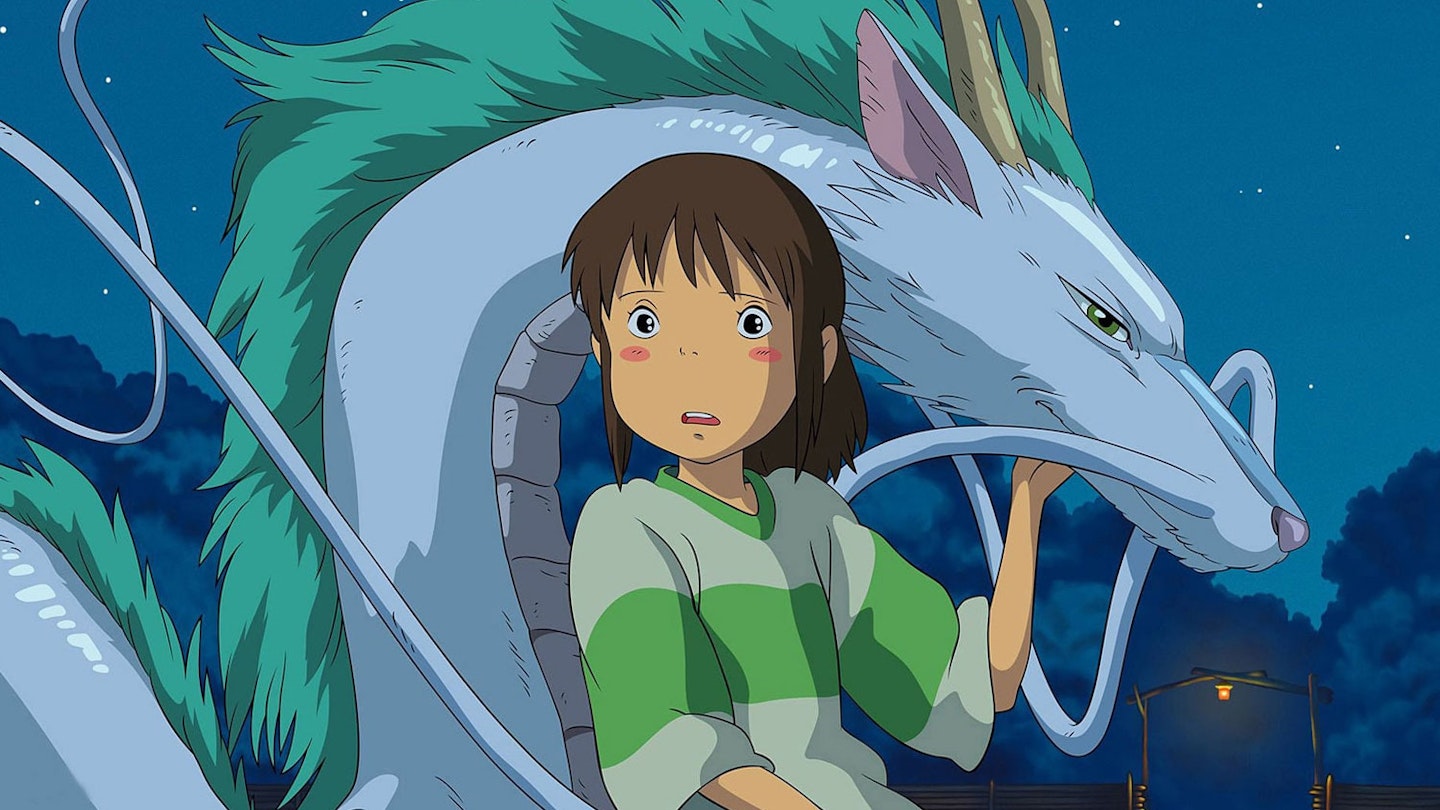 86 of 100
86 of 10015) Spirited Away
2001For a Western world raised on Disney movies, Spirited Away was a bracing change of pace – pure, uncut Studio Ghibli. Taking in bathhouses, spirits of Shinto folklore, and morality without clear-cut distinctions of good and evil, Hayao Miyazaki's major crossover hit is distinctly Japanese. Its narrative arc and characters feel notably different to more conventional British and American animations – from the eerie, inscrutable No-Face, to sort-of-antagonist bathhouse owner Yubaba. But that's also a major reason why it connected – Spirited Away is accessible, but nothing about it feels watered down. It is, of course, utterly beautiful too – boundlessly imaginative, steeped in gorgeous colour, and stunningly scored by Joe Hisaishi. Among the cultural specificity is a coming-of-age universality in young hero Chihiro, forced to fend for herself when her parents are turned into pigs, using her resourcefulness and her friendship with boy-dragon-spirit Haku to earn her freedom from the spirit world. It's the film that brought Studio Ghibli – and anime at large – to mainstream Western audiences, an influence increasingly felt in the likes of Moana and Frozen II.Read the Empire review.Buy now on Amazon.
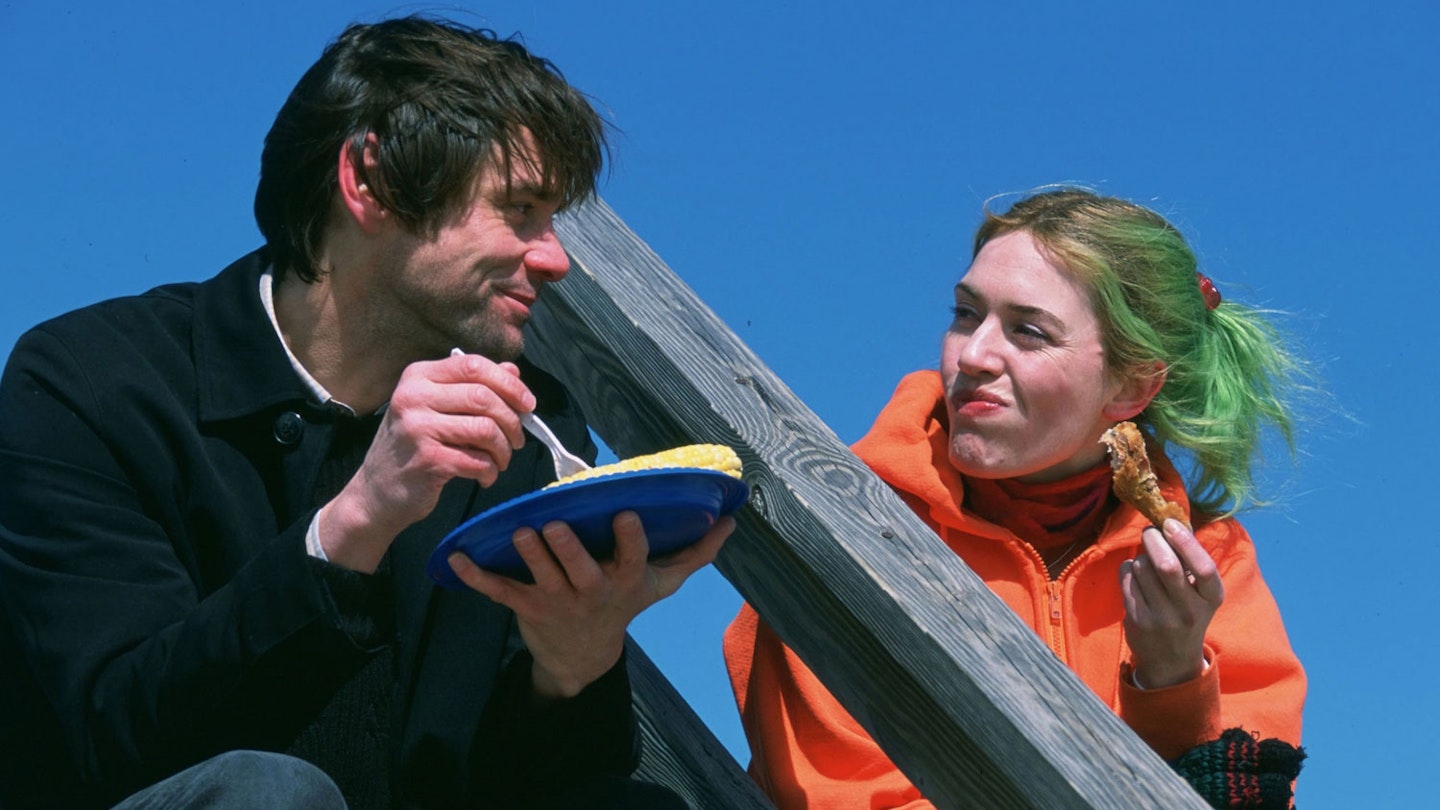 87 of 100
87 of 10014) Eternal Sunshine Of The Spotless Mind
2004The single high-concept sci-fi idea underpinning Michel Gondry's cerebral second feature is that of memory erasure. Described as "technically brain damage", it nevertheless serves as the vehicle for a meditation on romantic connection, communication, and the role of remembering in our humanity and personalities. This is screenwriter Charlie Kaufman at his most playful and intricate, but also his most disciplined. Eternal Sunshine is not a film that would work if its structure wasn't watertight, making it all the more impressive that the story, while tortuously complex in terms of its timelines, is never impenetrable. It's a tribute also to Gondry's deft direction and Valdis Oskarsdottir's dextrous editing, and the performances of Jim Carrey (profitably extending his range as he did in The Truman Show and Man On The Moon) and Kate Winslet. You know that old set-up: an introvert and an extrovert walk onto a train…Read the Empire review.Buy now on Amazon.
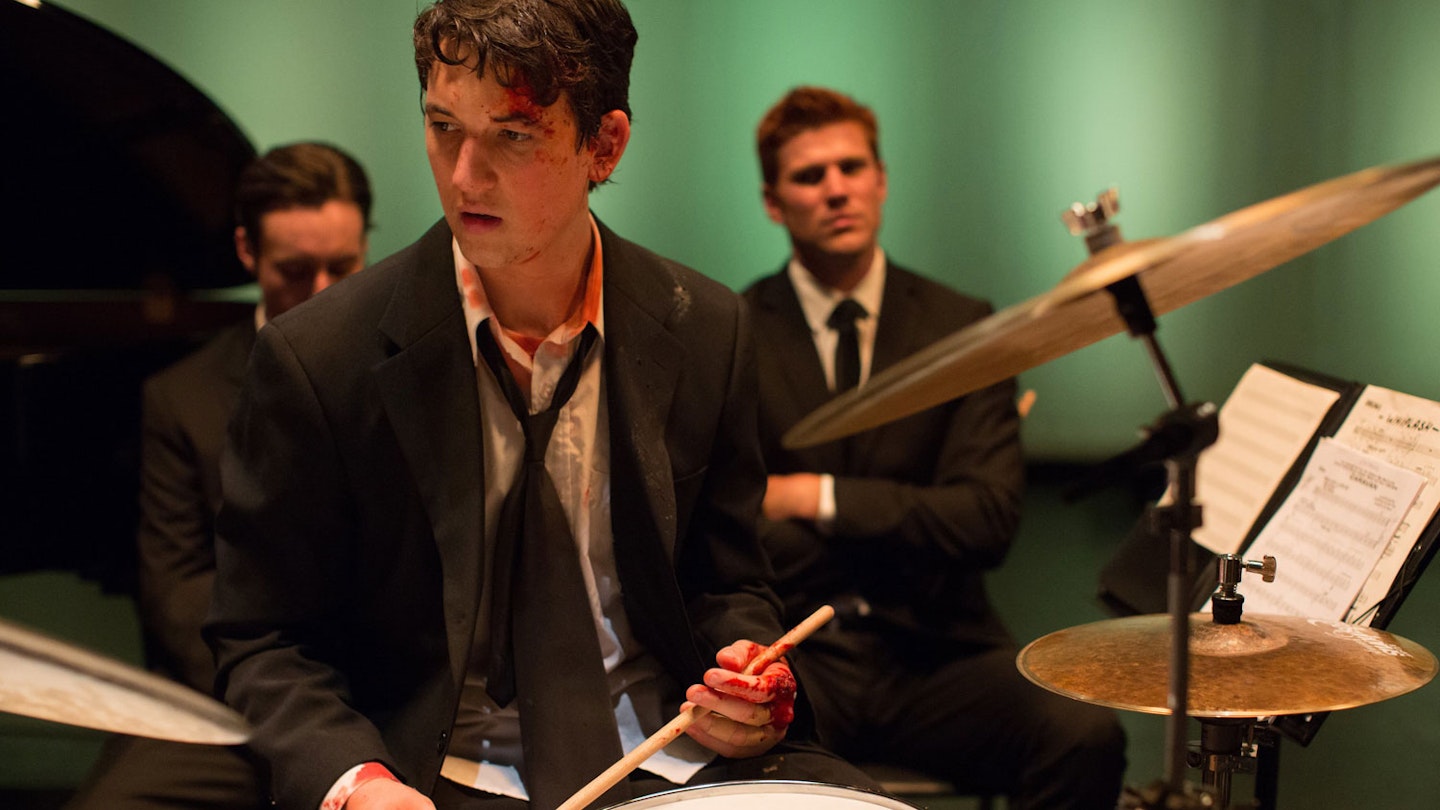 88 of 100
88 of 10013) Whiplash
2014As tight as a snare, as bracing as a cymbal-crash, and with tension to make your heart pound like a bass drum – Damien Chazelle's directorial debut proper proved the world of jazz drumming really could be the making of an instant-classic thriller. Miles Teller is Andrew, the student willing to thrash it out on the drumkit until his hands bleed, and JK Simmons is Terence Fletcher, the teacher intent on pushing him through hell in order to achieve greatness – a frantic and ferocious exploration of toxic masculinity across generations. As a succession of psychological battery turns into a battle of wills, Chazelle ratchets up the frenzied intensity with total control – delivering an astonishing final act that's as cathartic as it is cardiac-arrest-inducing. Coming from Blumhouse, the production company more associated with well-honed jump-scare movies like Insidious and Sinister, it doesn't feel out of place to call Whiplash a near-horror movie. Never rushing, never dragging – it's exactly our tempo.Read the Empire review.Buy now on Amazon.
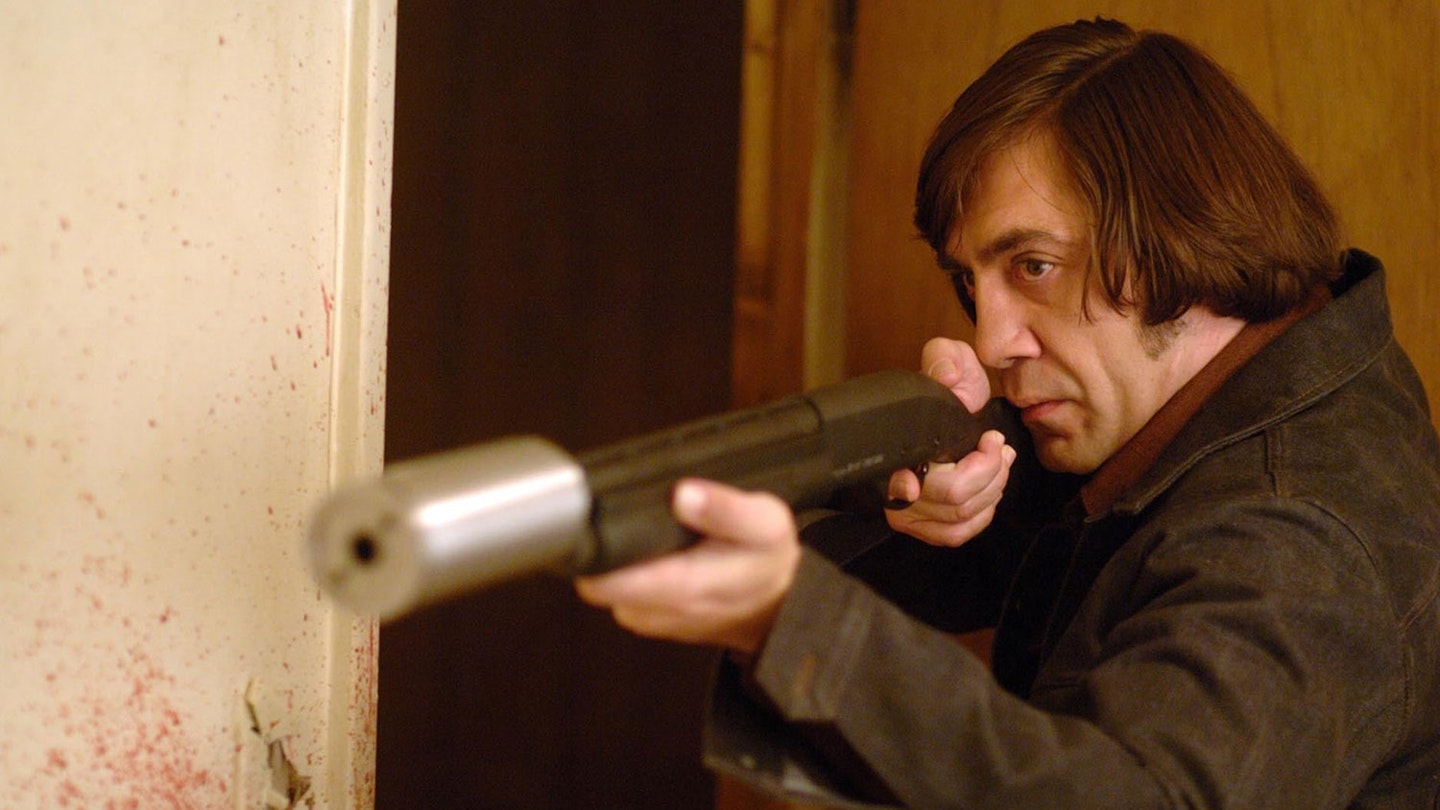 89 of 100
89 of 10012) No Country For Old Men
2007No Country For Old Men stands as the best film made by the Coen Brothers after the turn of the millennium – which is saying something, given the career that Joel and Ethan have had over the last 20 years. Their adaptation of Cormac McCarthy's novel is a slow-burner in every sense, and after letting it digest for a decade or more, it's abundantly clear that it's the brothers' magnum opus: a slow, strange, nihilistic masterpiece. The Coens' dark, violent tendencies mesh perfectly with McCarthy's bleak, existential themes. Told with Roger Deakins' coldly compelling camerawork and a trio of career-best performances from Tommy Lee Jones, Javier Bardem and Josh Brolin (who almost never share the screen but haunt each other to varying degrees), it feels like a quiet, tense grapple for the soul of humanity. And like Sheriff Bell's dream, recalled at the end of the film, this is a dark mysterious story, with no happy resolve.Read the Empire review.Buy now on Amazon.
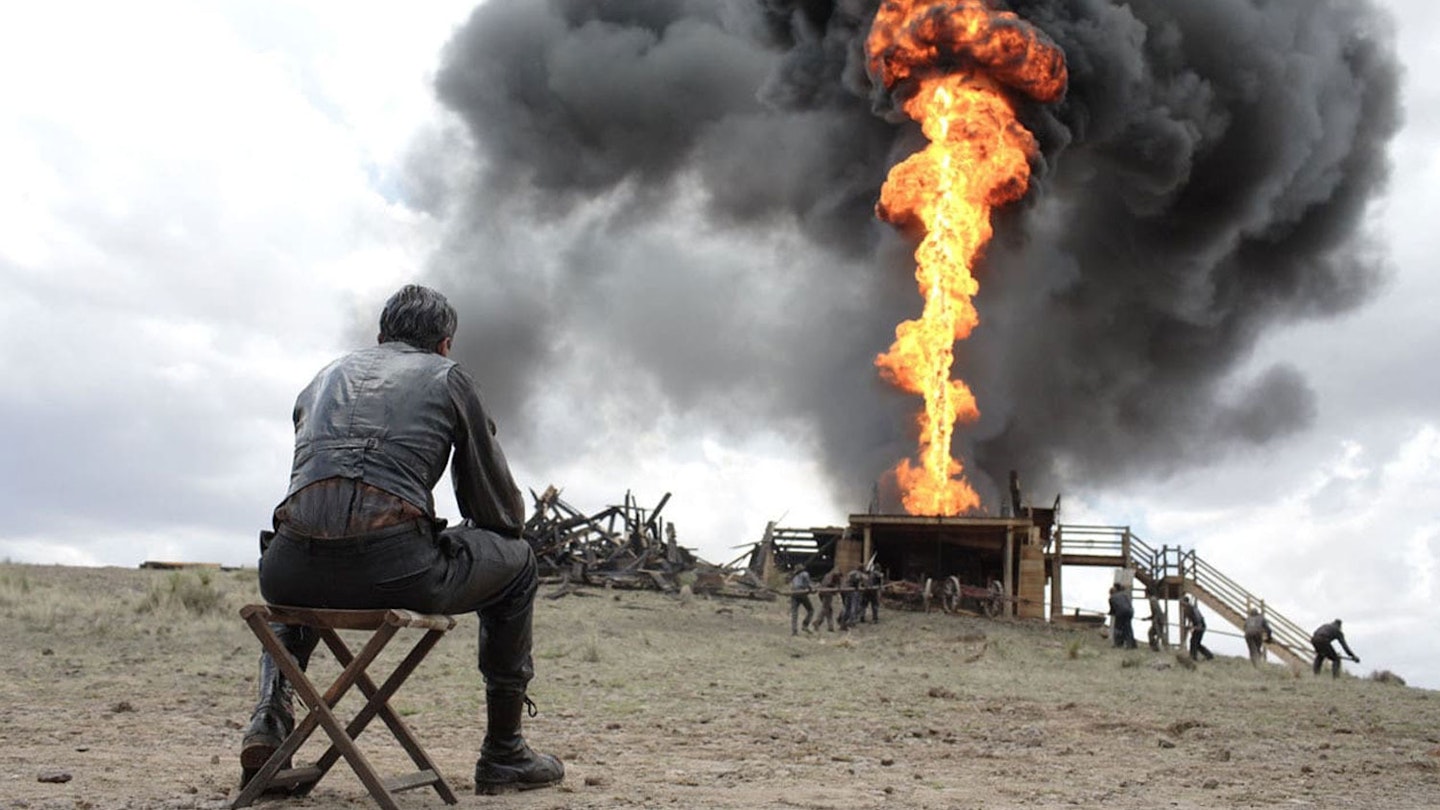 90 of 100
90 of 10011) There Will Be Blood
2007The imagery of Paul Thomas Anderson's quasi-Western couldn't be more evocative: oil, fire, blood, and Daniel Day-Lewis clawing his way through it all with a Cheshire cat grin, the evils of Capitalism incarnate. It begins with several minutes in which his Daniel Plainview scrabbles around in a hole, and only gets more uncompromising from there – sticking you with his hateful, amoral, but utterly mesmeric villain for nearly three hours. Day-Lewis is transcendent as the prospecting American devil, a shambling, screaming horror of a man ("I told you I would eat you!") who sees everything and everyone around him as something to be exploited, milkshake that he can drink up – a force of drainage and consumption who cannot and will not be stopped, consequences, quite literally, be damned. It's a performance and a film that chews you up before spitting you out, exhausted and drenched with inky black oil, on two simple words: "I'm finished".Read the Empire review.Buy now on Amazon.
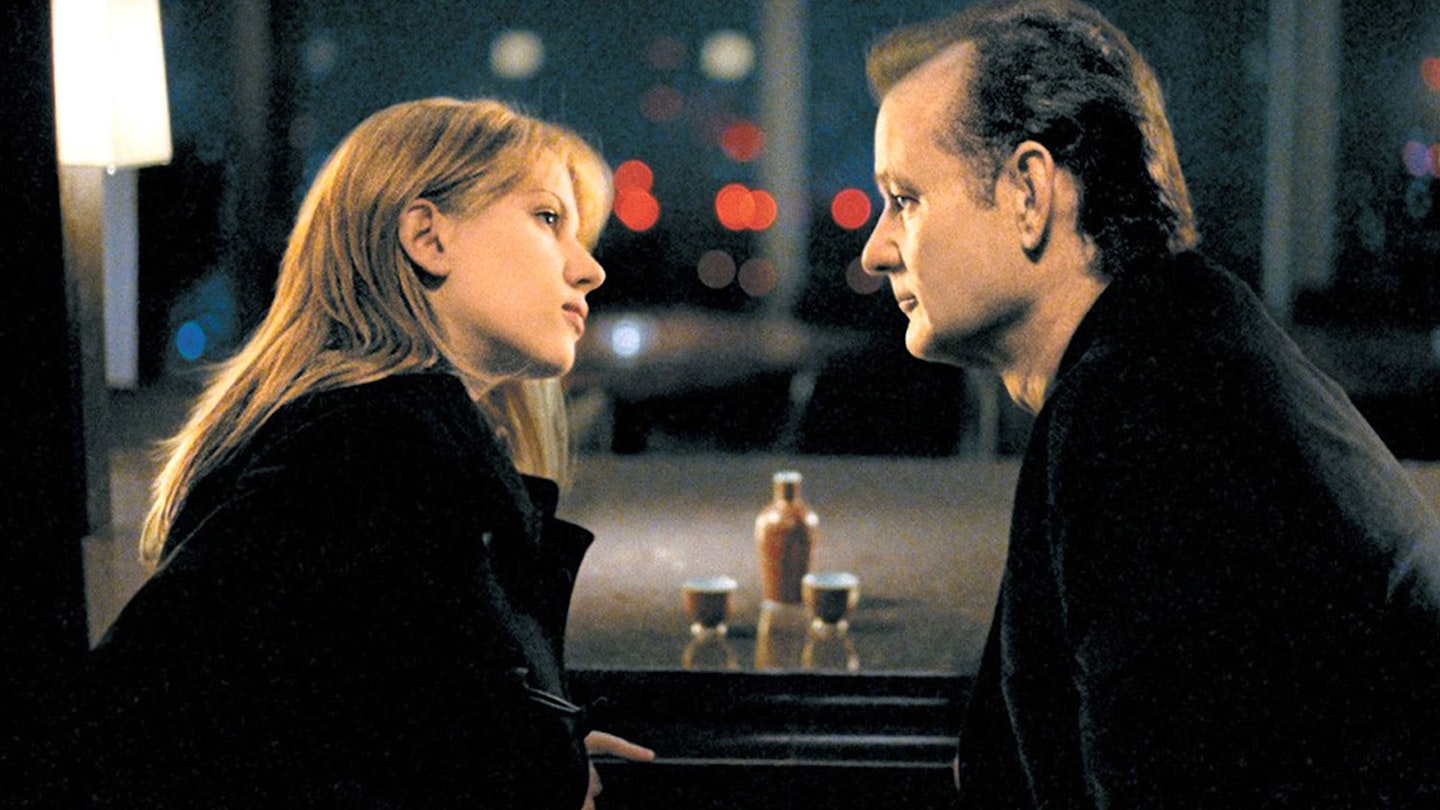 91 of 100
91 of 10010) Lost In Translation
2003Just as Wes Anderson had done in The Royal Tenenbaums, Sofia Coppola's Lost In Translation made profitable use of a rumpled, weary, wry Bill Murray. But it was Scarlett Johansson that was the revelation here: her thirteenth film felt like her real arrival. The set-up – mismatched couple stuck together in an unfamiliar city – could have lent itself to a more conventional fish-out-of-water romantic comedy, but Coppola's deadpan anti-romance instead leans into the emotional dislocation of its two central characters adrift in an alien (to them) Tokyo. It's as if the film itself has jetlag: a mumblecore sensibility translated to a more formal aesthetic, with the final joke that we can't catch what Murray whispers in Johansson's ear. All we know is that it wasn't, "I love you". This isn't a film about two souls finding each other: it's about two strangers being lonely together. Almost magically, it's romantic in spite of itself.Read the Empire review.Buy now on Amazon
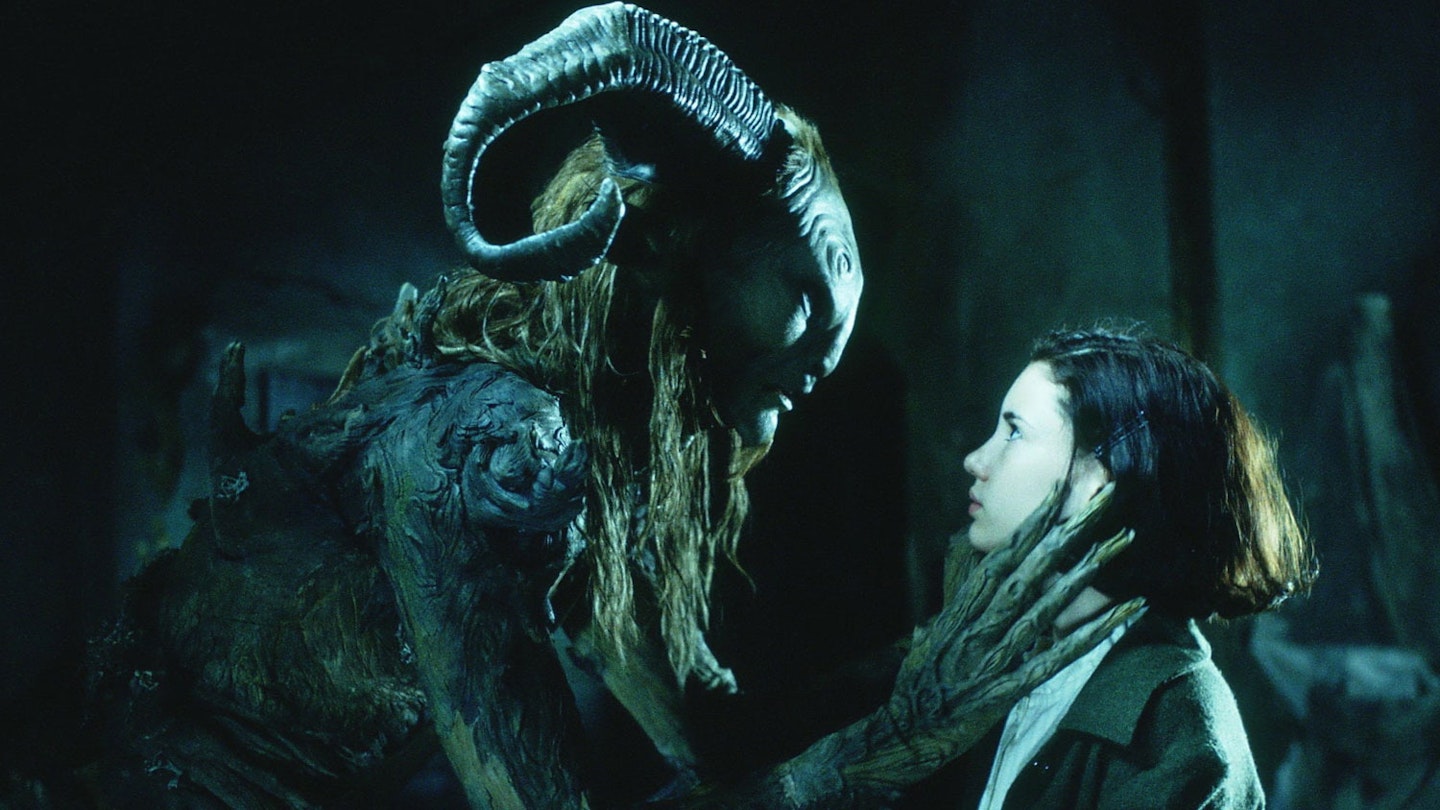 92 of 100
92 of 1009) Pan's Labyrinth
2006Guillermo del Toro's masterpiece is part fantasy, part historical war movie – in which the fantastical sequences are hardly a reprieve from the fascistic horrors besieging the real world. Caught in the middle of it all is young Ofelia (Ivana Baquero), by day tending to her pregnant mother and avoiding the ire of her brutal stepfather, Sergi López's Captain Vidal, and by night taking on three otherworldly tasks in order to gain immortality and return to the fairy kingdom that creaky faun Pan believes she comes from. del Toro evokes the real and the unreal with equal care and vitality, creating a film full of unforgettable imagery – whether its Vidal receiving a Joker smile at the hands of a rebel, or the terrifying eye-handed Pale Man chomping the heads off fairies as he chases Ofelia through his banquet hall. It's hauntingly beautiful, the greatest example of del Toro augmenting the monstrousness of humanity evil with actual fantasy monsters, with a tragic, transcendent climax that's hard to shake.Read the Empire review.Buy now on Amazon
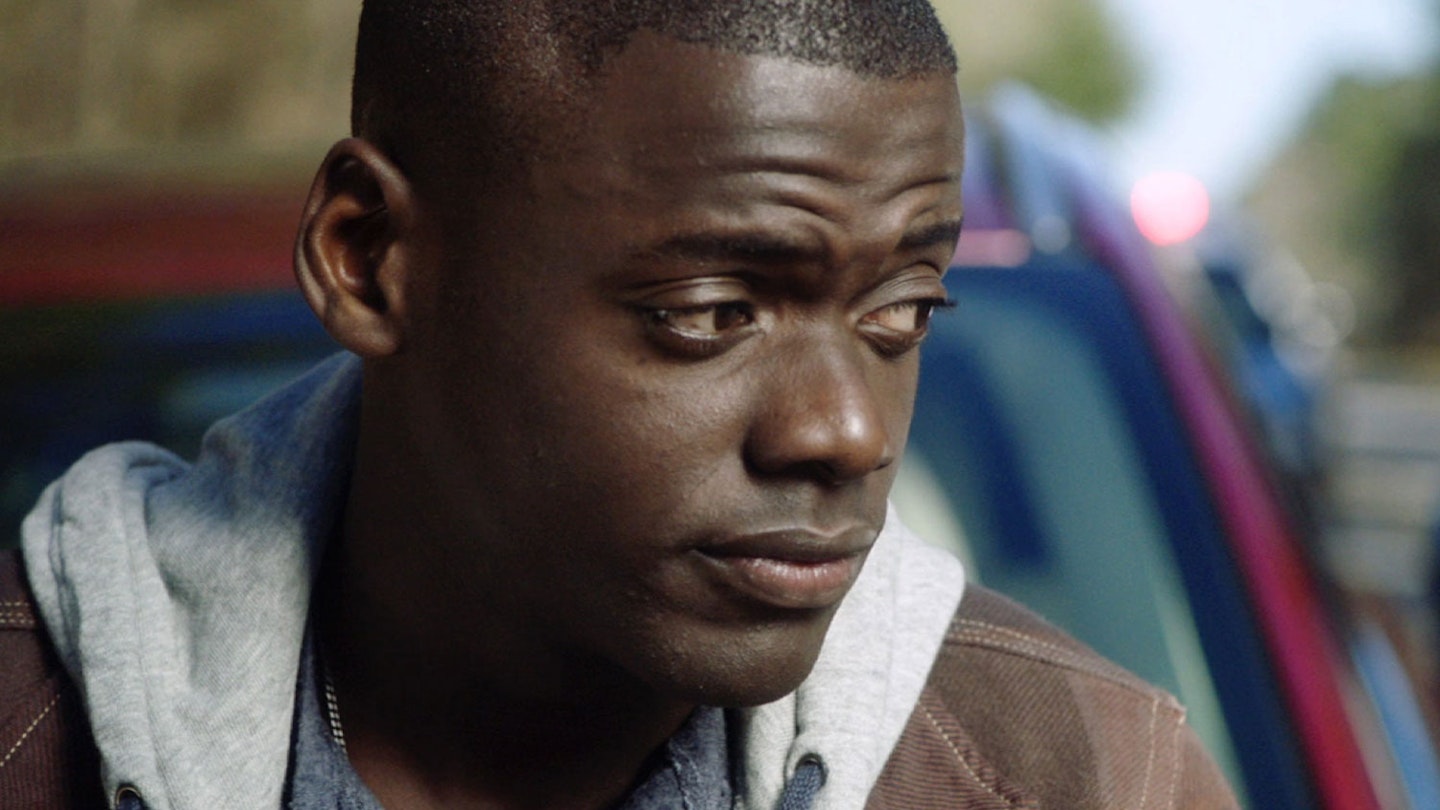 93 of 100
93 of 1008) Get Out
2017"I would have voted for Obama for a third term if I could." With razor-sharp dialogue and astute observations, Jordan Peele's debut film as writer-director announced him as a masterful filmmaker – scratching at the surface of supposedly-liberal America to expose the festering racism hiding just beneath a progressive veneer. Blending satire with genre tropes, he hit on something special with Get Out – a film about the horrors of prejudice and the social anxiety experienced by African-Americans in predominantly-white spaces, delivered with gripping twists, laugh-out-loud gags, and resonant visual metaphors. Daniel Kaluuya became an international star for his turn as Chris, the photographer who leaves the city to meet his white girlfriend's parents – and discovers there's more than meets the eye. Eerie, supremely entertaining, with an all-time-classic scene as Chris descends into the 'Sunken Place', Get Out has everything that makes a horror movie great – and it even cracked the Oscars, winning Best Original Screenplay, and earning Best Picture, Director, and Actor noms. Peele ushered in a new era of social-horror – an effect set to be felt increasingly in the decade to come.Read the Empire review.Buy now on Amazon
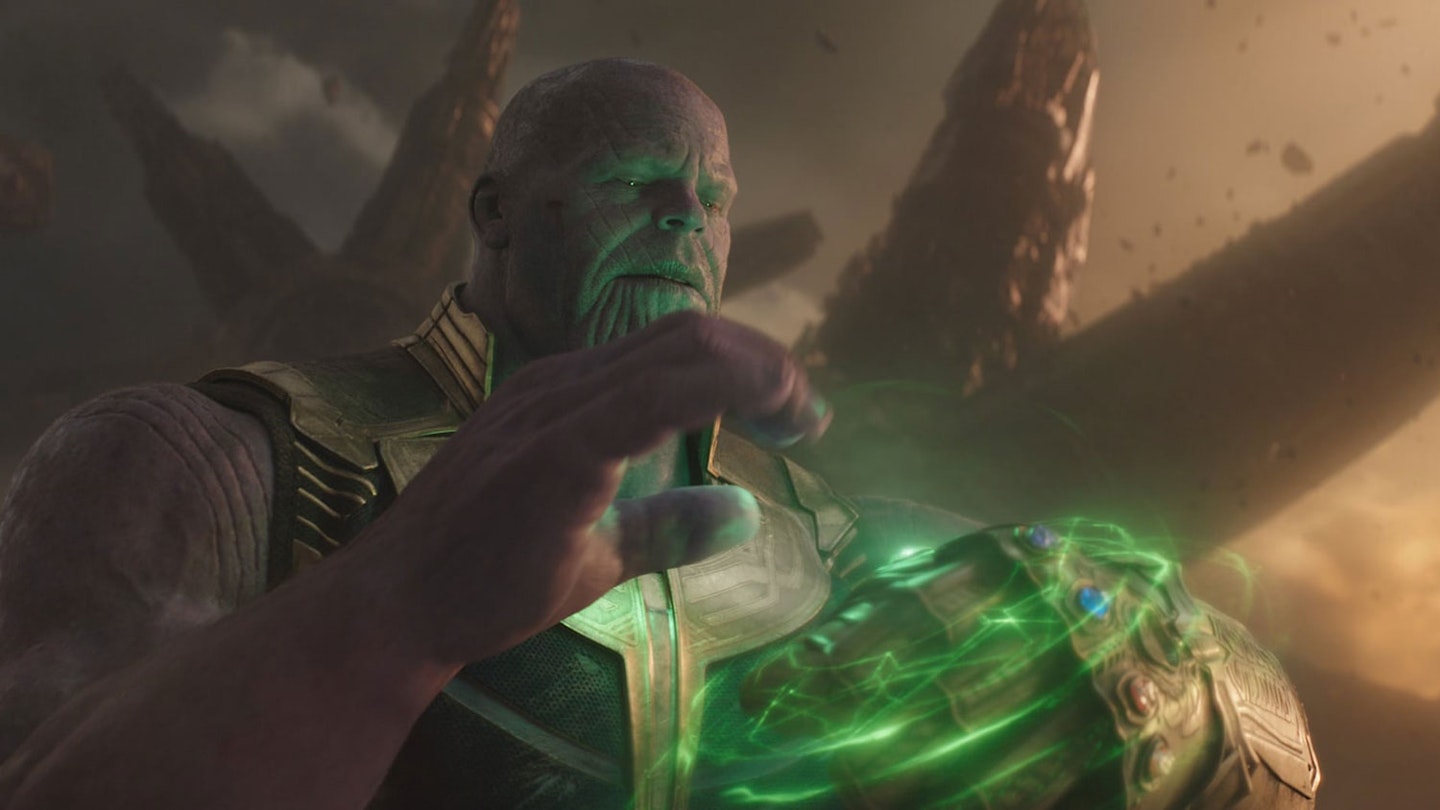 94 of 100
94 of 1007) Avengers: Infinity War
2018The culmination of the entire Marvel Cinematic Universe, bringing together every corner from the cosmic Guardians Of The Galaxy to the Earth-bound Captain America, should have been a triumph – and it is, but it's also an epic tragedy that's daring enough to let its villain win and wipe out 50% of all known life. Perhaps the most seismic mega-blockbuster of the 21st Century, Infinity War is a streamlined behemoth of sheer entertainment – bombastic action studded with character explorations (a broken Thor recounting every family member he's lost to Rocket is heartbreaking and bittersweet) and big, proper laughs. In short, it's the apotheosis of everything that became Marvel Studios' signature – bright, colourful, splashy spectacle, with a genuine affection for its roster of heroes – managing to be sprightly as well as universe-threateningly epic. And with that jaw-dropping finale it created a genuine cultural moment – an iconic piece of popular entertainment that impacted a generation. What a legacy.Read the Empire review.Buy now on Amazon
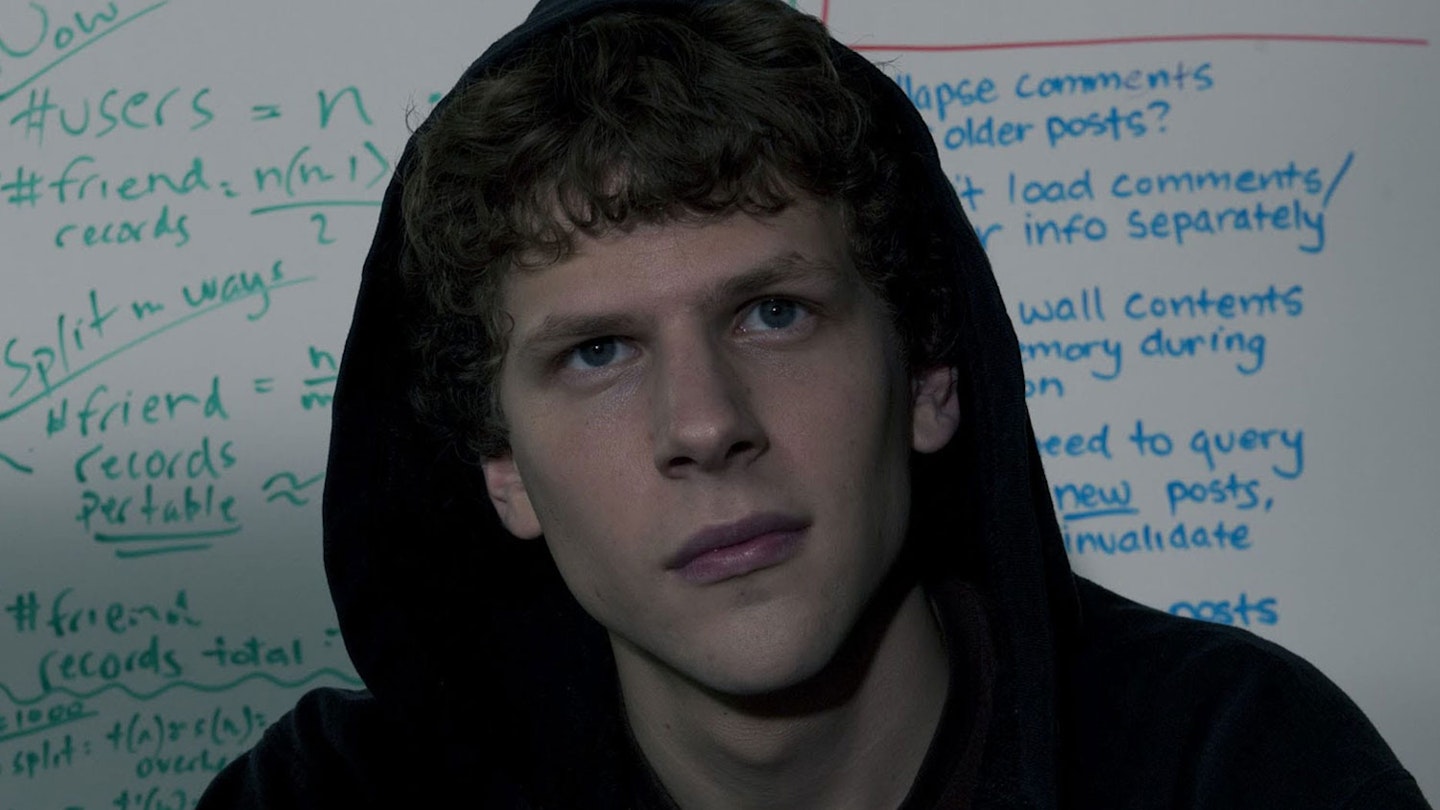 95 of 100
95 of 1006) The Social Network
2010Few but Aaron Sorkin would have seen a classical tragedy in the origin story of Facebook. But that's what makes The Social Network so spectacular – a none-more-contemporary tale with all the oldest storytelling tenets: friendship, revolution, greed, and betrayal. Pounding along on Trent Reznor and Atticus Ross's thrumming electronic score, David Fincher's film delights in the paradox that a man with no social skills of his own created (or did he?) the digital tool that united the entire online world, sacrificing his lone personal connections along the way in order to become a tech billionaire. Jesse Eisenberg is pitch-perfect as the jittery, ice-cold Mark Zuckerberg – a thoroughly modern Machiavelli, setting up the site as a way to score women (in every sense), talking down to everyone he meets at breakneck speed, and swindling Andrew Garfield's Eduardo Saverin out of his share of the business. To make this film in retrospect, at the end of a moment, would be impressive enough – but a decade later, The Social Network feels increasingly prescient as the butterfly effect of Facebook ("Drop the 'the', it's cleaner") spiralled into Cambridge Analytica, the rise of the alt-right, and an entire generation raised on social media. Fincher and Sorkin pulled this off in the middle of it all – filmmaking soothsayers of the digital era.Read the Empire review.Buy now on Amazon
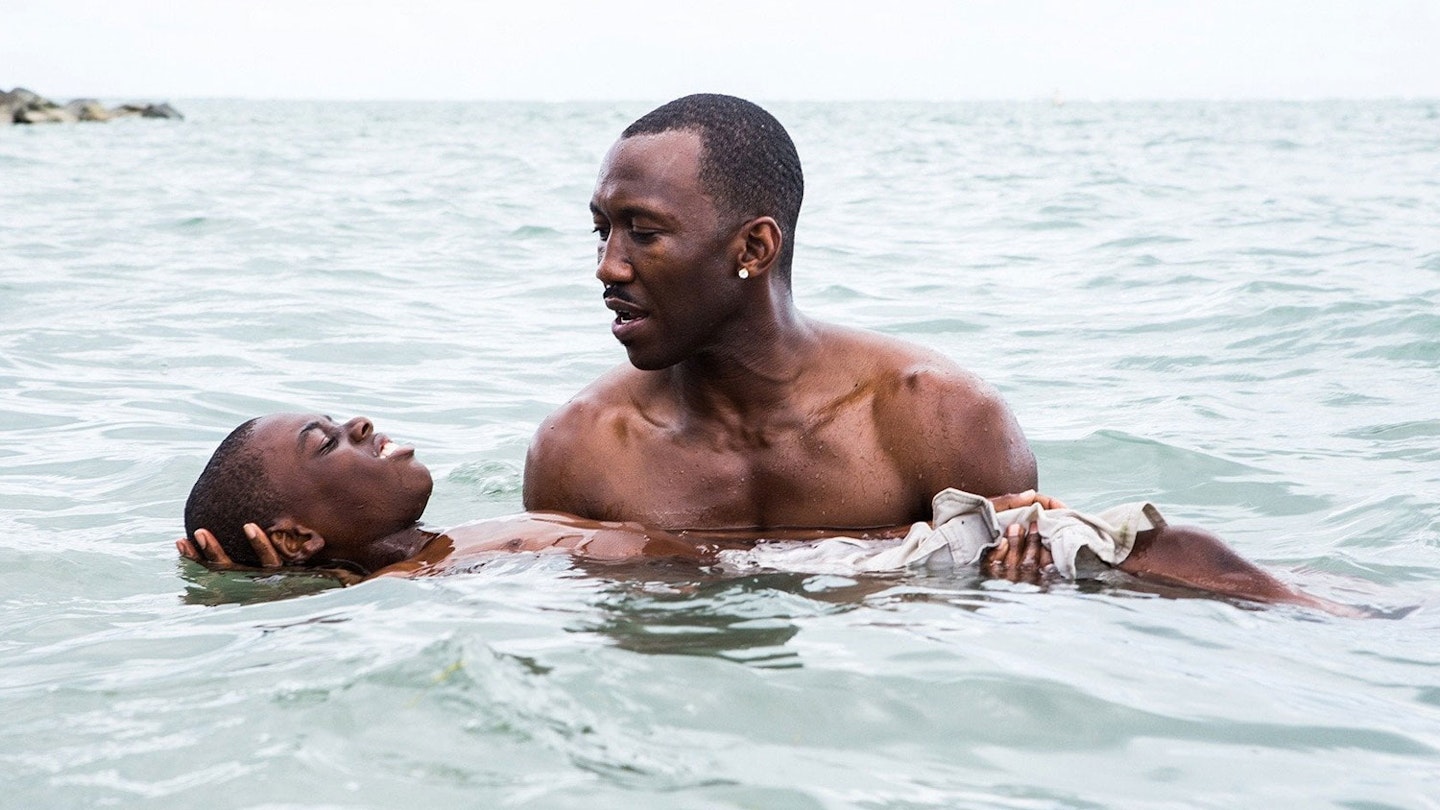 96 of 100
96 of 1005) Moonlight
2016While utterly cinematic, Moonlight is the closest moviemaking gets to poetry – it's such a powerfully concentrated, impressionistic piece of work that every moment in it contains multitudes. The story of Little (aka Chiron, aka Black), a young black gay man growing up in Florida, is told in three distinct chapters – his youth, adolescence and young adulthood – that are vastly different from each other, each segment revealing the small but seismic moments that reverberate through his life and transform him completely in the years we don't see him. Incorporating childhood recollections from writer-director Barry Jenkins and playwright Tarell Alvin McCraney, whose unproduced theatre piece the film is based on, the film feels like a memory – sensory and tactile, evocative and lived-in. If Mahershala Ali deservedly got plenty of praise on release for playing Juan, the dealer who acts as a father figure to young Little, the three actors who play Chiron over the years are exemplary – the vulnerability of Alex Hibbert, the haunted eyes of Ashton Sanders, the impenetrable masculinity of Trevante Rhodes all informing each other. Moonlight is bruised, remarkably tender, completely shattering without ever grandstanding – it's a miracle the Oscars rewarded it.Read the Empire review.Buy now on Amazon
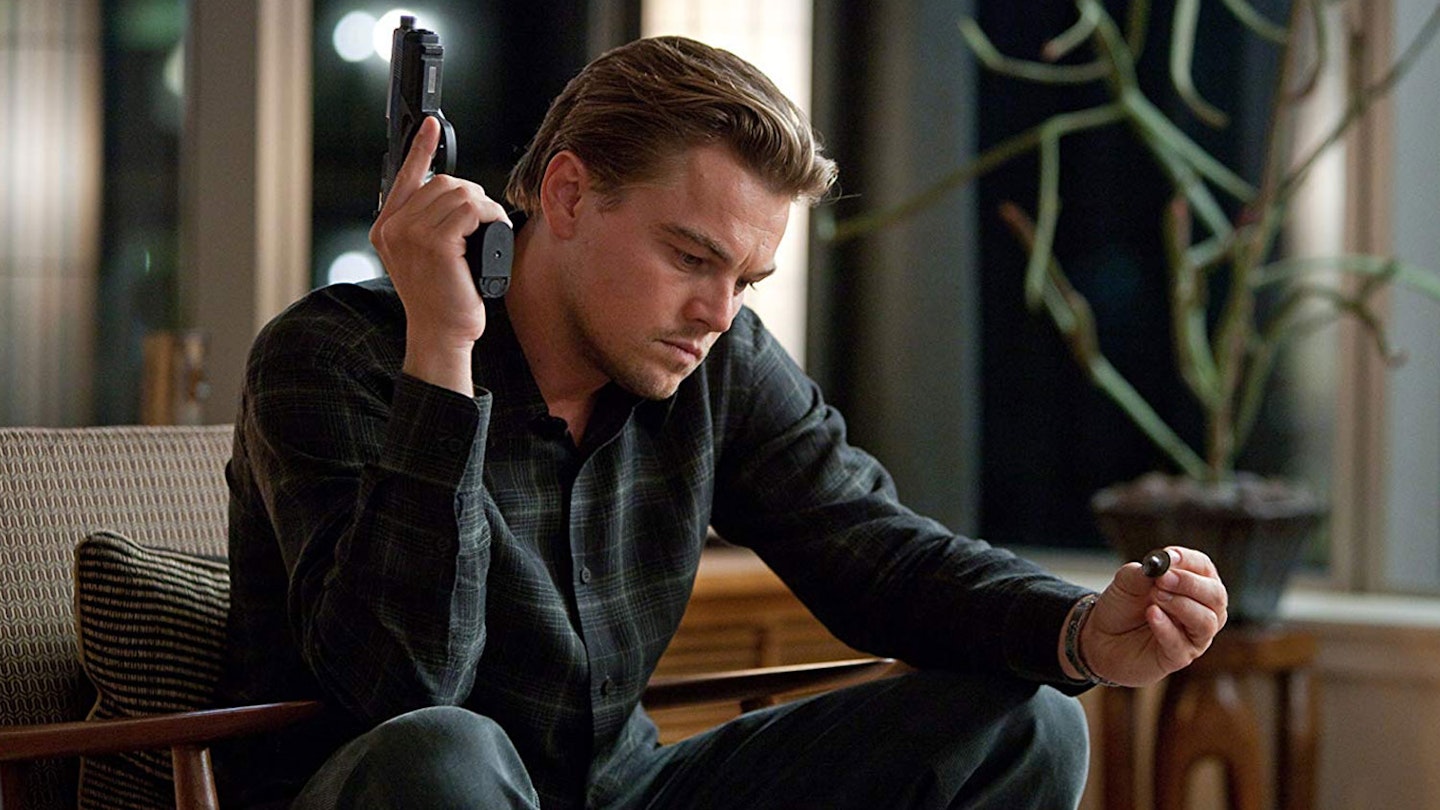 97 of 100
97 of 1004) Inception
2010How do you follow up a gamechanger like The Dark Knight? You use your box office clout to make a gigantic, original, narratively-complex blockbuster the way only Christopher Nolan can. A summer movie set in the swirling subconscious, Inception is a film about the power of ideas that has plenty of its own – positing a sleeping mind as the scene for an anti-heist, picturing man-made dreamscapes that look like James Bond movie sets, and setting up a dizzying conceit of dreams within dreams within dreams with each operating at different speeds. That it's clear enough to keep up with is impressive – that it's also a non-stop piece of rollercoaster entertainment is phenomenal. The architect of all this beautiful chaos is Leonardo DiCaprio's Dom Cobb, whose own suppressed trauma threatens to topple the whole operation. But for all the movie stars at play – Tom Hardy, Ellen Page, Joseph Gordon-Levitt, Michael Caine – it's the filmmaking that's the real star here. Creating giant practical sets, using miniatures, crafting folding cities with VFX, nothing feels out of Nolan's reach. An instant classic, with an ambiguous final shot destined to remain spinning indefinitely (or will it?) in the mind of viewers for decades to come.Read the Empire review.Buy now on Amazon
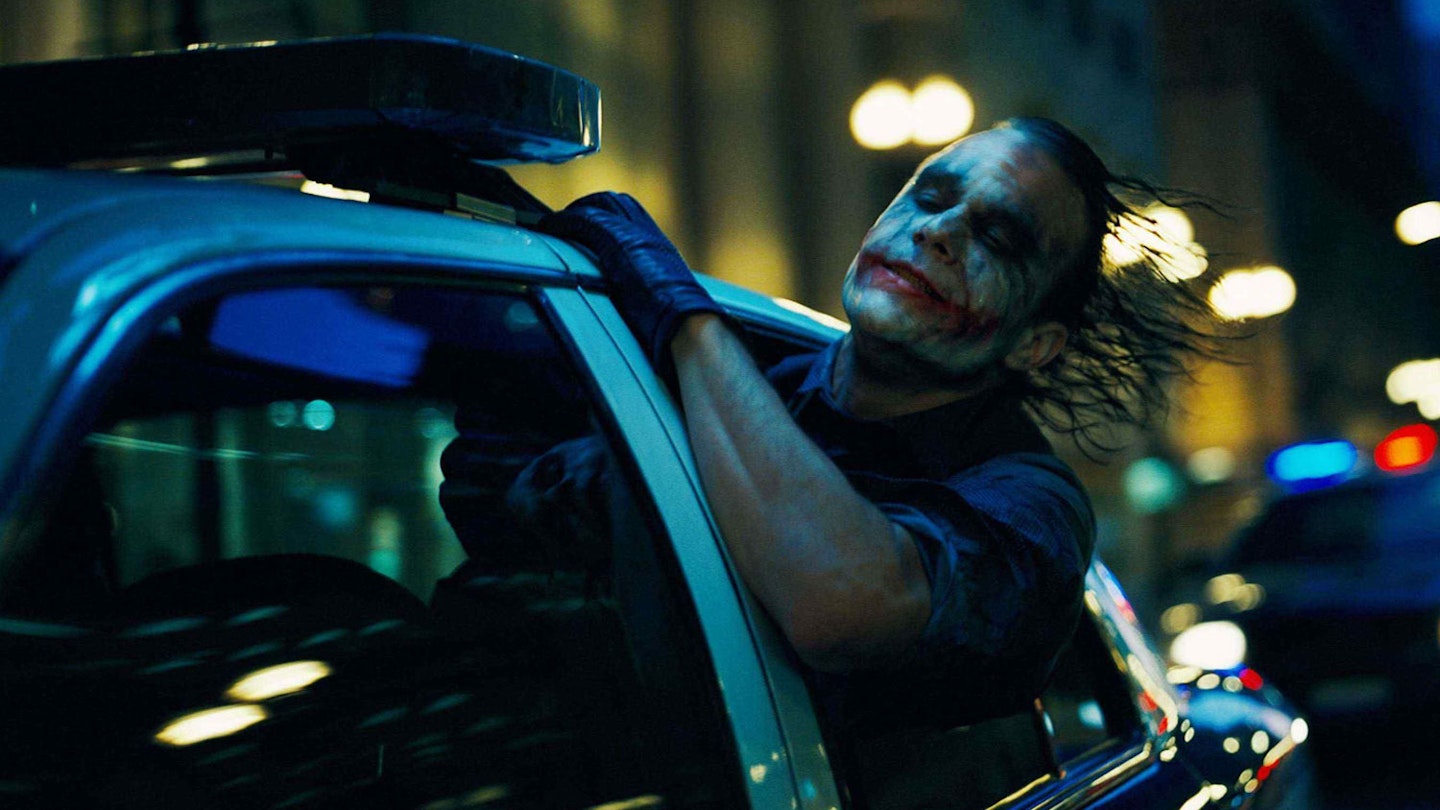 98 of 100
98 of 1003) The Dark Knight
2008After delivering the ultimate Bruce Wayne movie with Batman Begins, Christopher Nolan put his dark knight to the test – clashing with Heath Ledger's shuffling anarchist Joker. Everything about The Dark Knight feels grand and mythic – not just its imagery (the Joker setting piles of cash ablaze, the Two-Face reveal, the gleaming Gotham cityscape), but its sweeping narrative arcs that turn heroes into villains, lovers into martyrs, and gangsters into monsters. Nolan's film reflects an America struggling to come to terms with the trauma of 9/11 – depicting the Joker as an urban terrorist whose motivation is solely to spread fear and dissent among the inhabitants of Gotham. He calls himself a "better class of criminal" – and The Dark Knight is, more so than a superhero film, a crime saga, right from that astonishing opening bank raid. There are action sequences here, including an adrenaline-pumping Batmobile chase, but even its set-pieces – from the race to save either Rachel or Harvey Dent, to the two-boats showdown – are more moral quandaries writ large. It's a better class of blockbuster, a better class of comic book movie, and a better class of Joker – Ledger's endlessly fascinating interpretation only growing more iconic as time ticks on.Read the Empire review.Buy now on Amazon
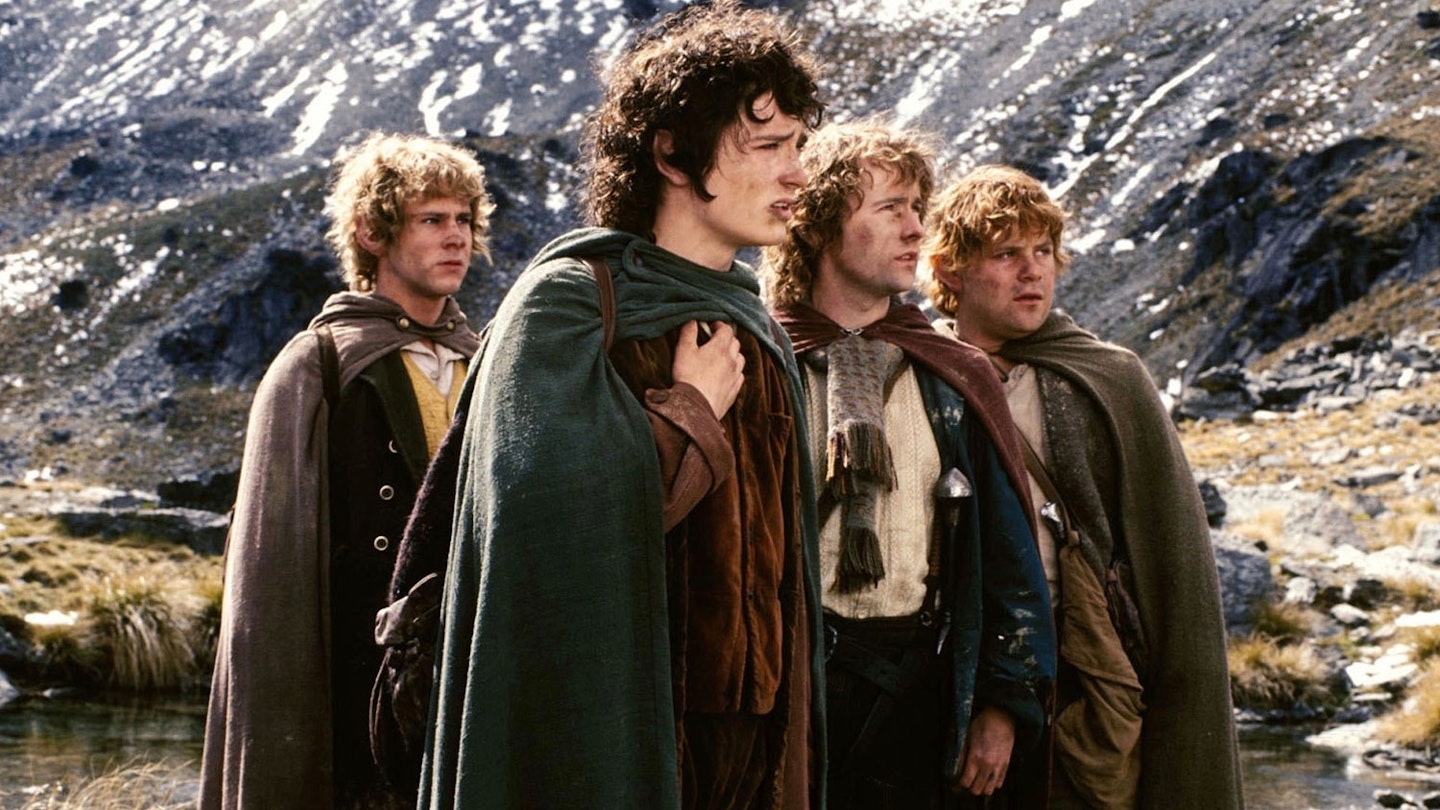 99 of 100
99 of 1001) The Lord Of The Rings: The Fellowship Of The Ring
There has never been a cinematic fantasy saga like The Lord Of The Rings – and its opening chapter remains its crowning achievement. It's a journey you'll want to re-visit time and again, and we recommend the extended edition.Buy on Amazon
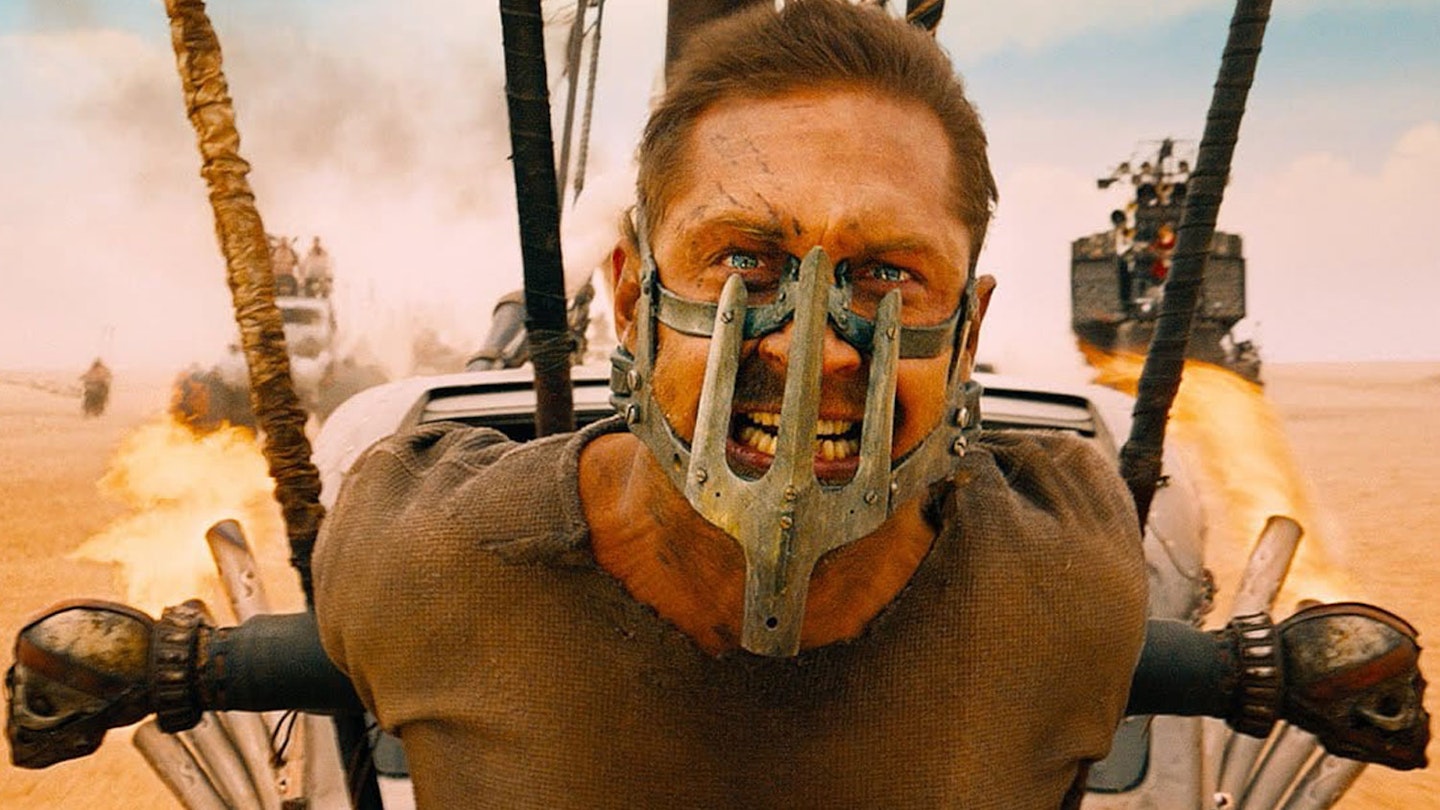 100 of 100
100 of 1001) Mad Max: Fury Road
201530 years passed between the arrival of Mad Max Beyond Thunderdome and Mad Max: Fury Road. That's three decades in which the fourth instalment of Max Rockatansky's story seemingly swirled and brewed and bubbled away in the mind of filmmaker George Miller, a dusty, oily fever dream taking on a deranged life of its own before spewing forth, fully formed, onto the screen. There's a purity of vision to Fury Road that taps directly into the parietal lobe – it feels entirely unfiltered, completely without compromise, utterly batshit insane in its conception and execution, no idea too bonkers or unwieldy, no practical effect too tricky to pull off. If its construction is mind-boggling, its premise is gloriously simple – a straight-up, near-non-stop chase movie through the post-apocalyptic wasteland, with Tom Hardy's grunting Max quite literally along for the ride, strapped to the front of War Boy Nux's car while the life is drained out of him. If it's his name in the title, the movie equally belongs to Charlize Theron's Imperator Furiosa – a rebelling lieutenant of warlord Immortan Joe (Hugh Keays-Byrne), who has made off with his bunch of breeding brides. She's an absolute force of nature, face smothered in ash, her mechanical arm never directly addressed, a feminist action hero for the ages who quite literally steers the film. The driving sequences are electrifying, staged with complete clarity among all the chaos, Miller creating total spacial awareness as the fleet of vehicles thunders through the desert. Nothing about Fury Road is mediocre – it's an unhinged piece of art, an astounding piece of action cinema, a visionary piece of filmmaking. Any day spent watching it is, truly, a lovely day.Read the Empire review.Buy now on Amazon